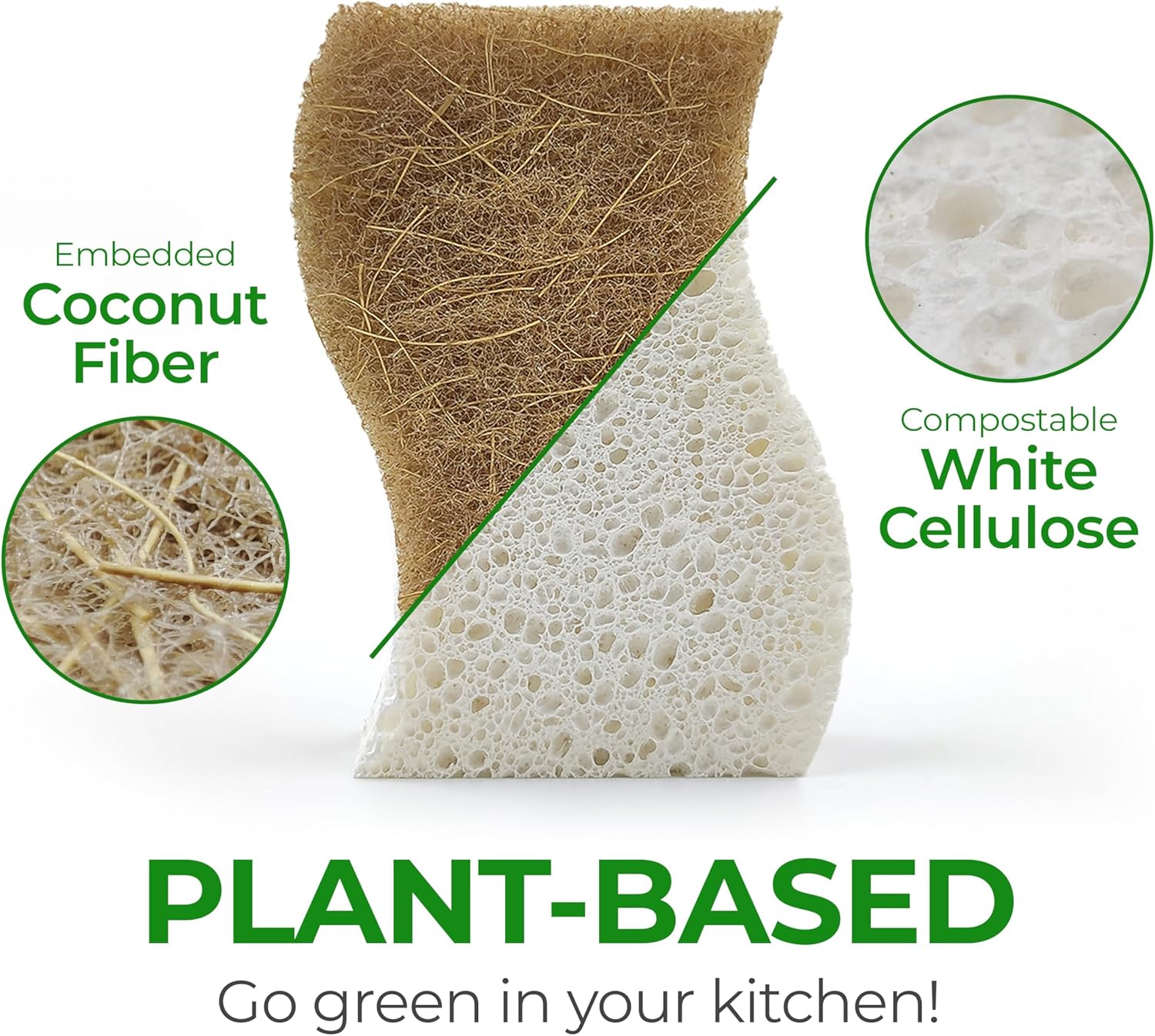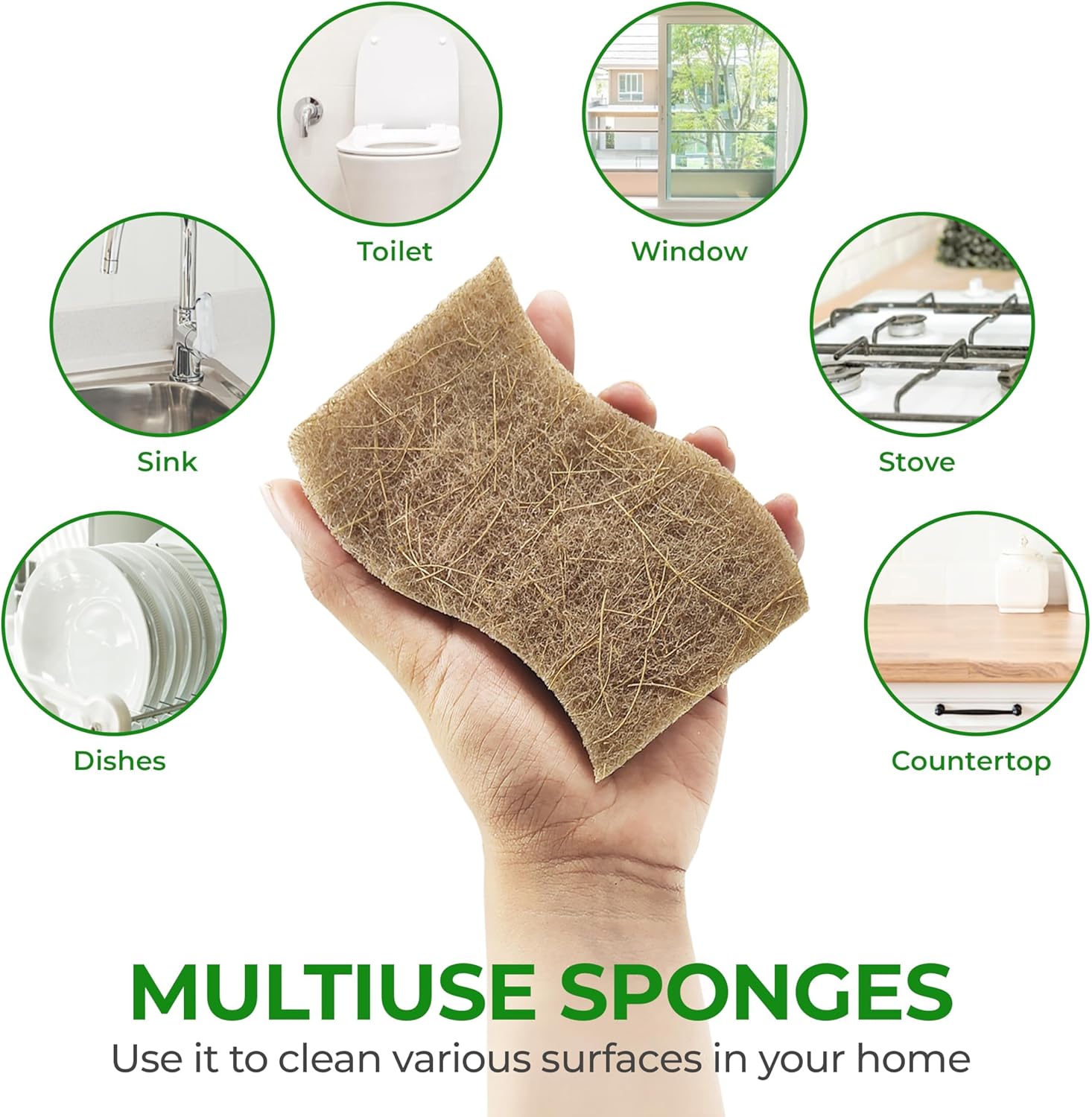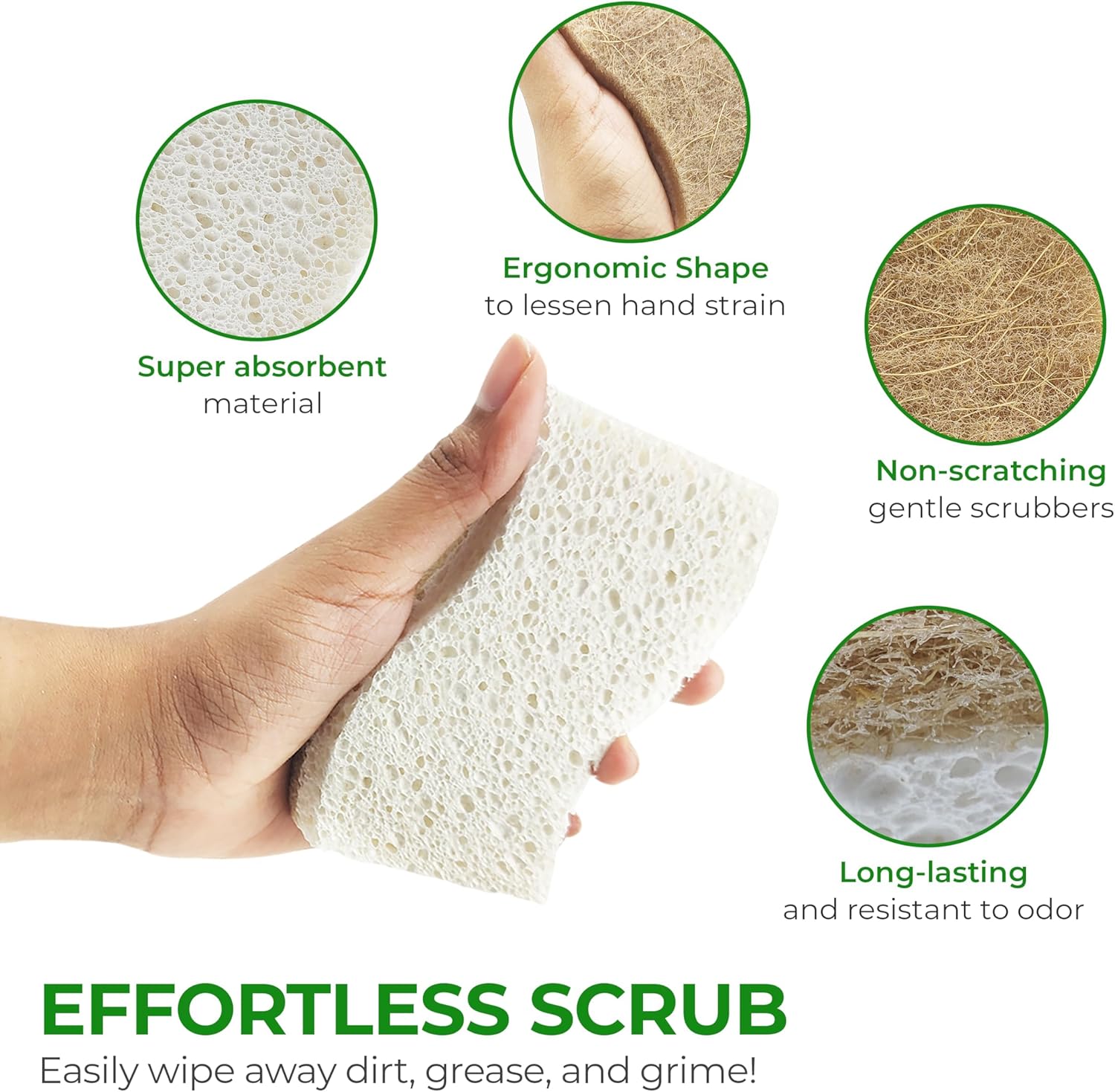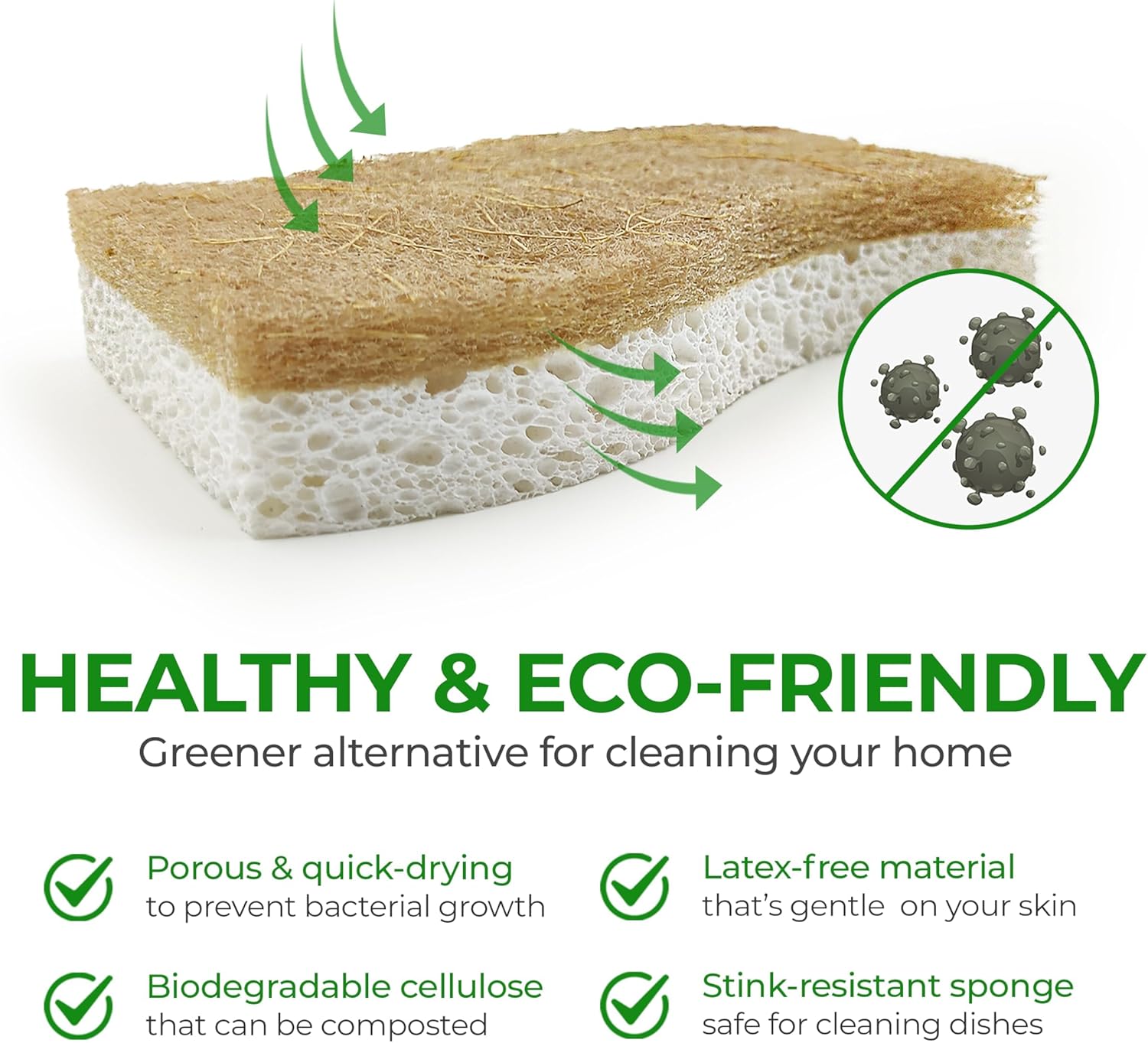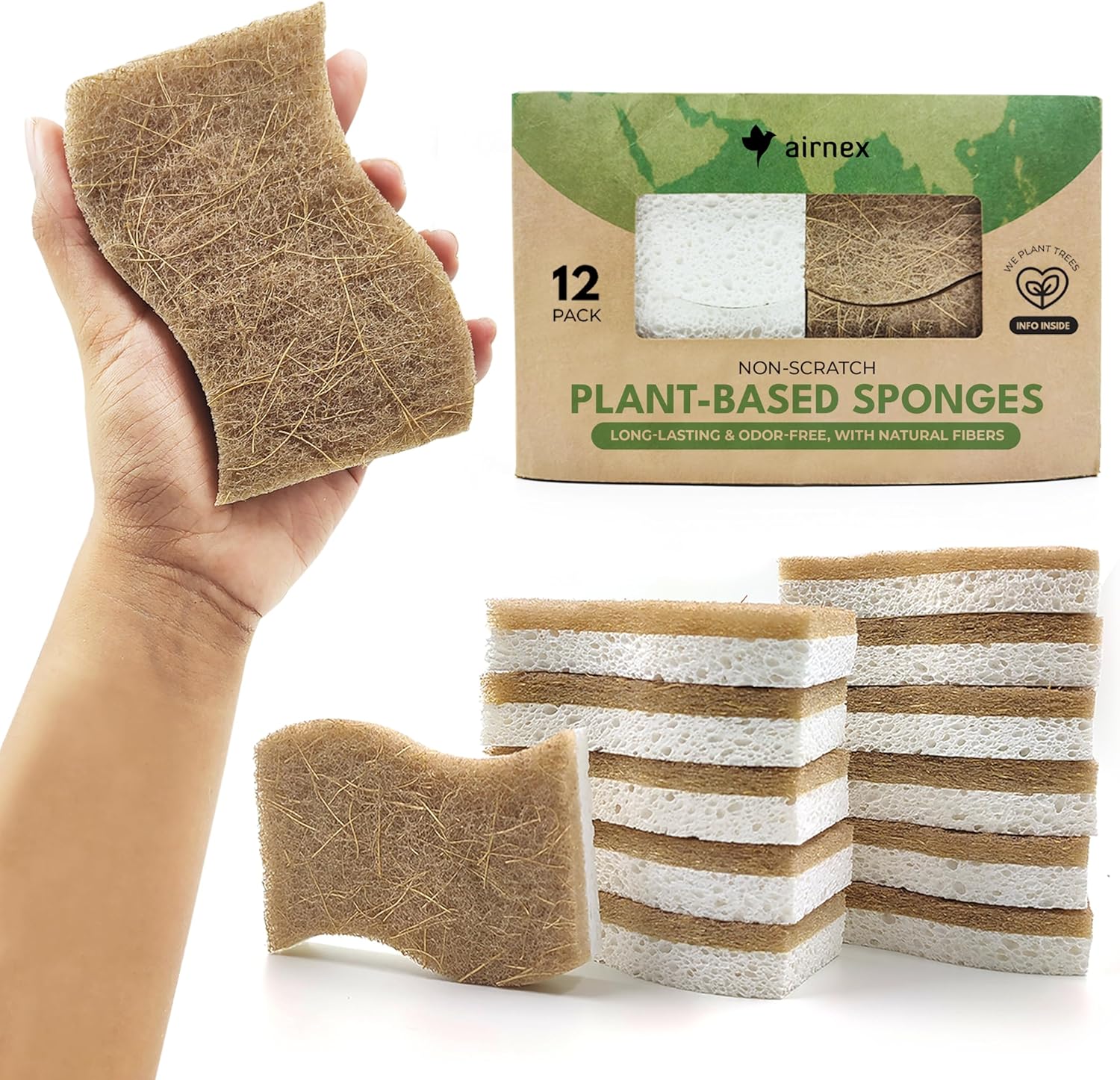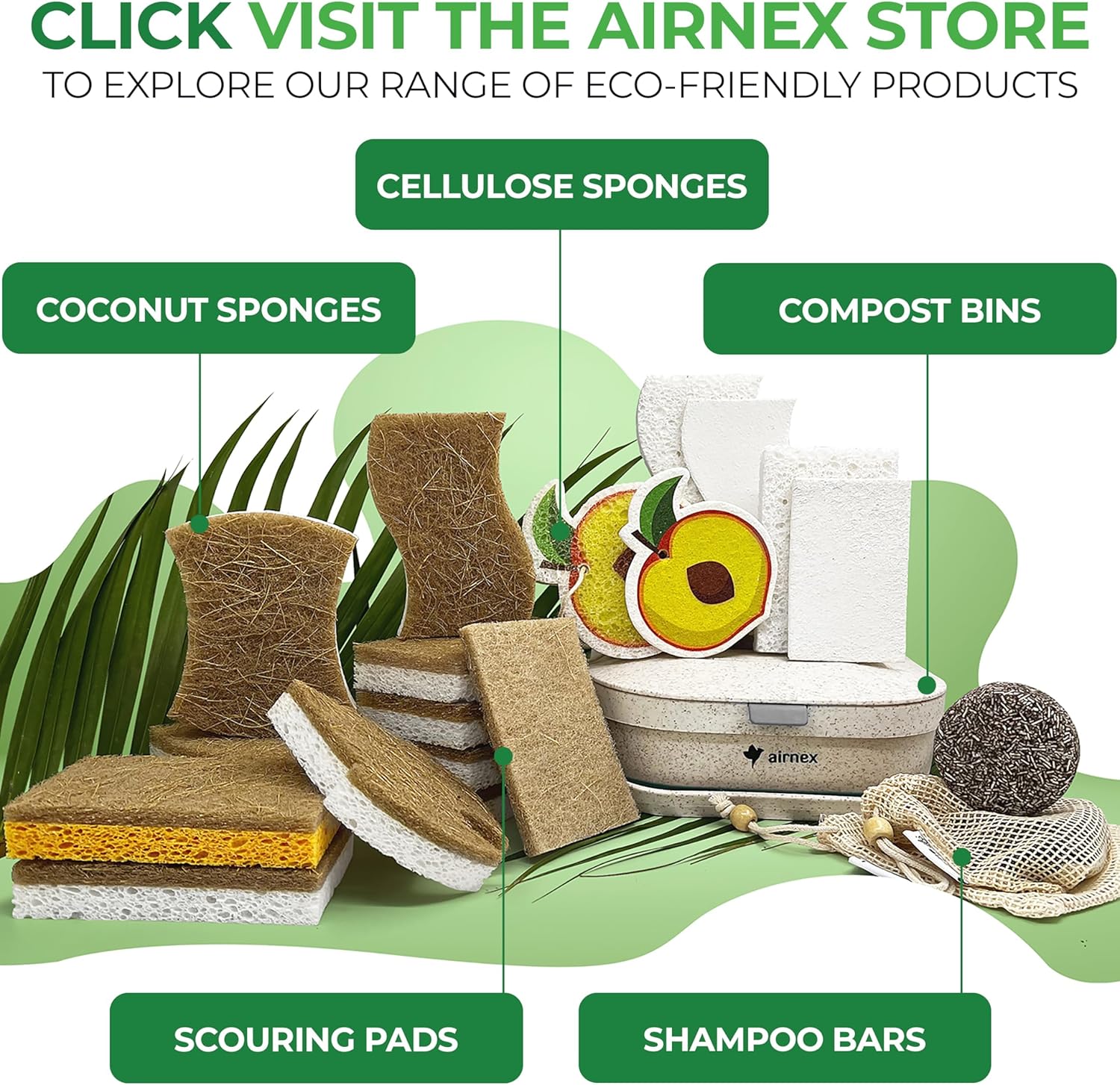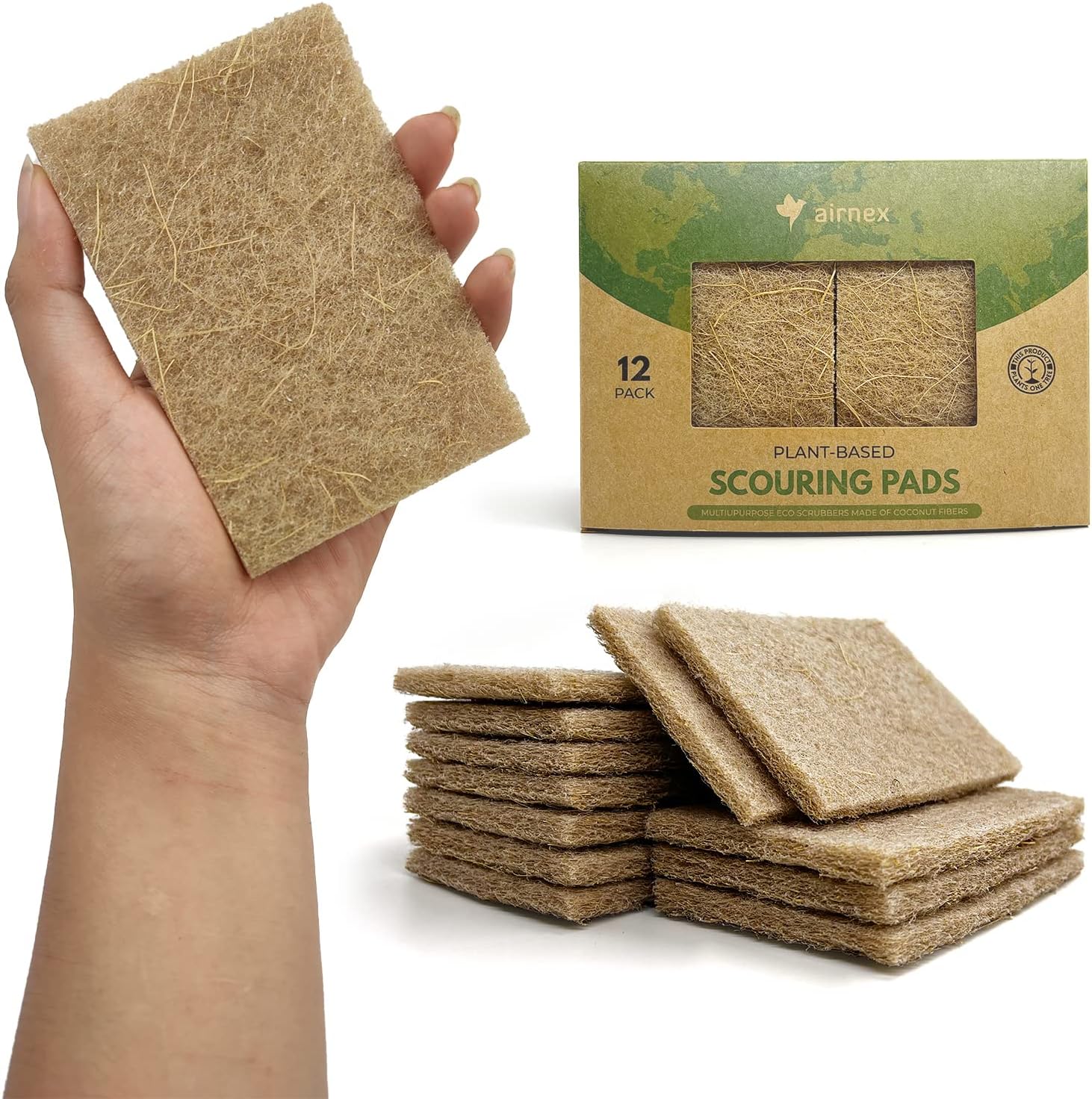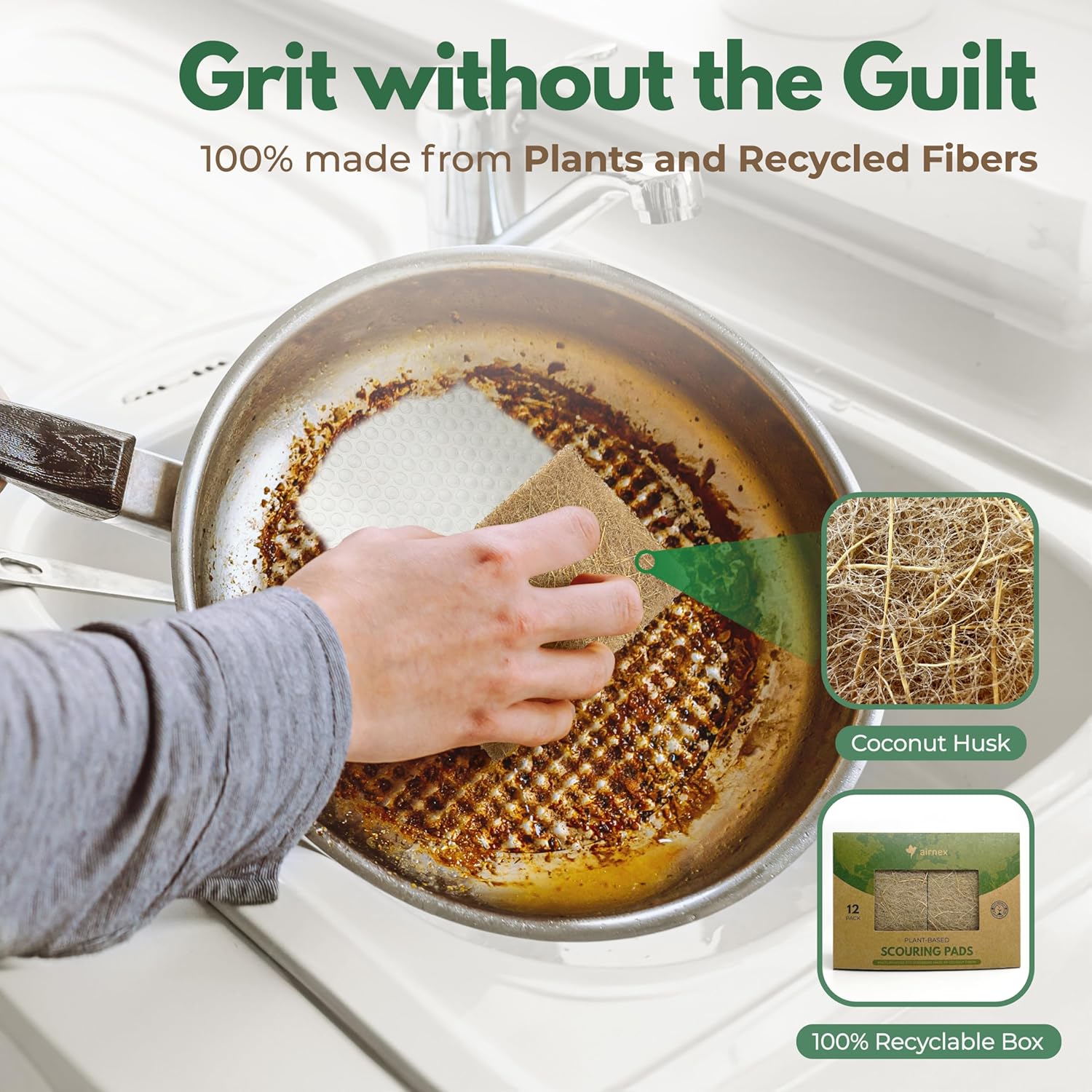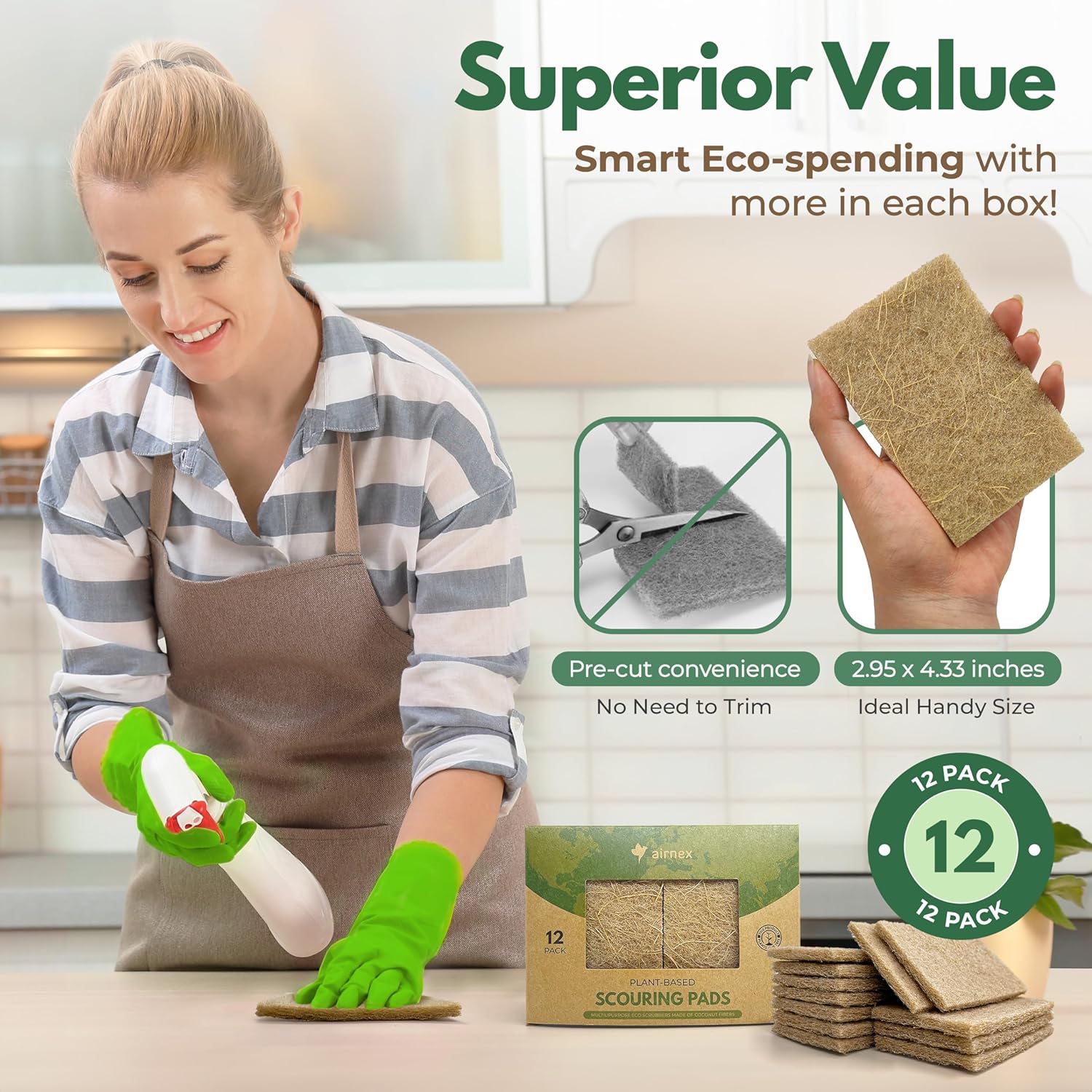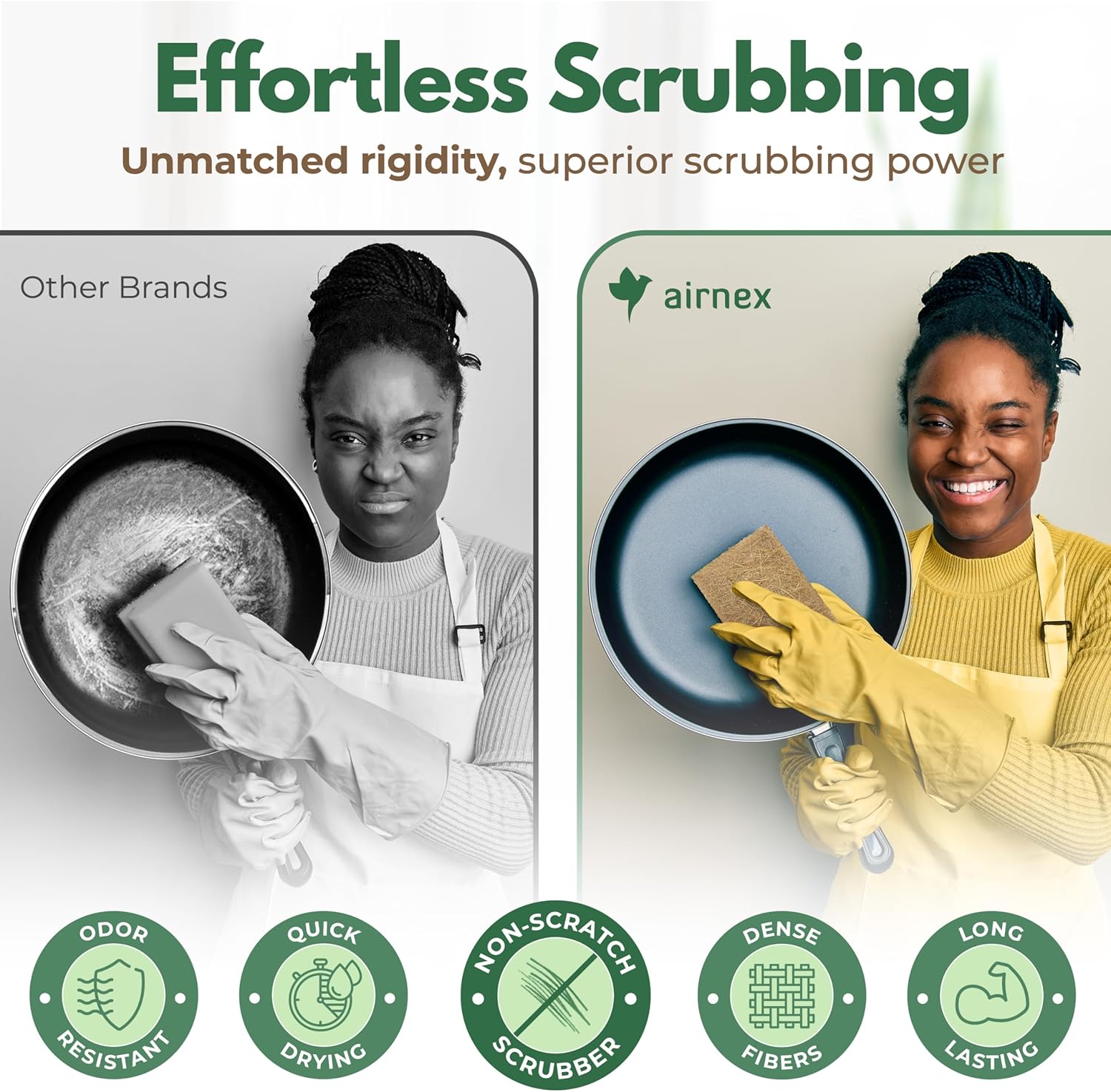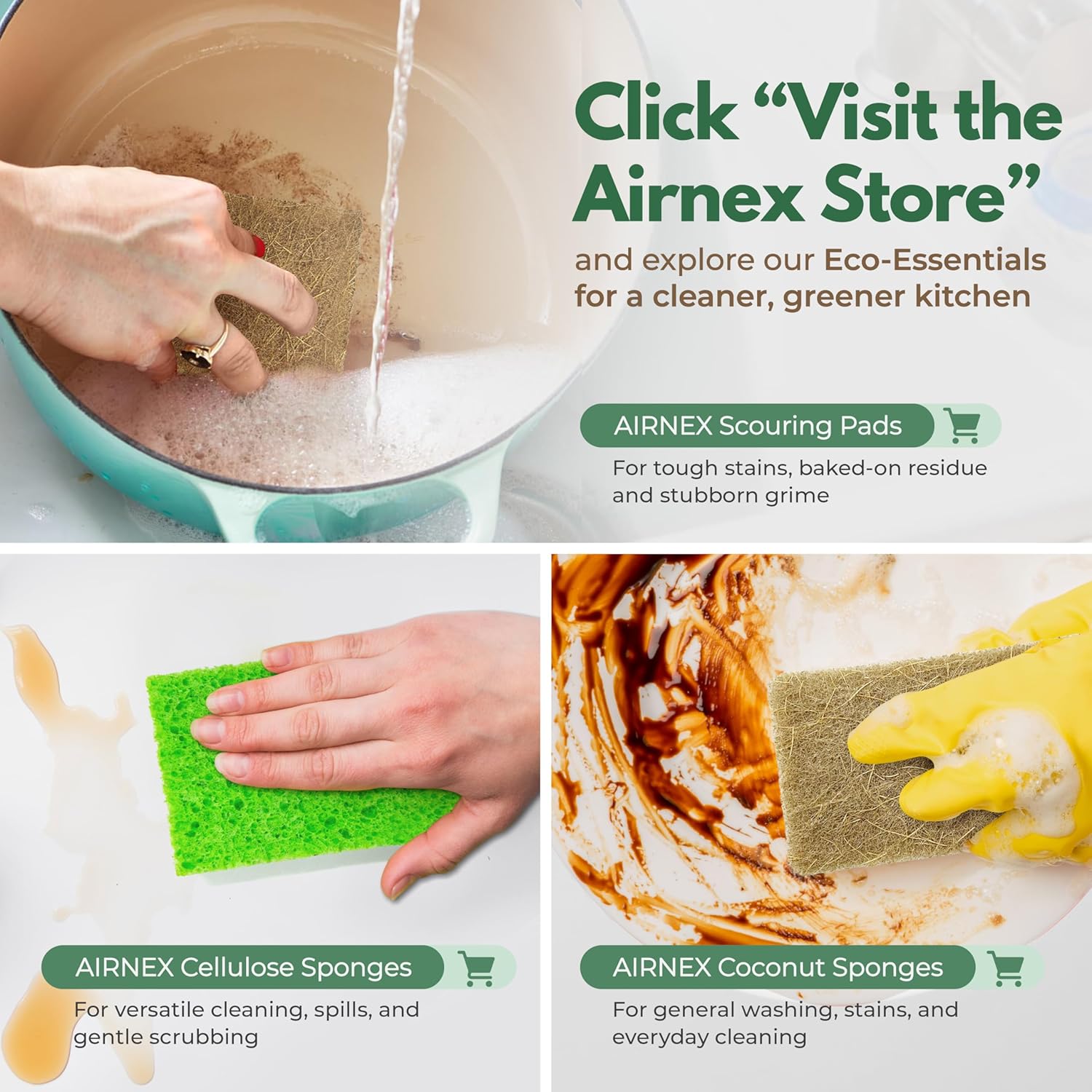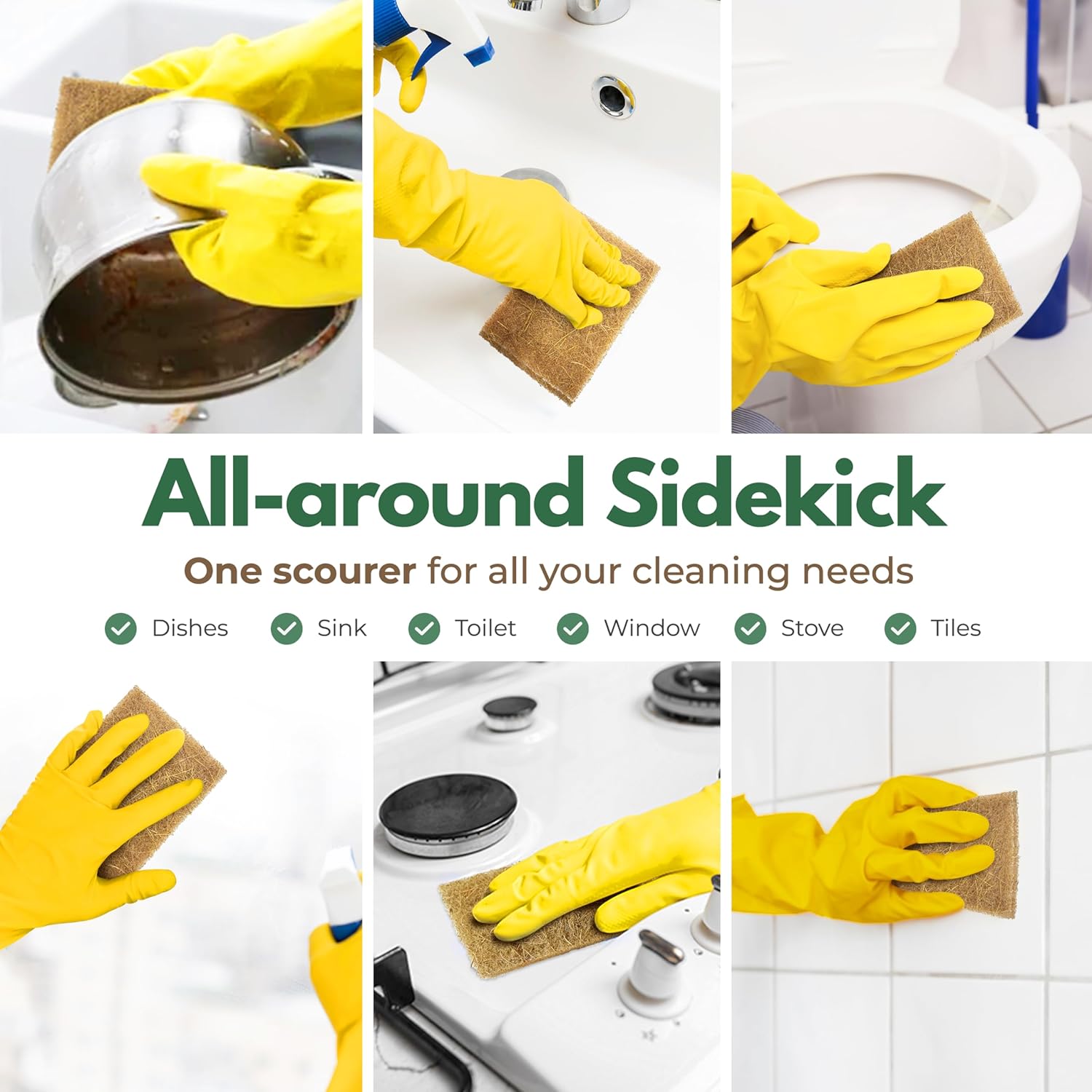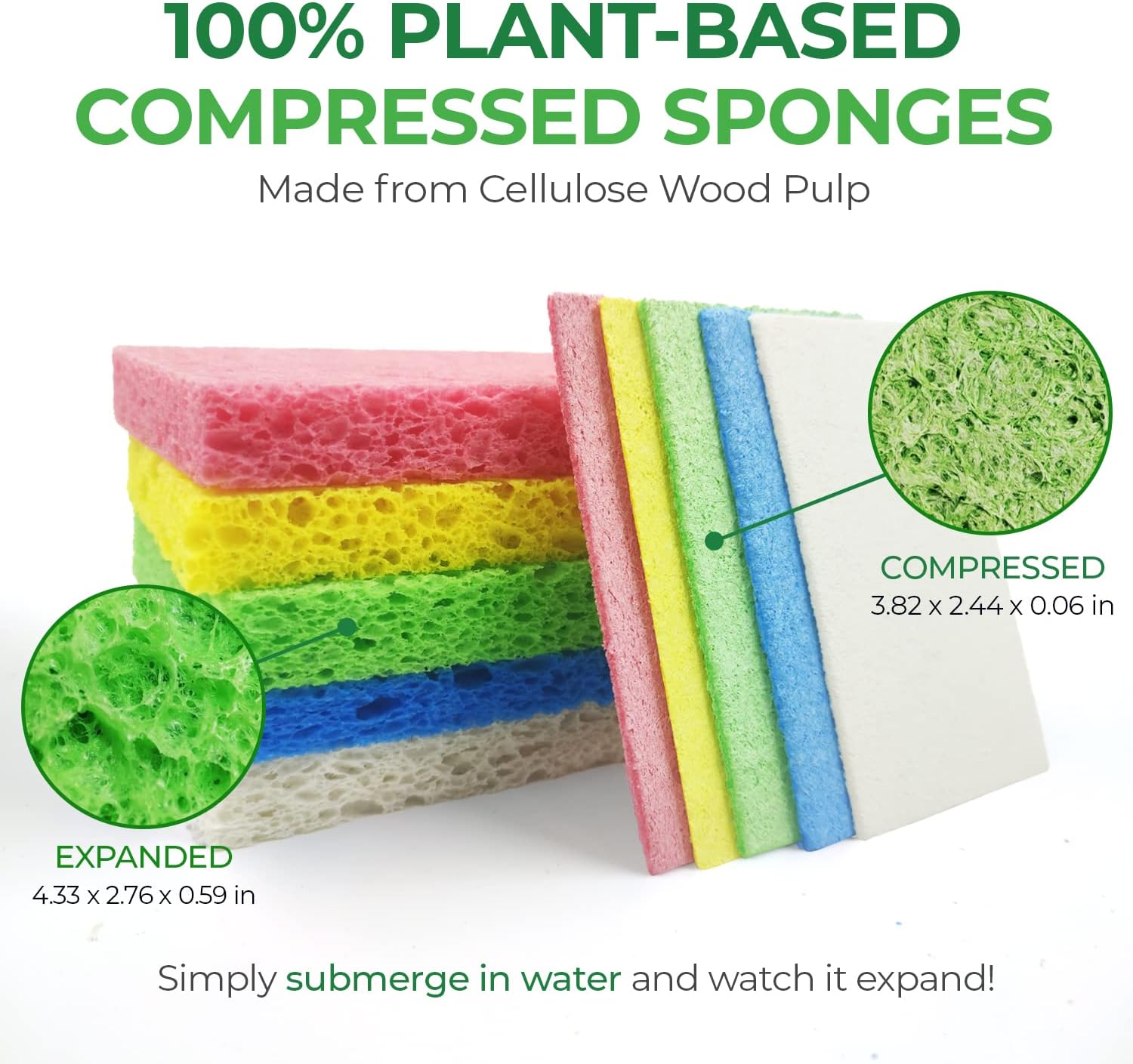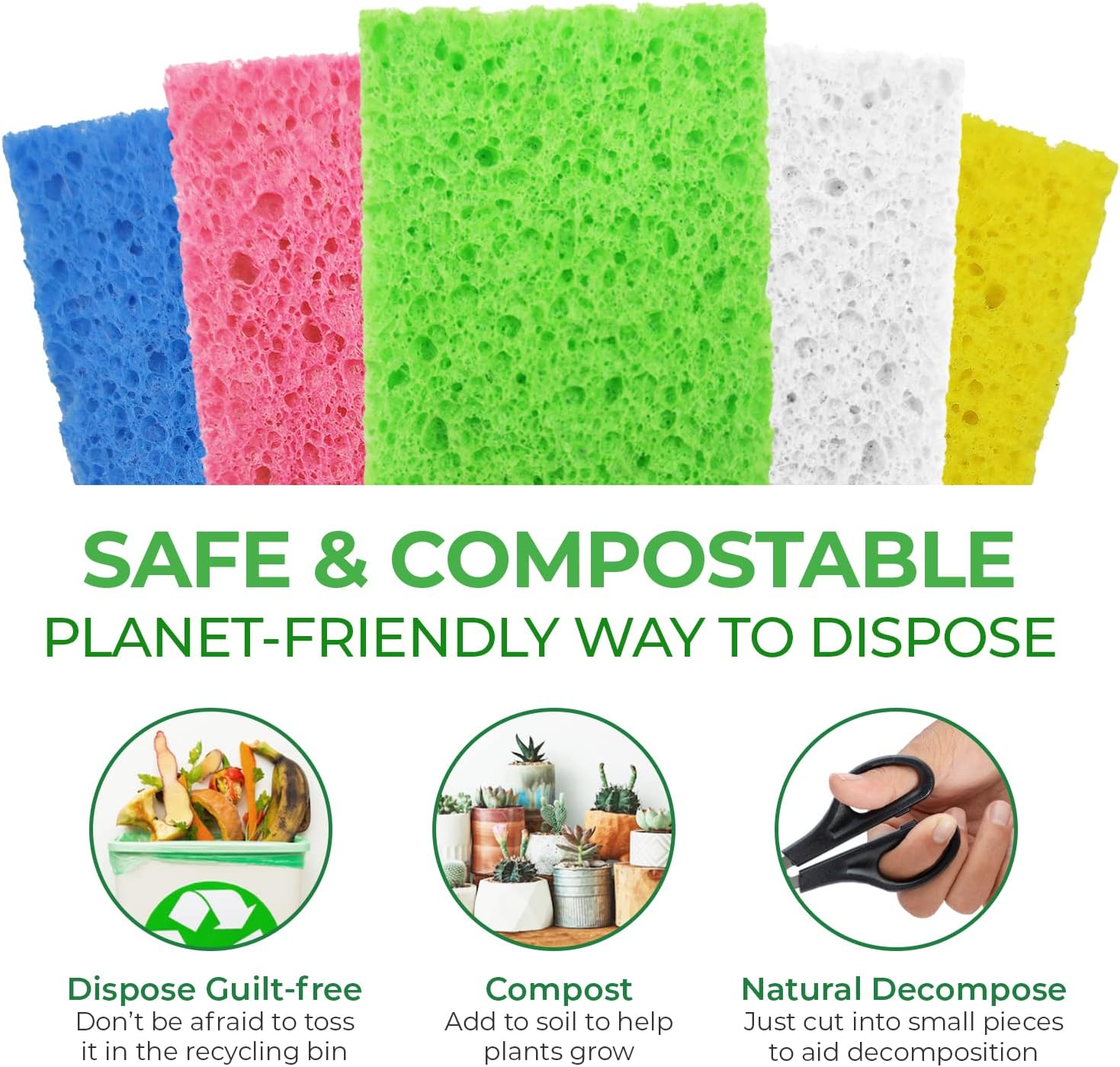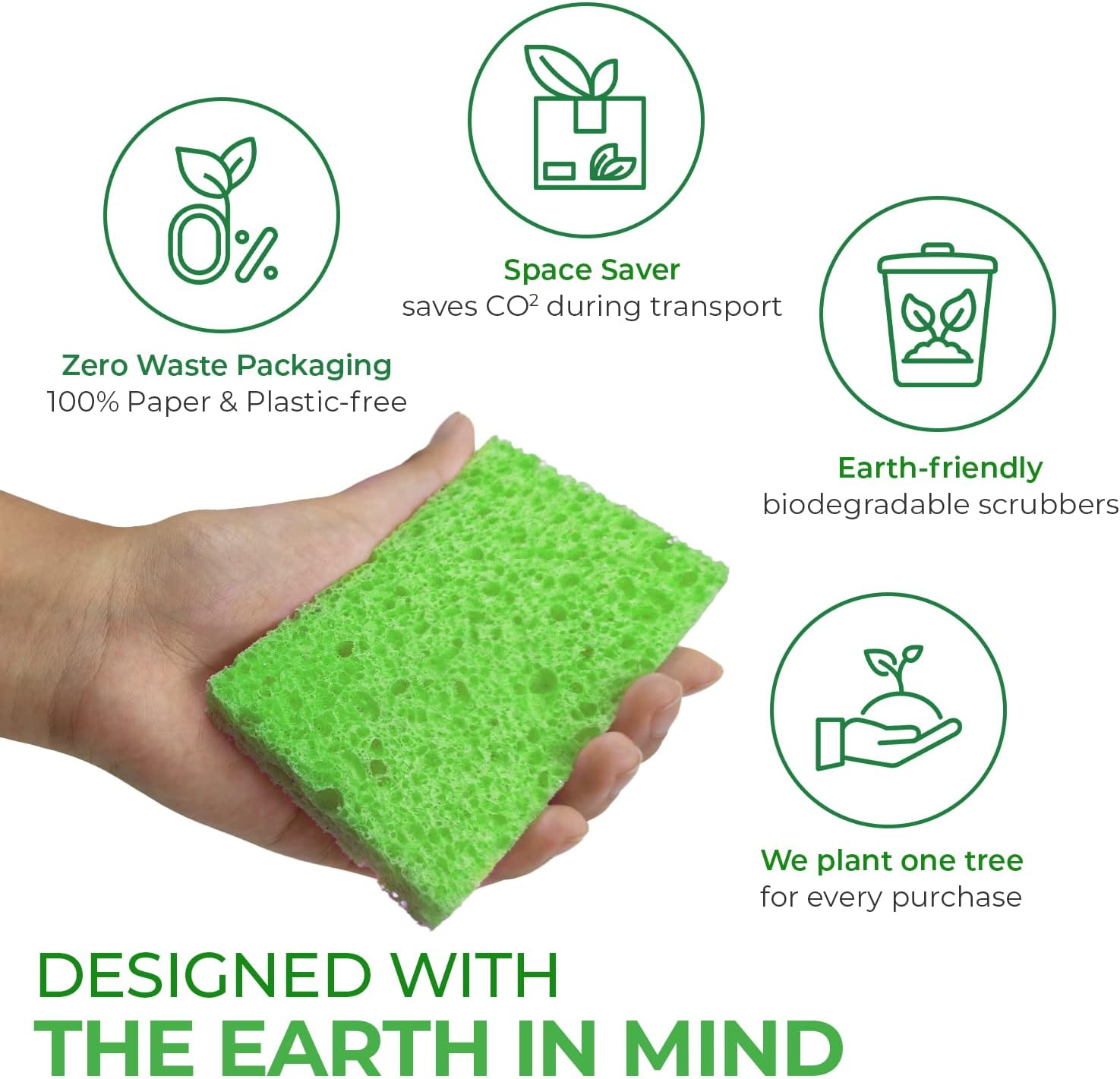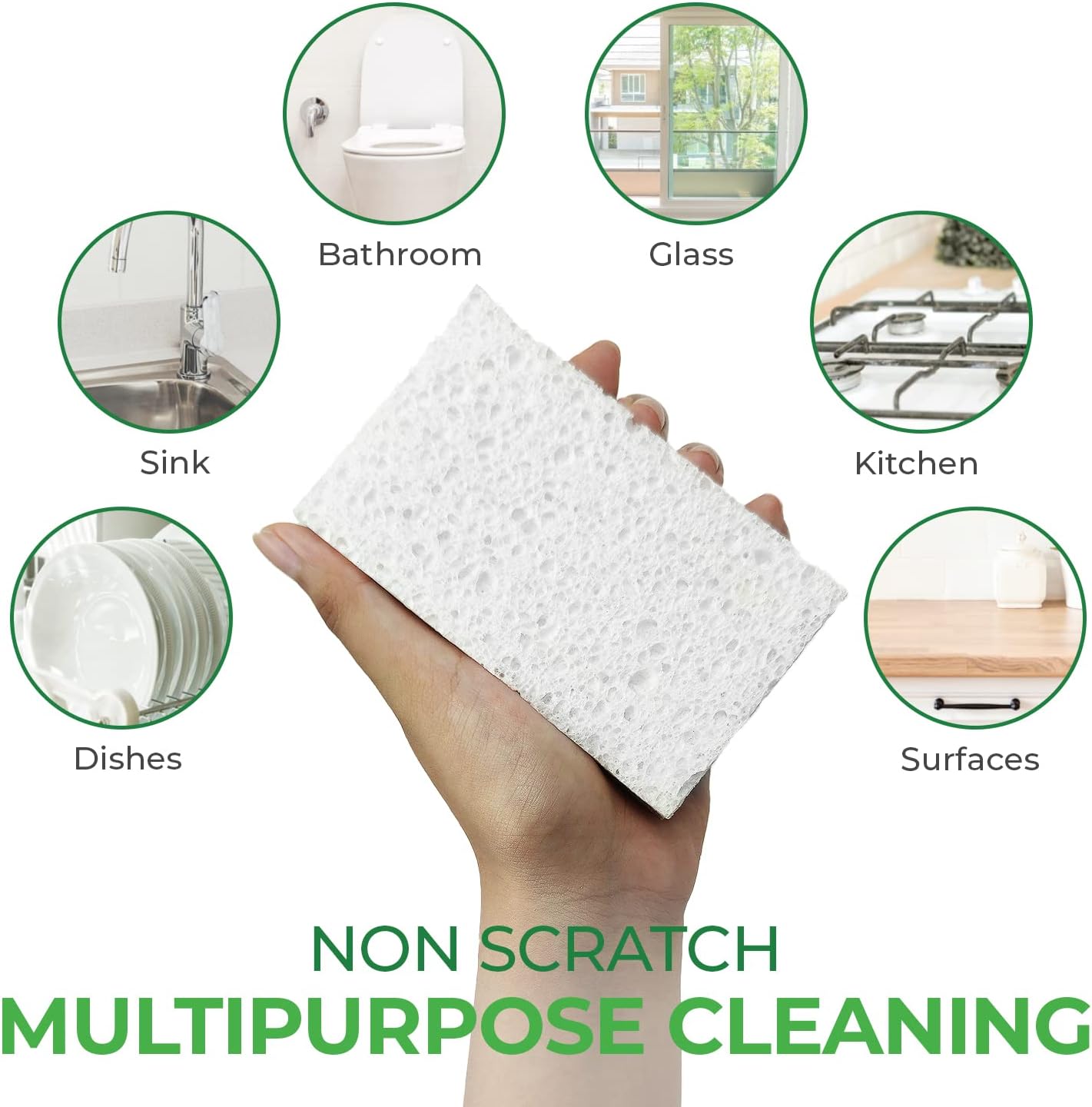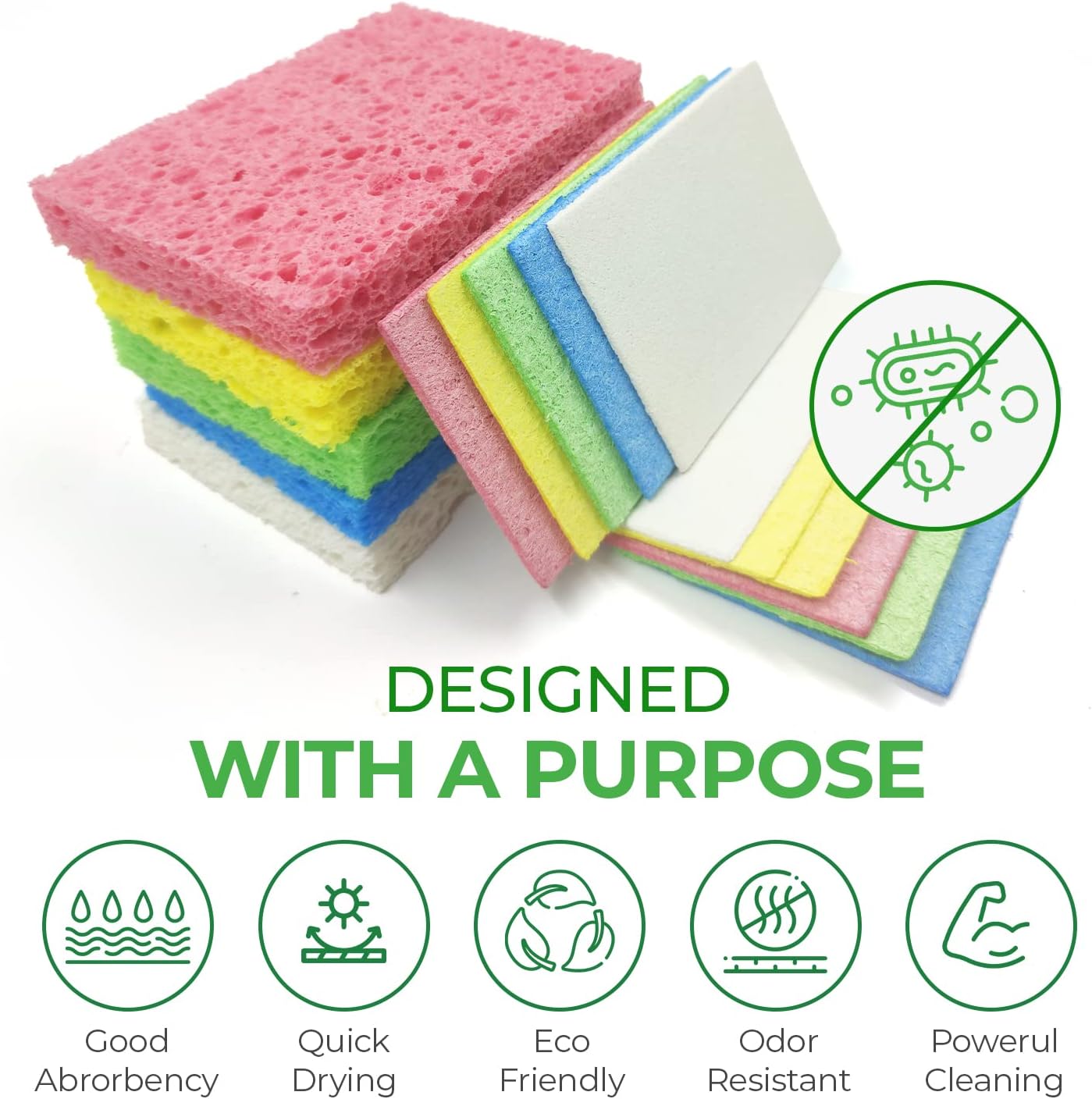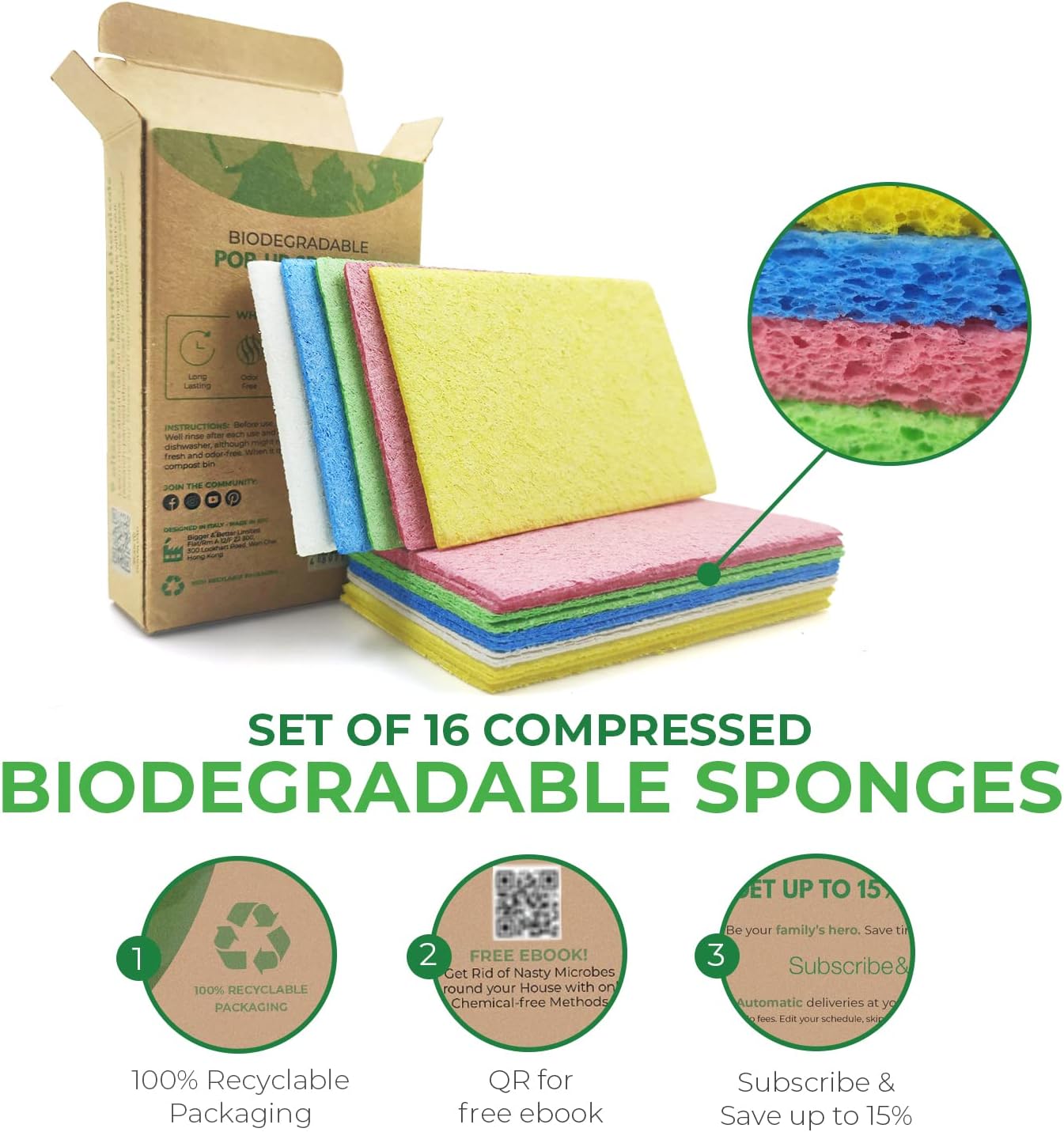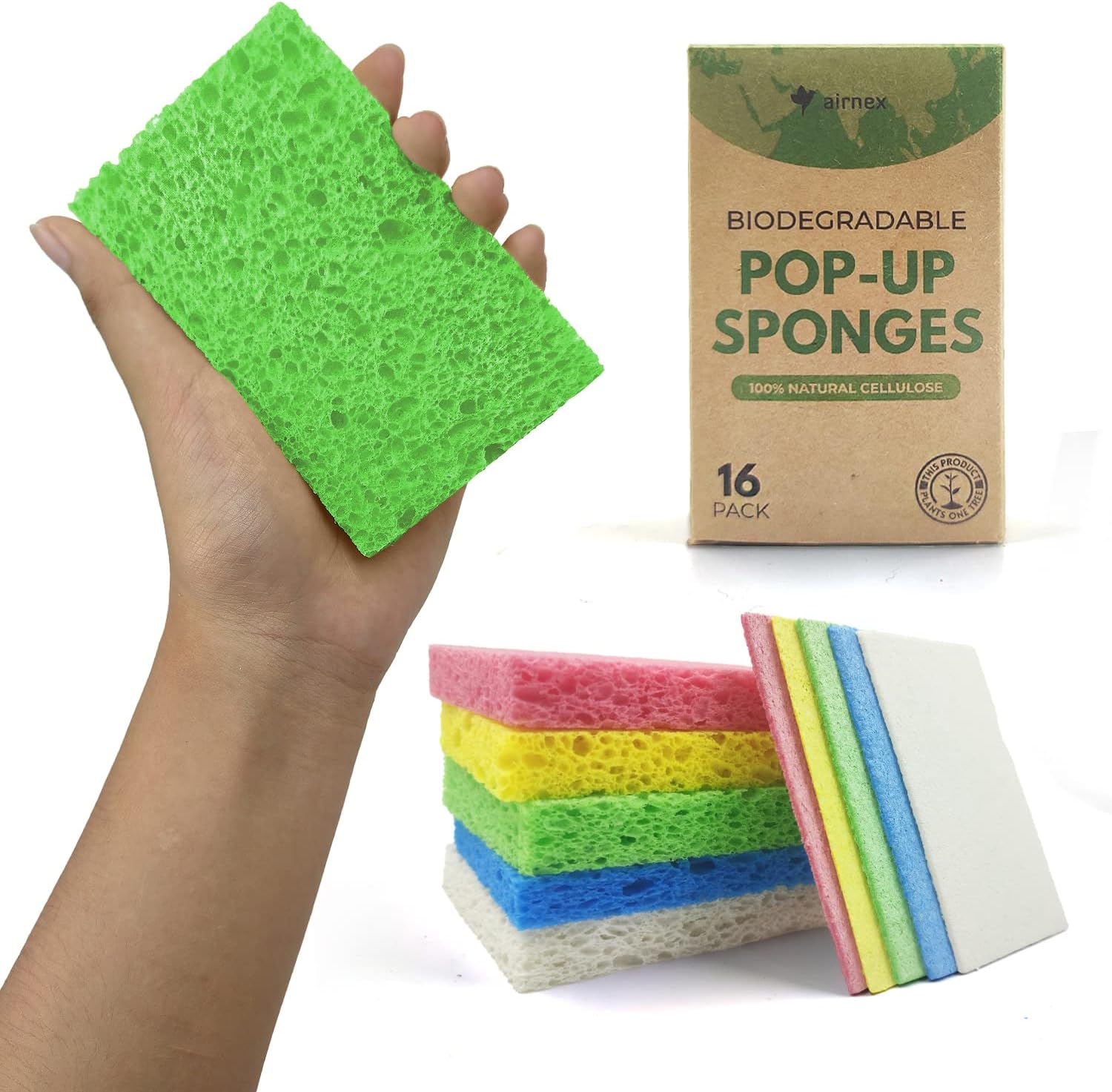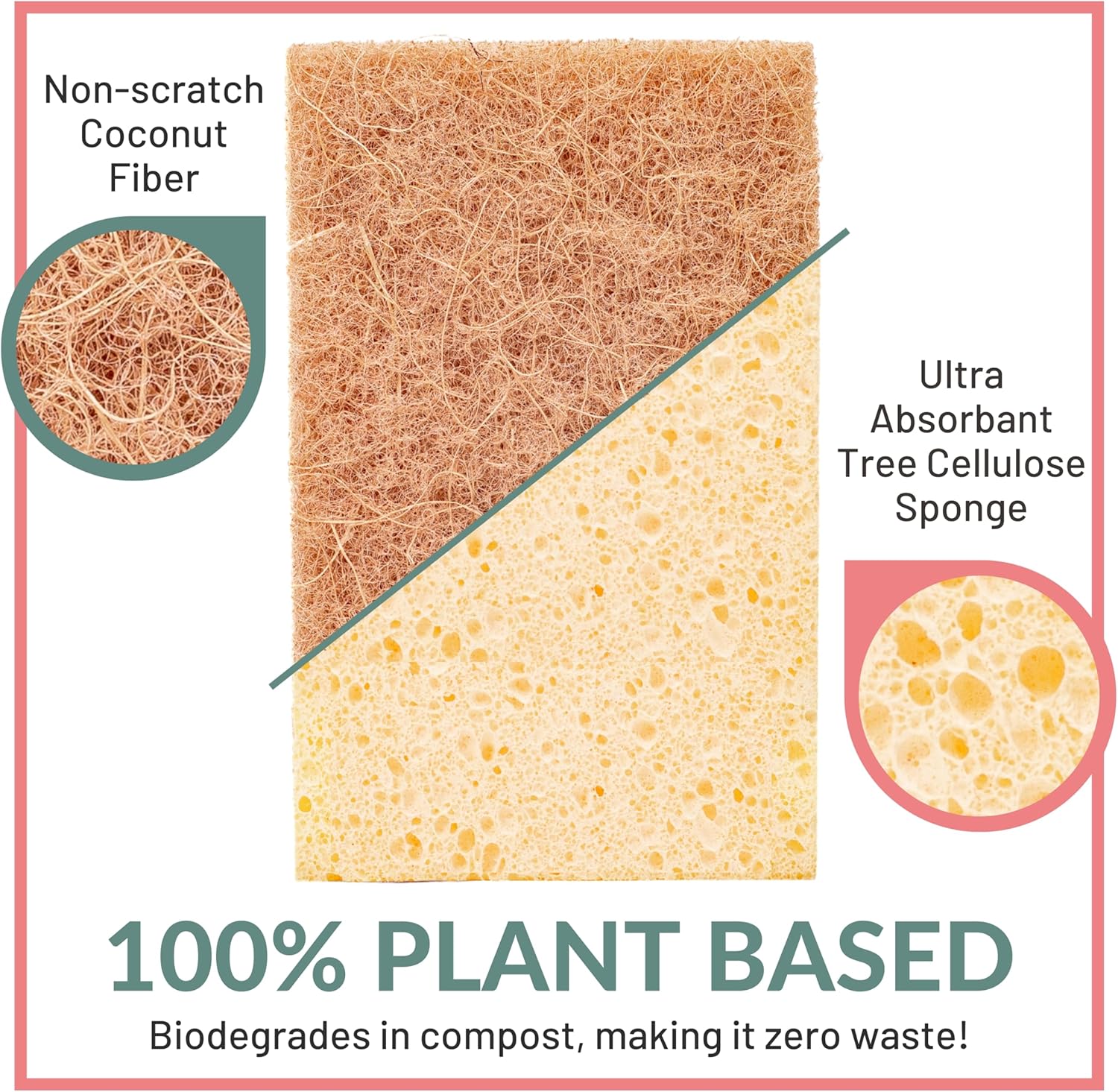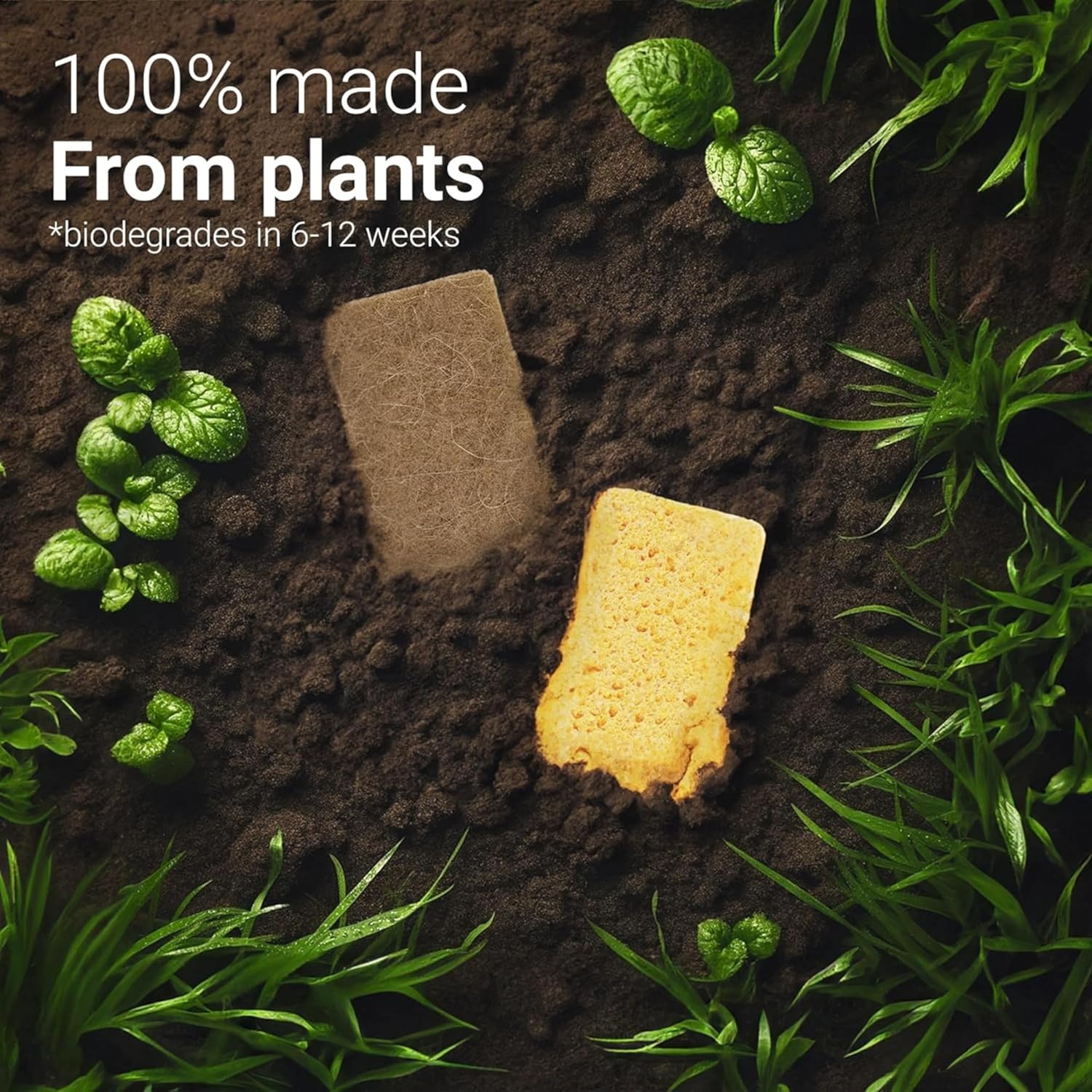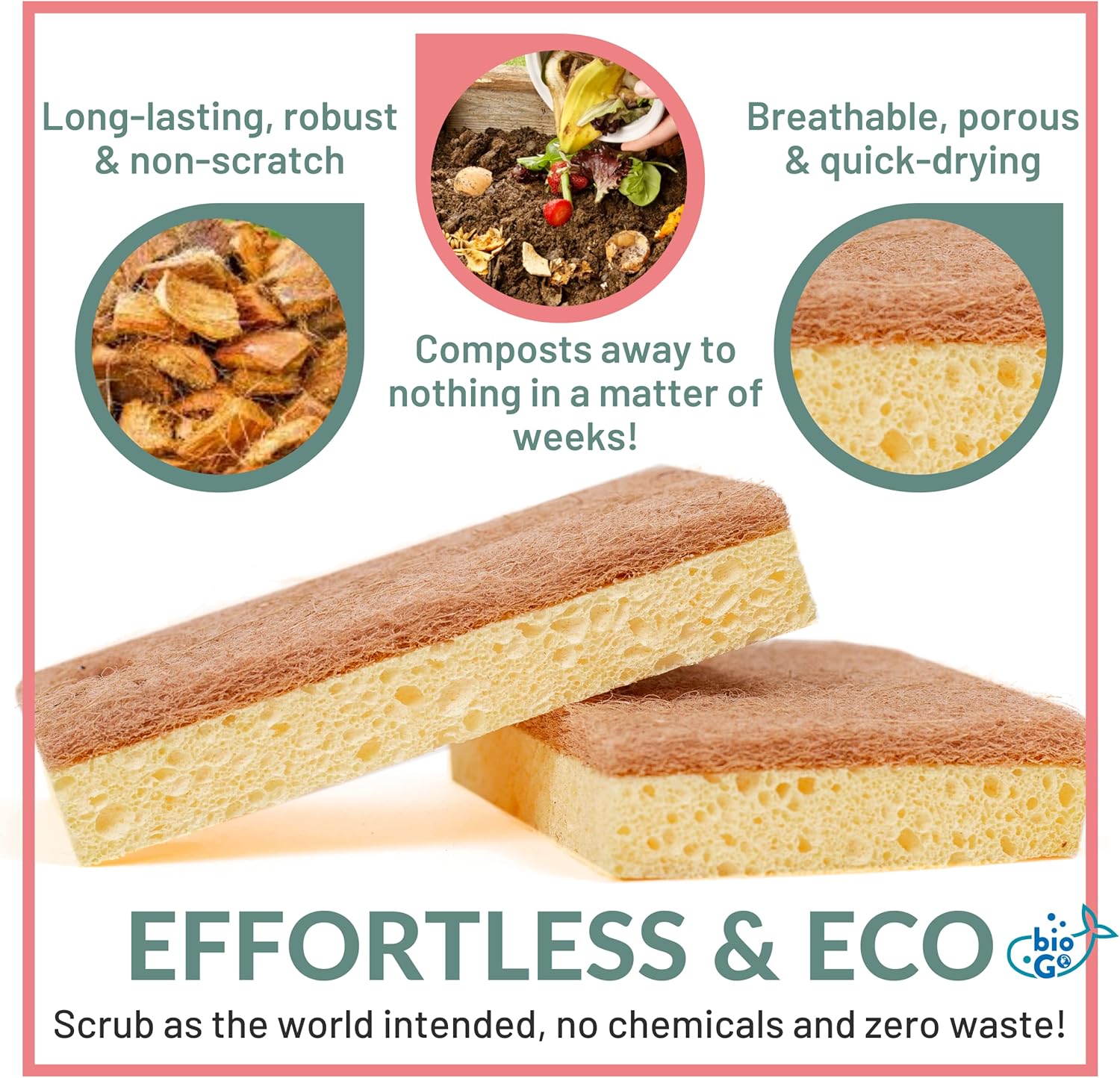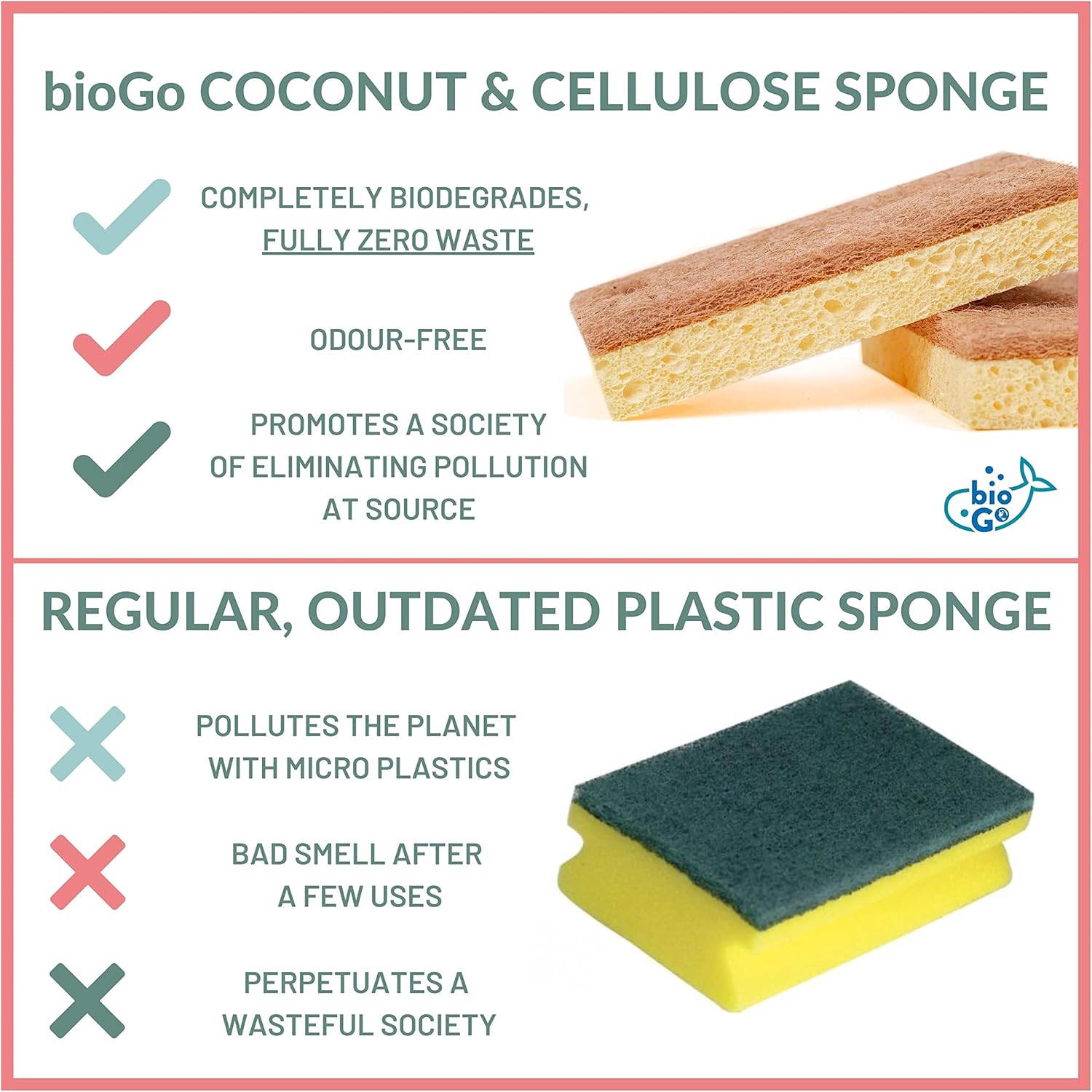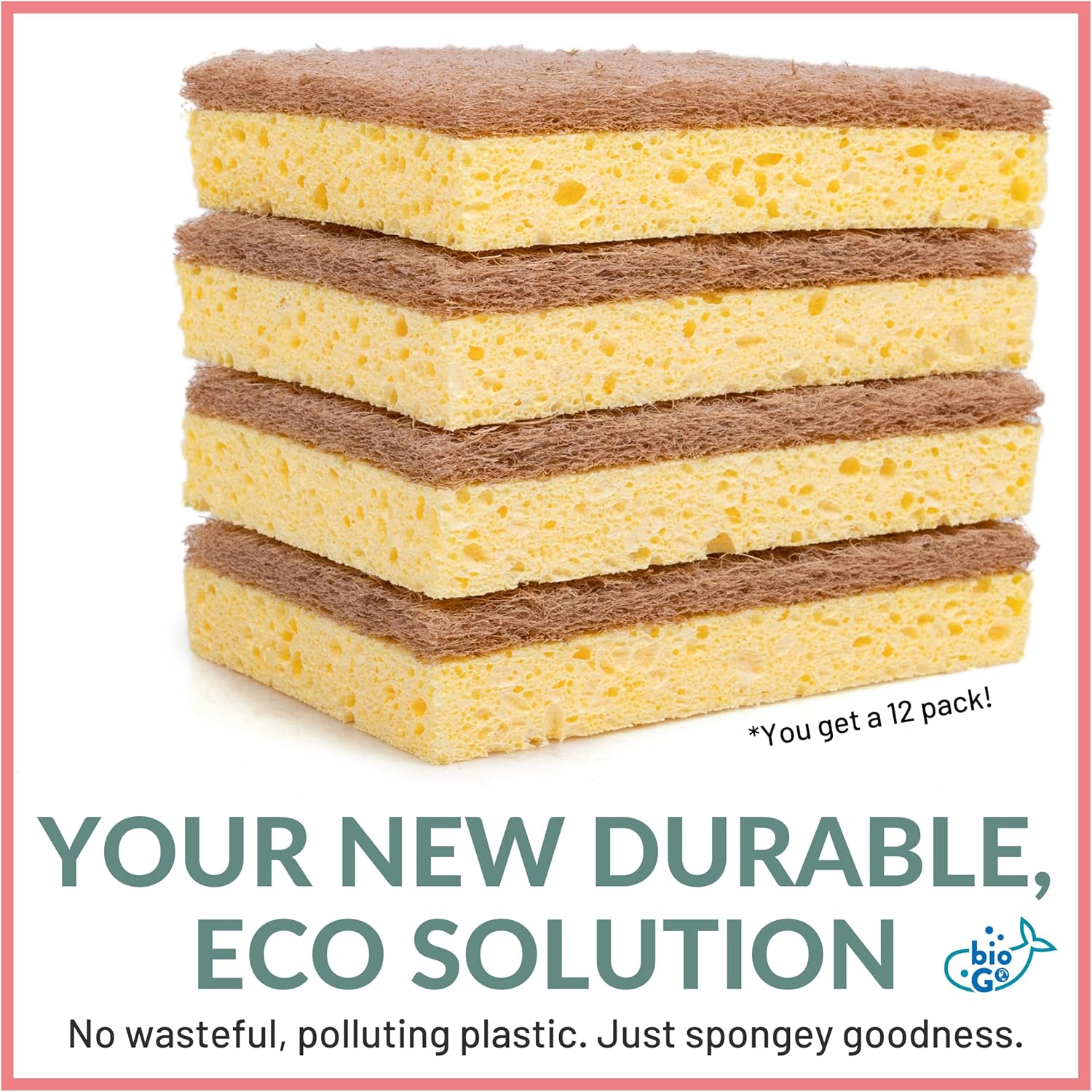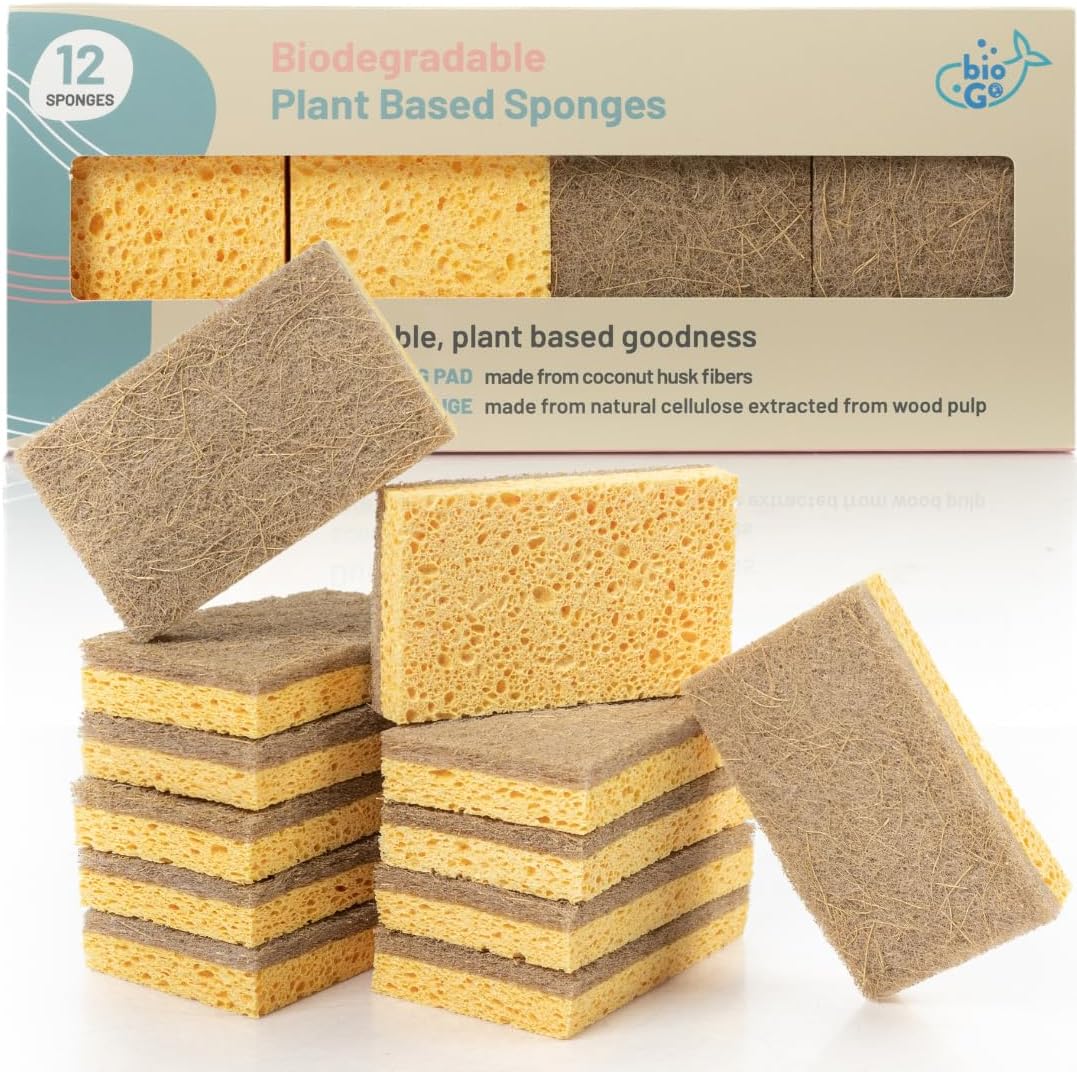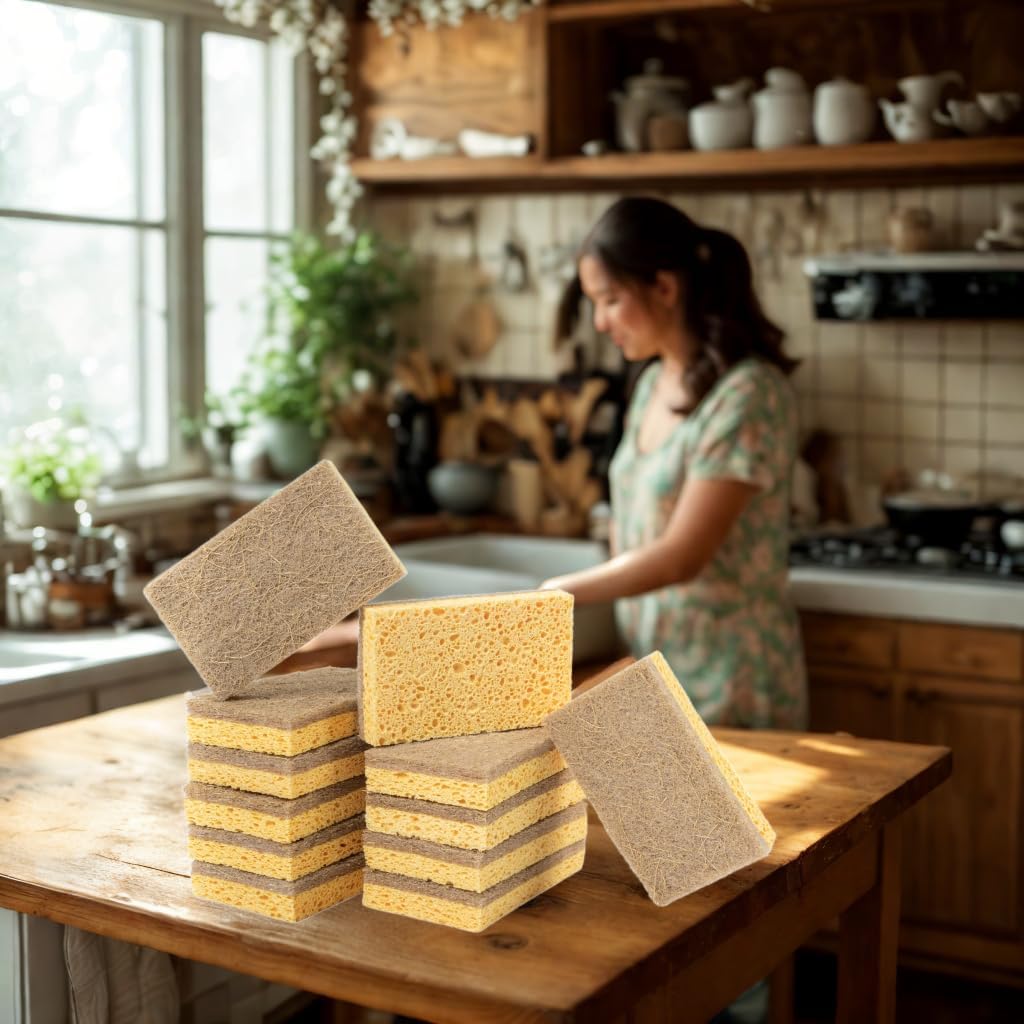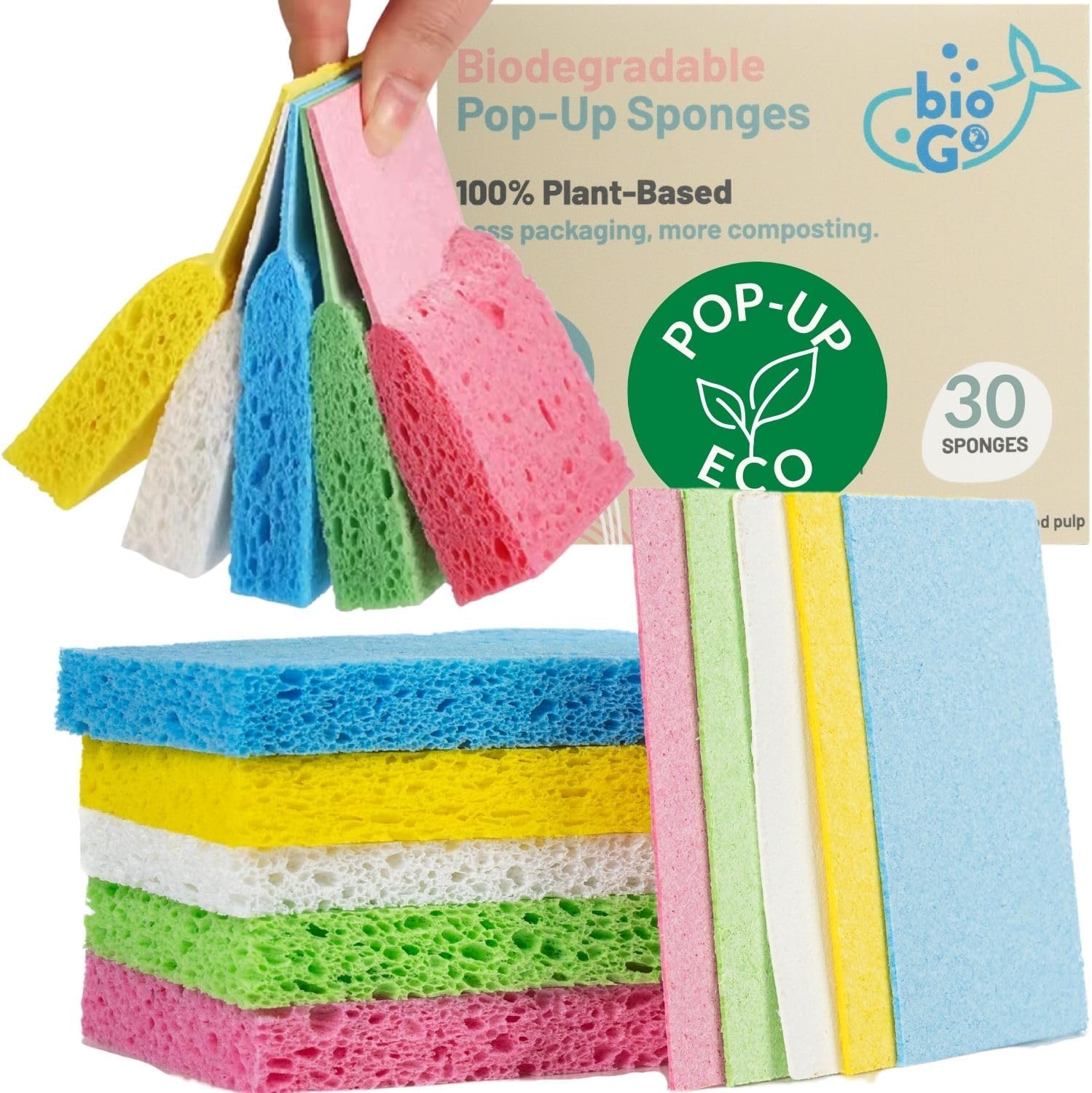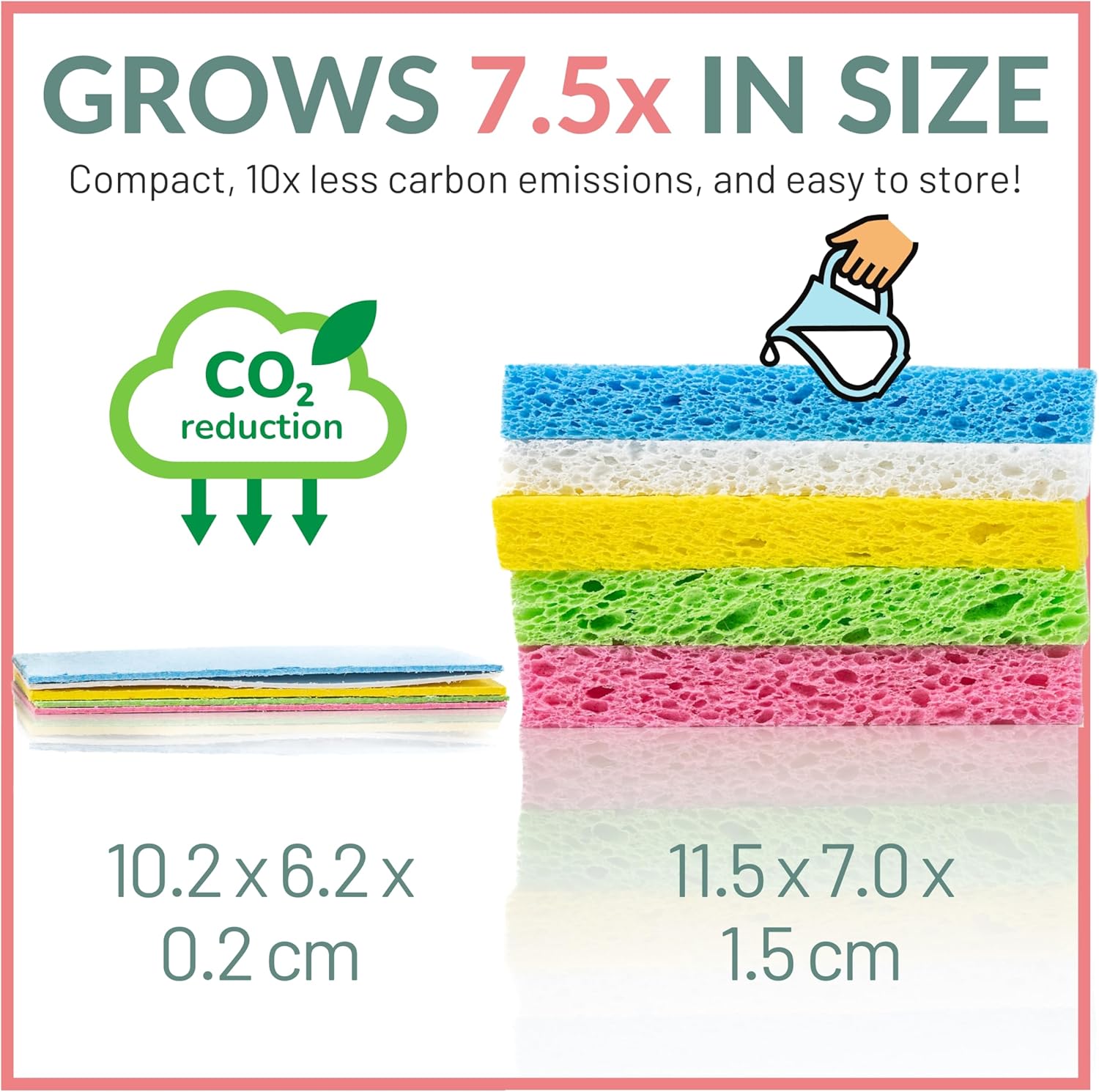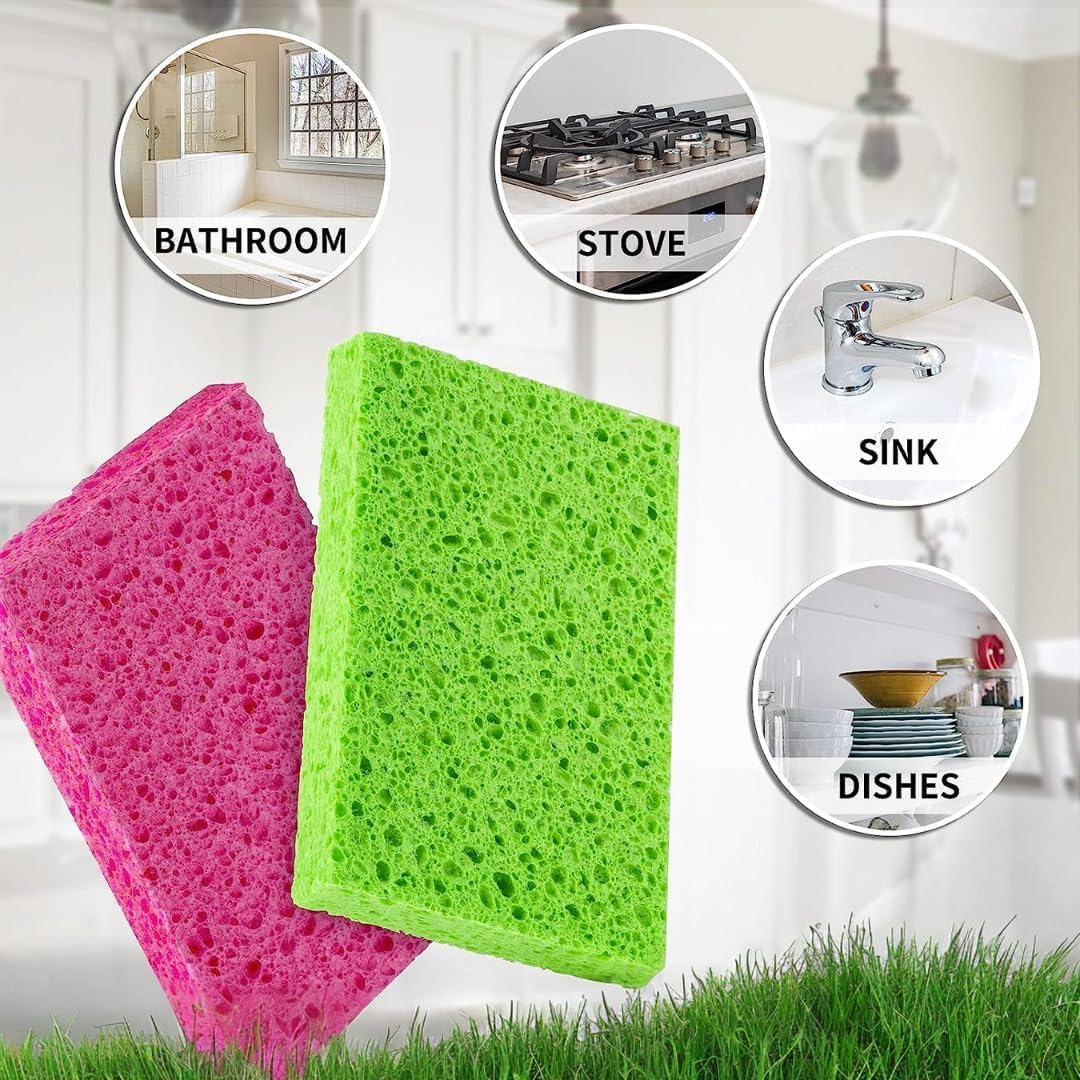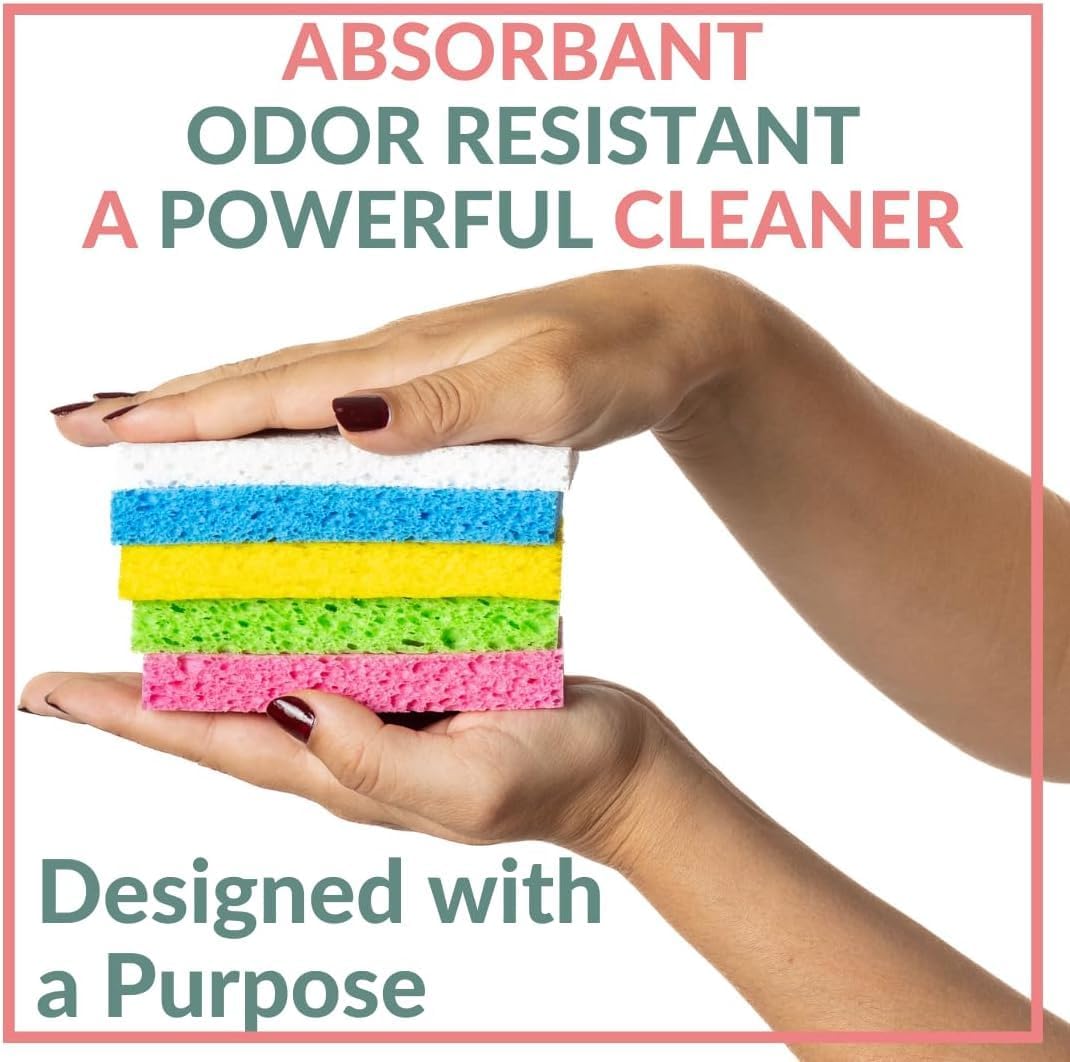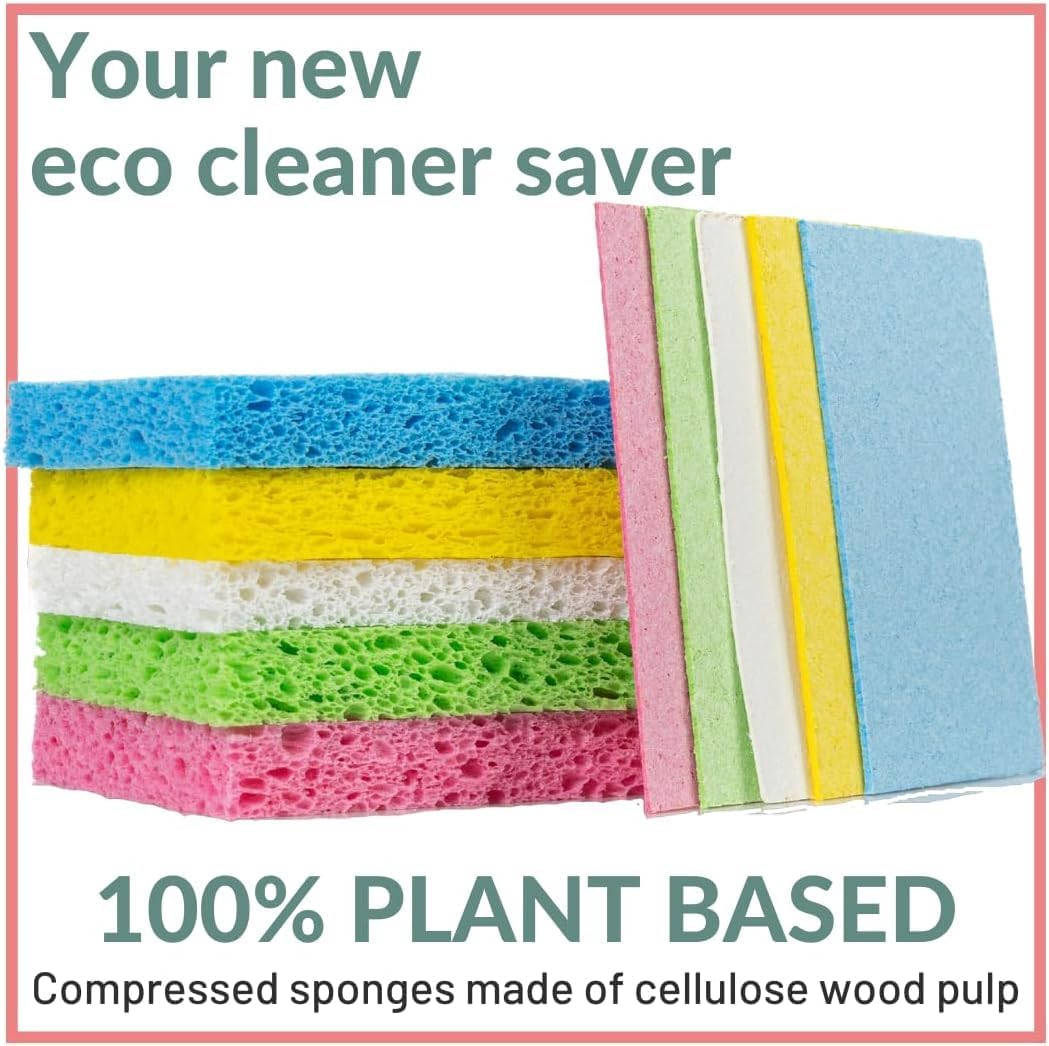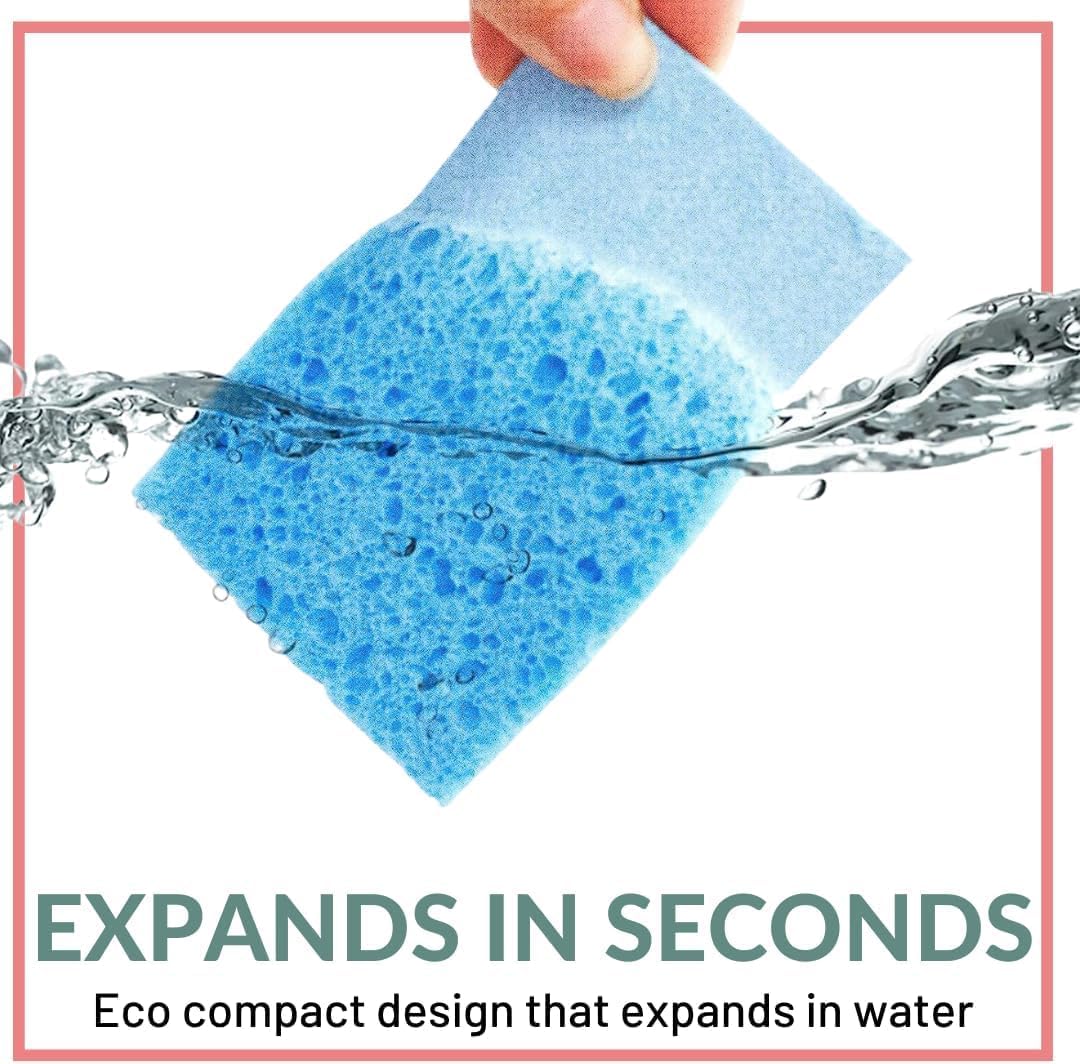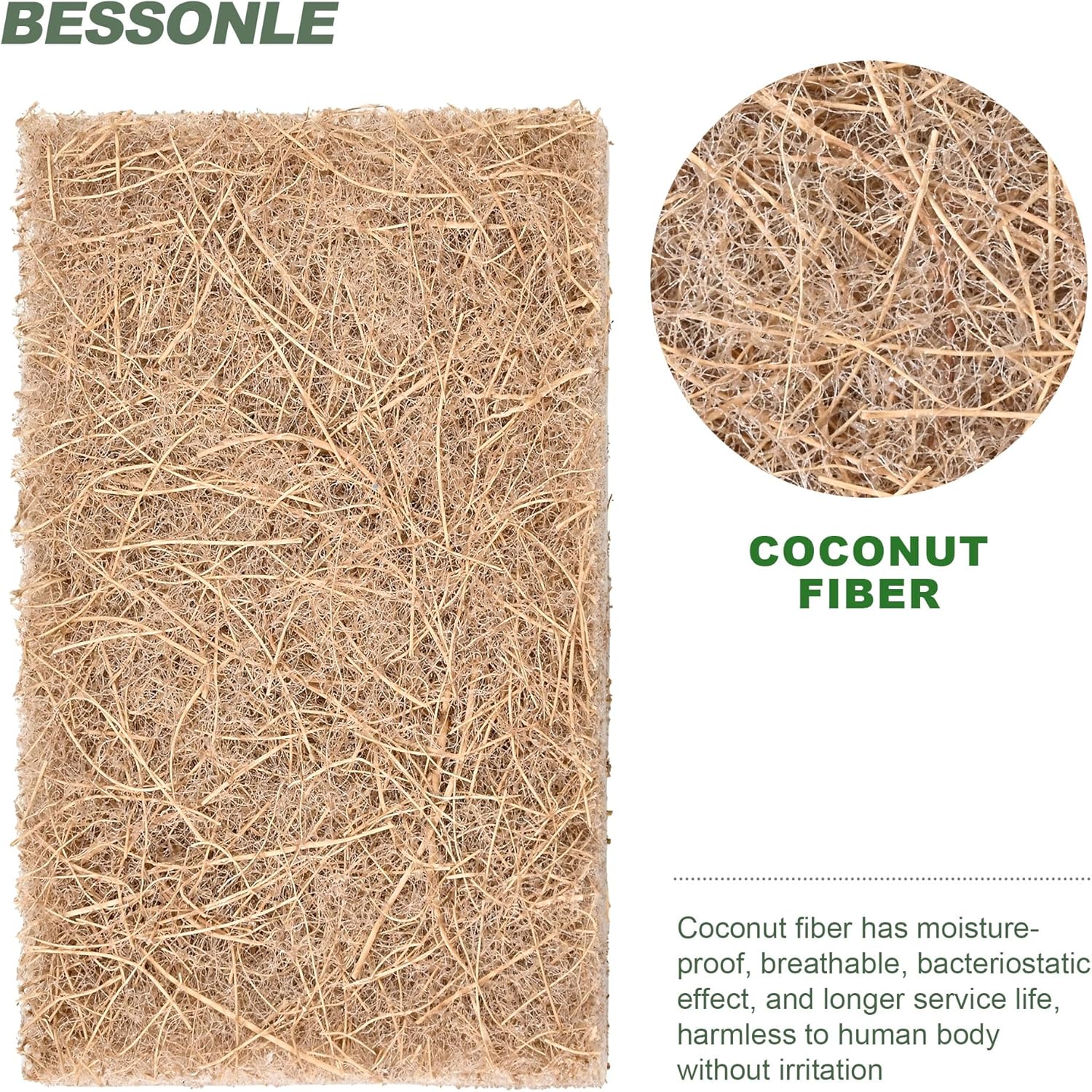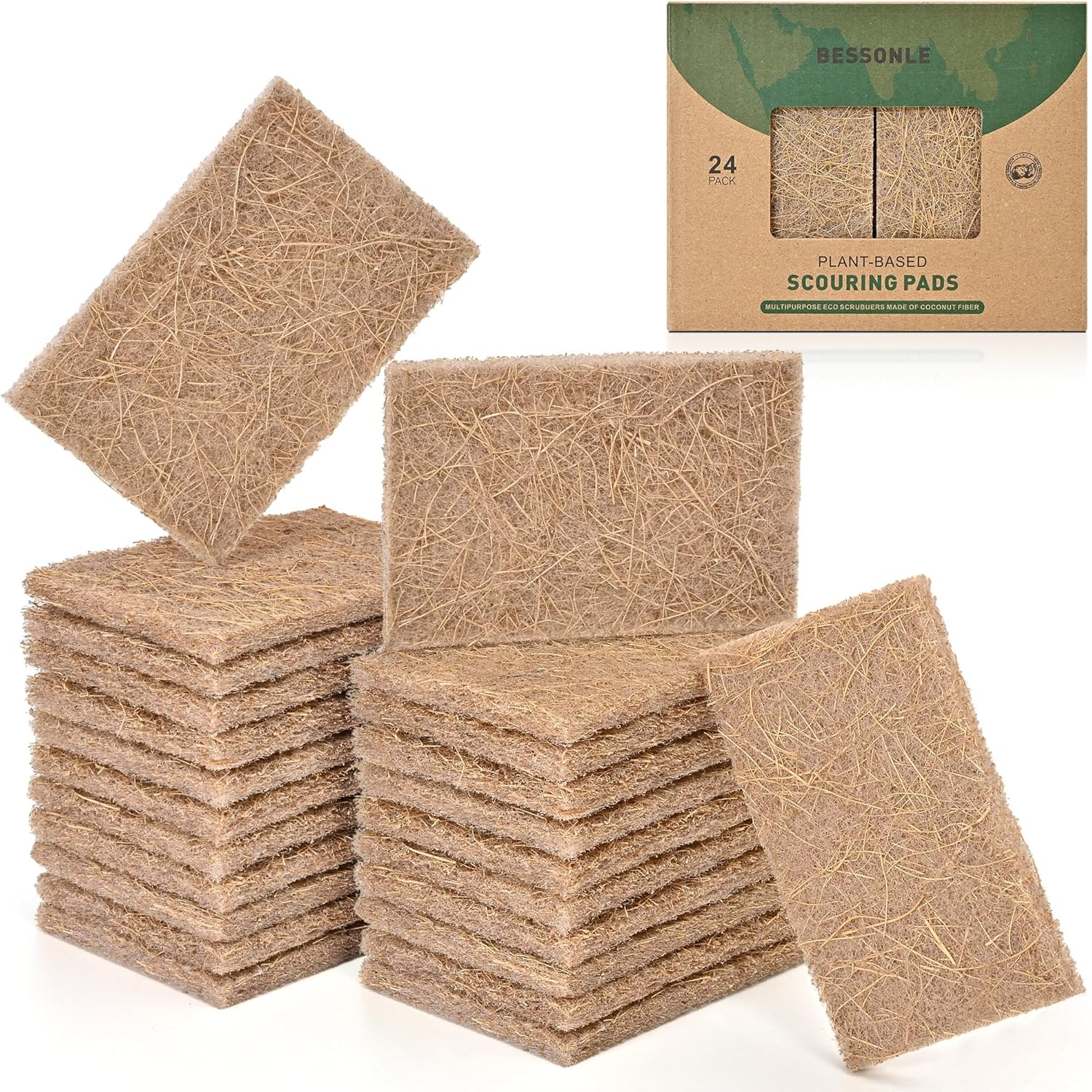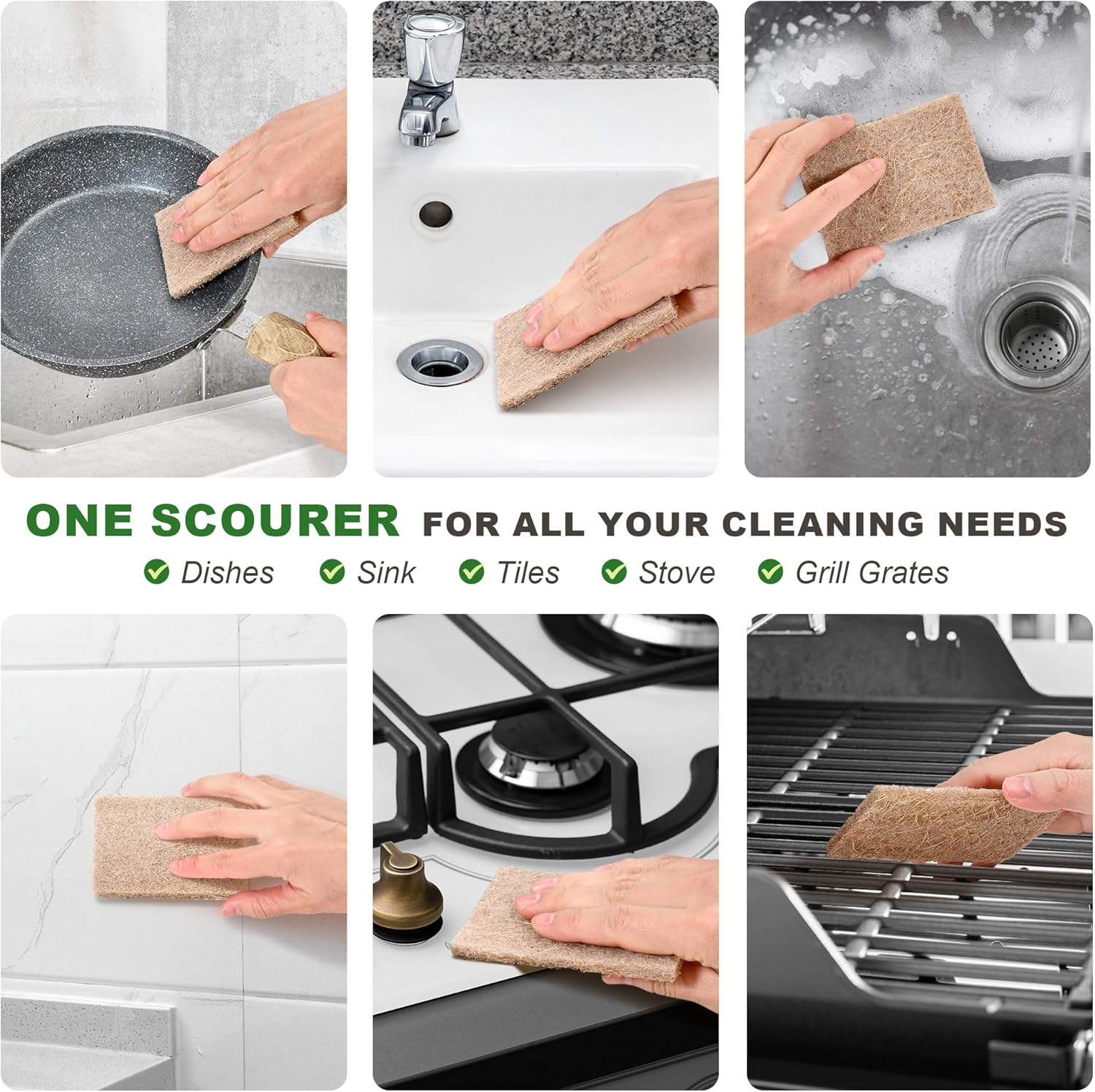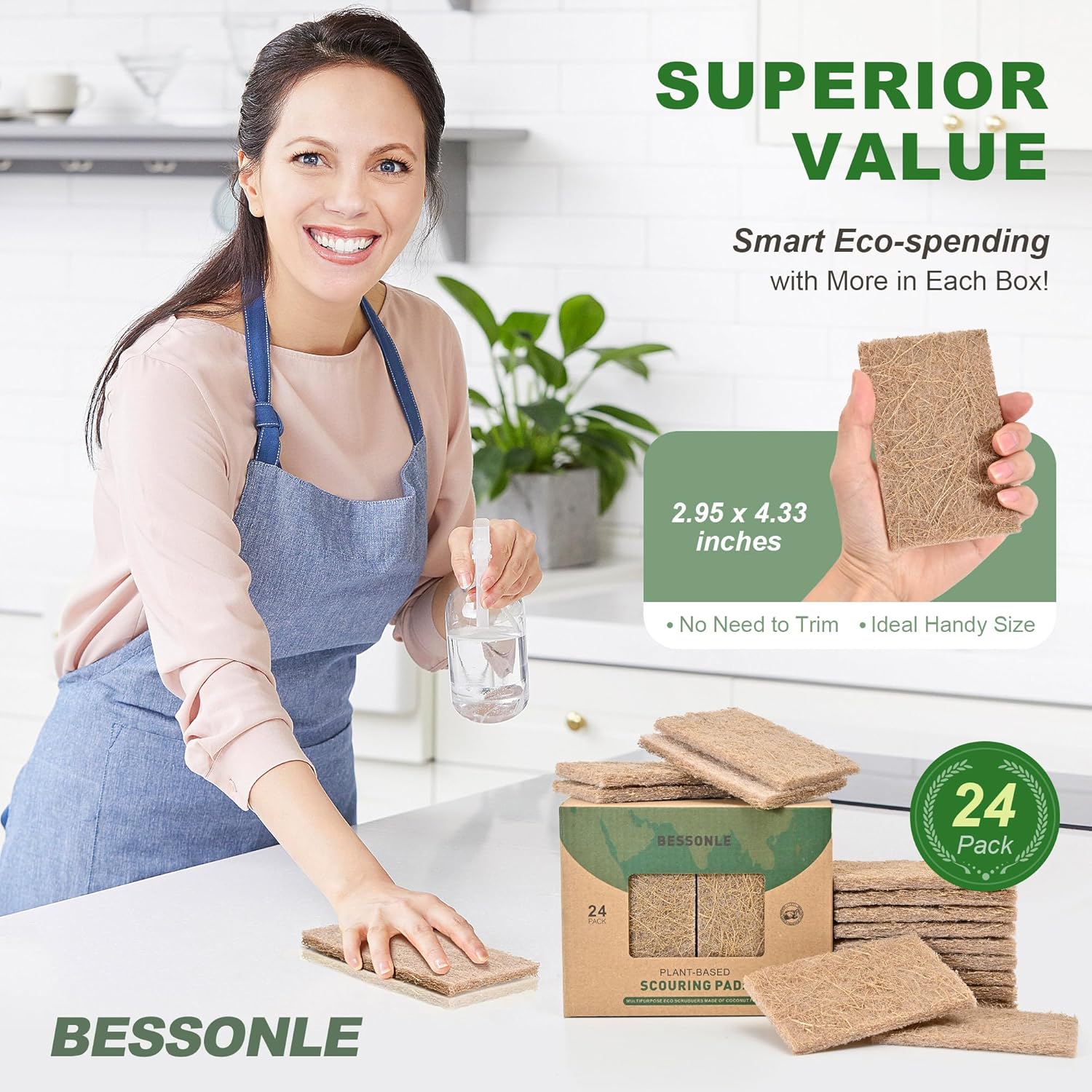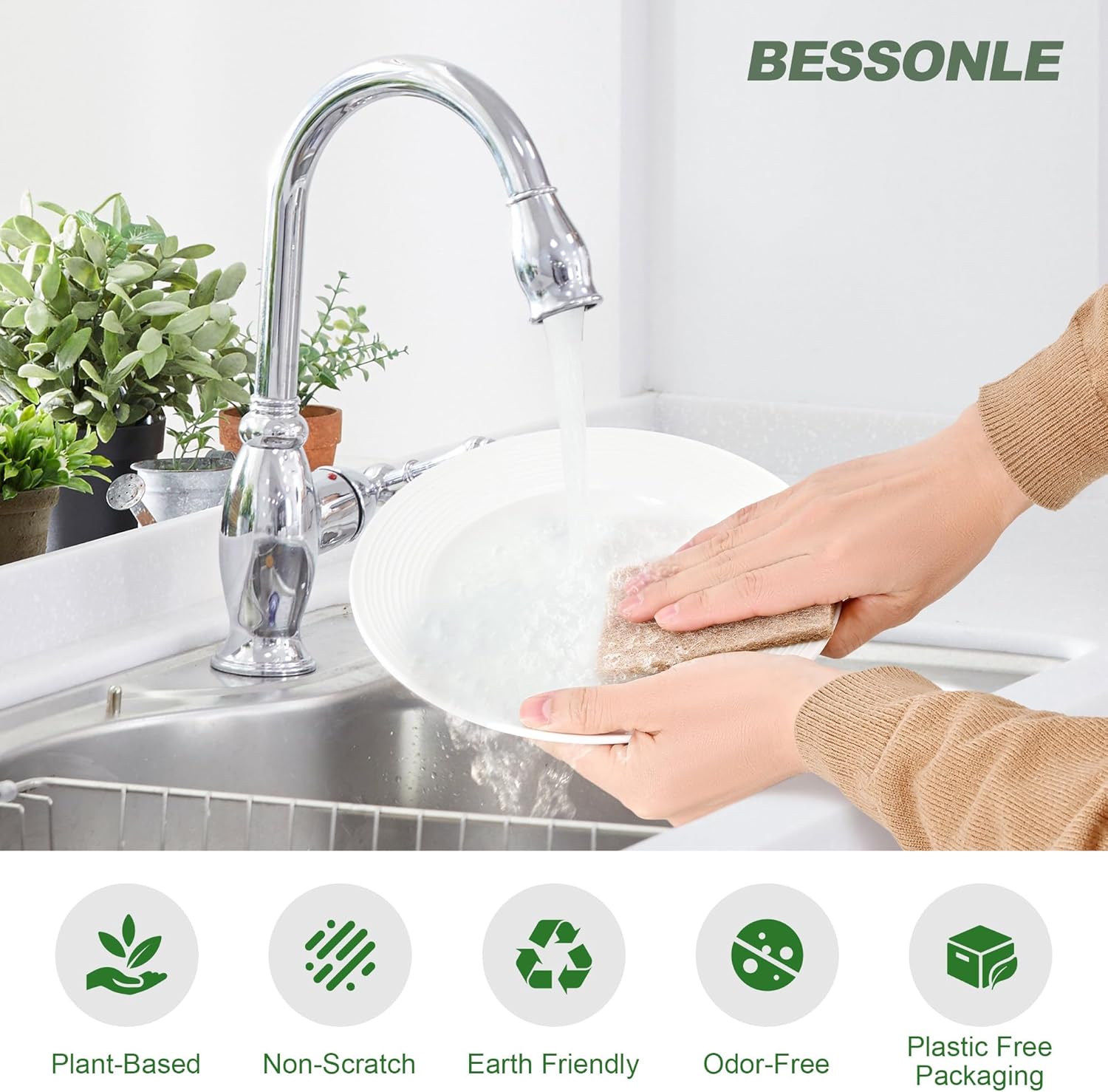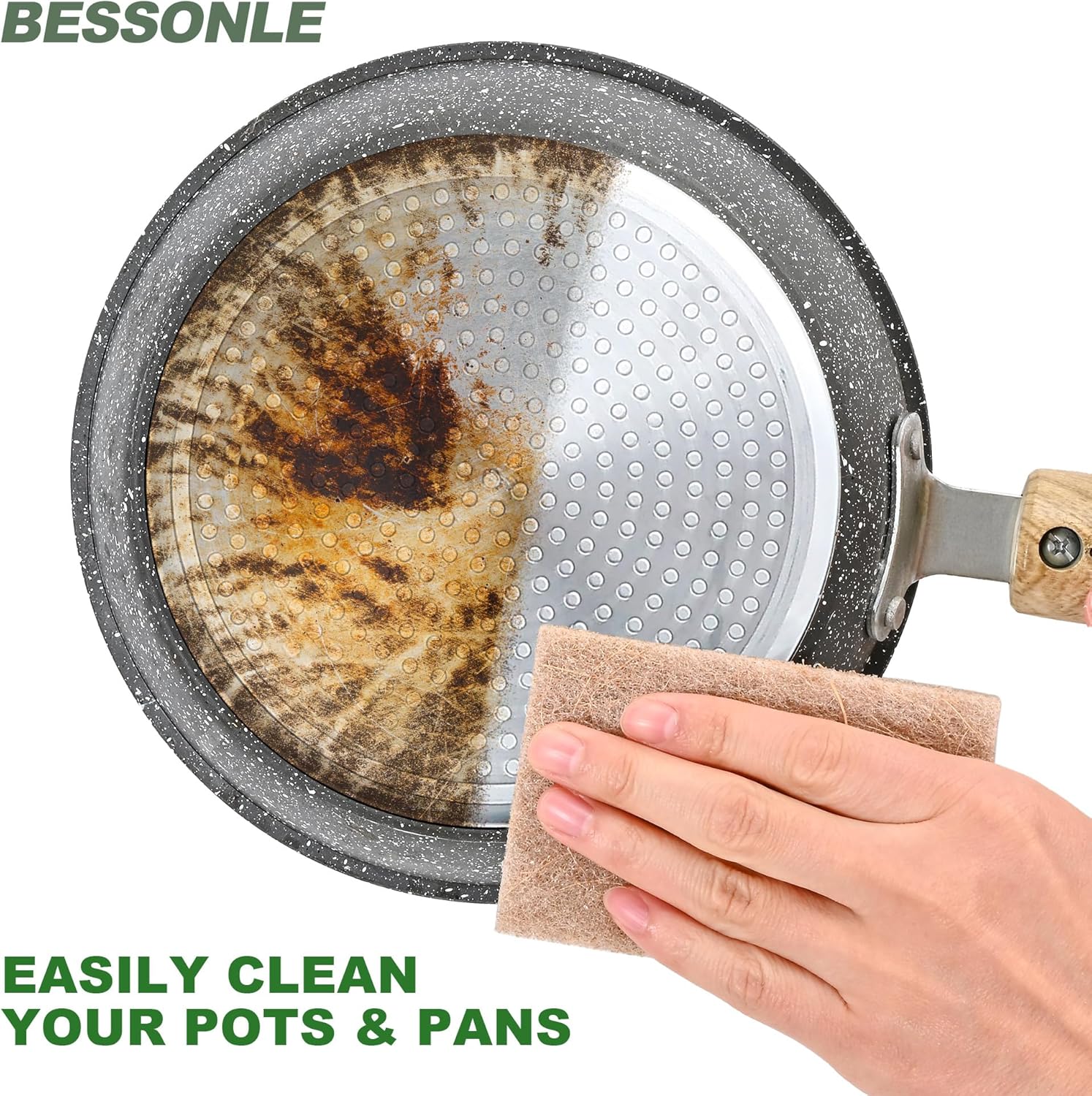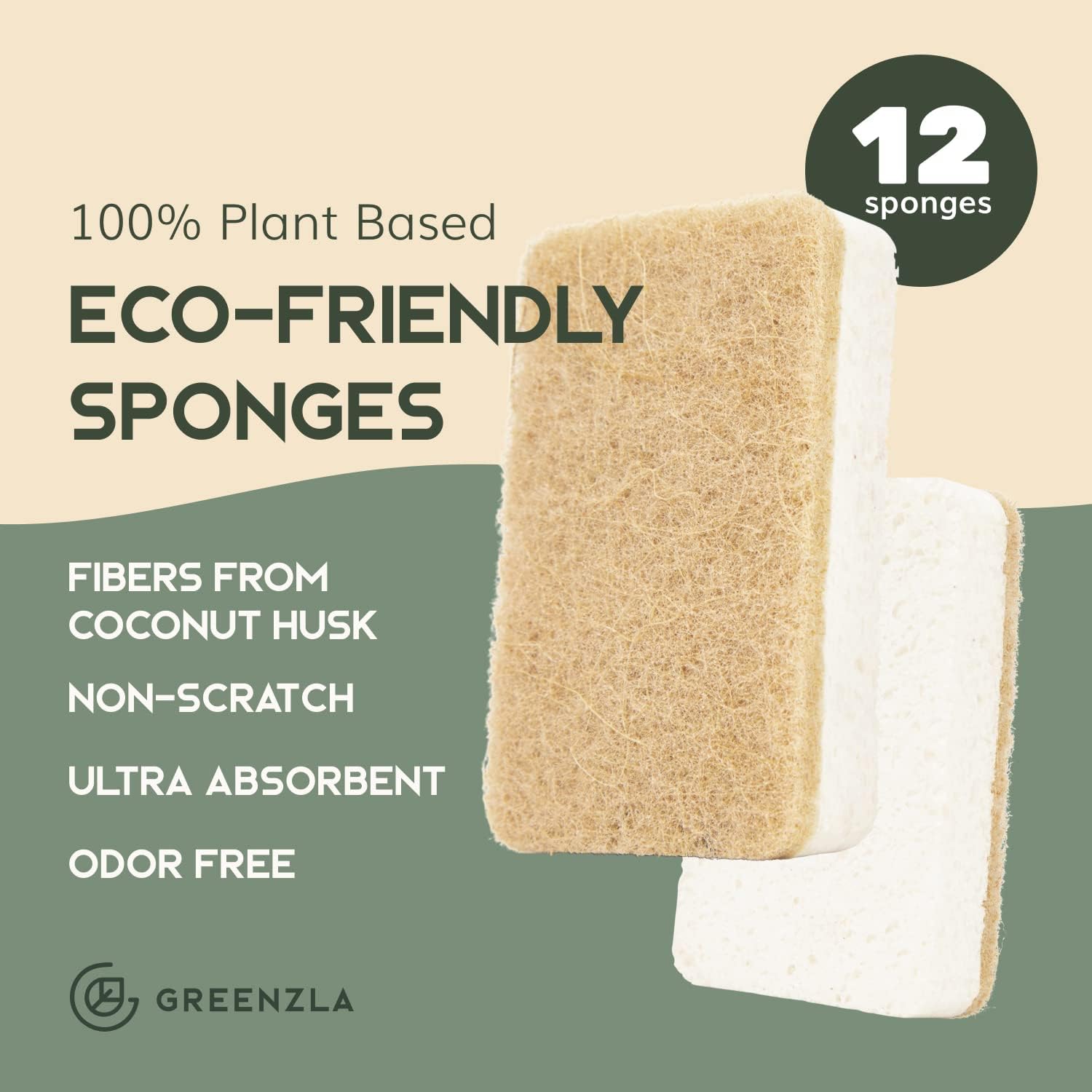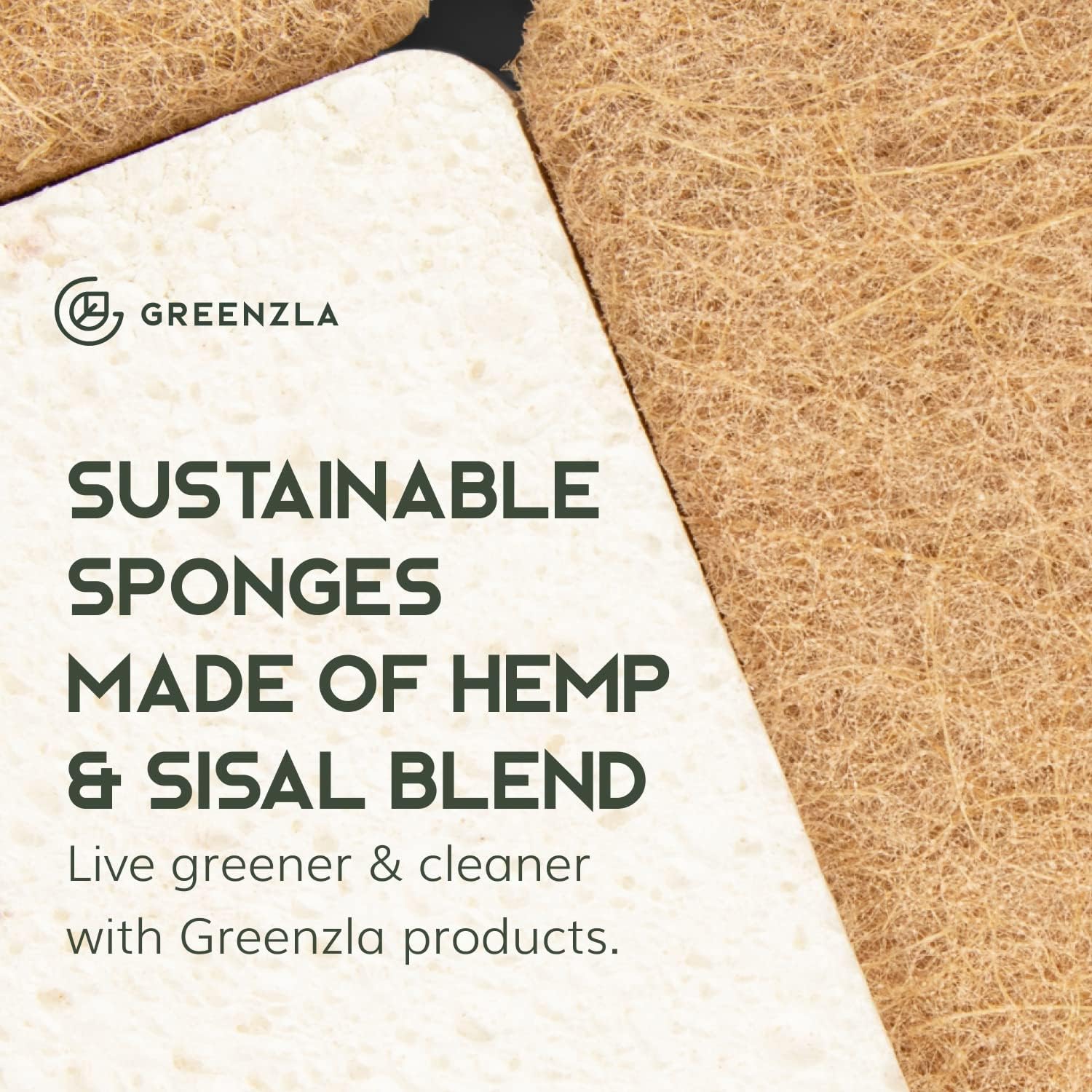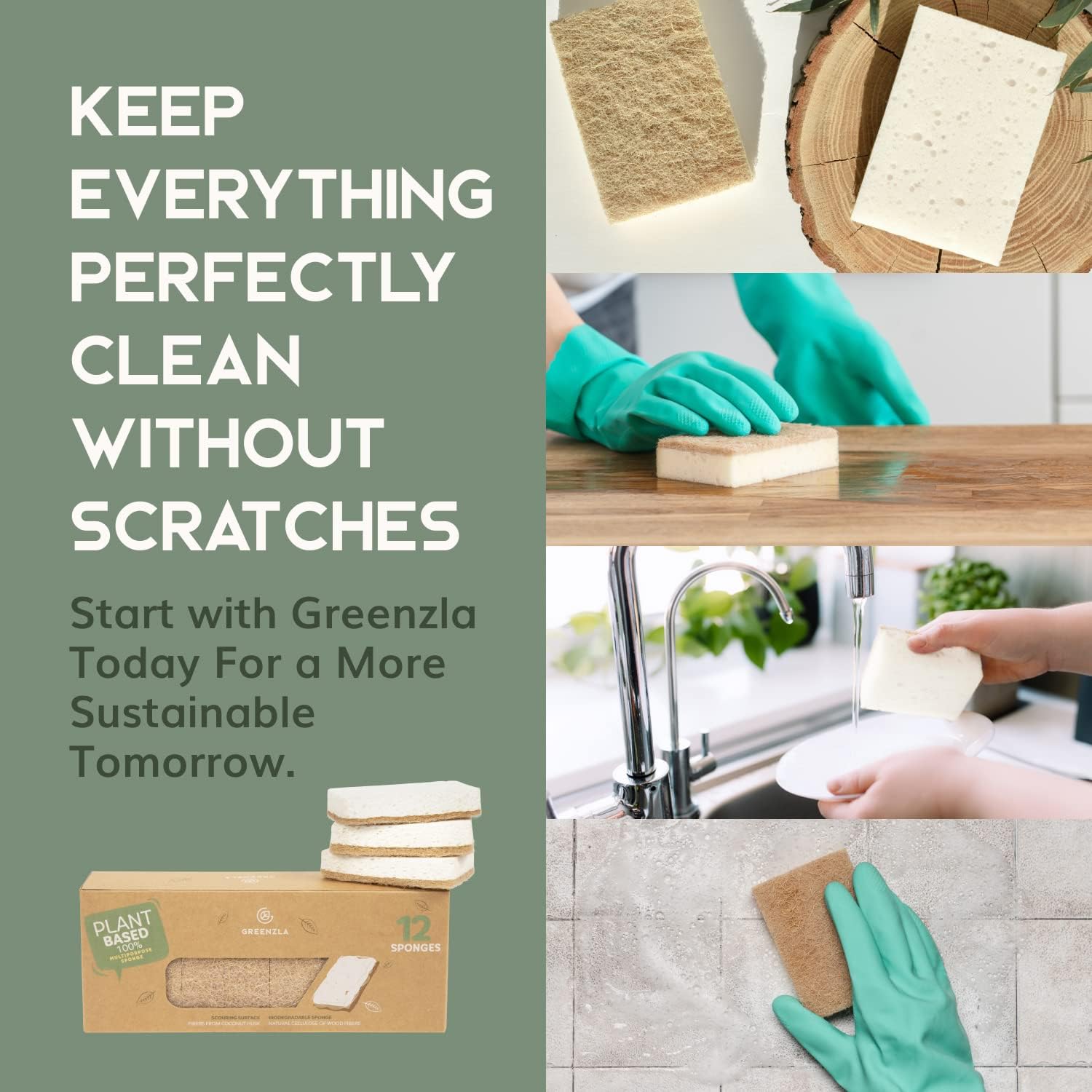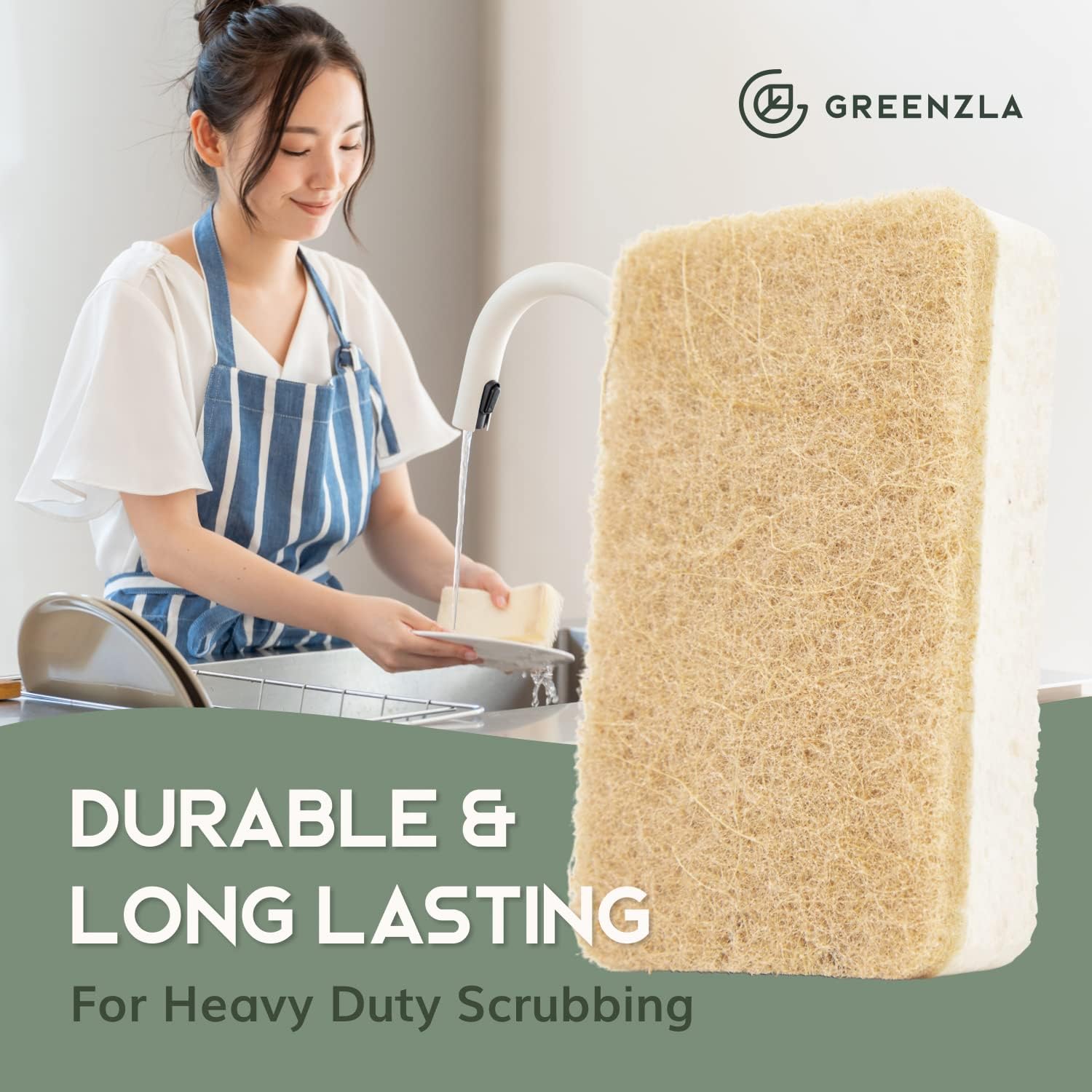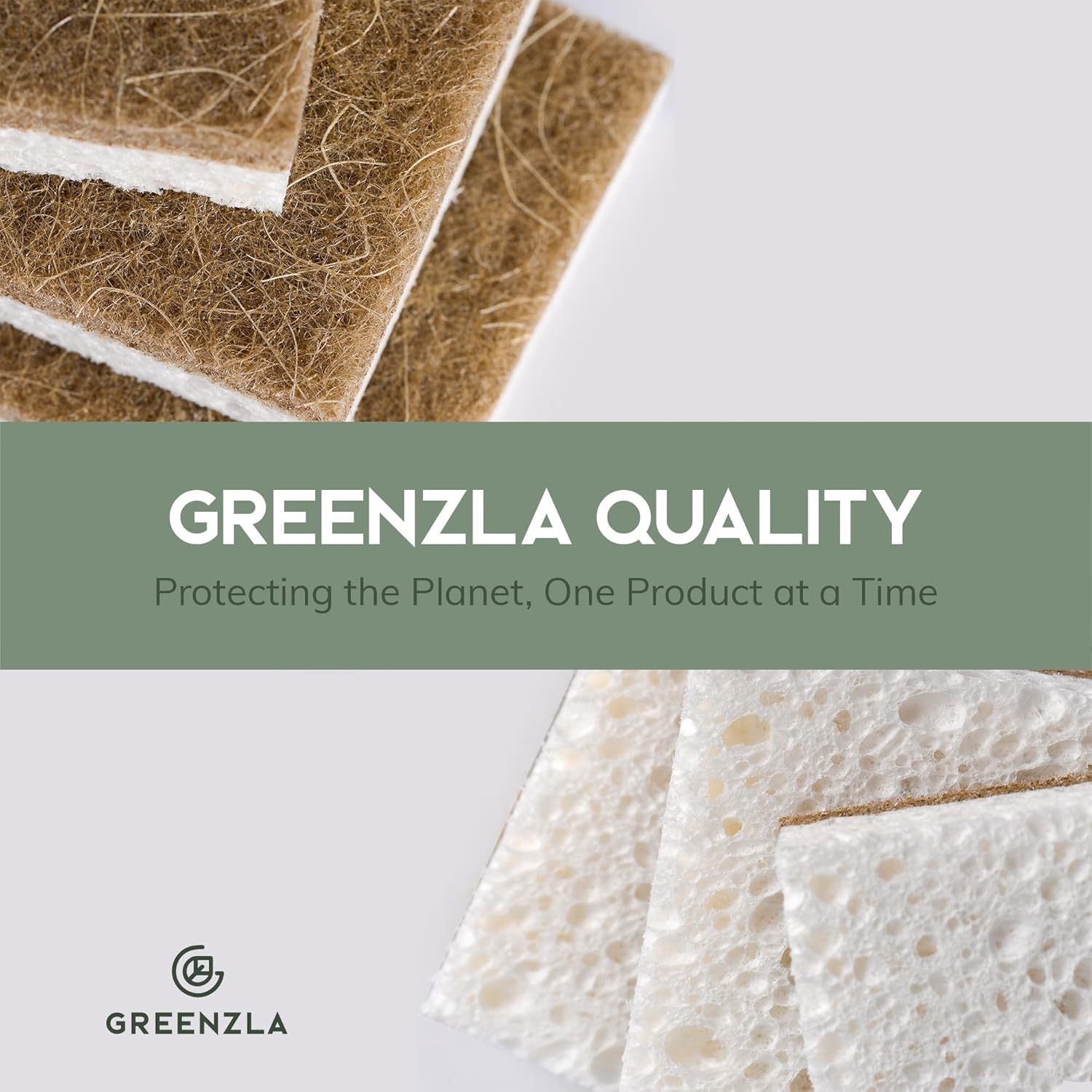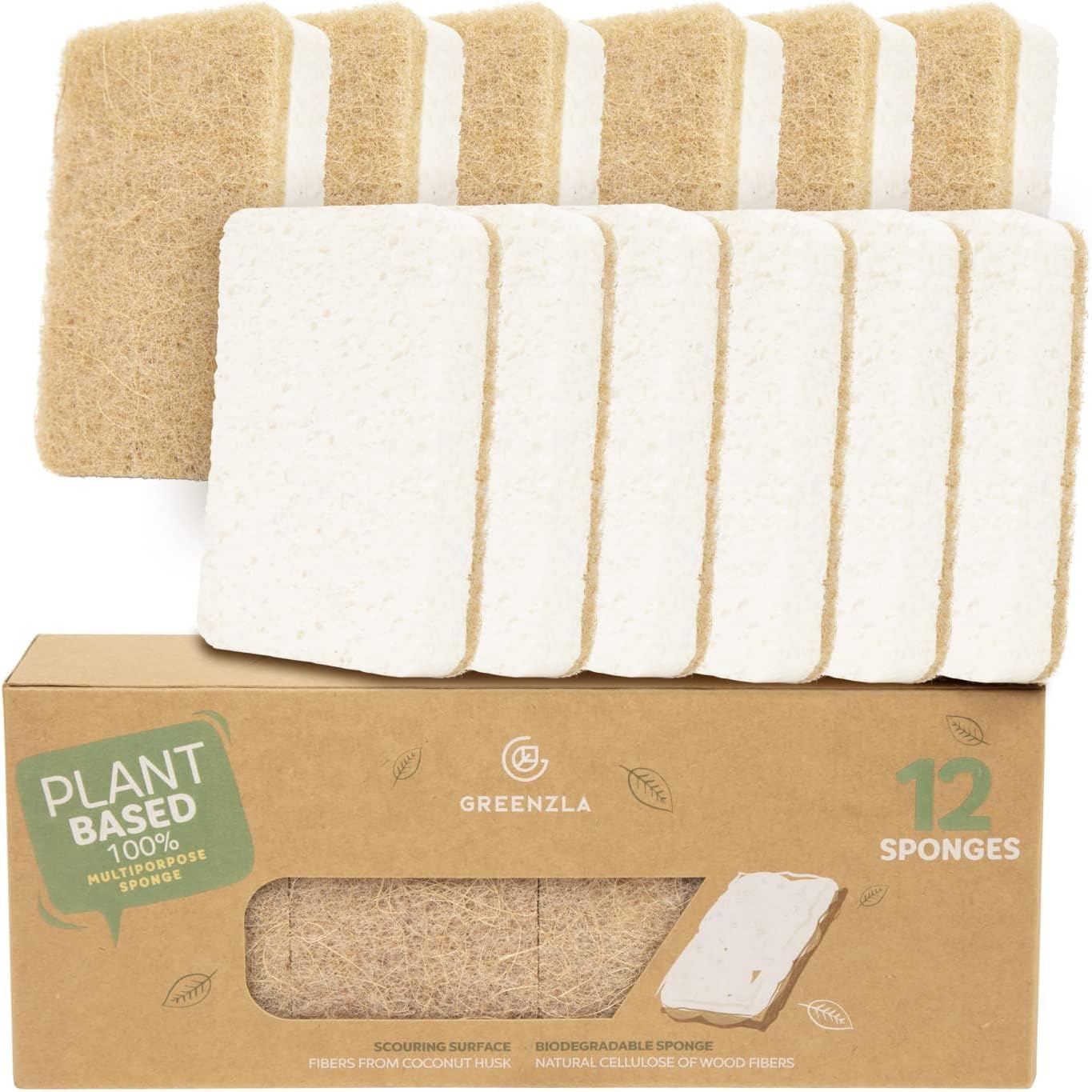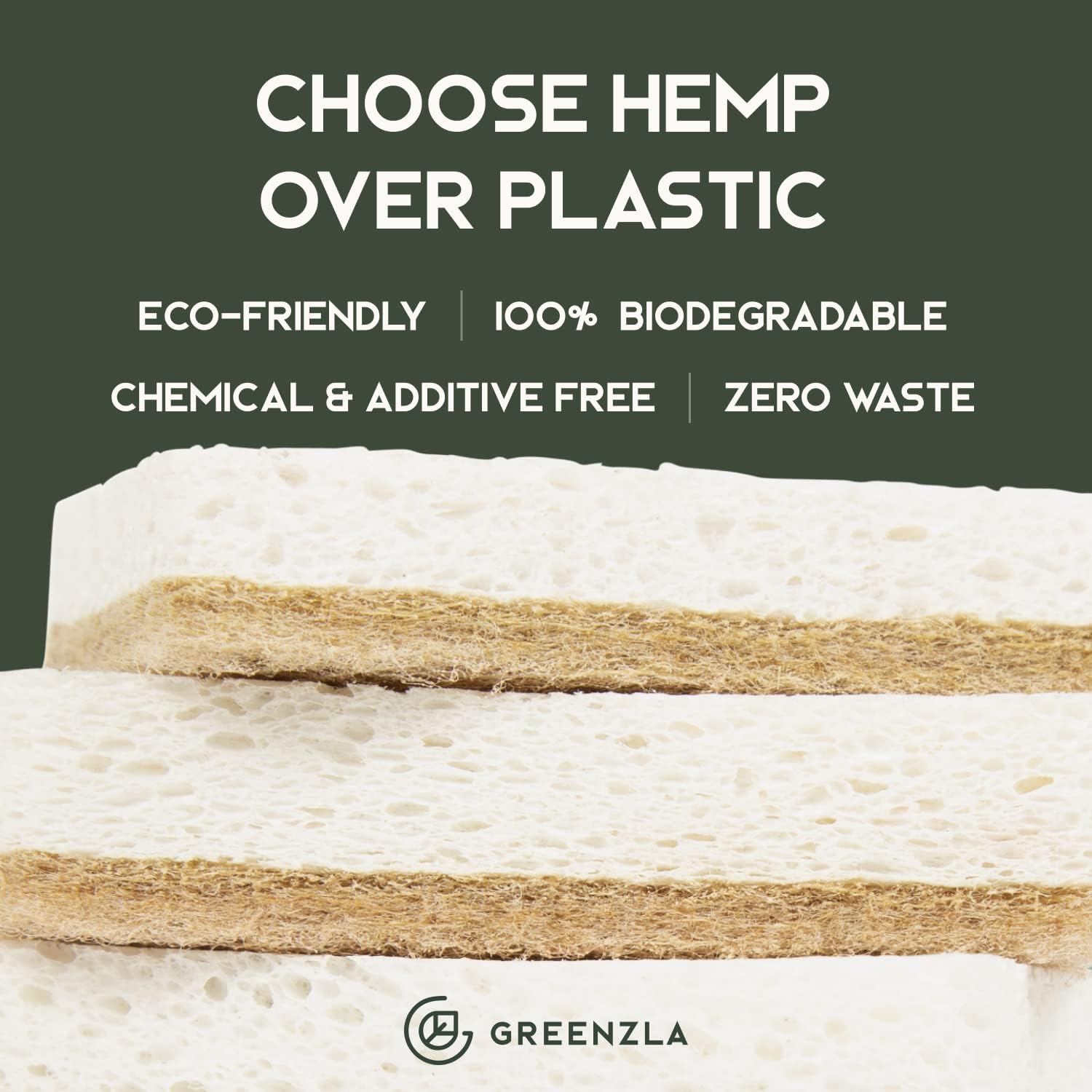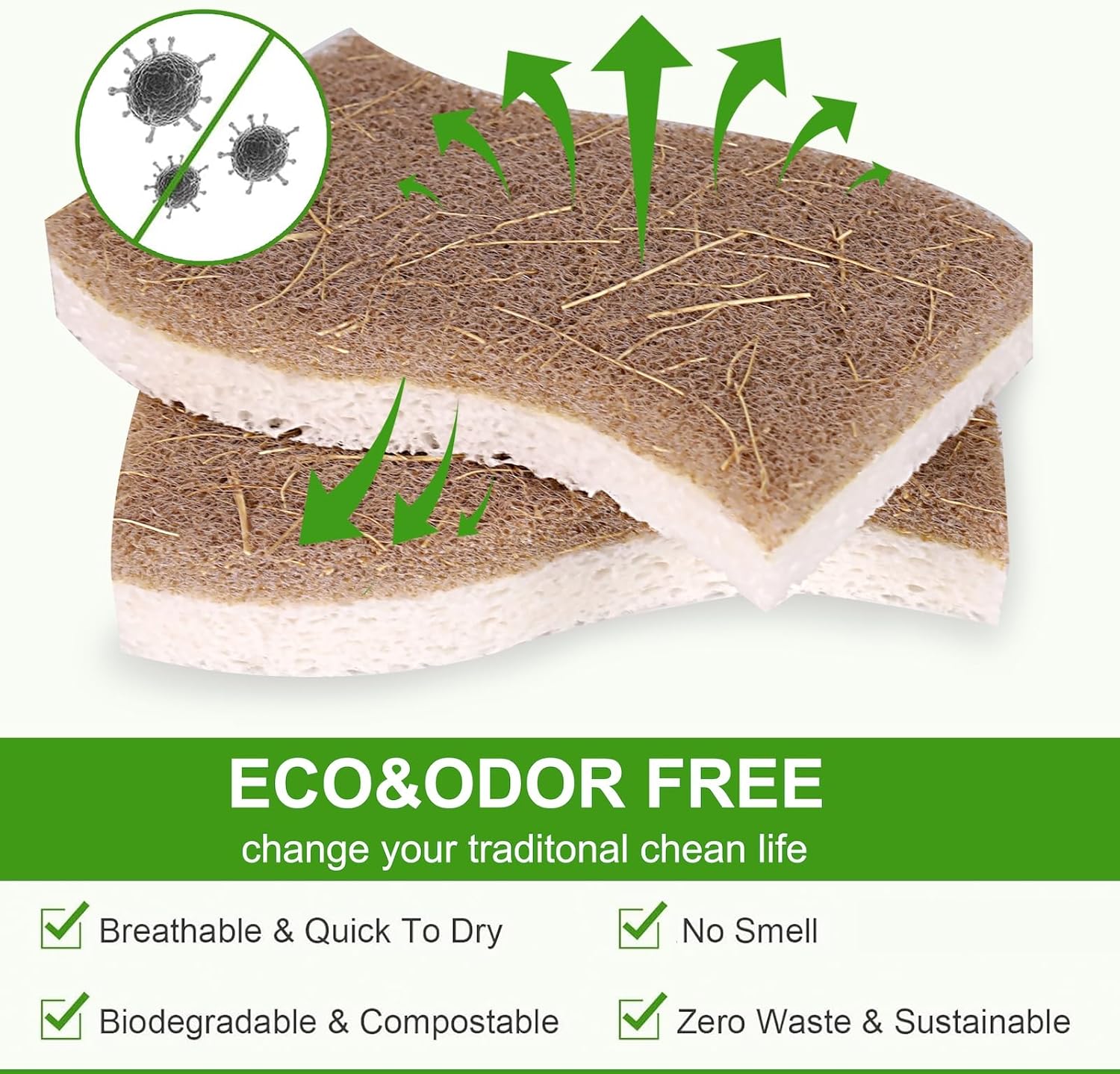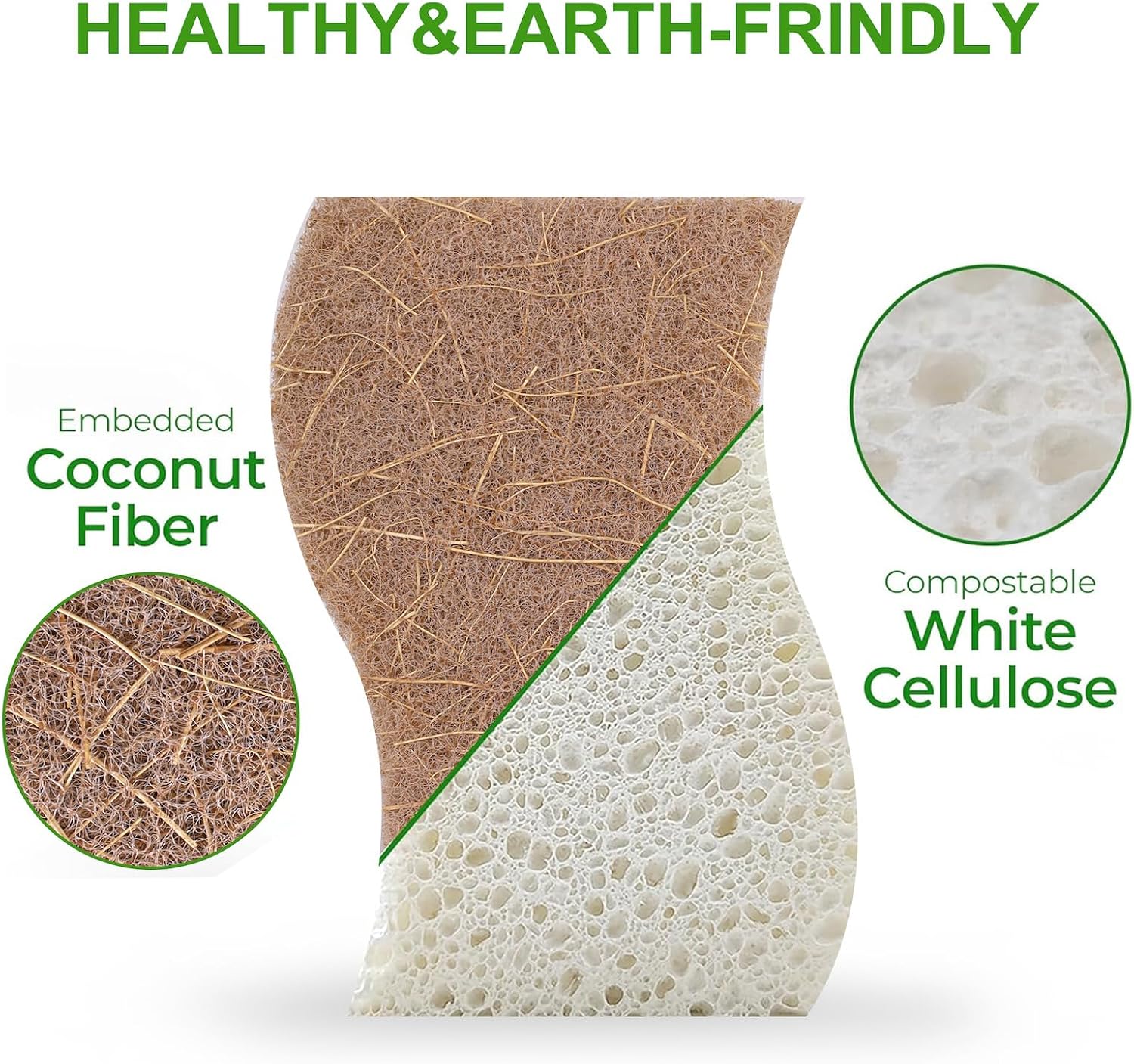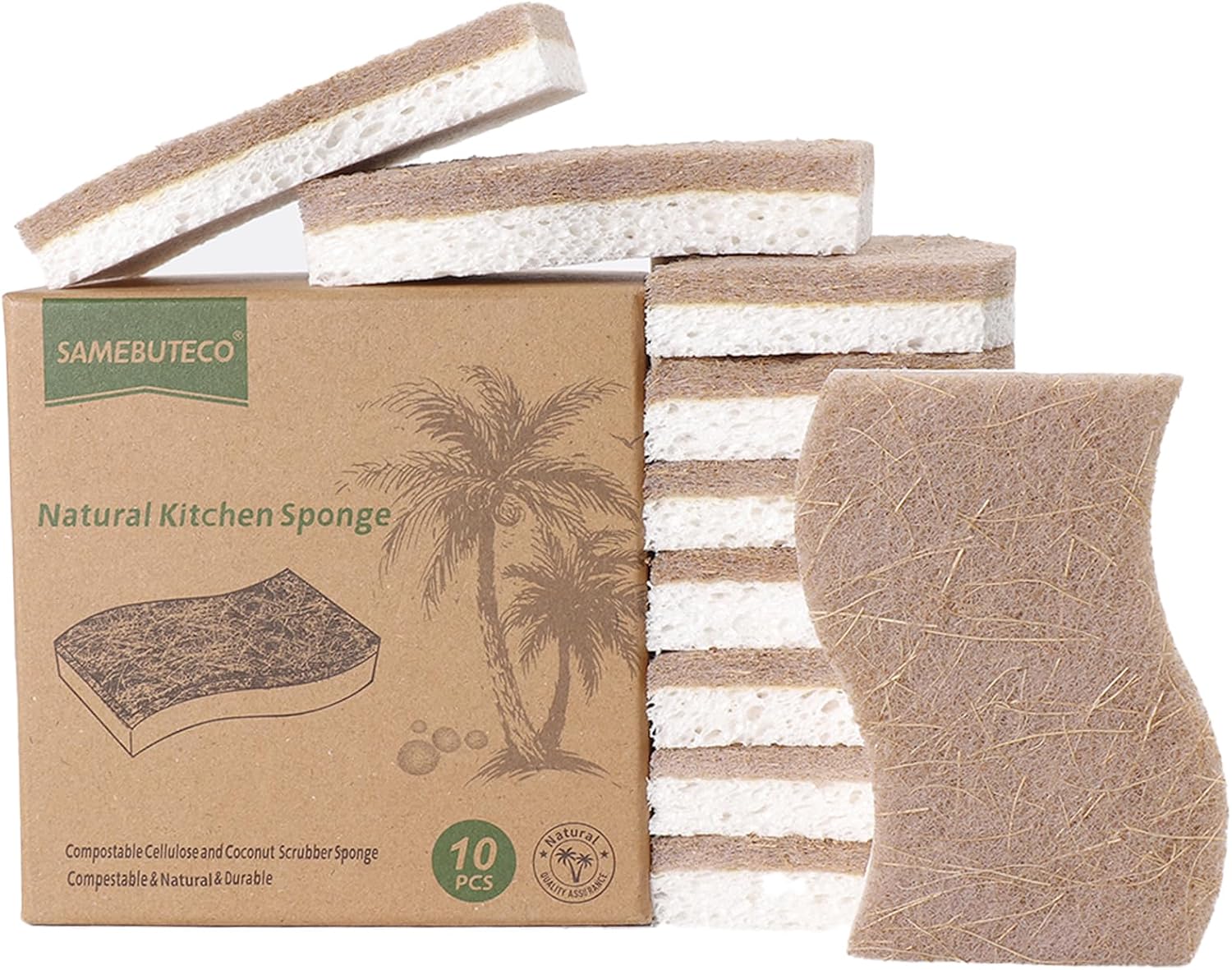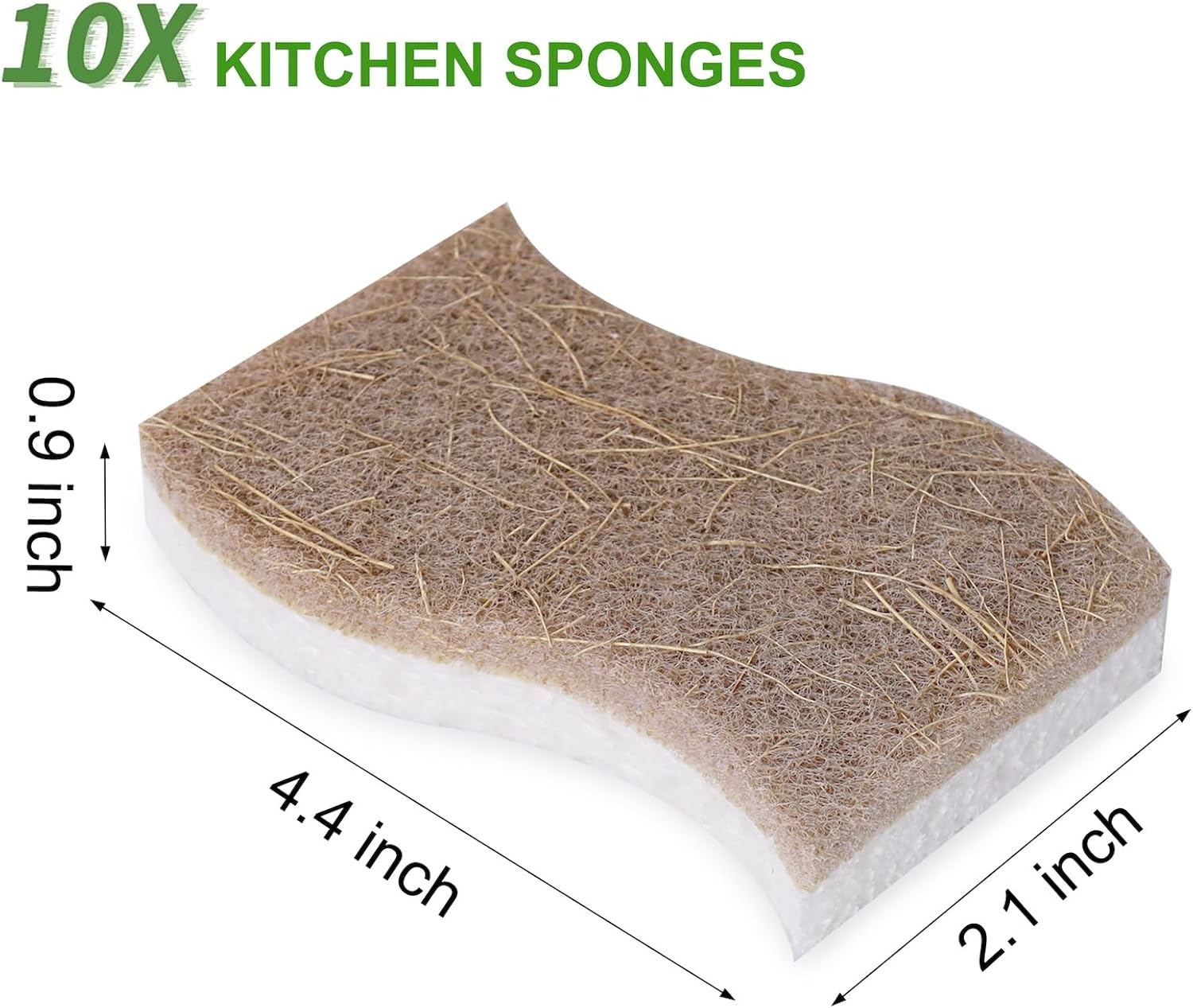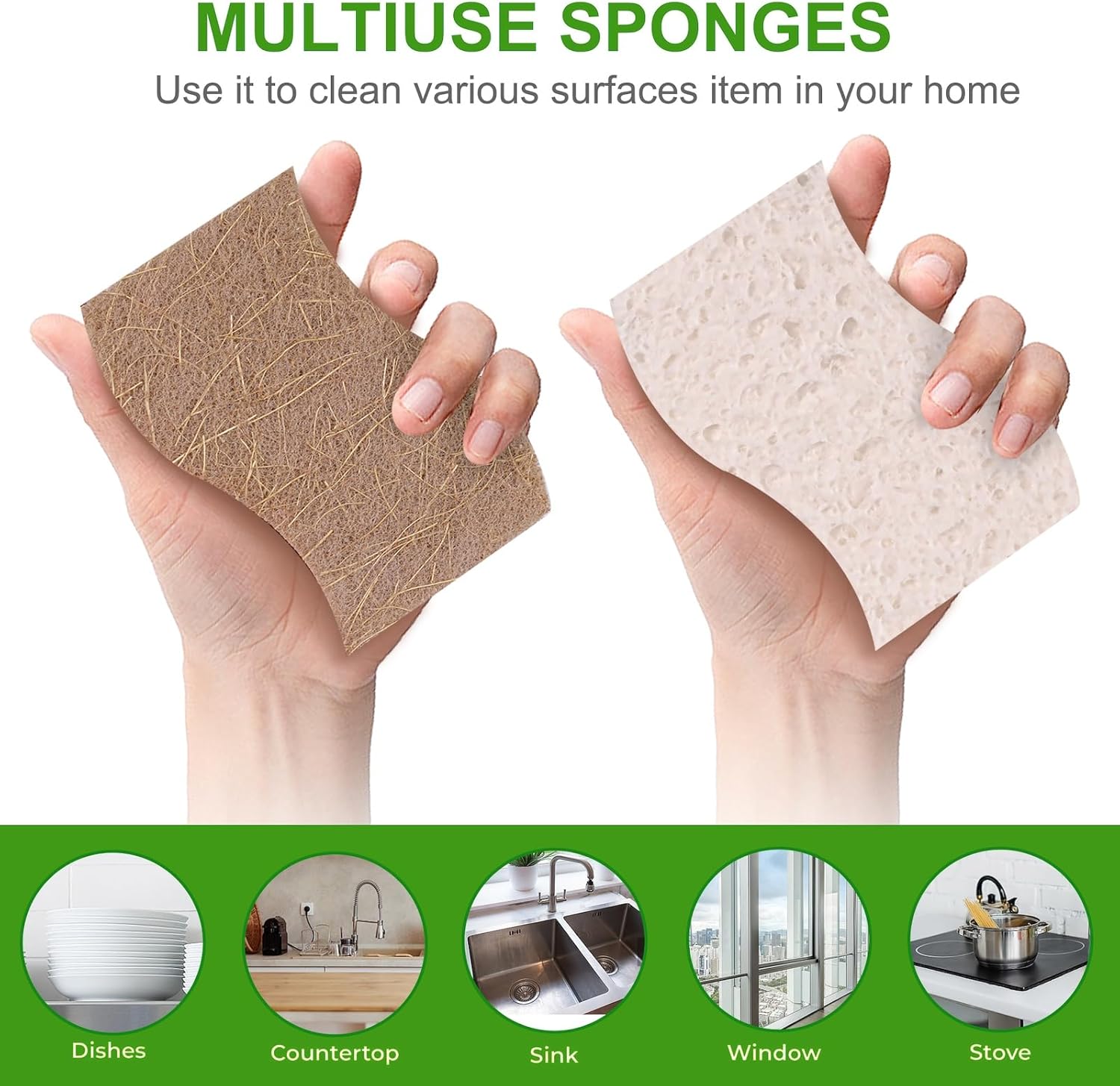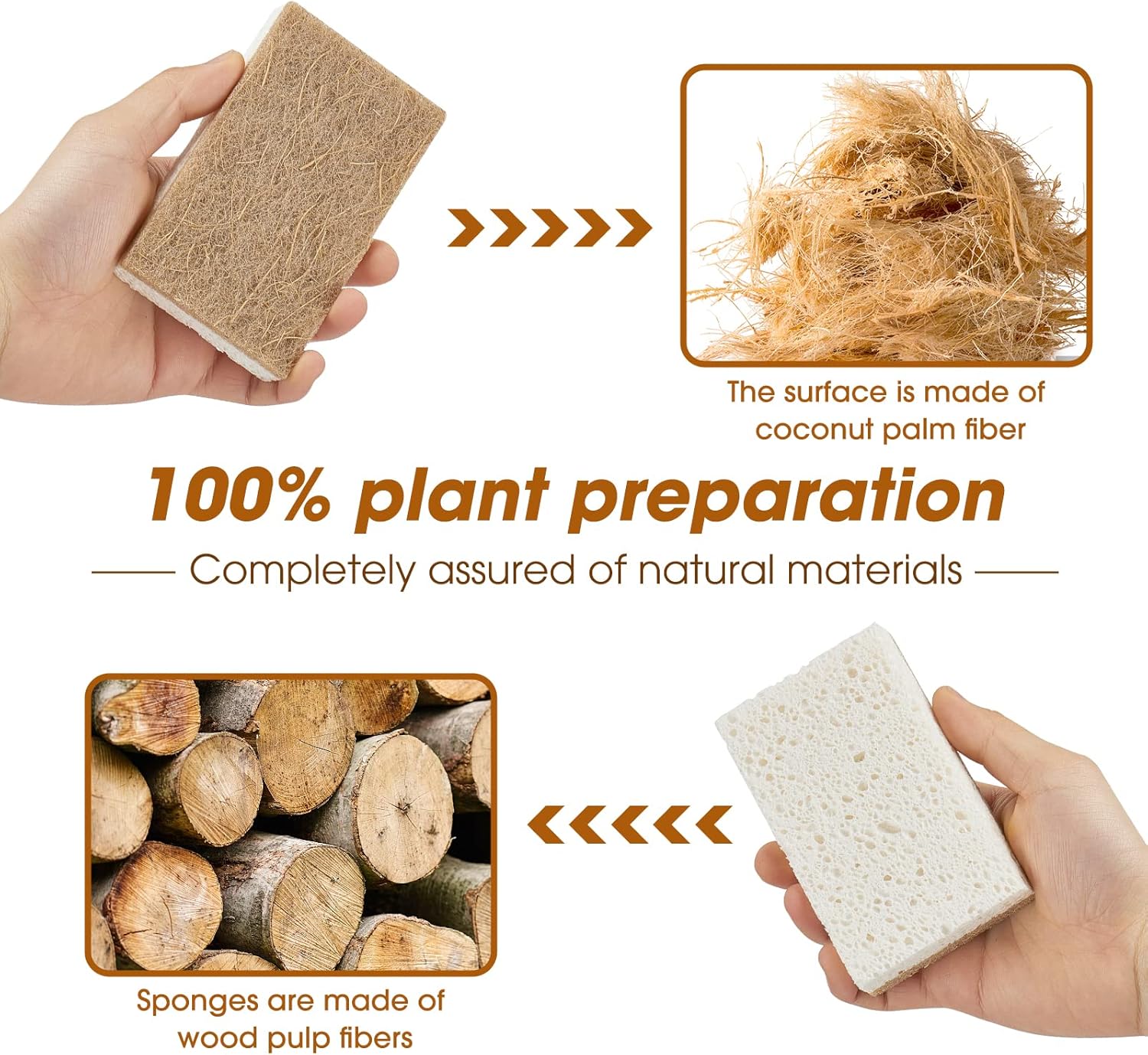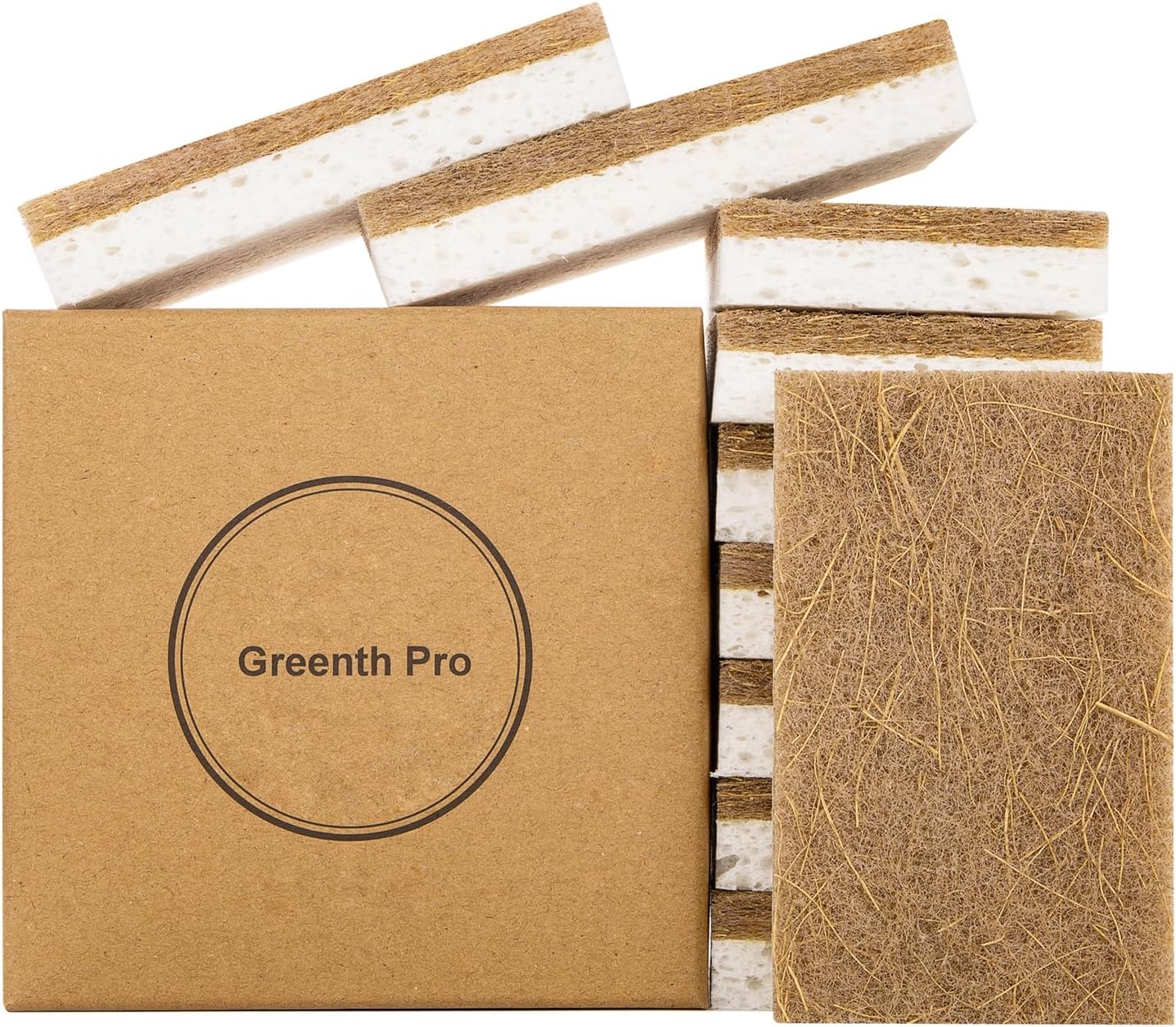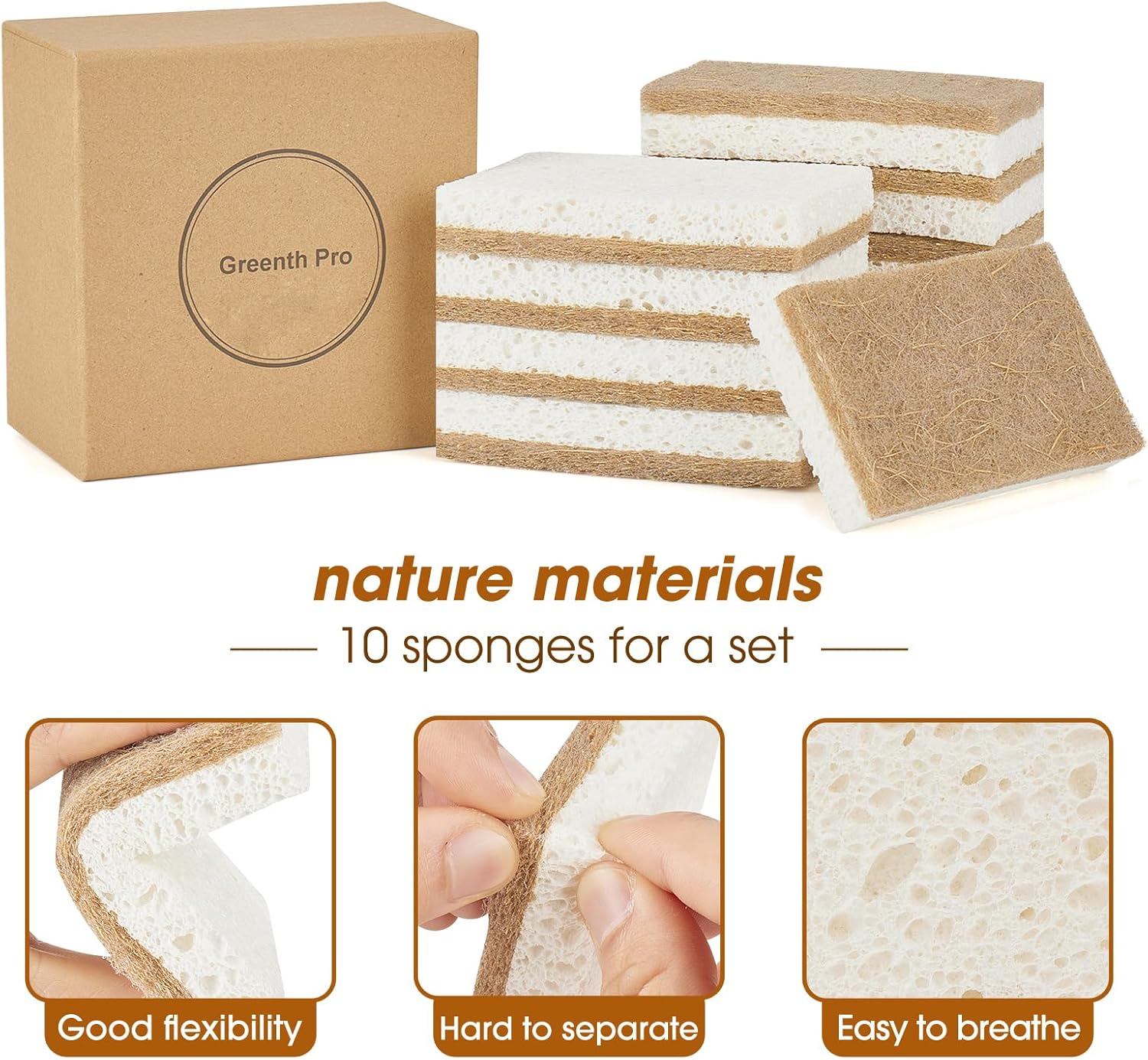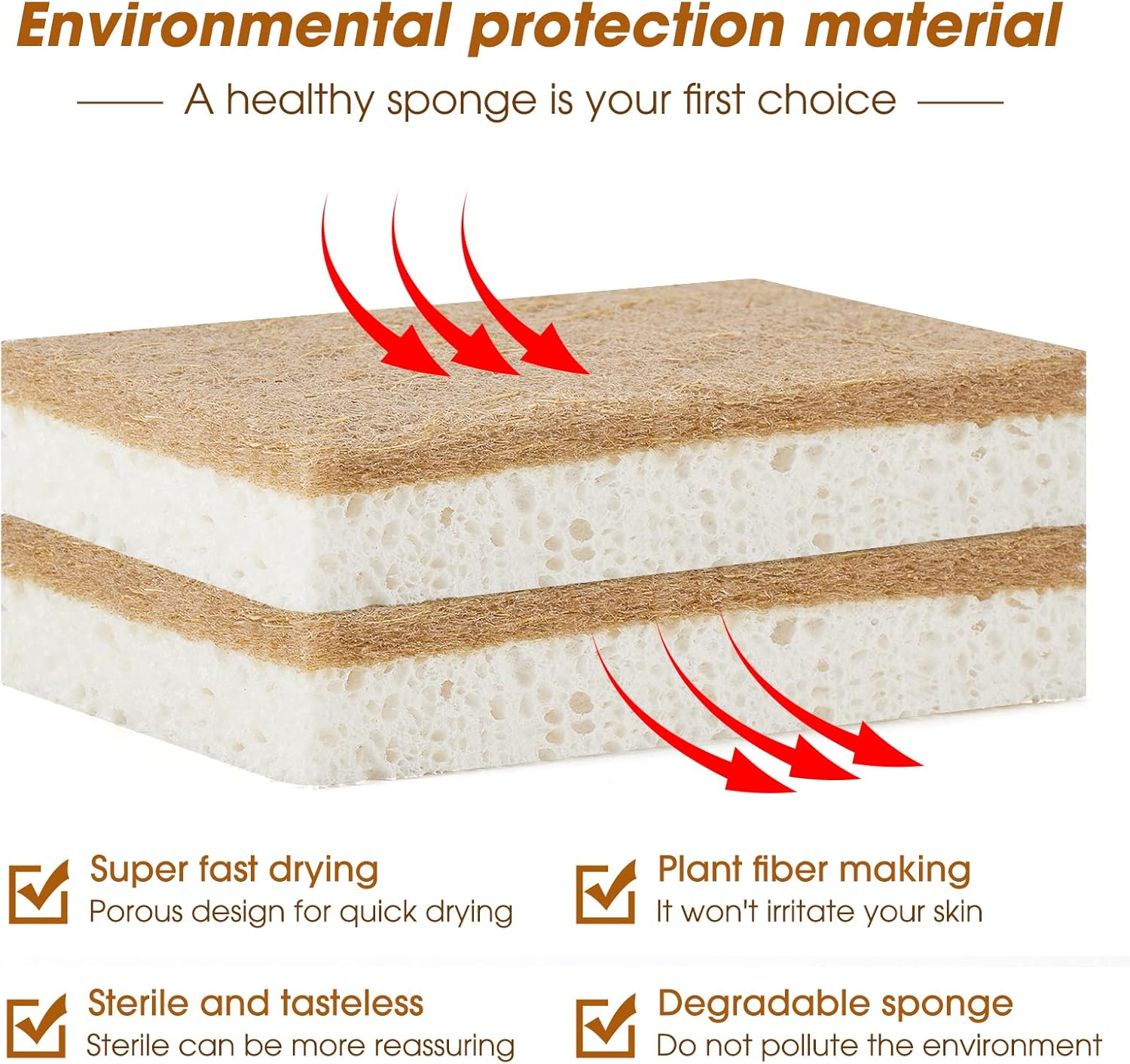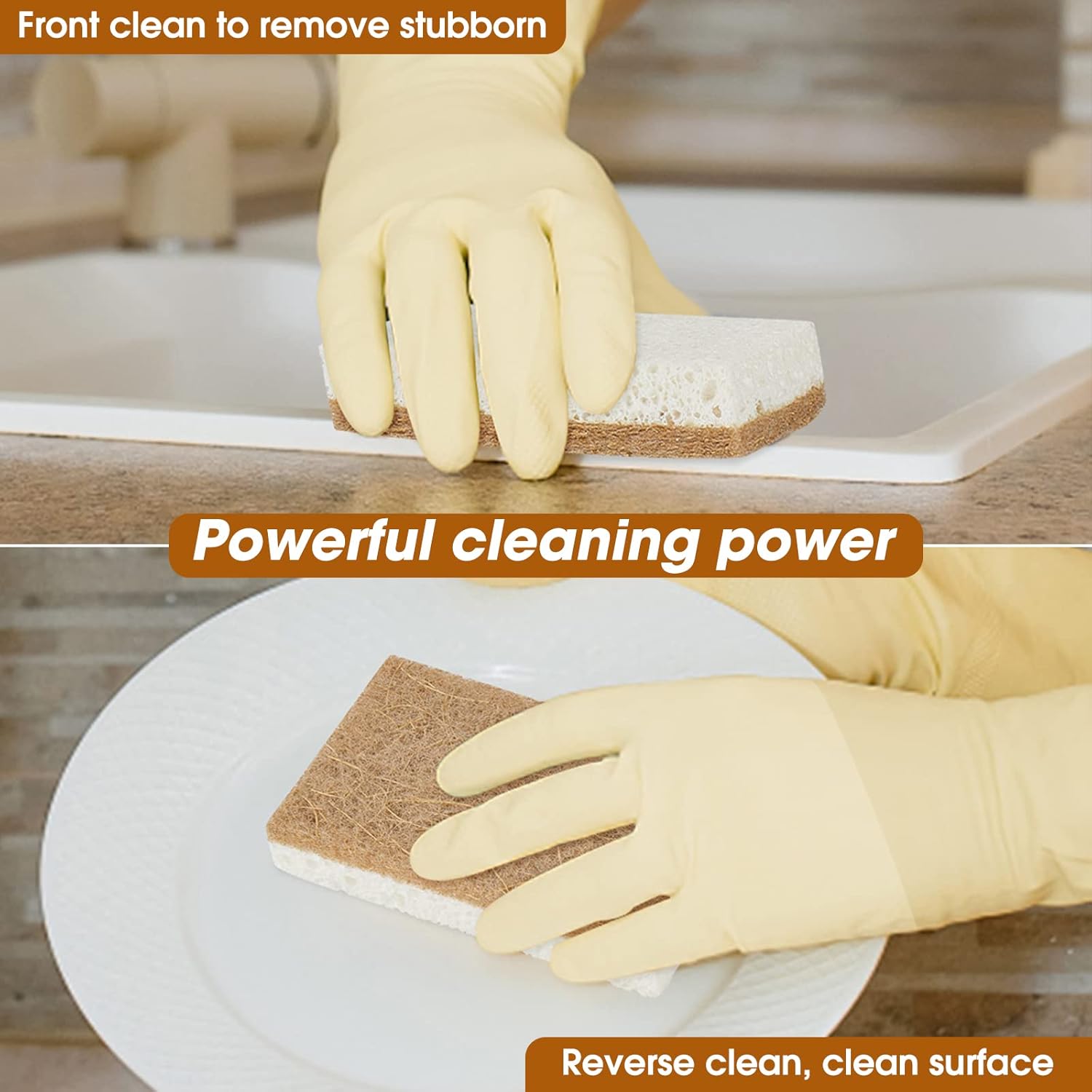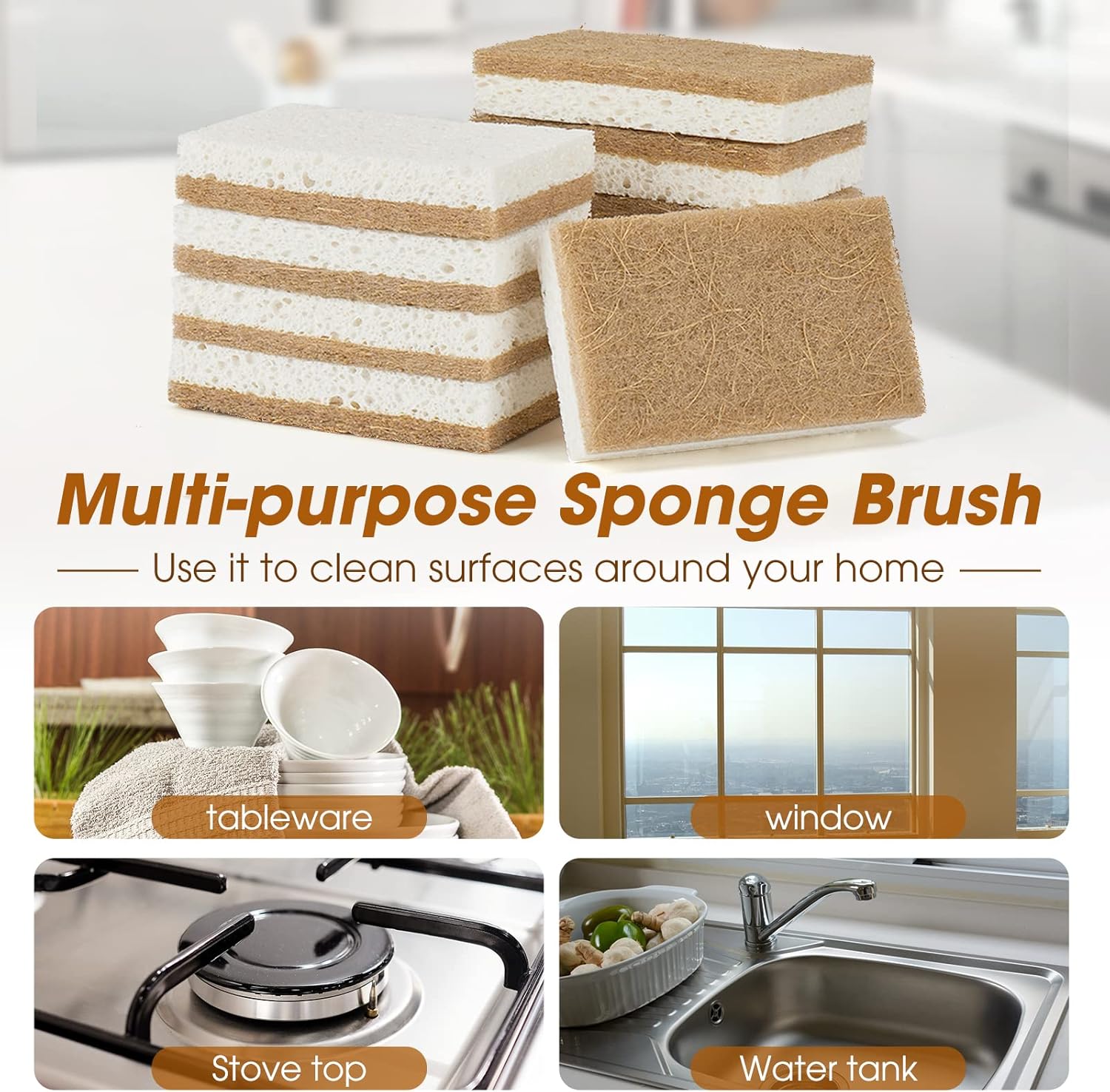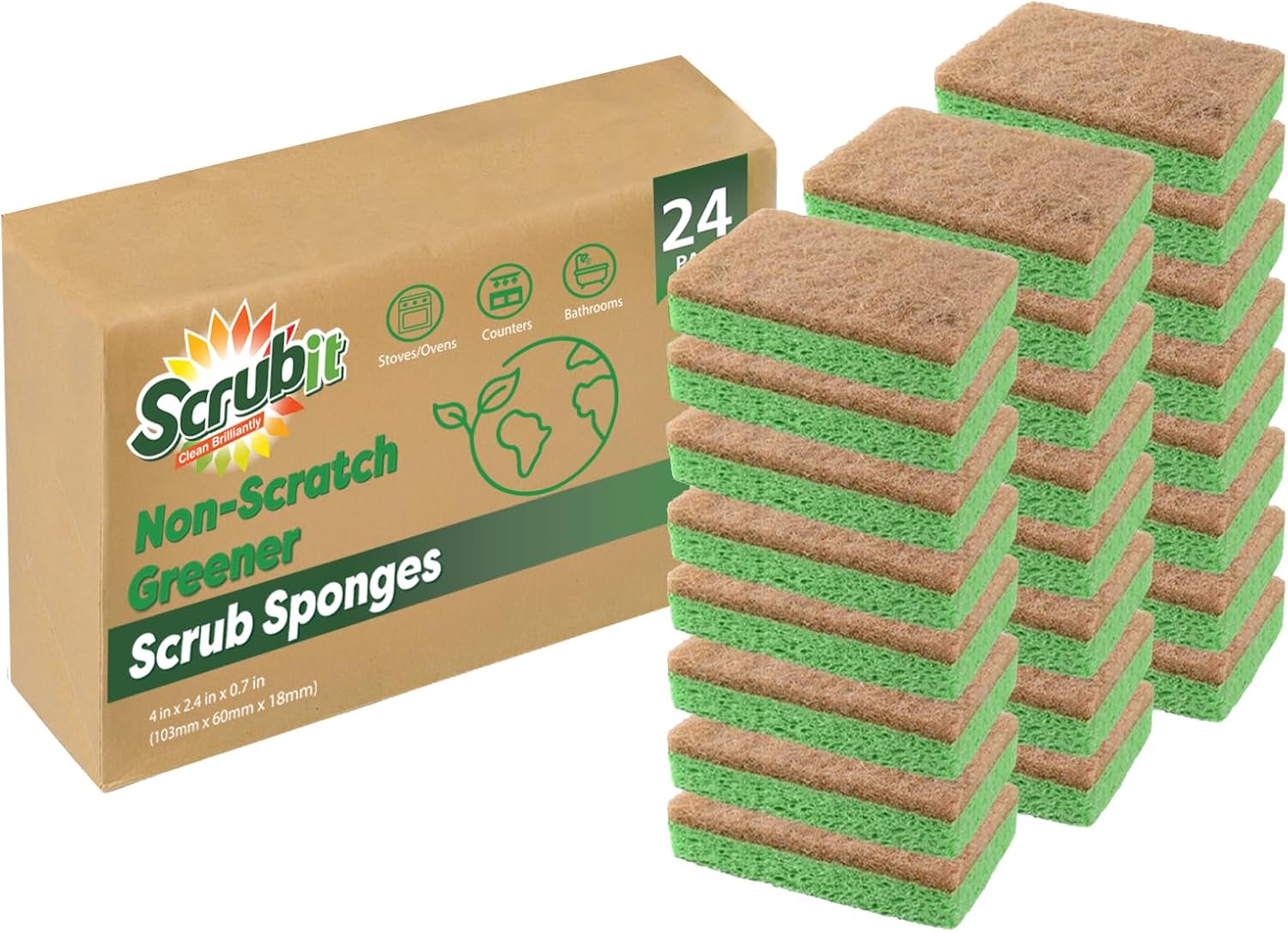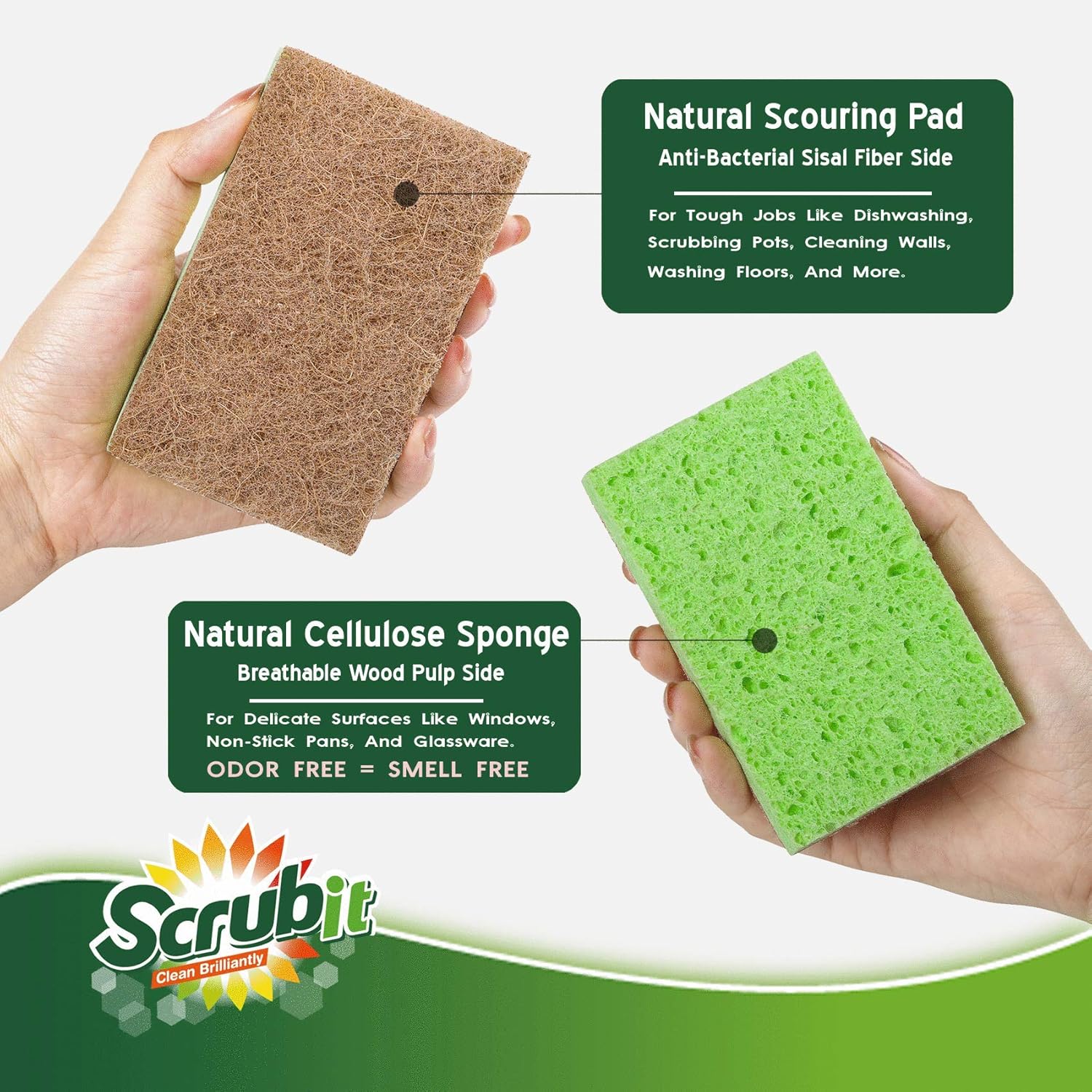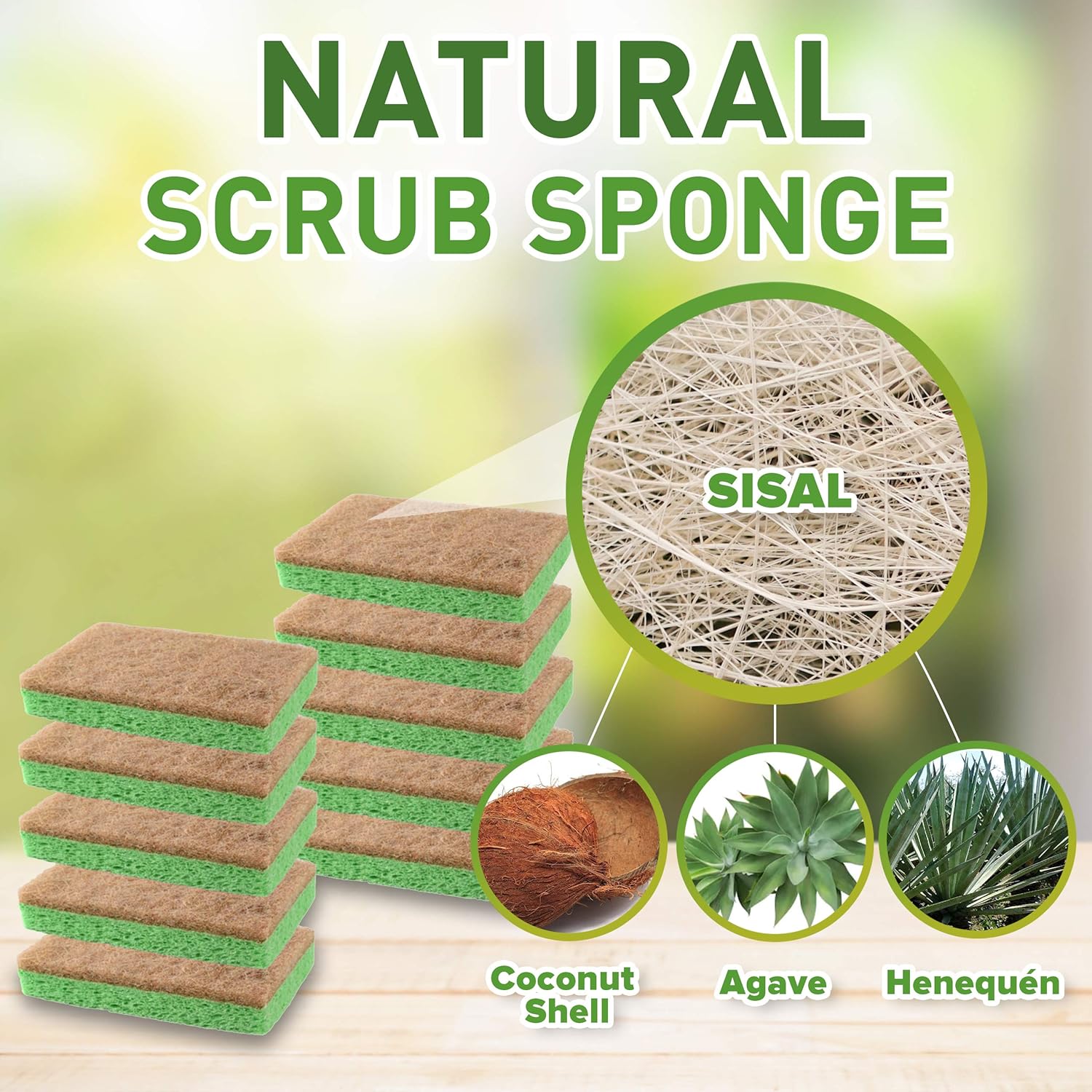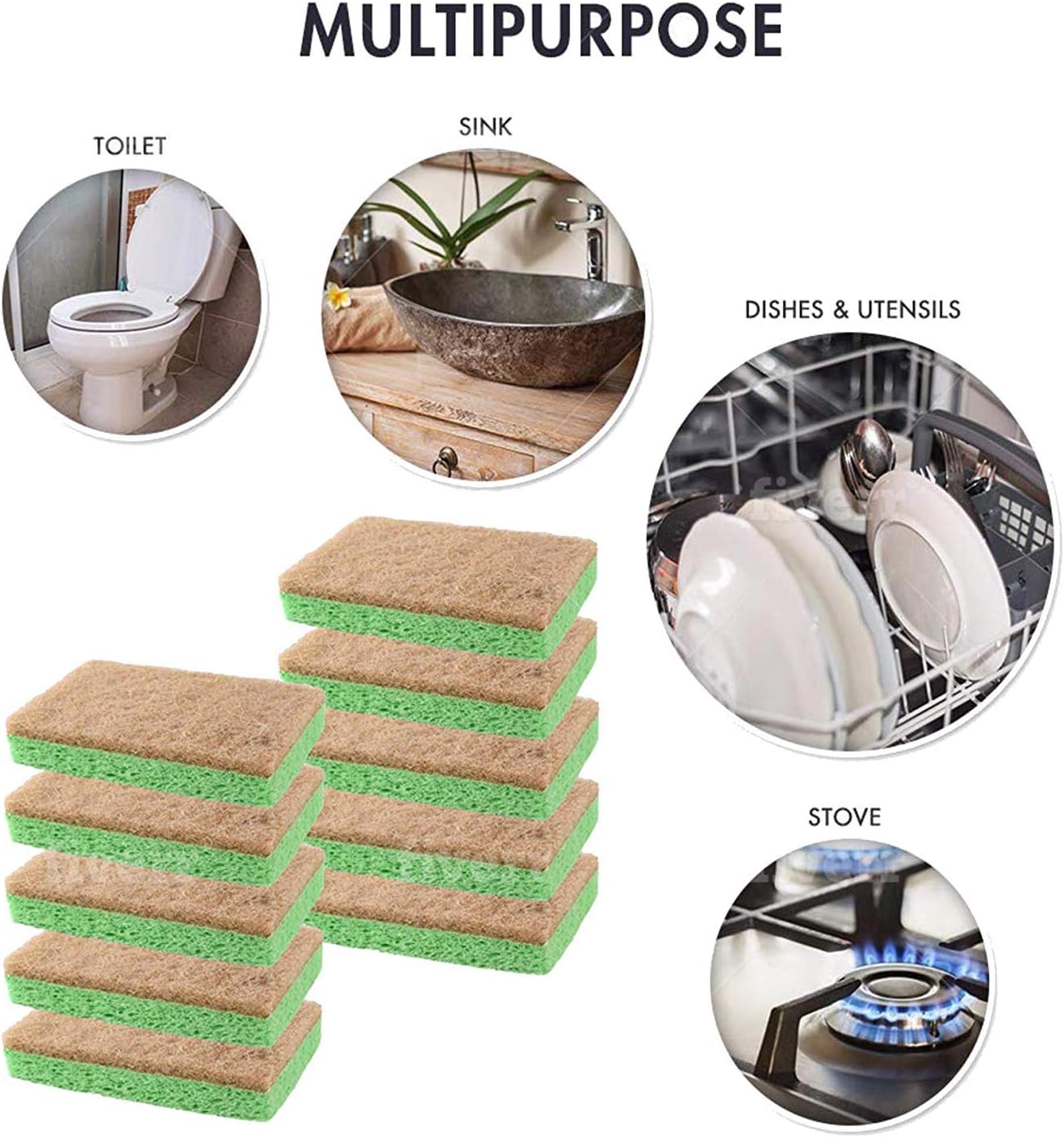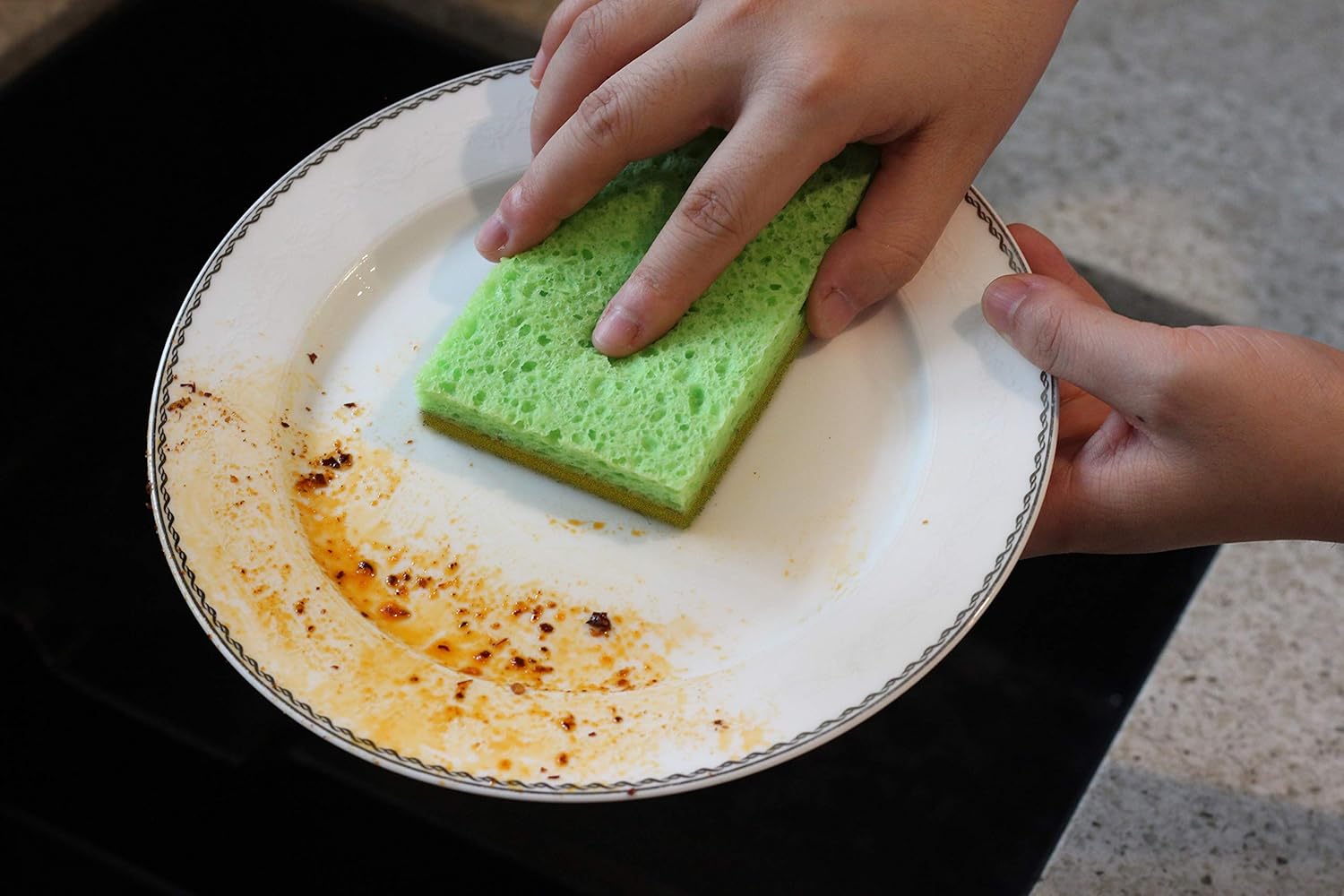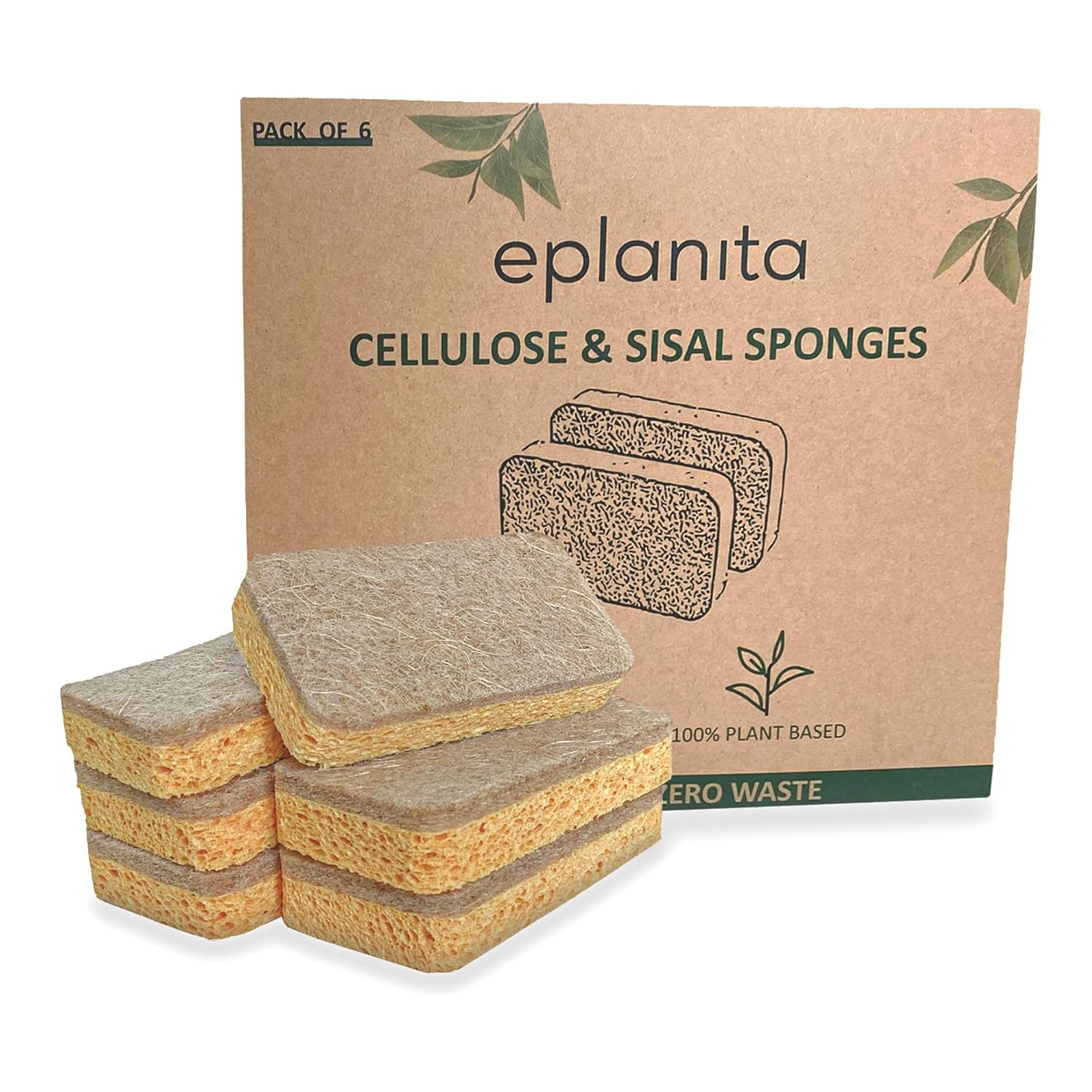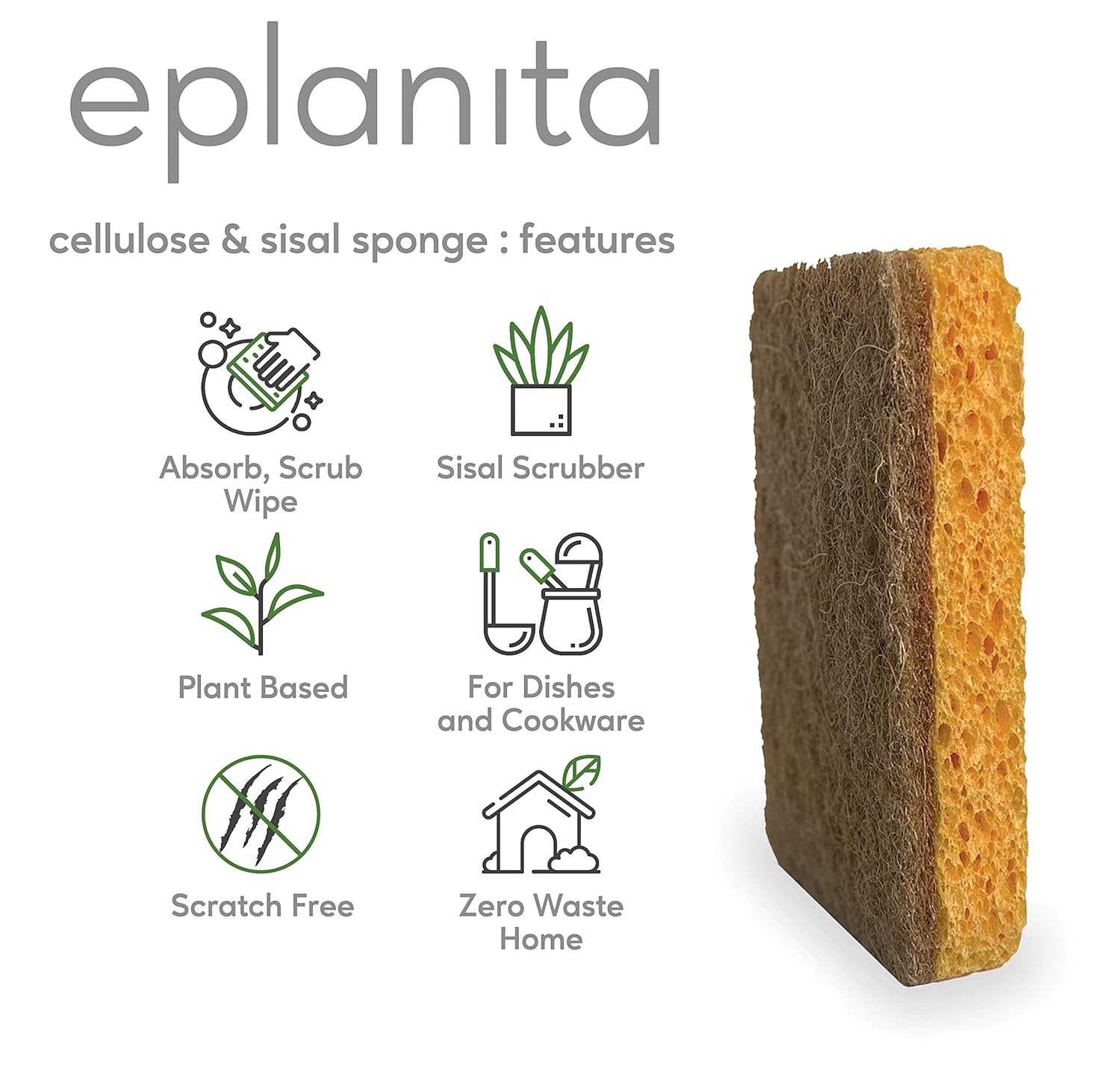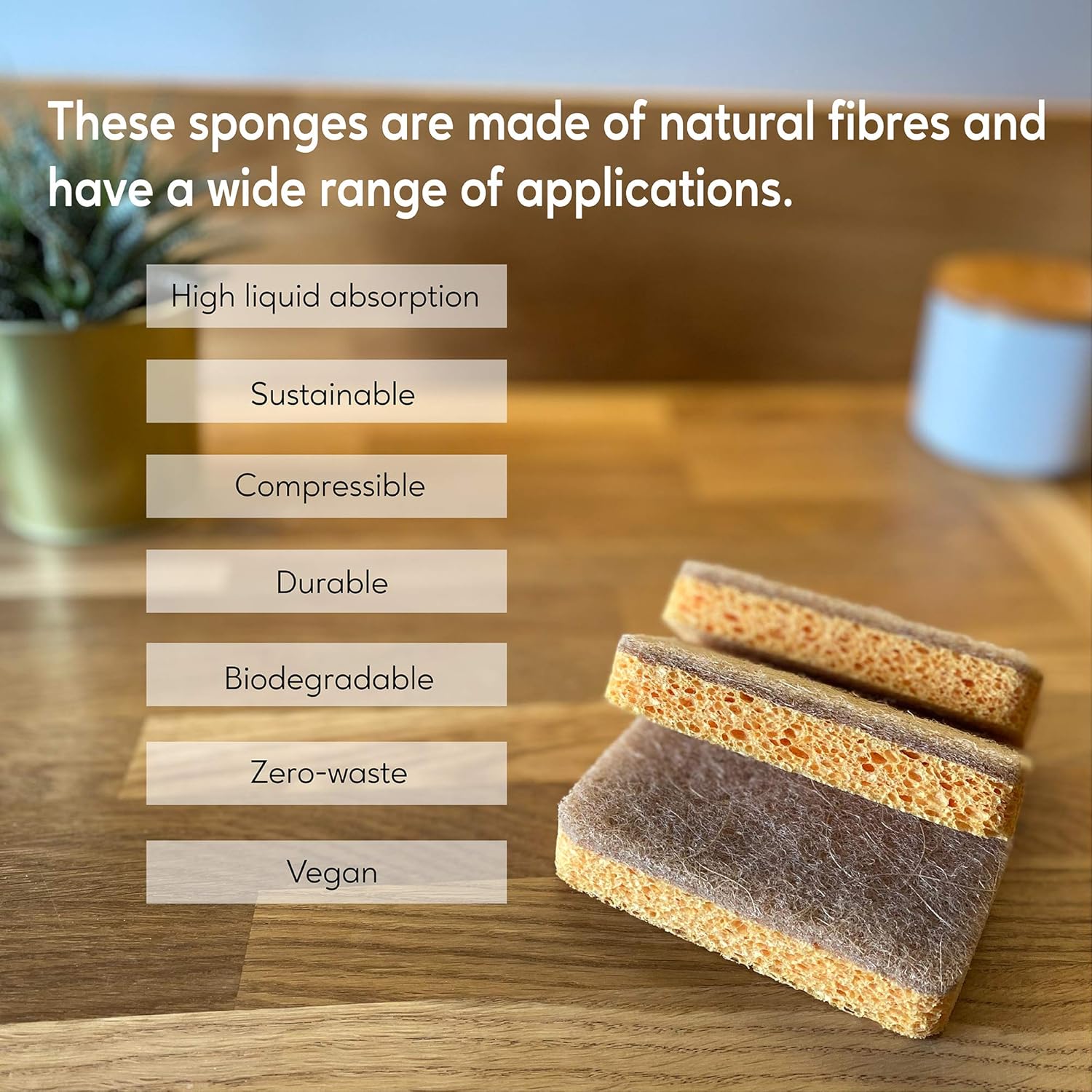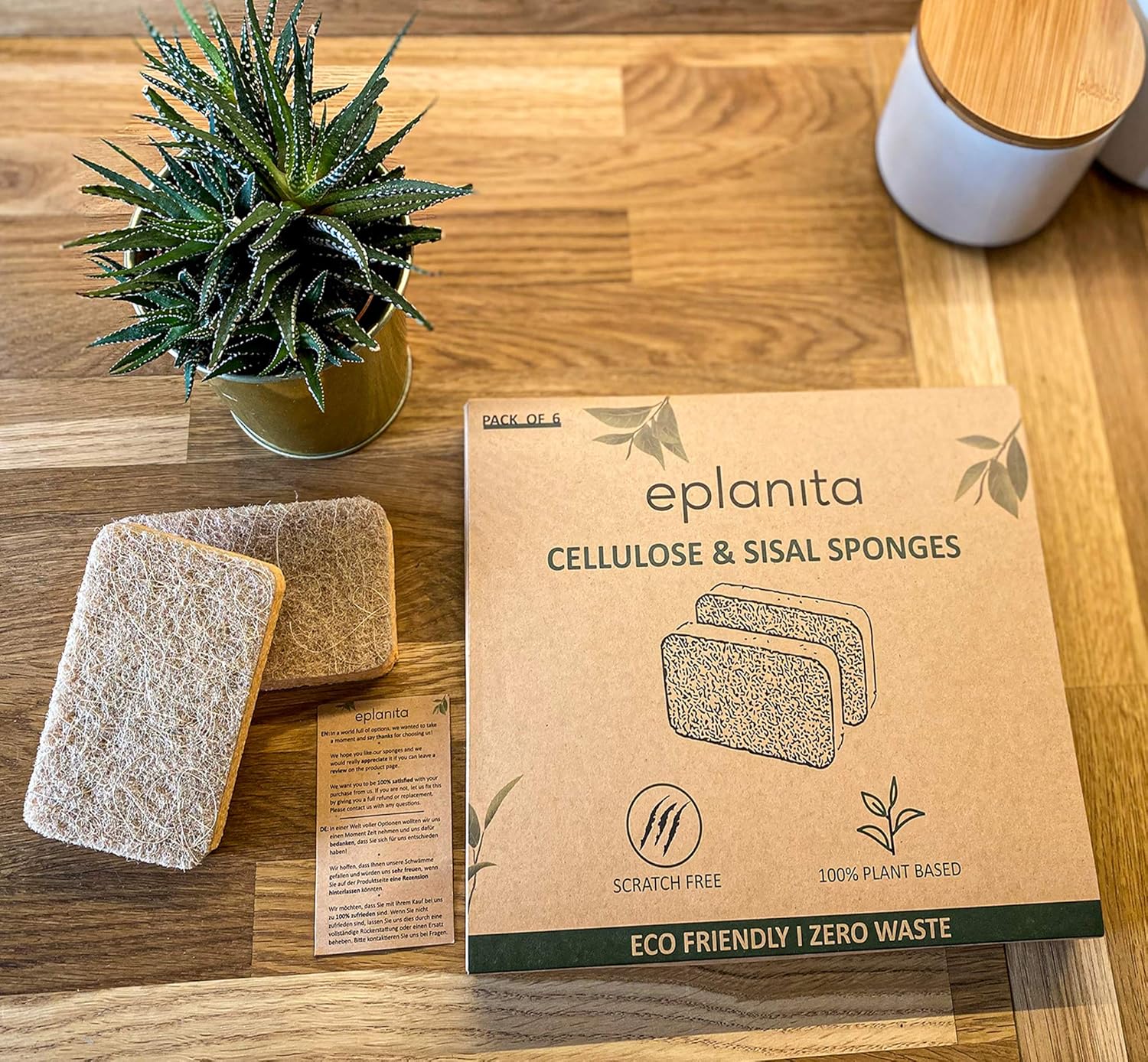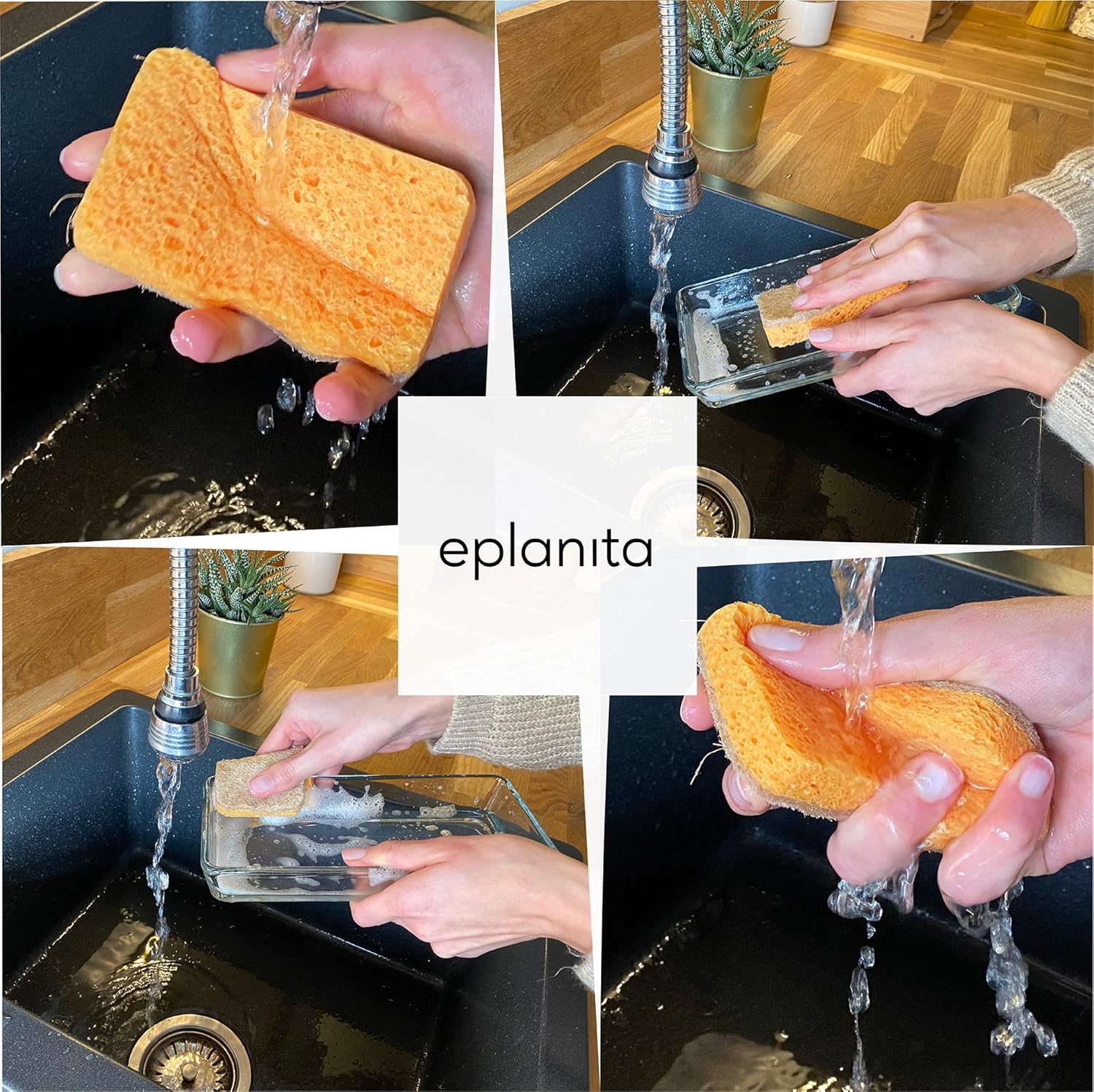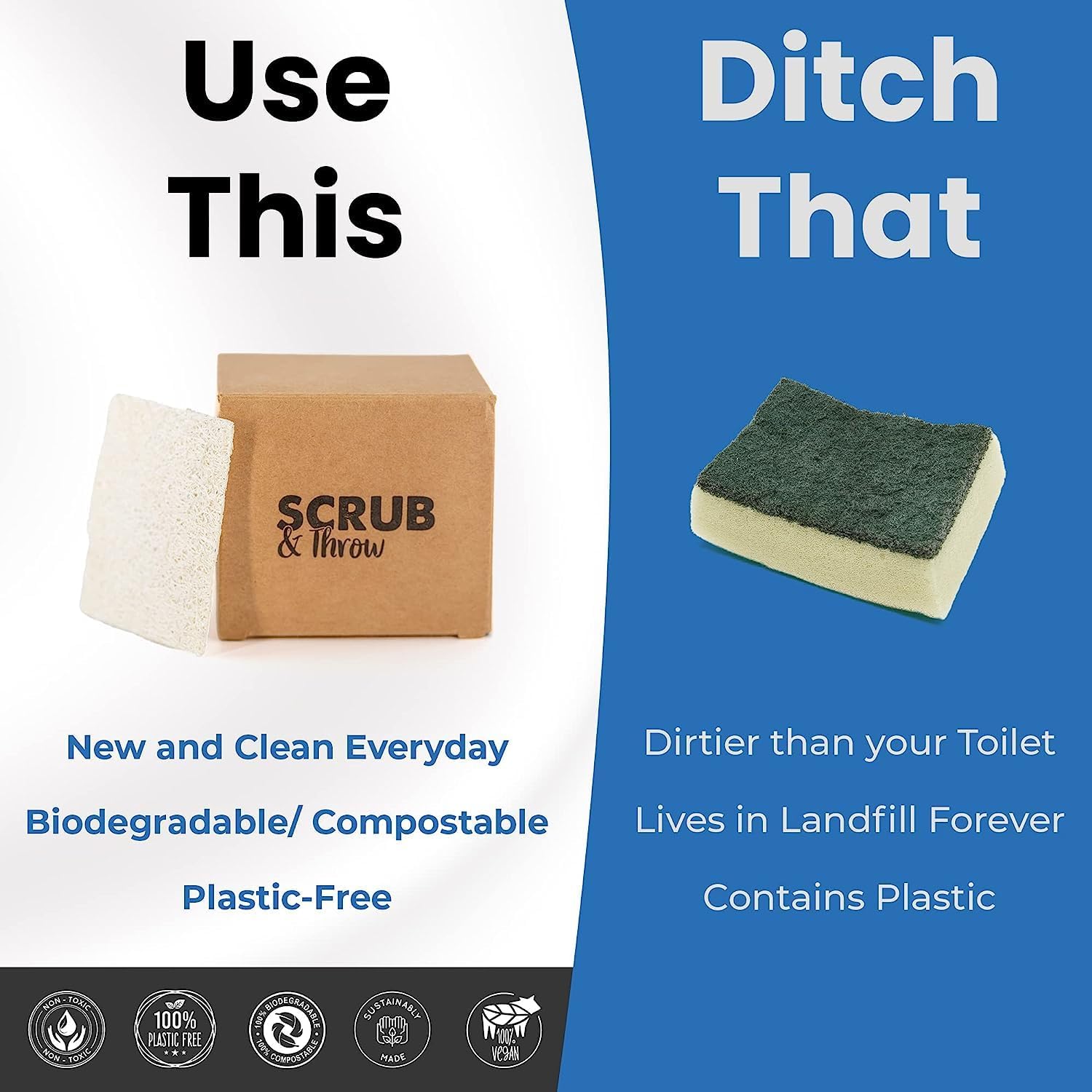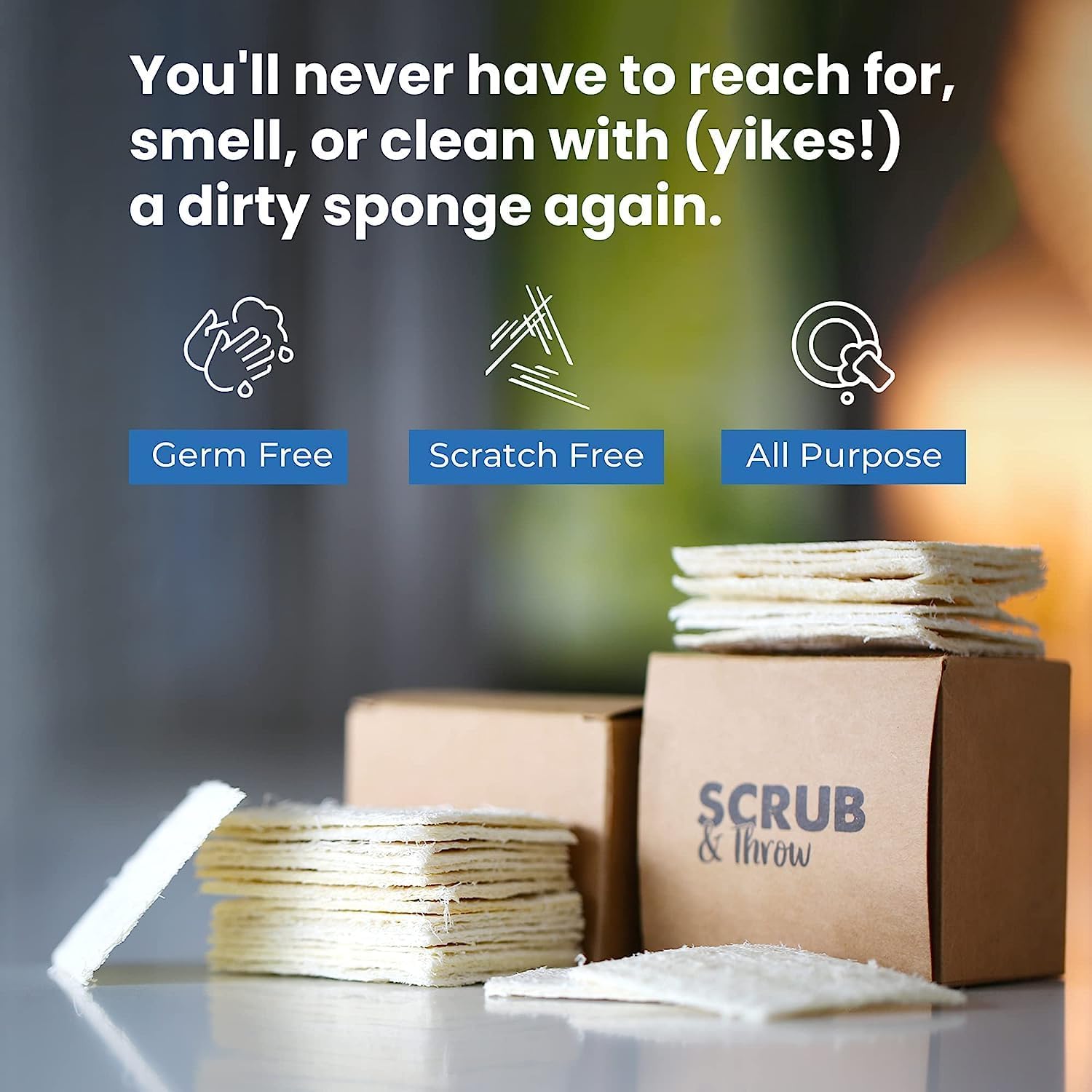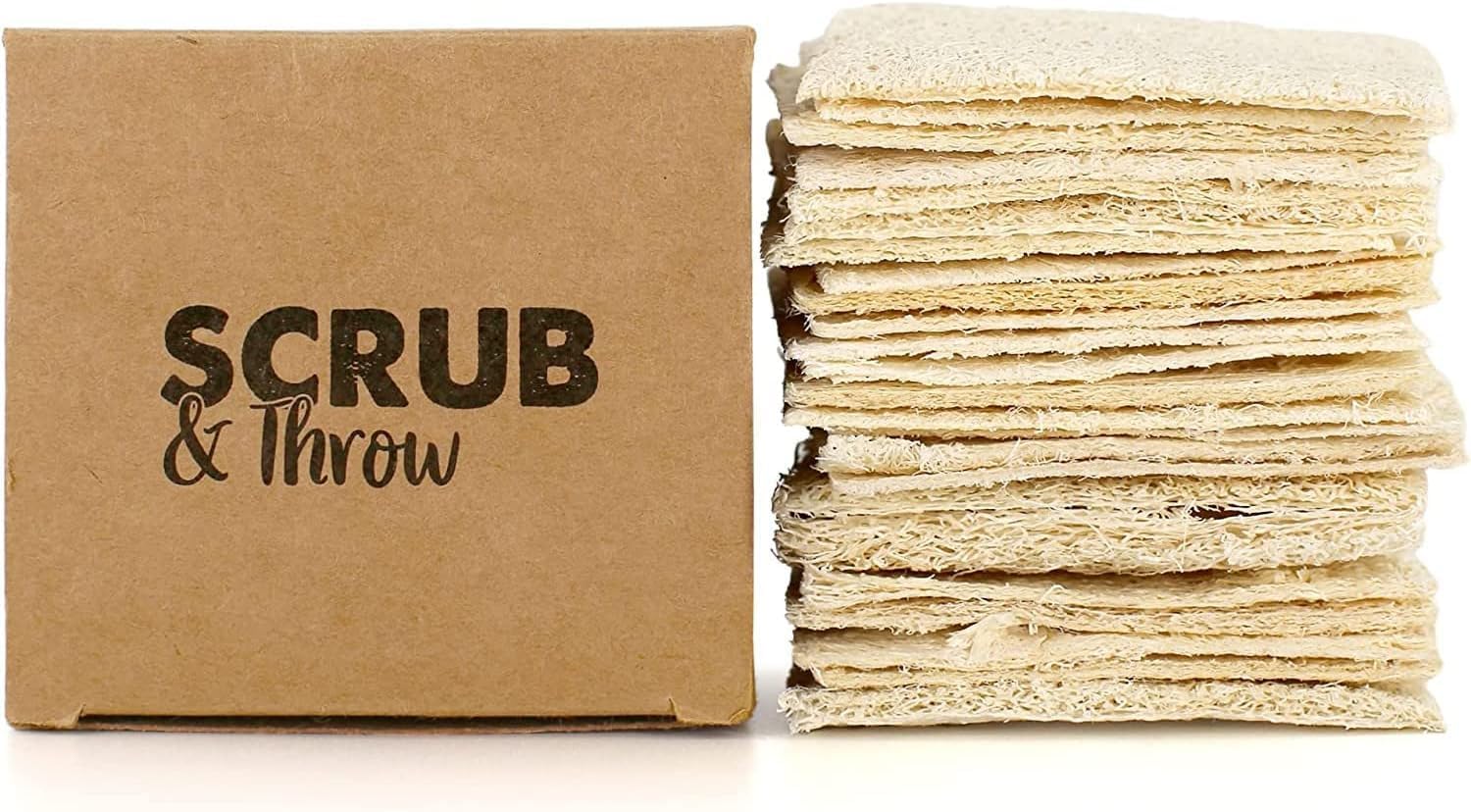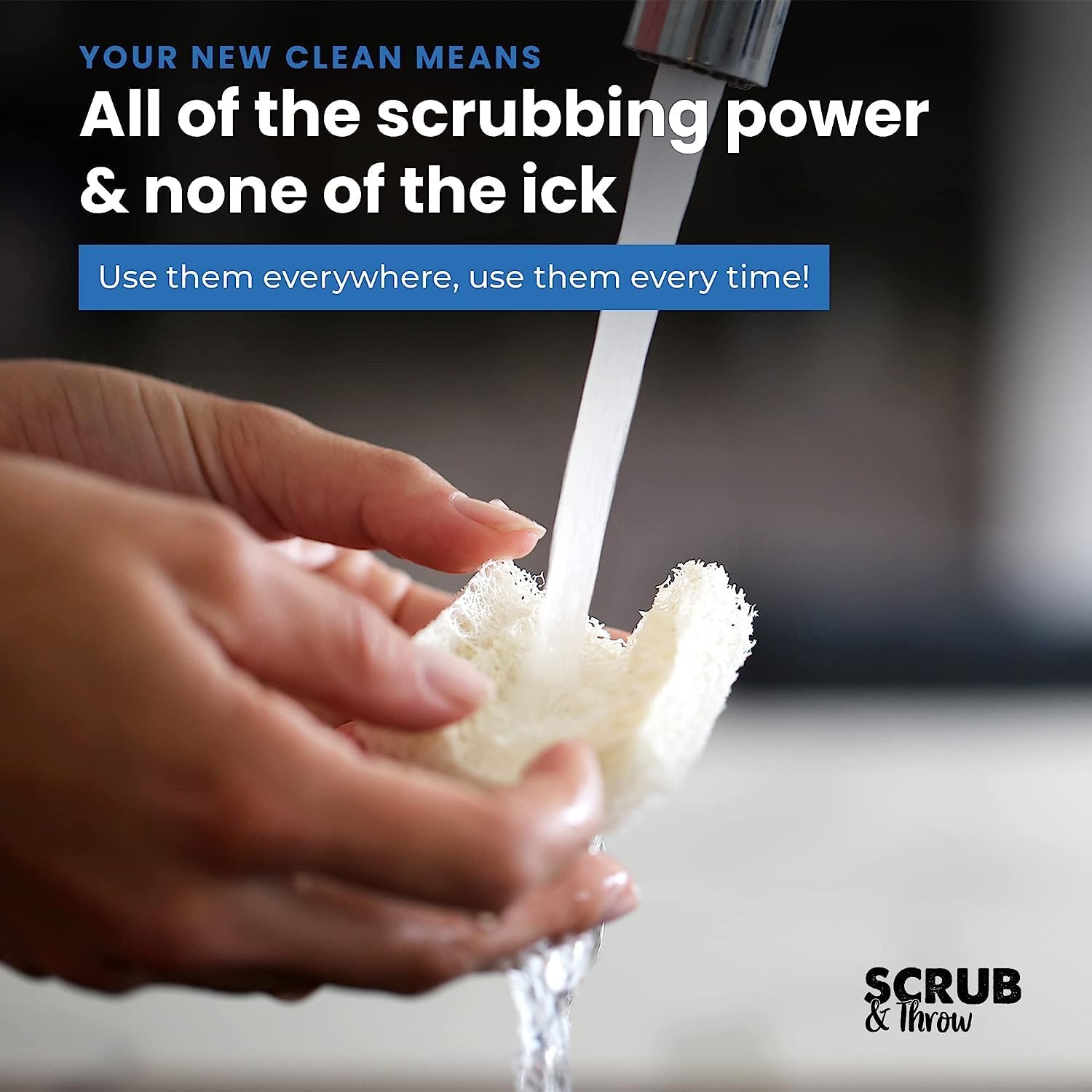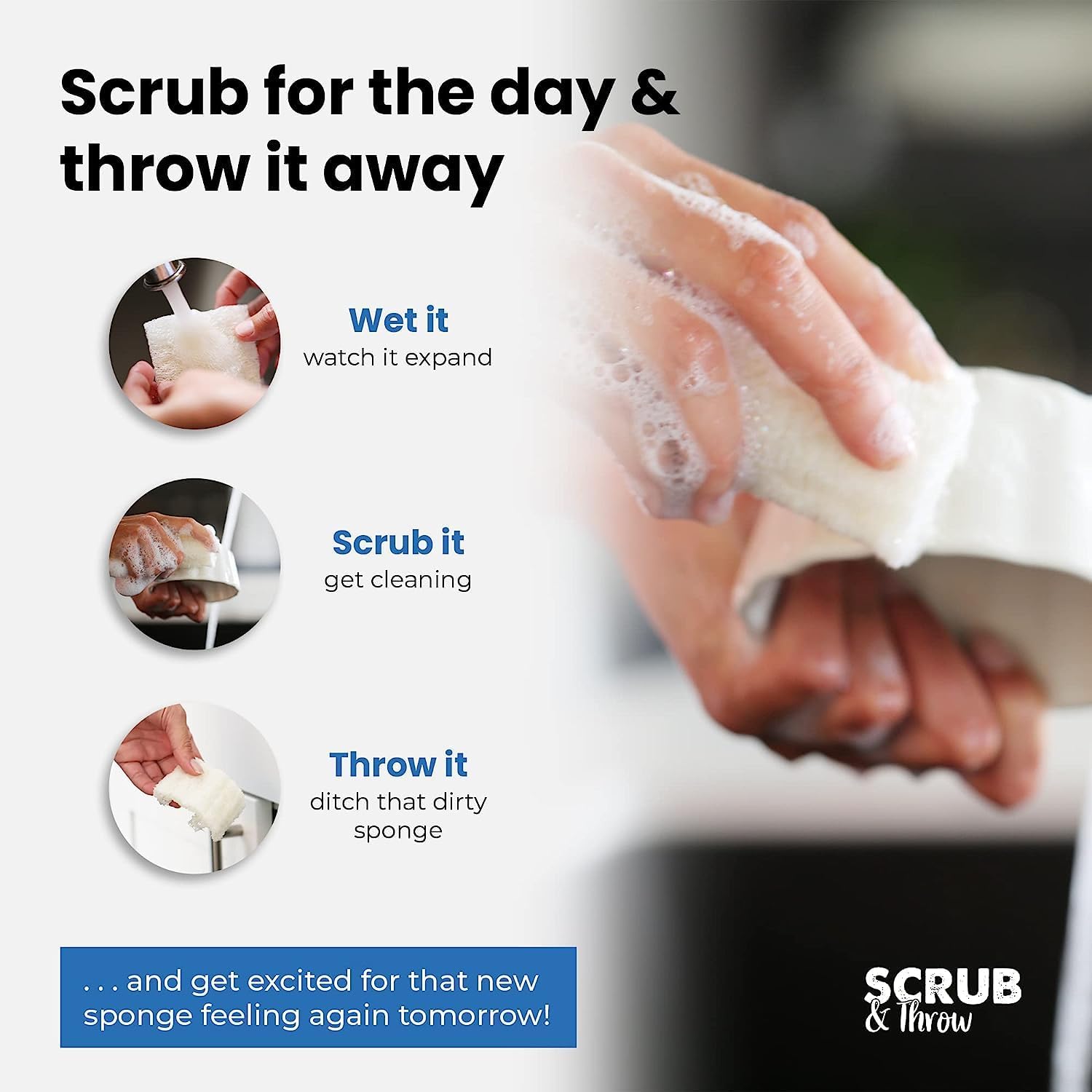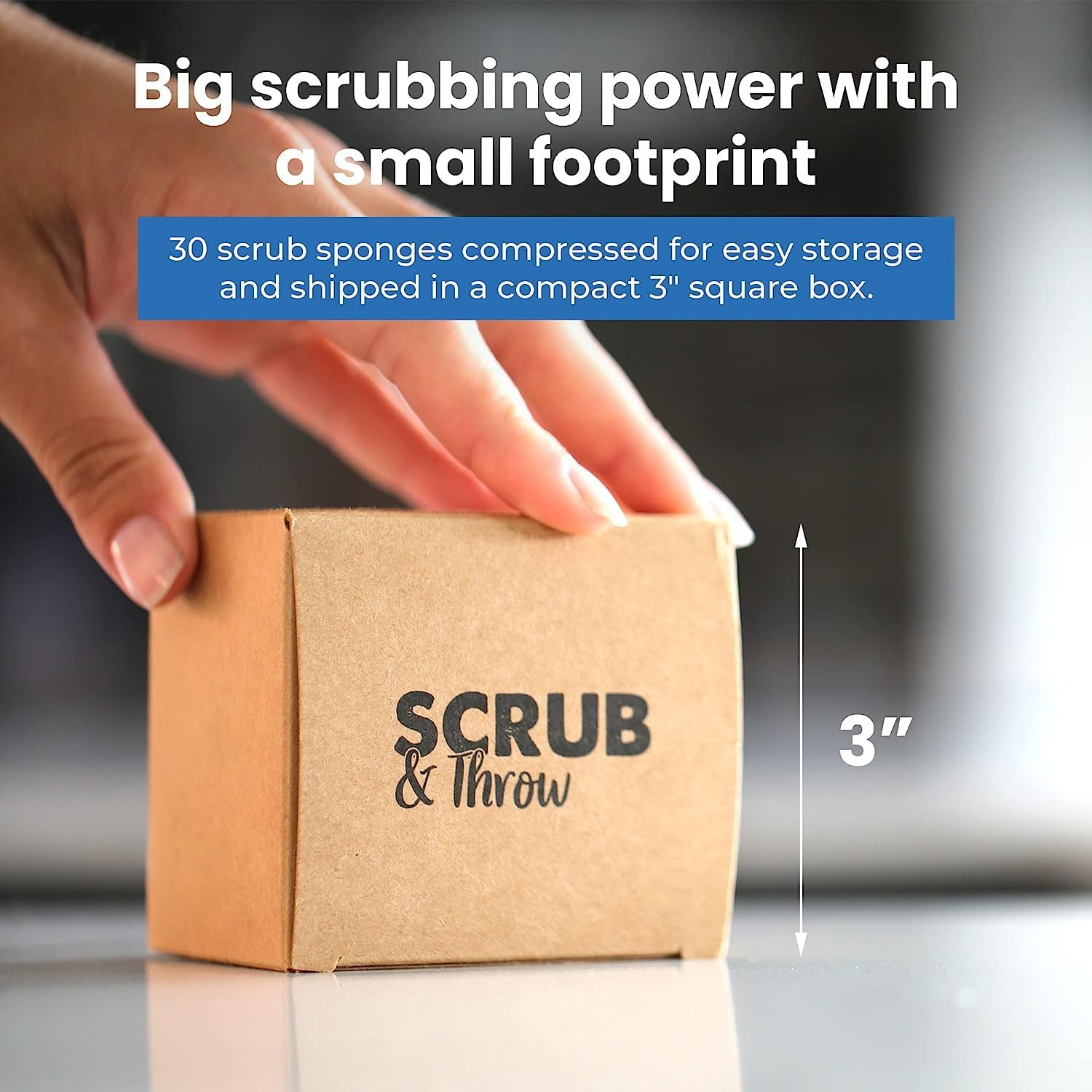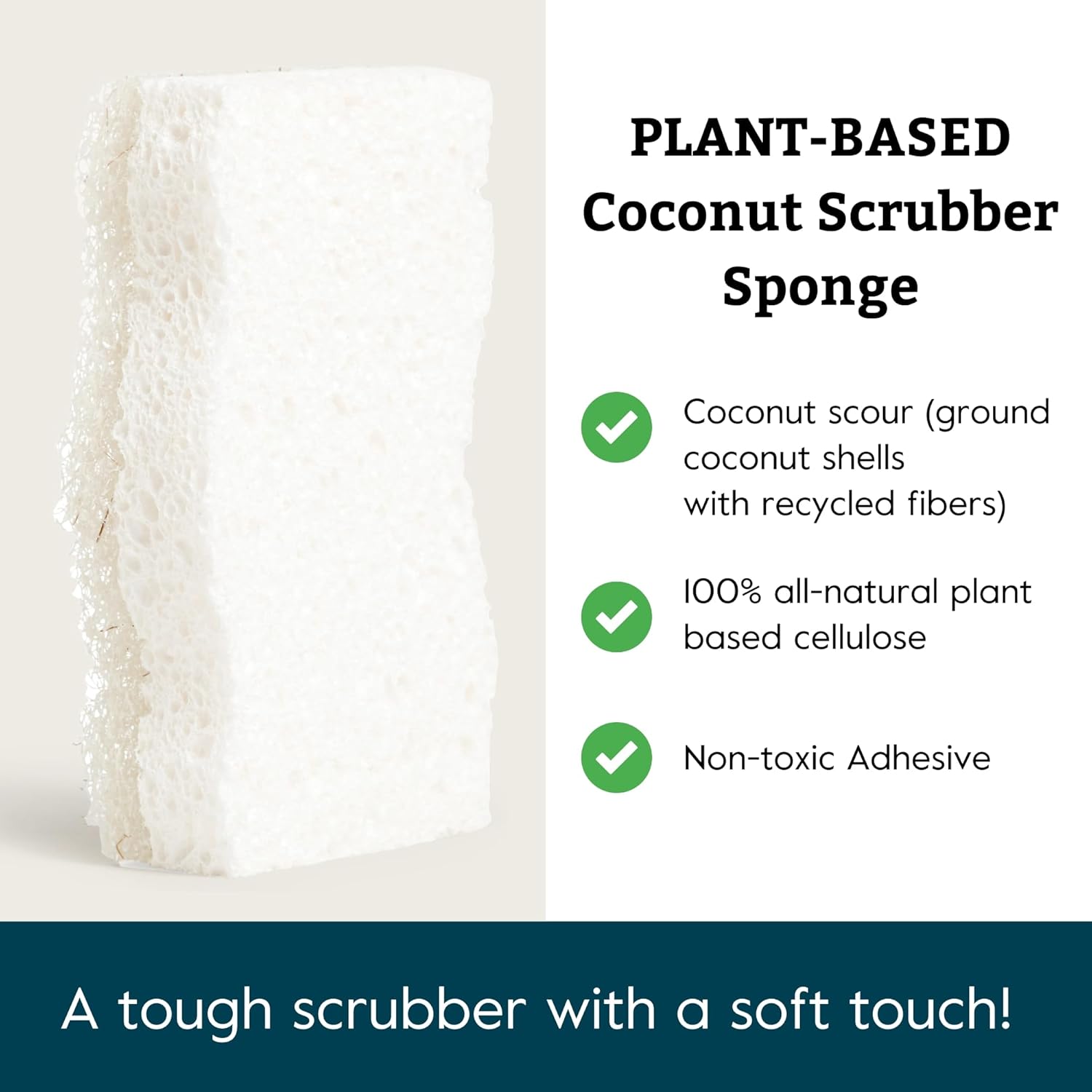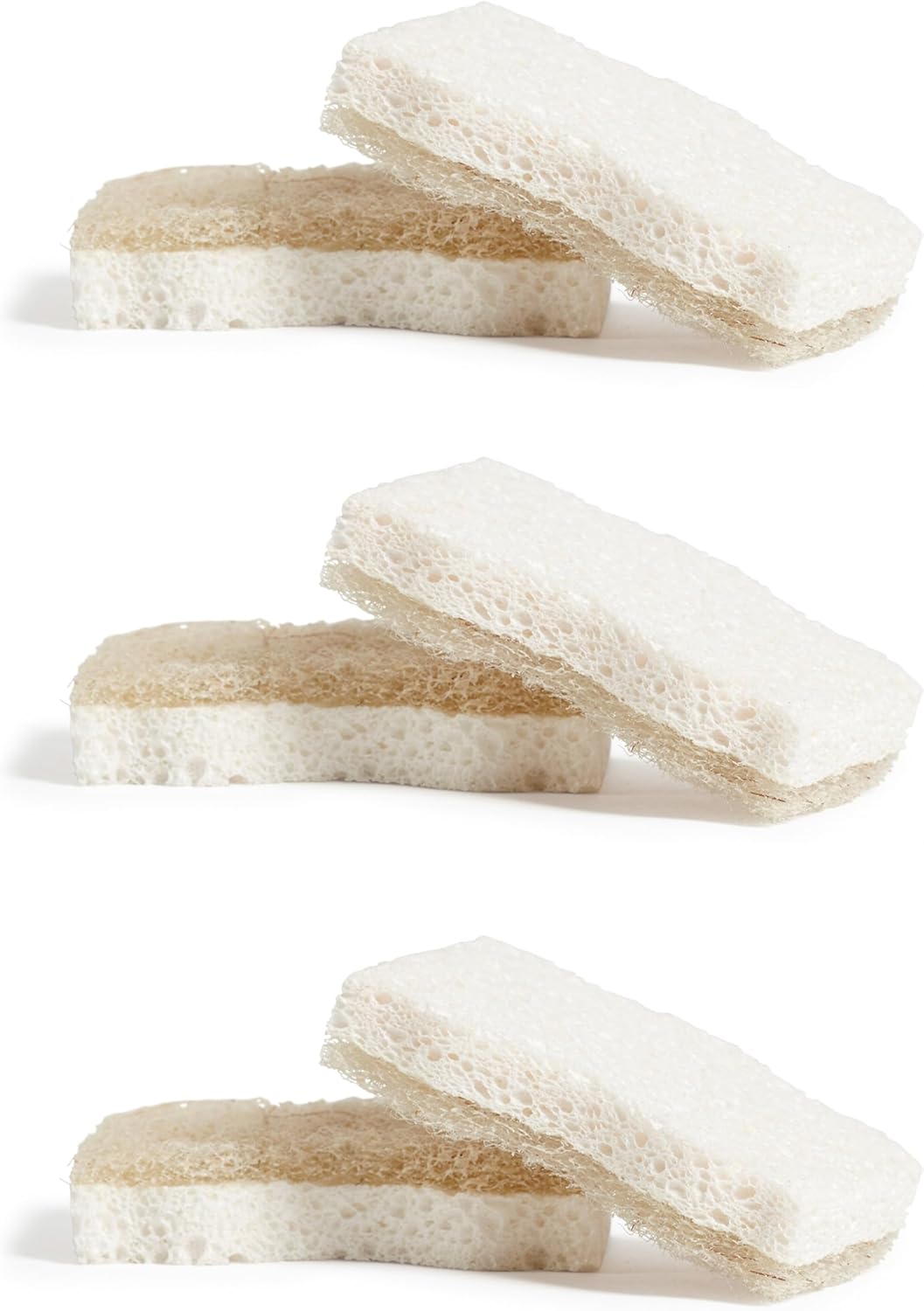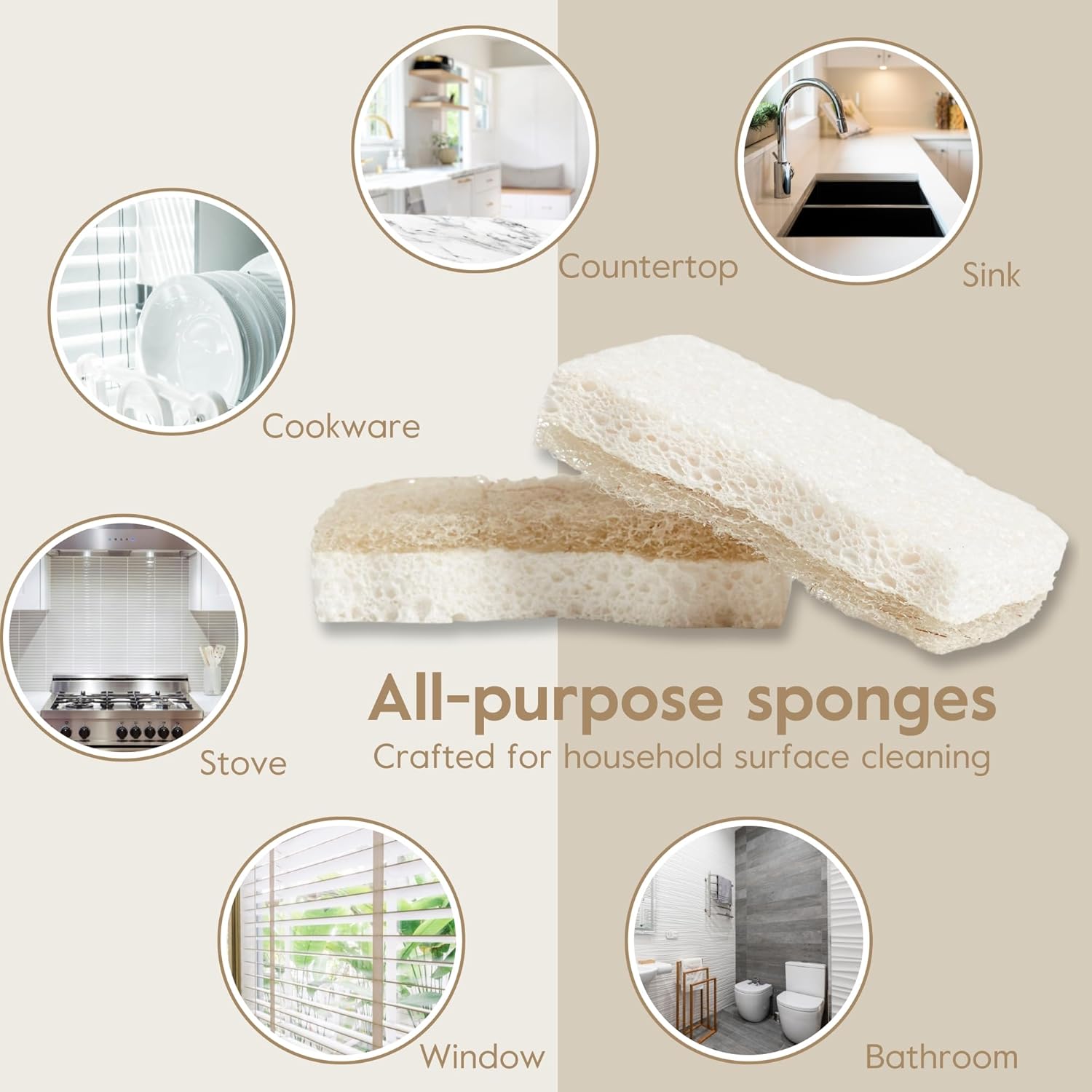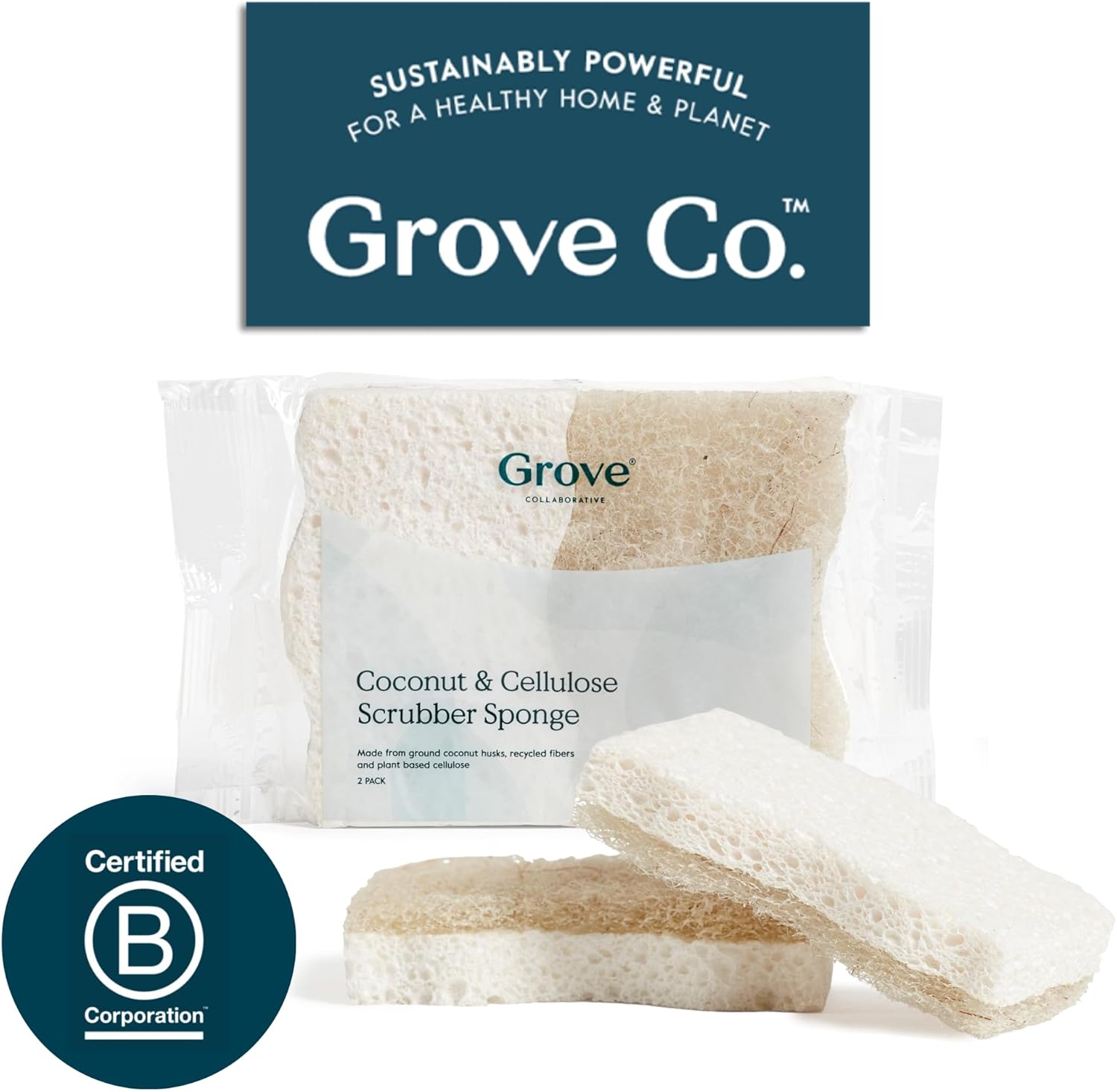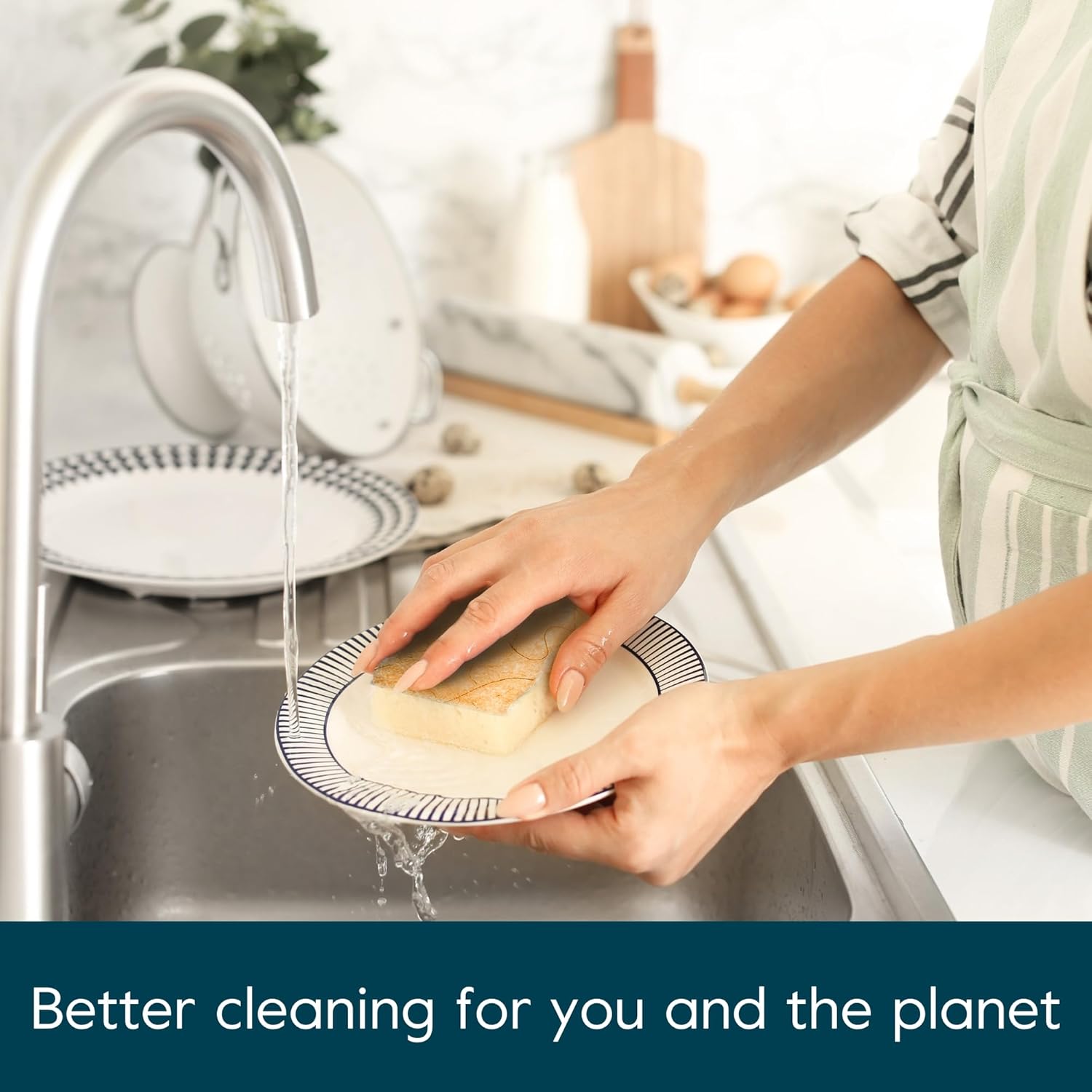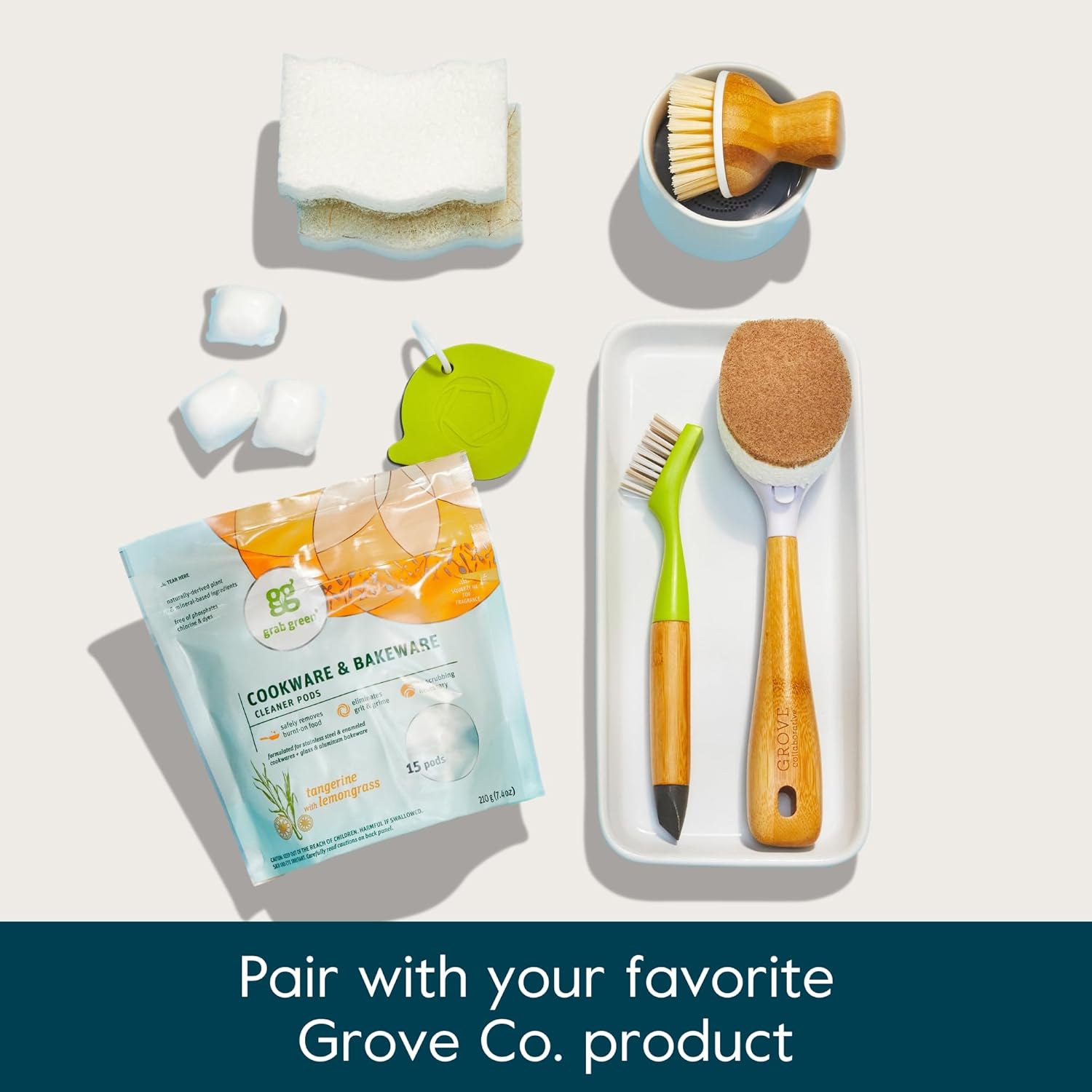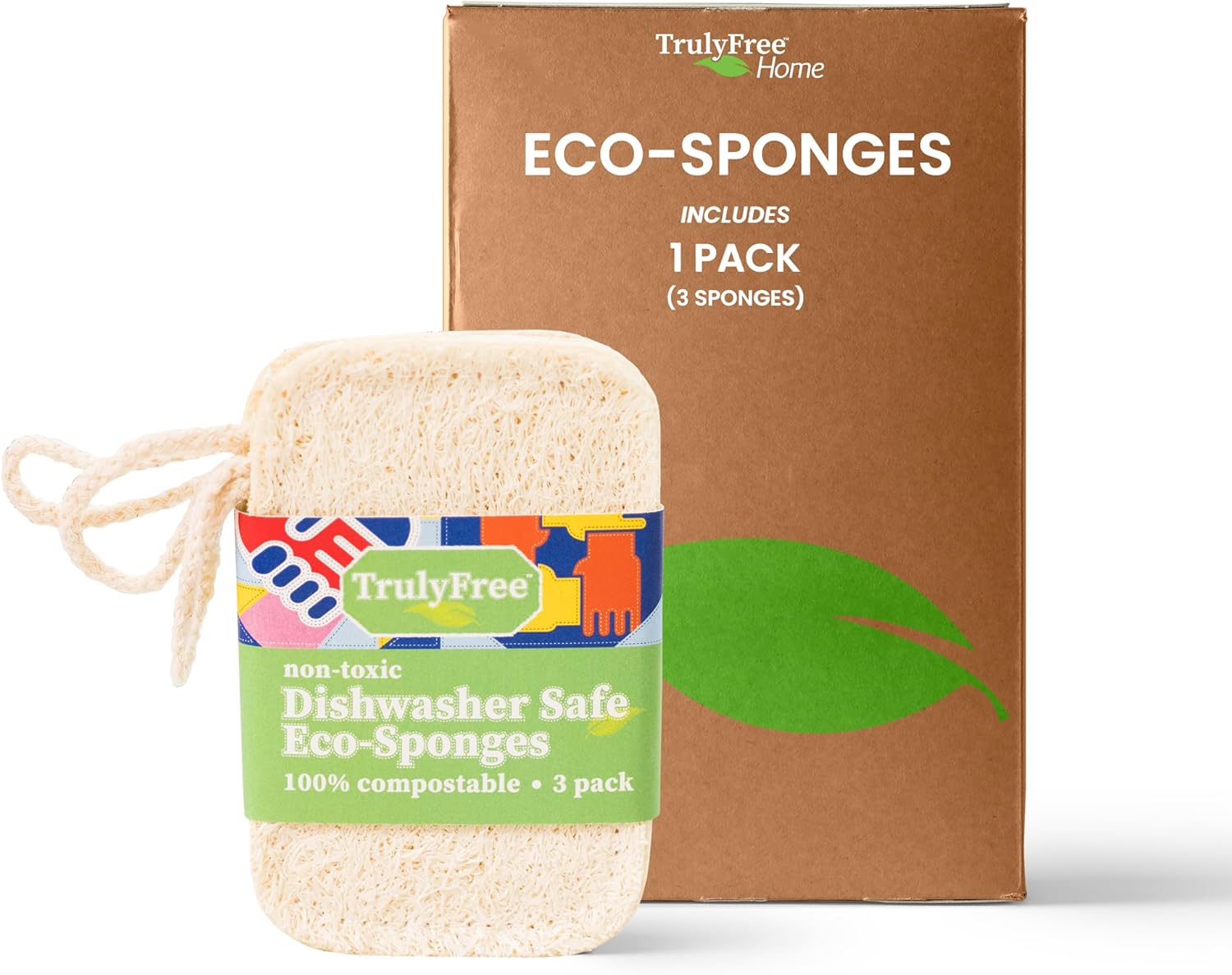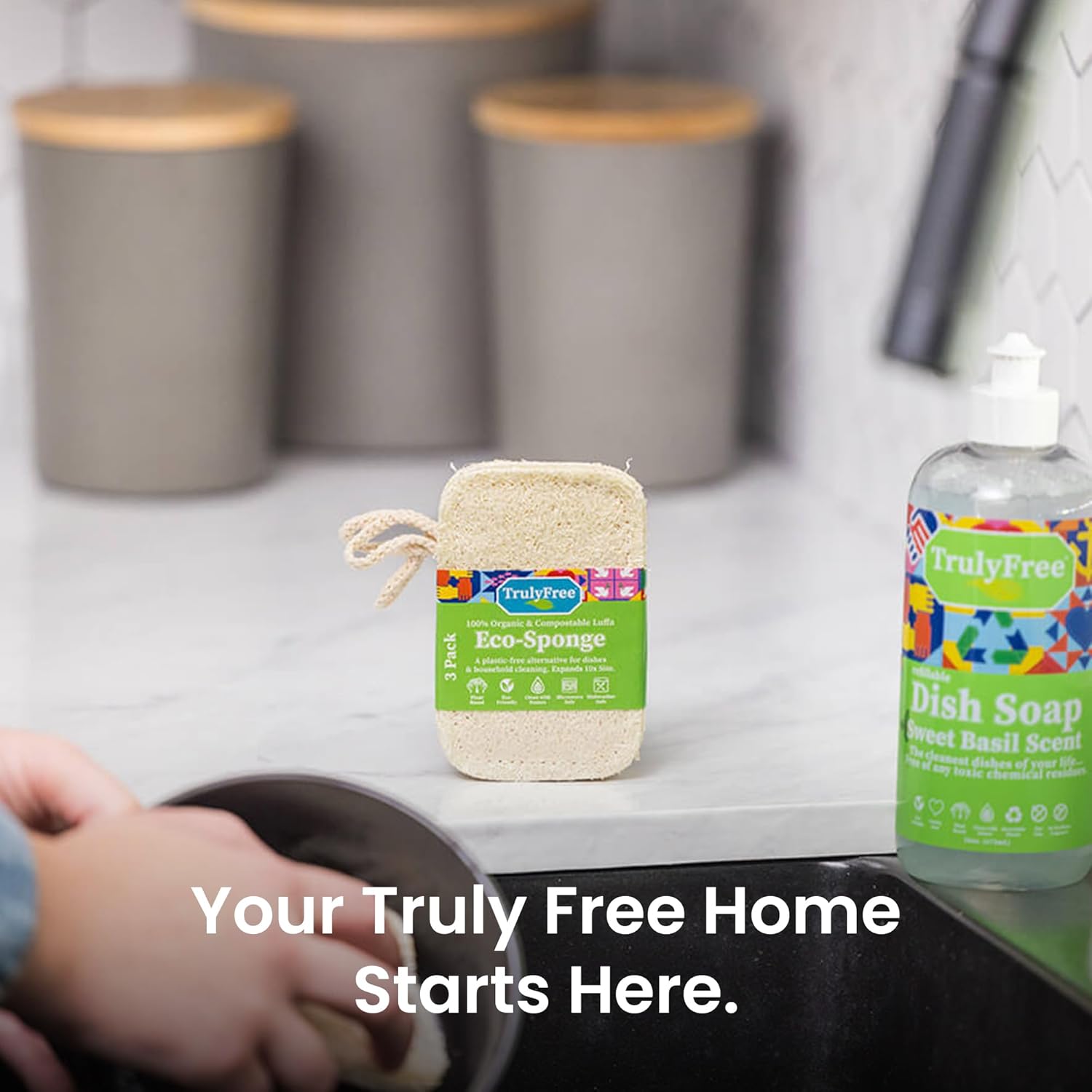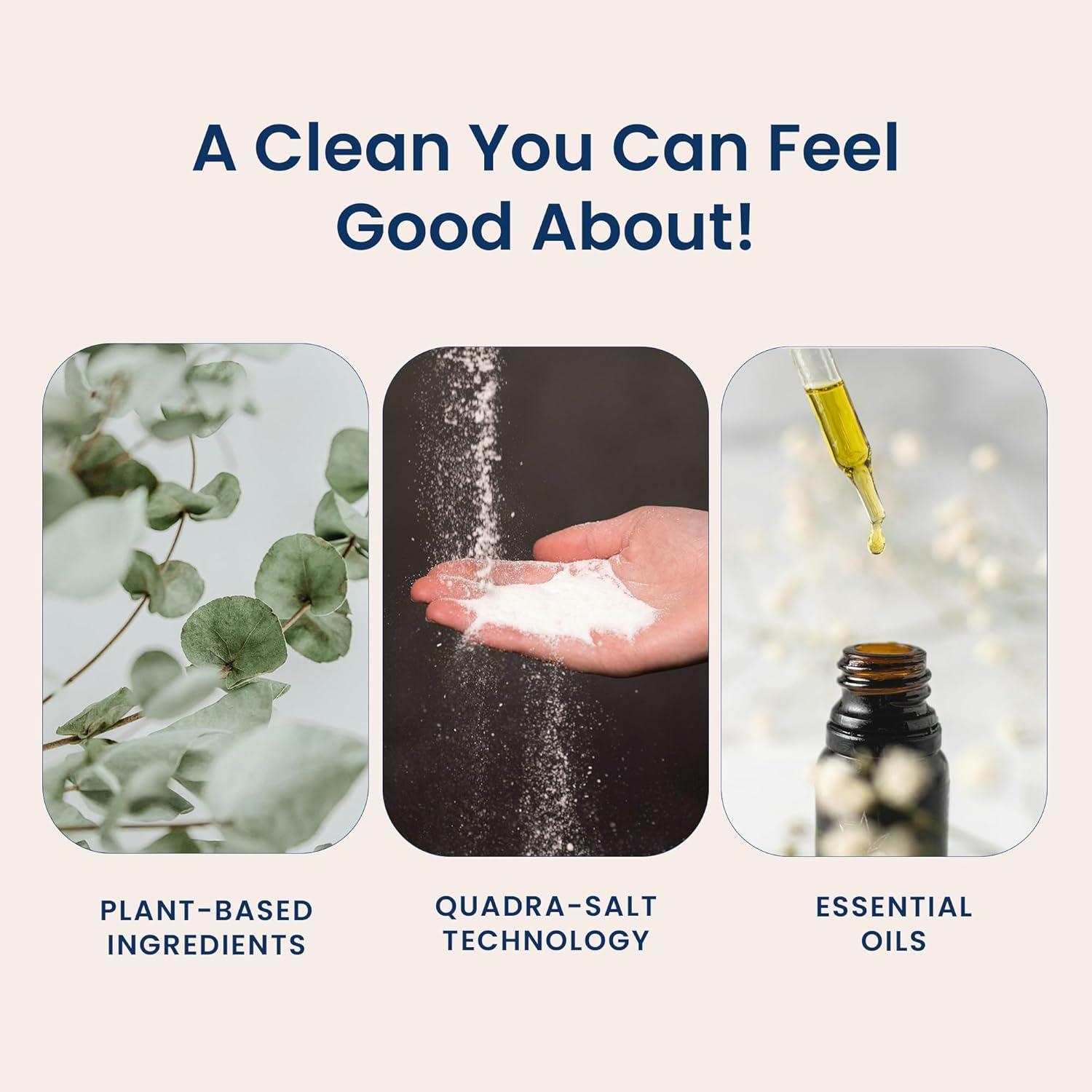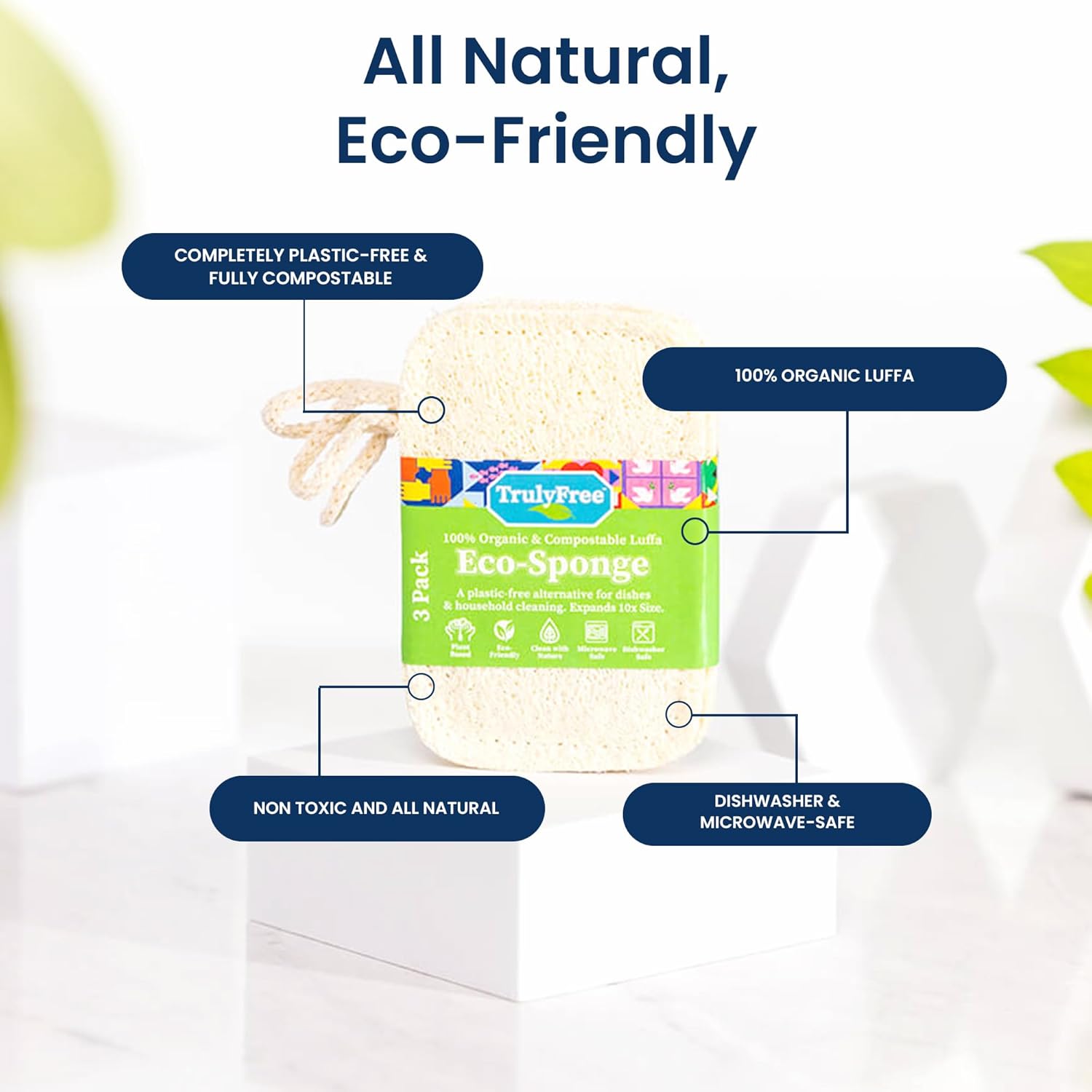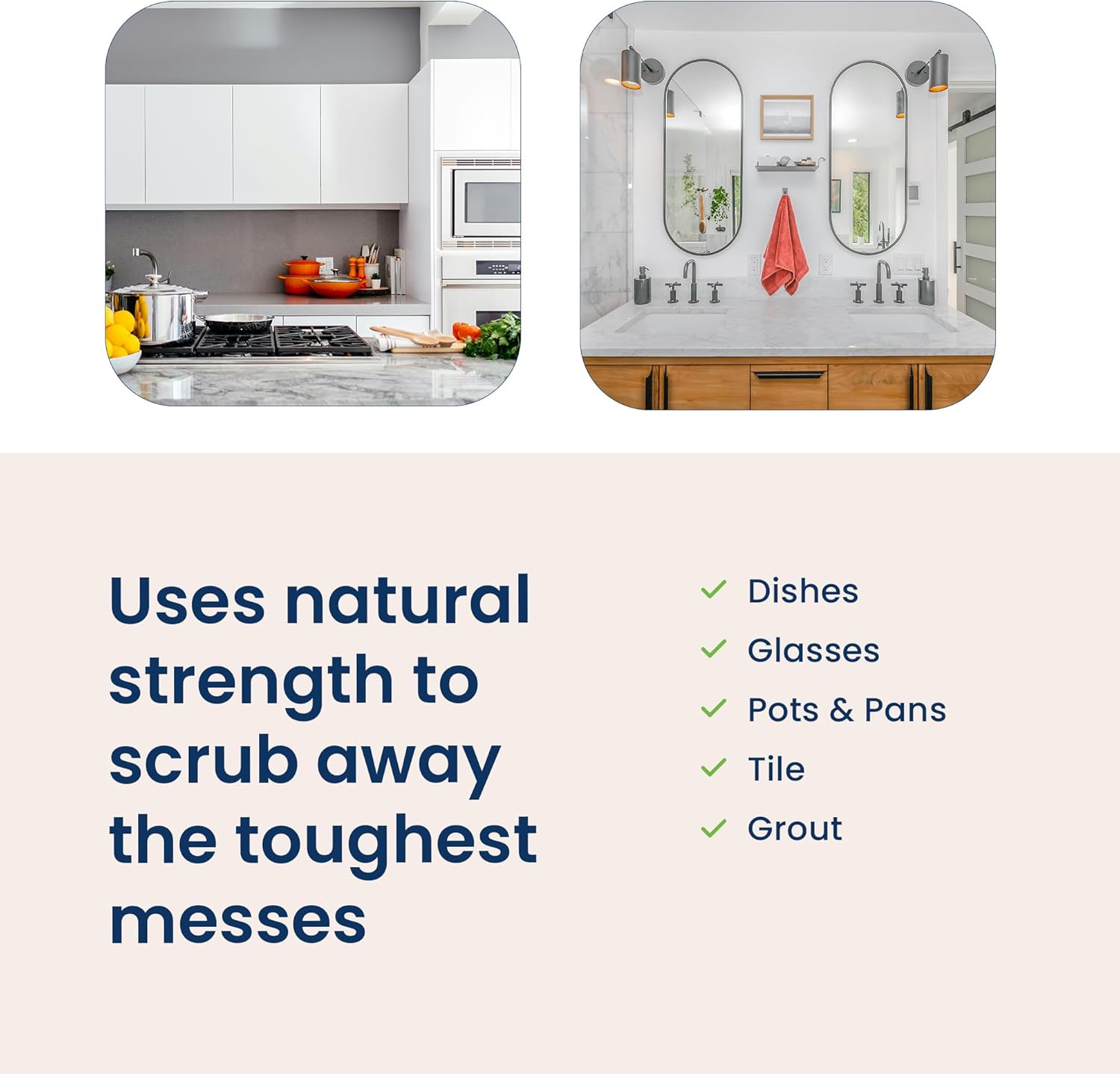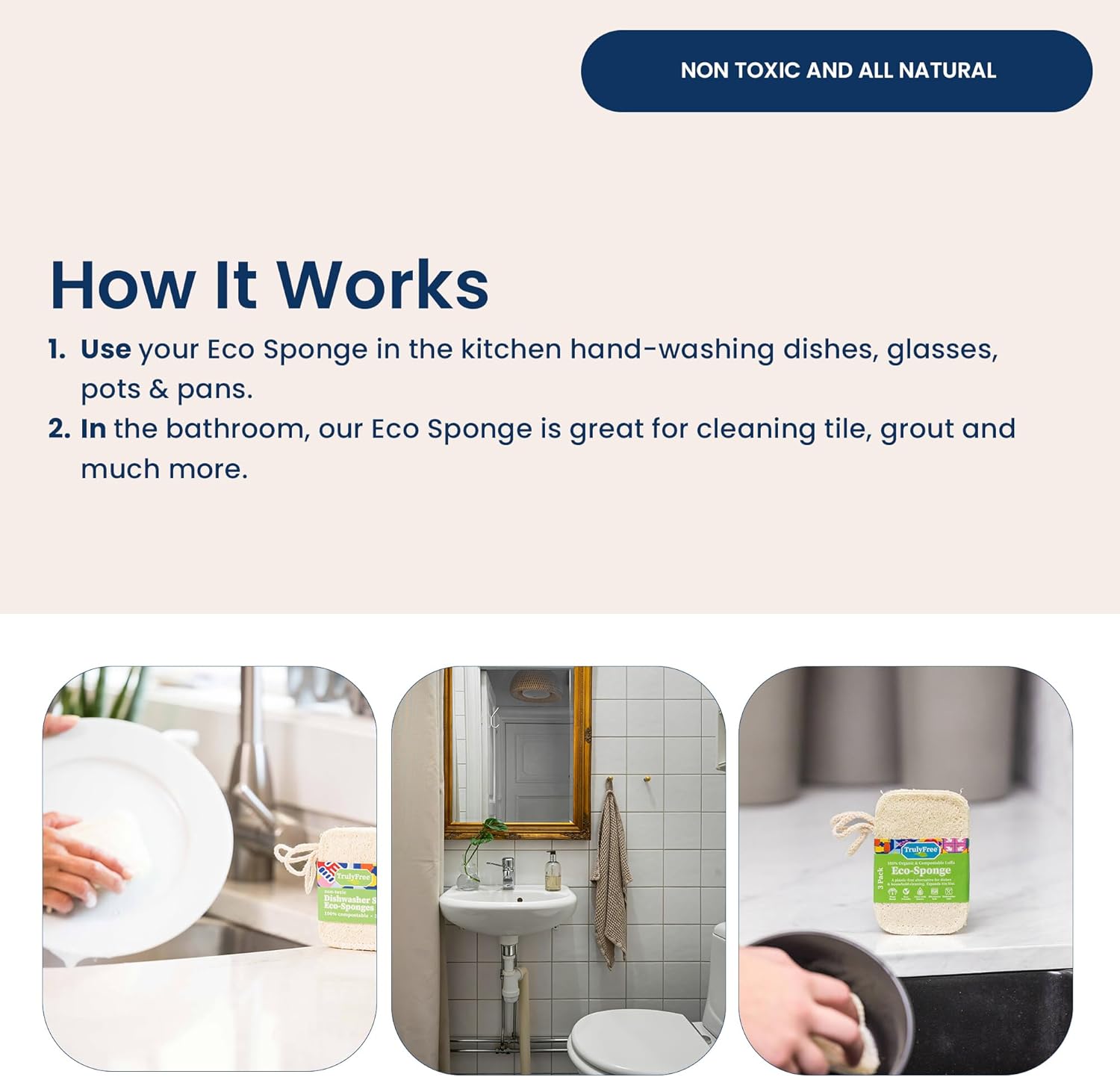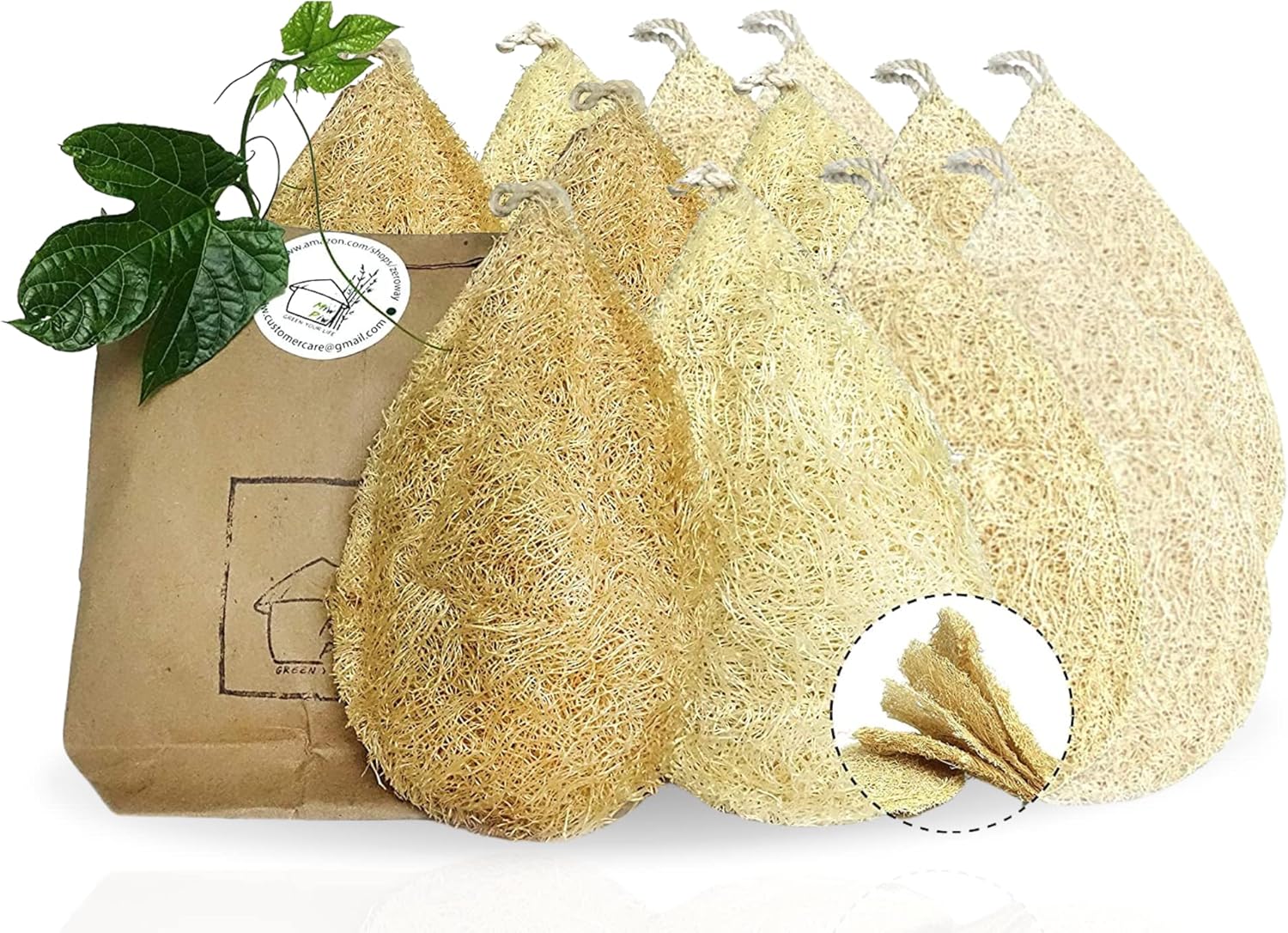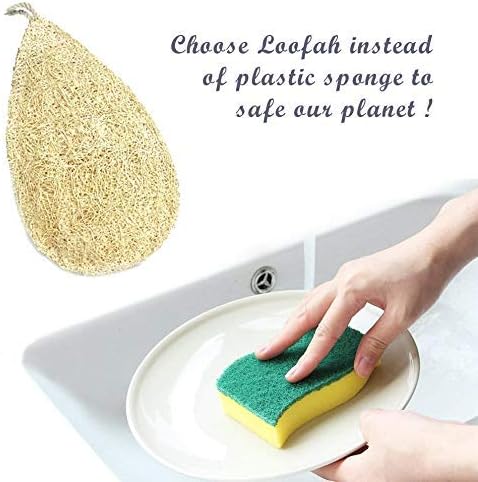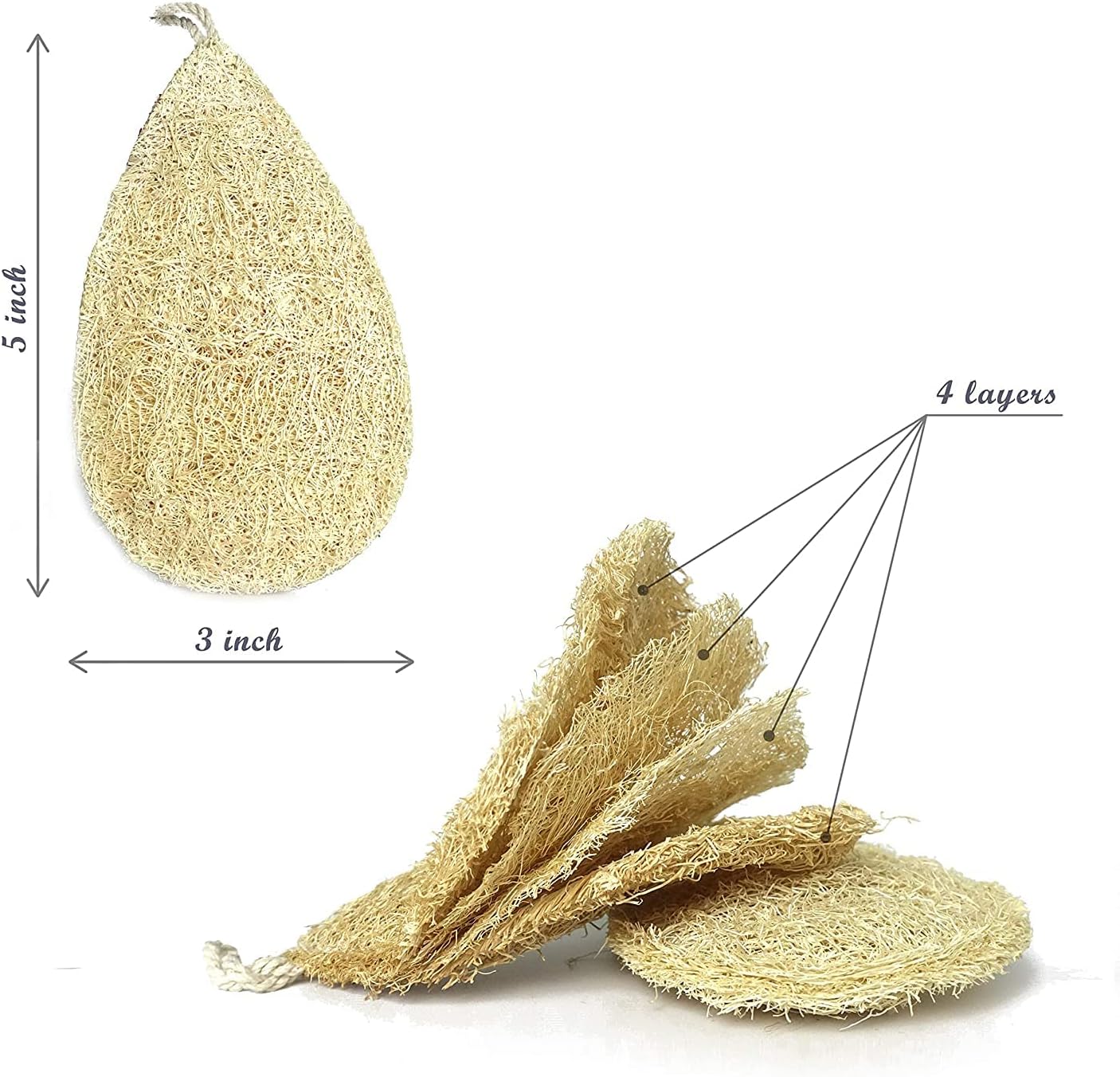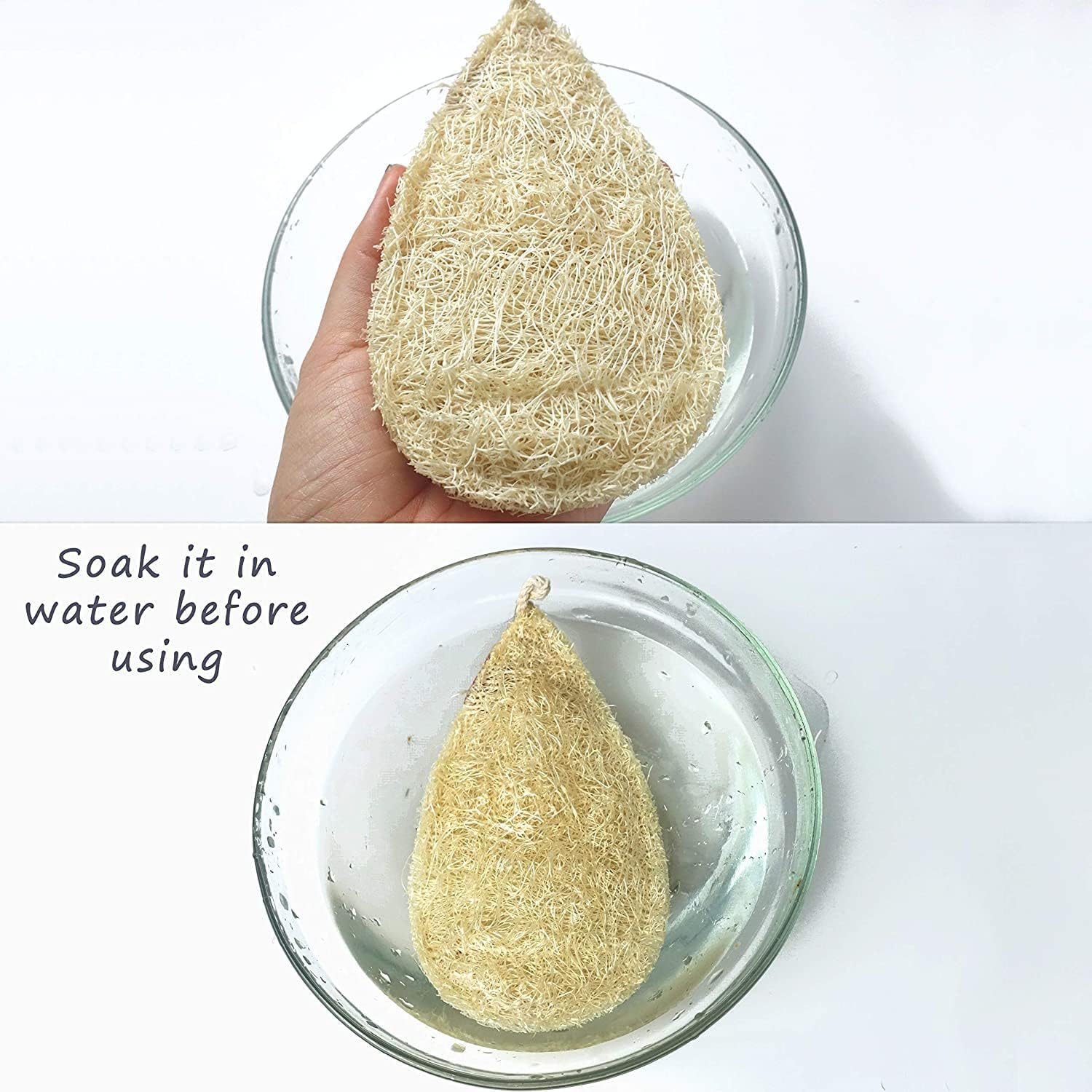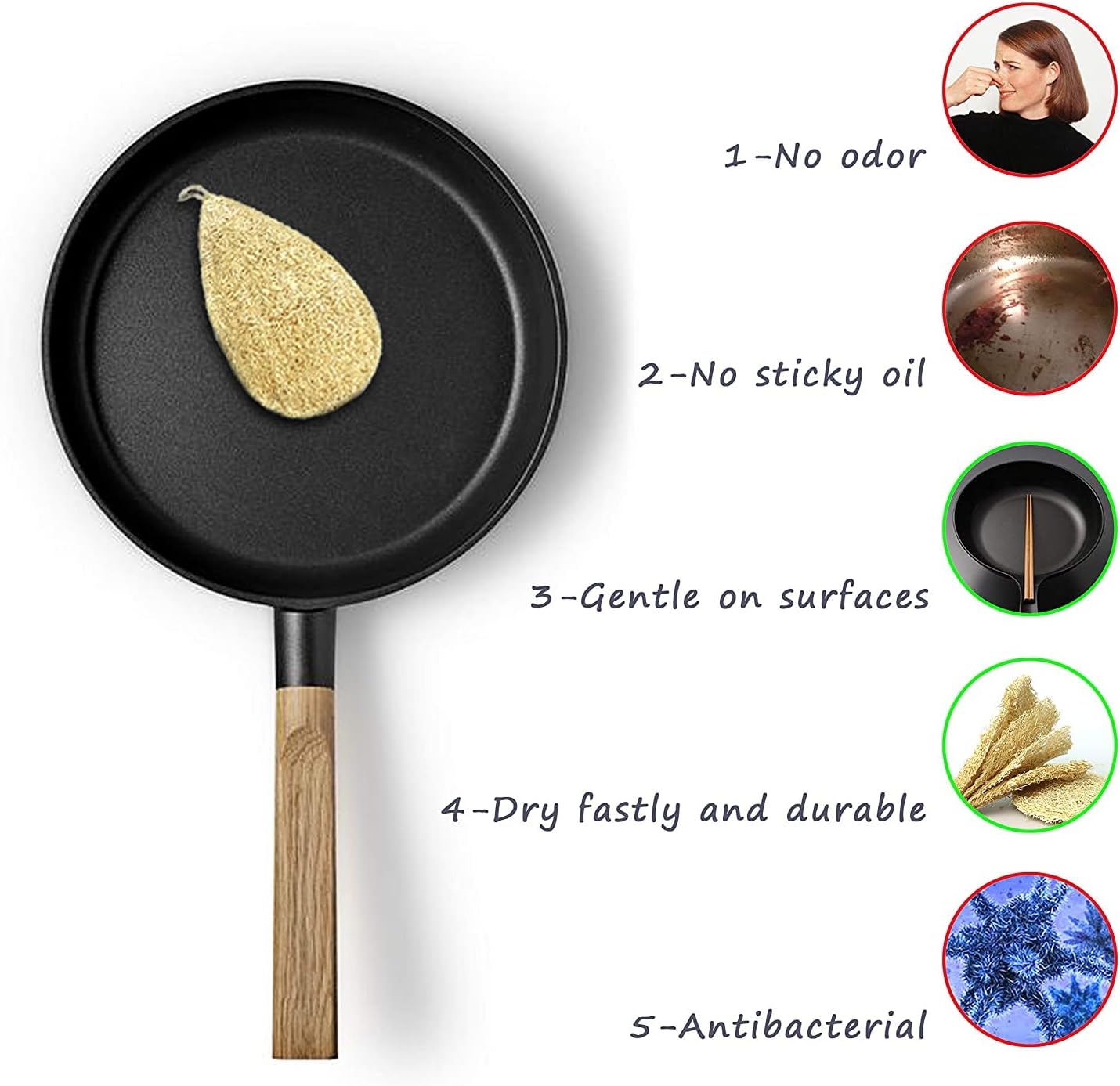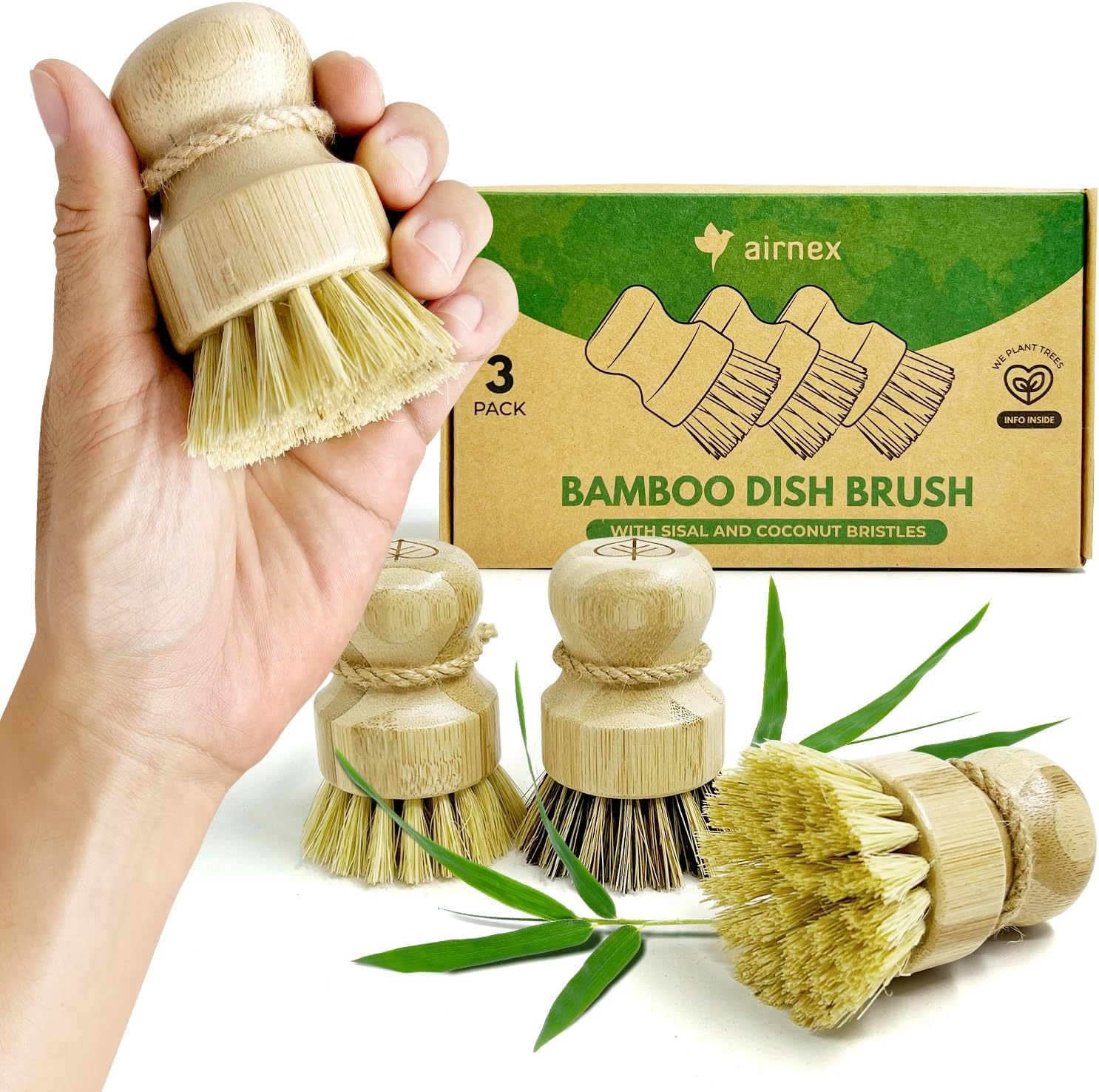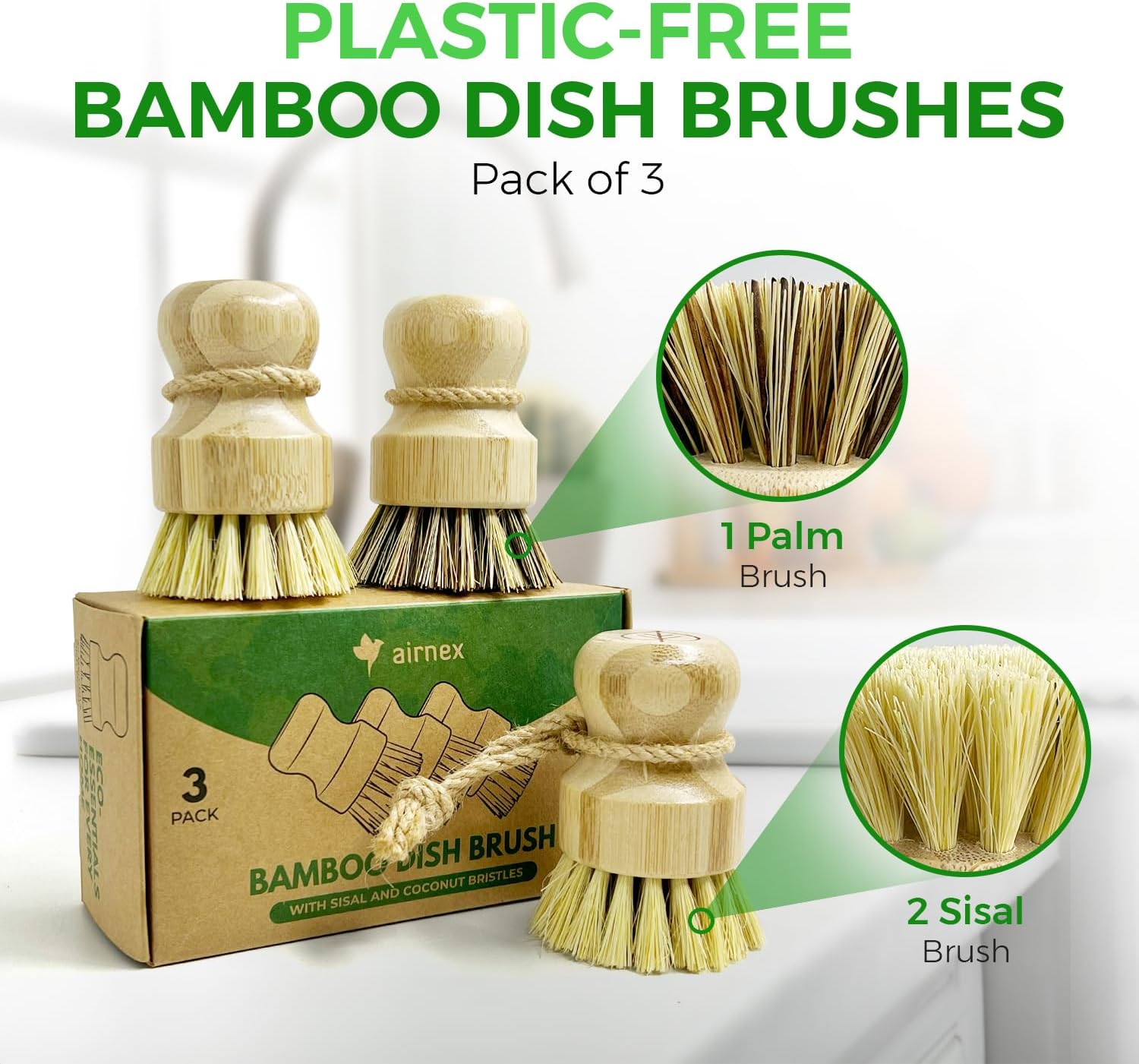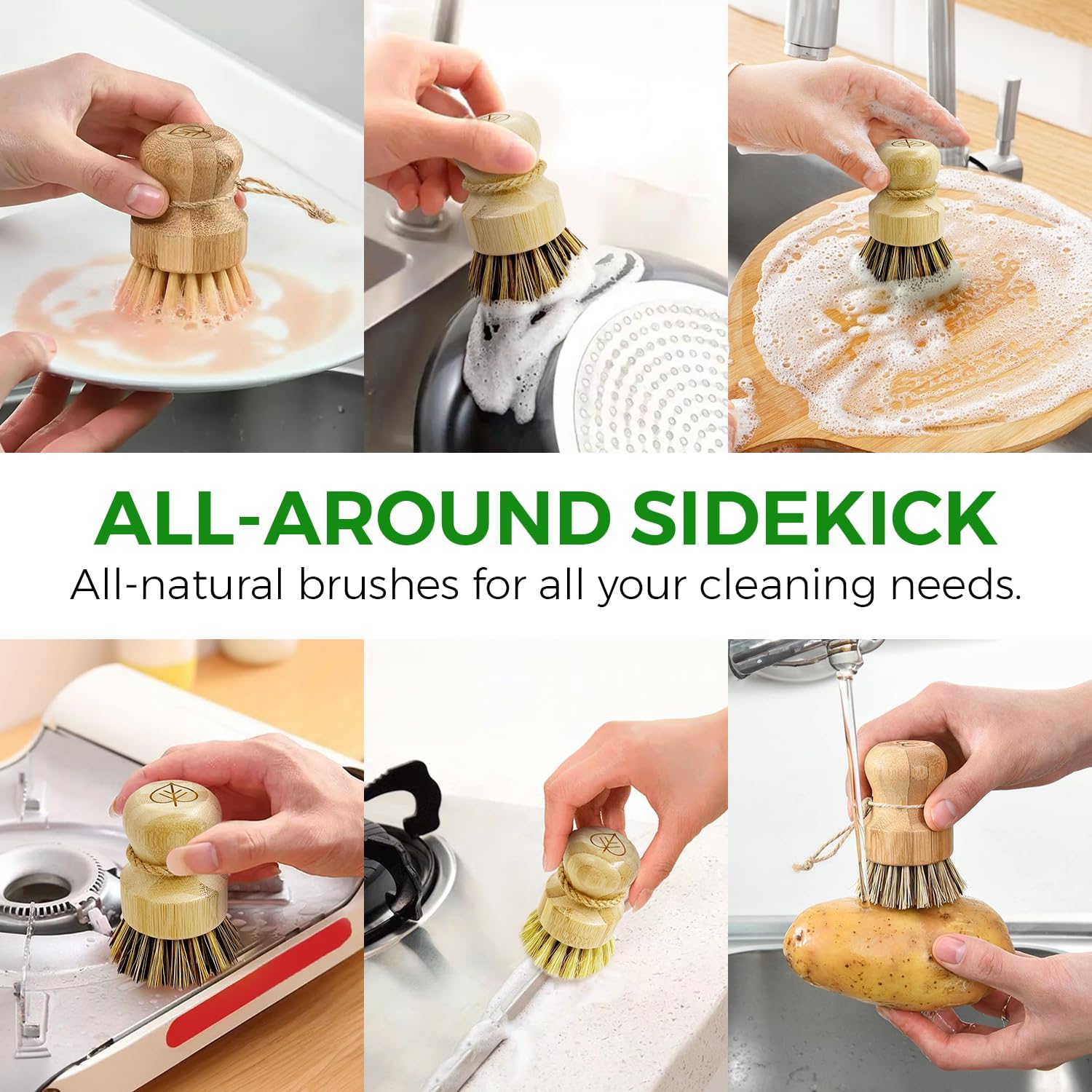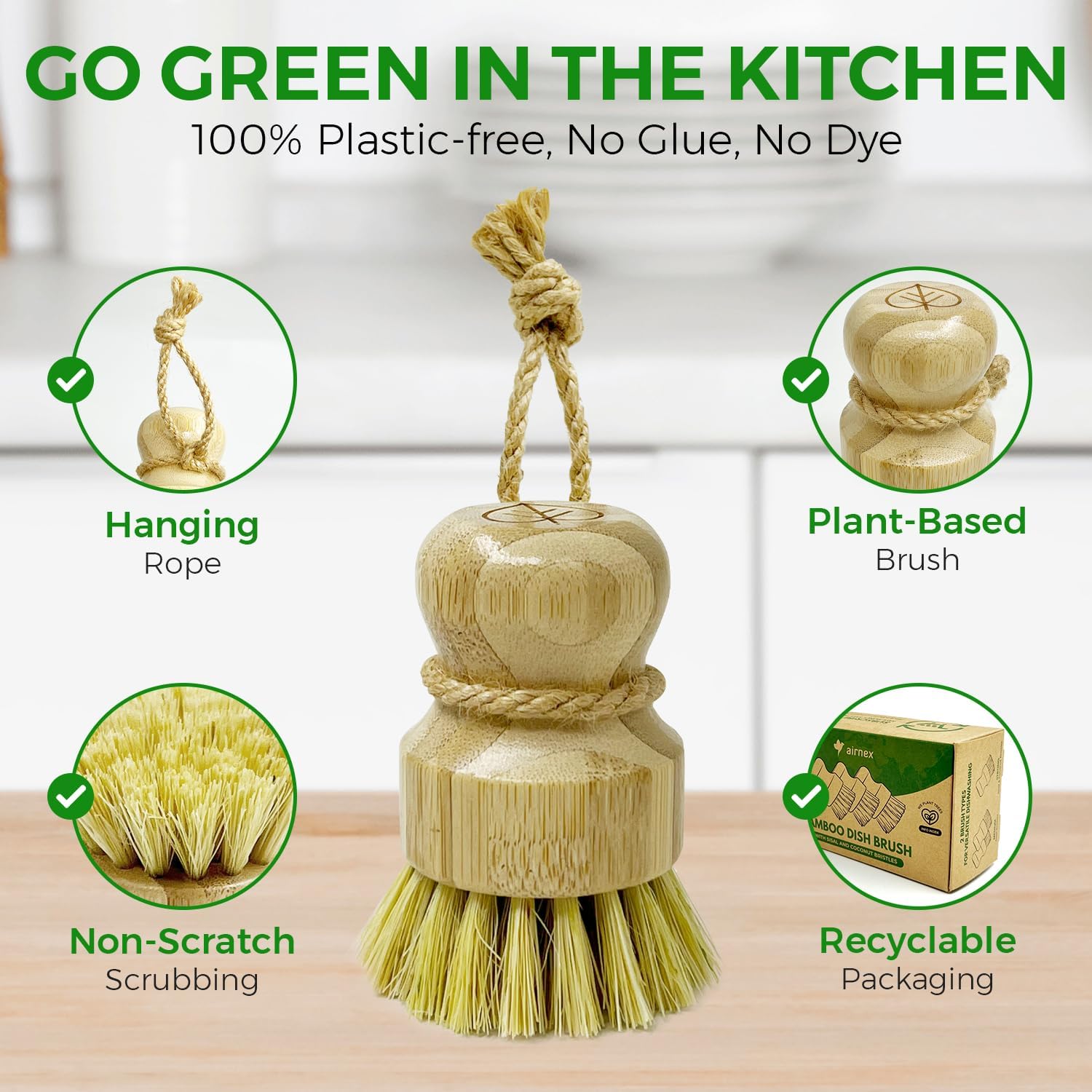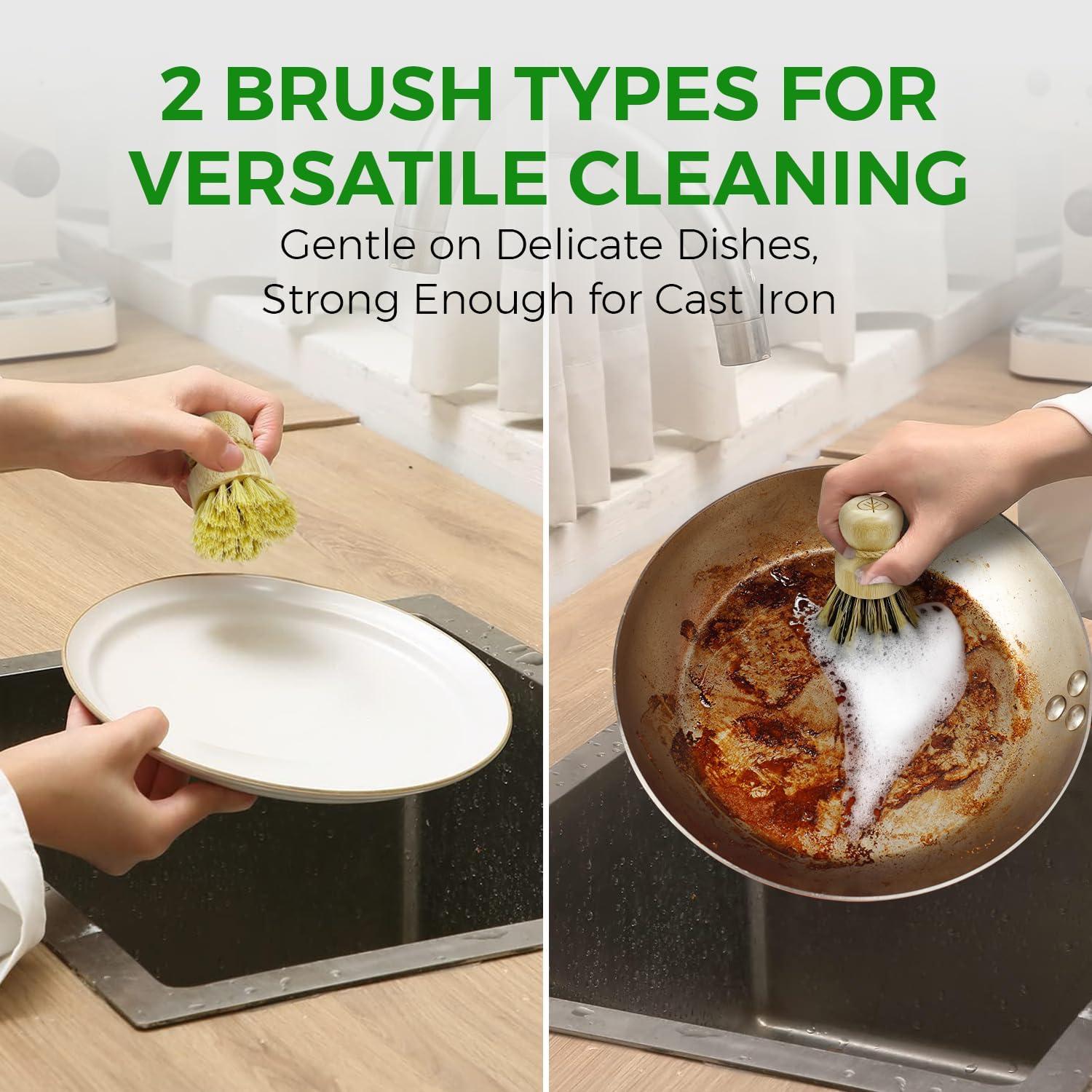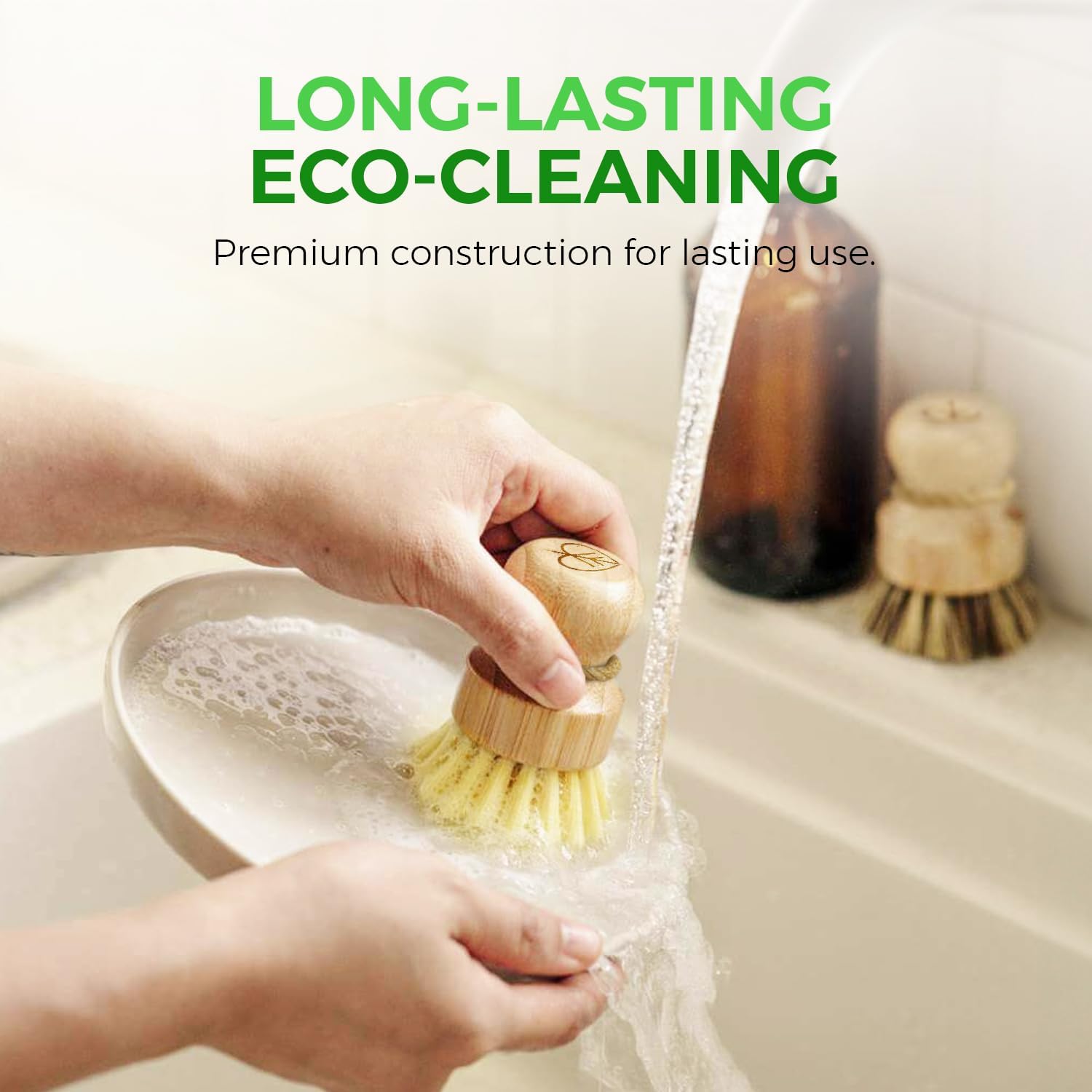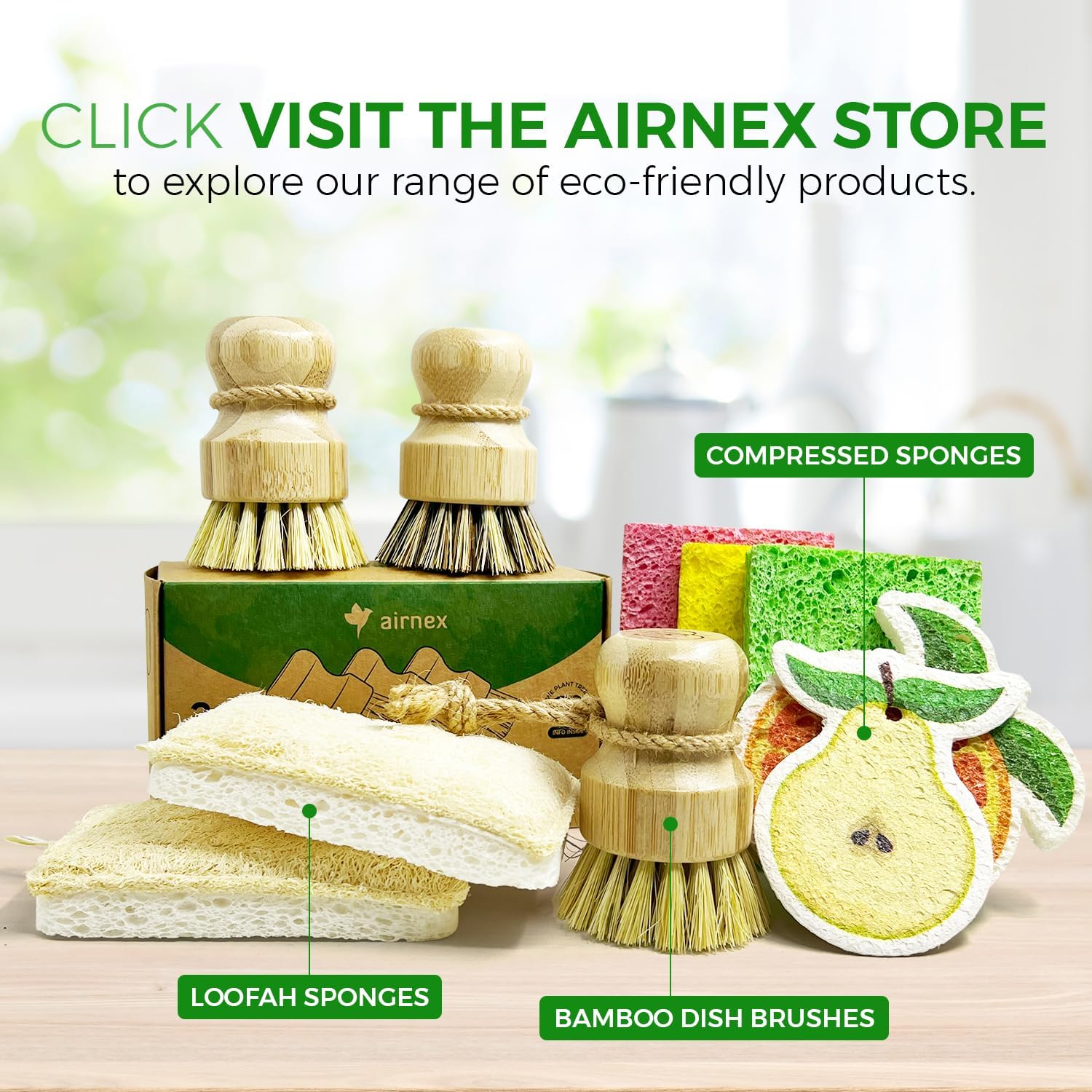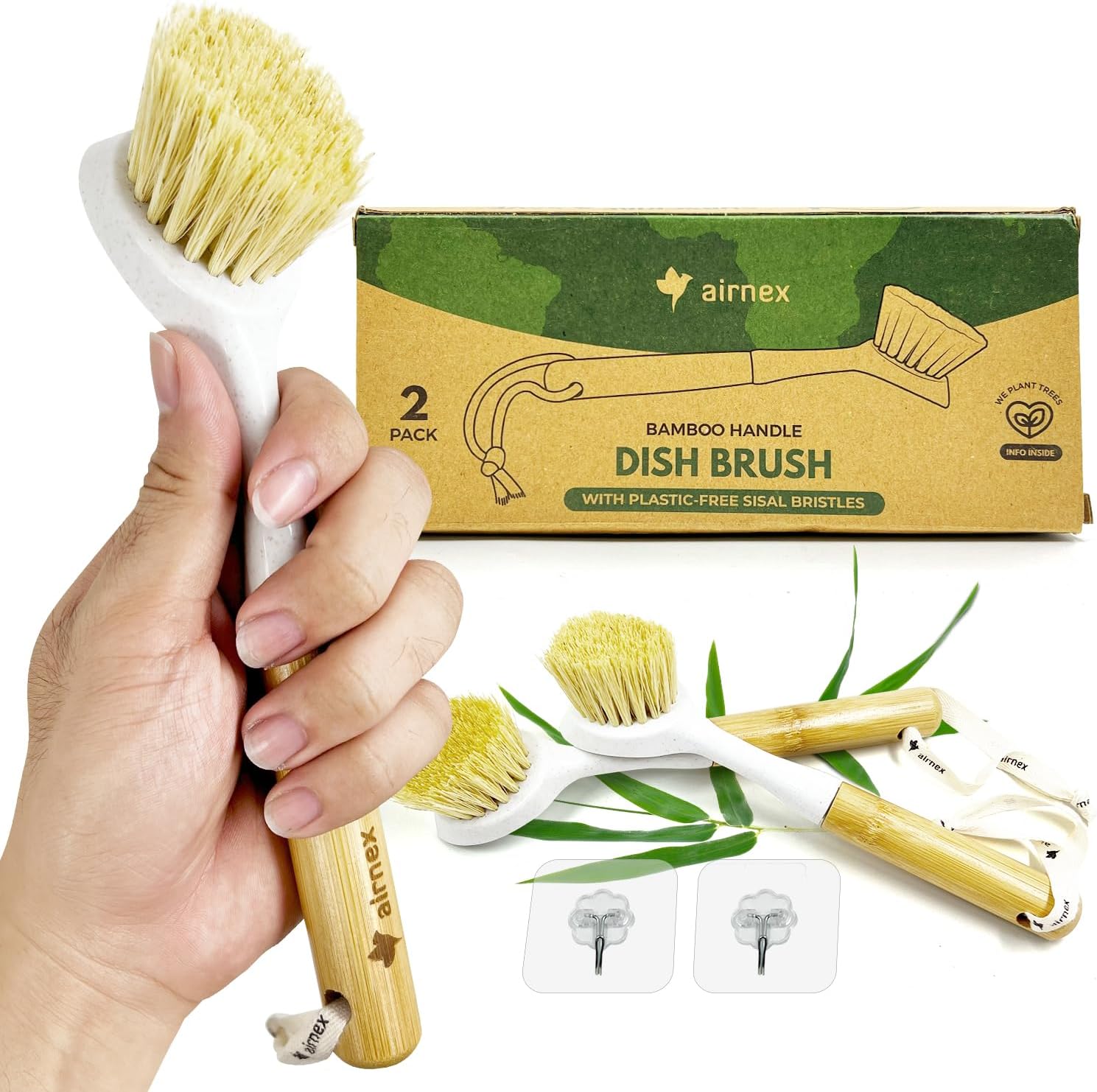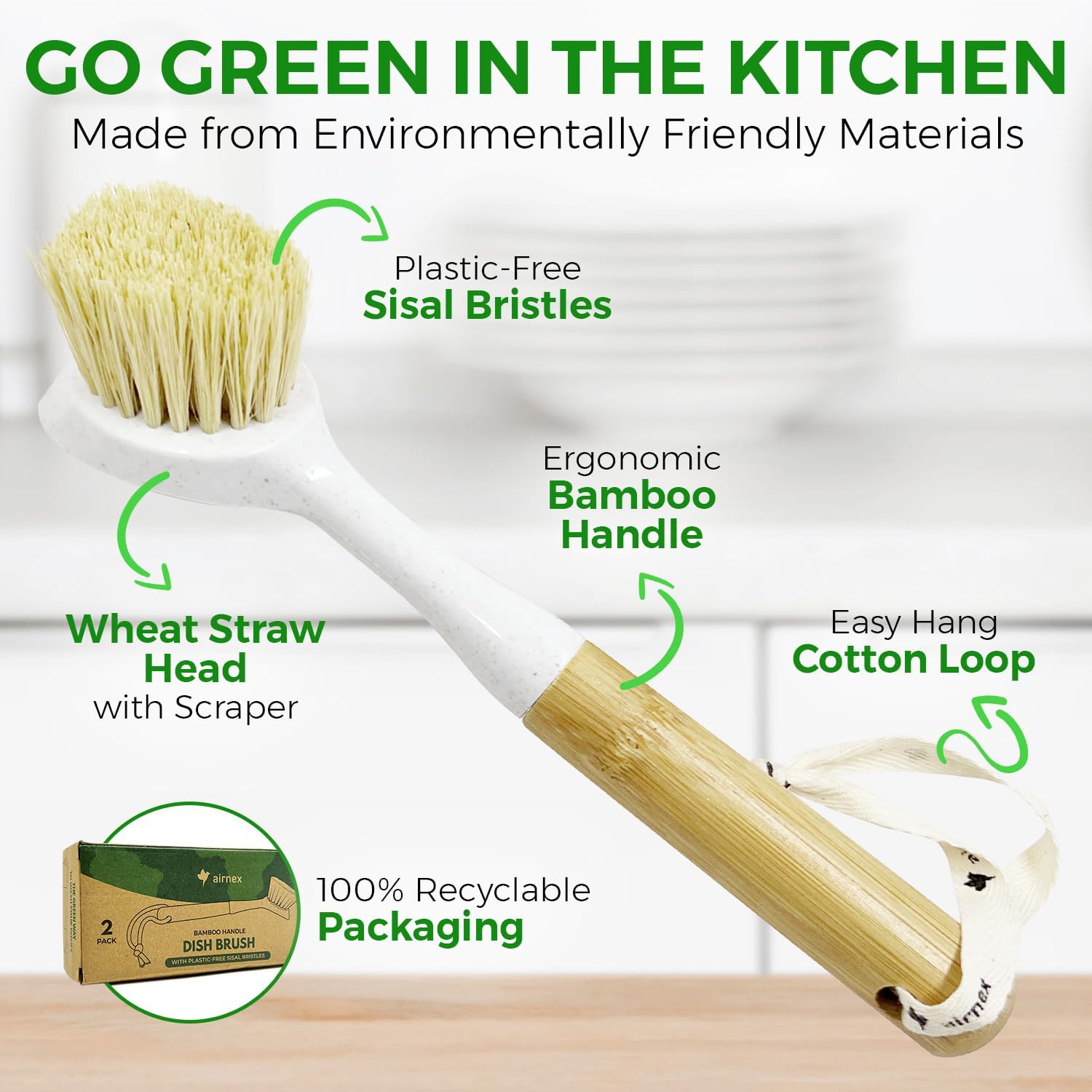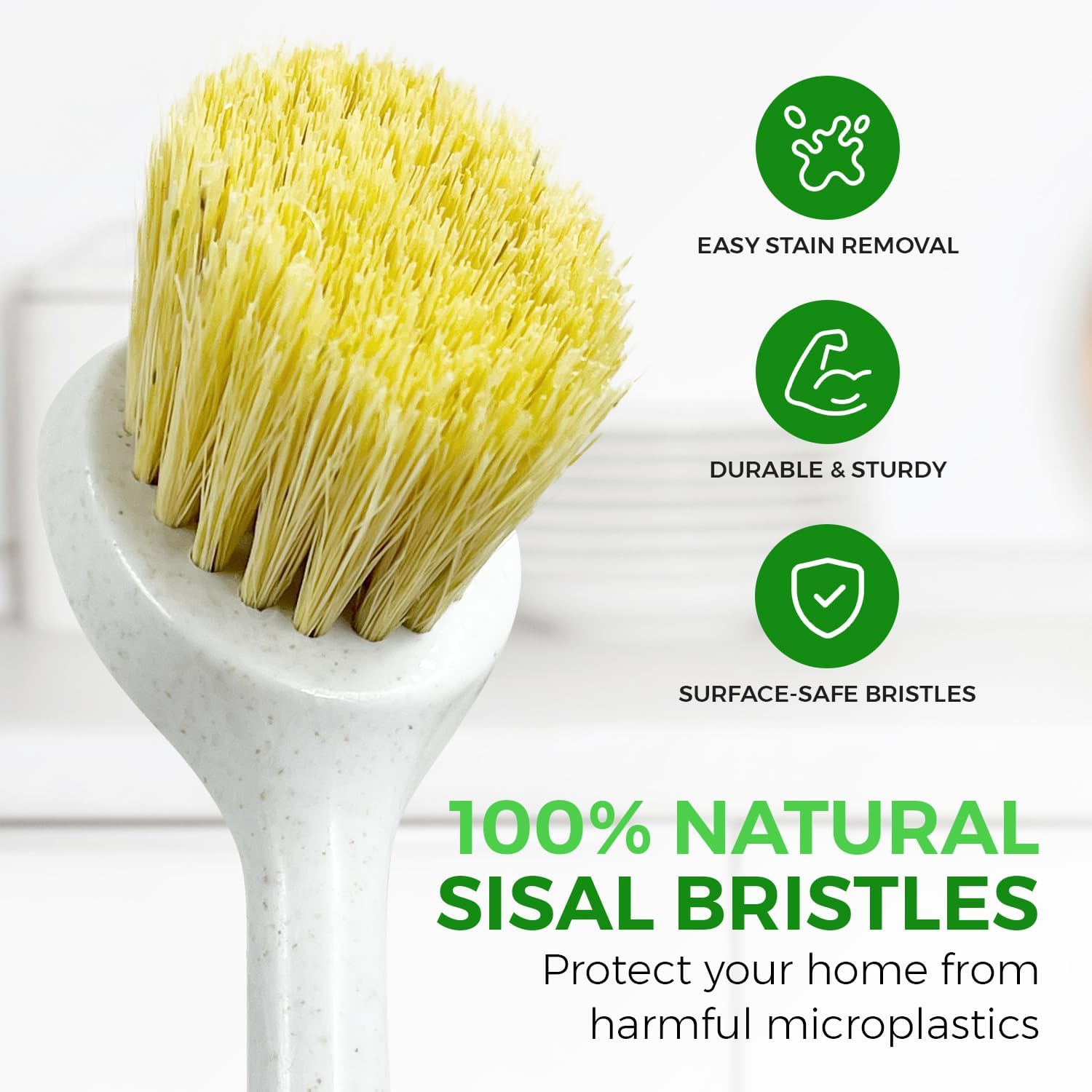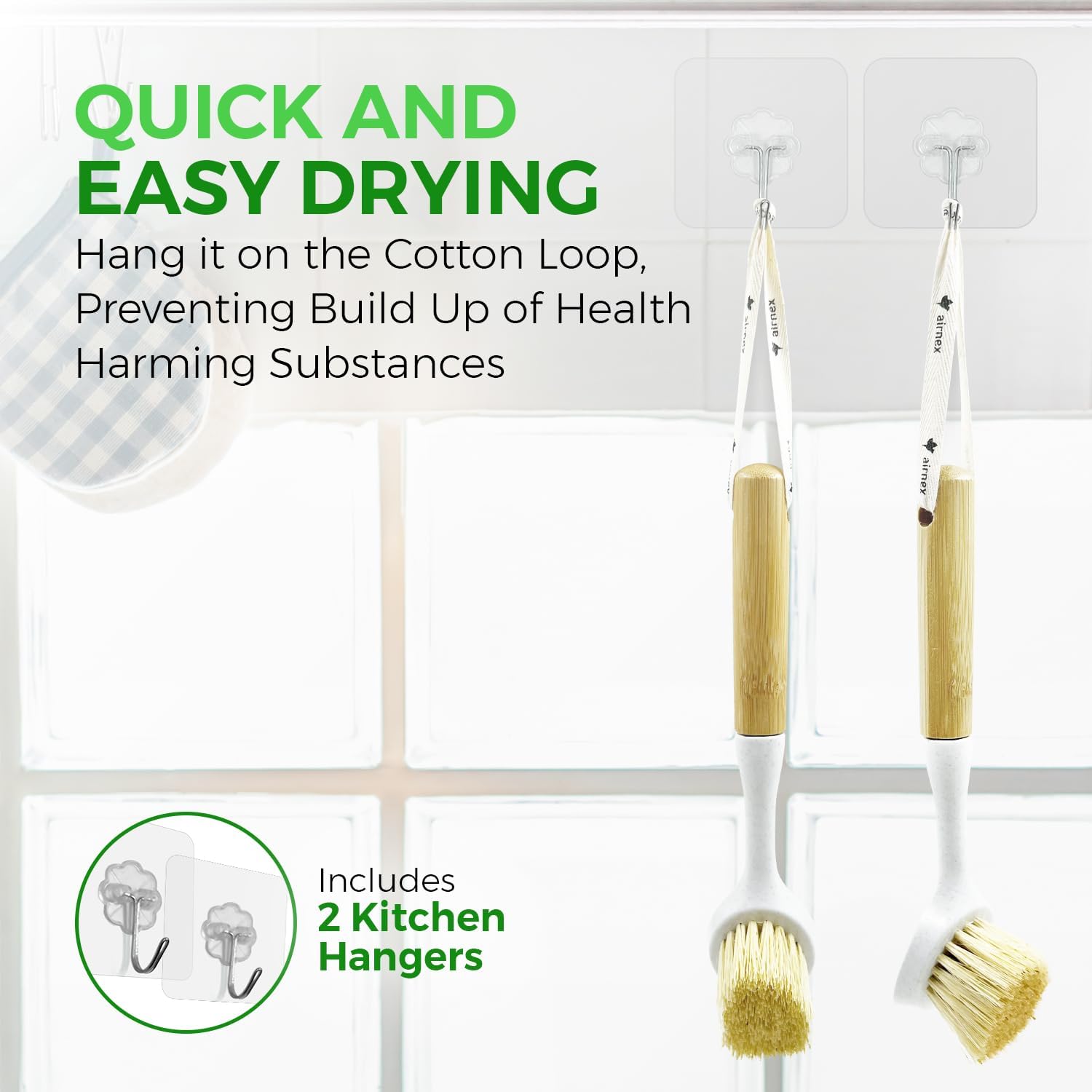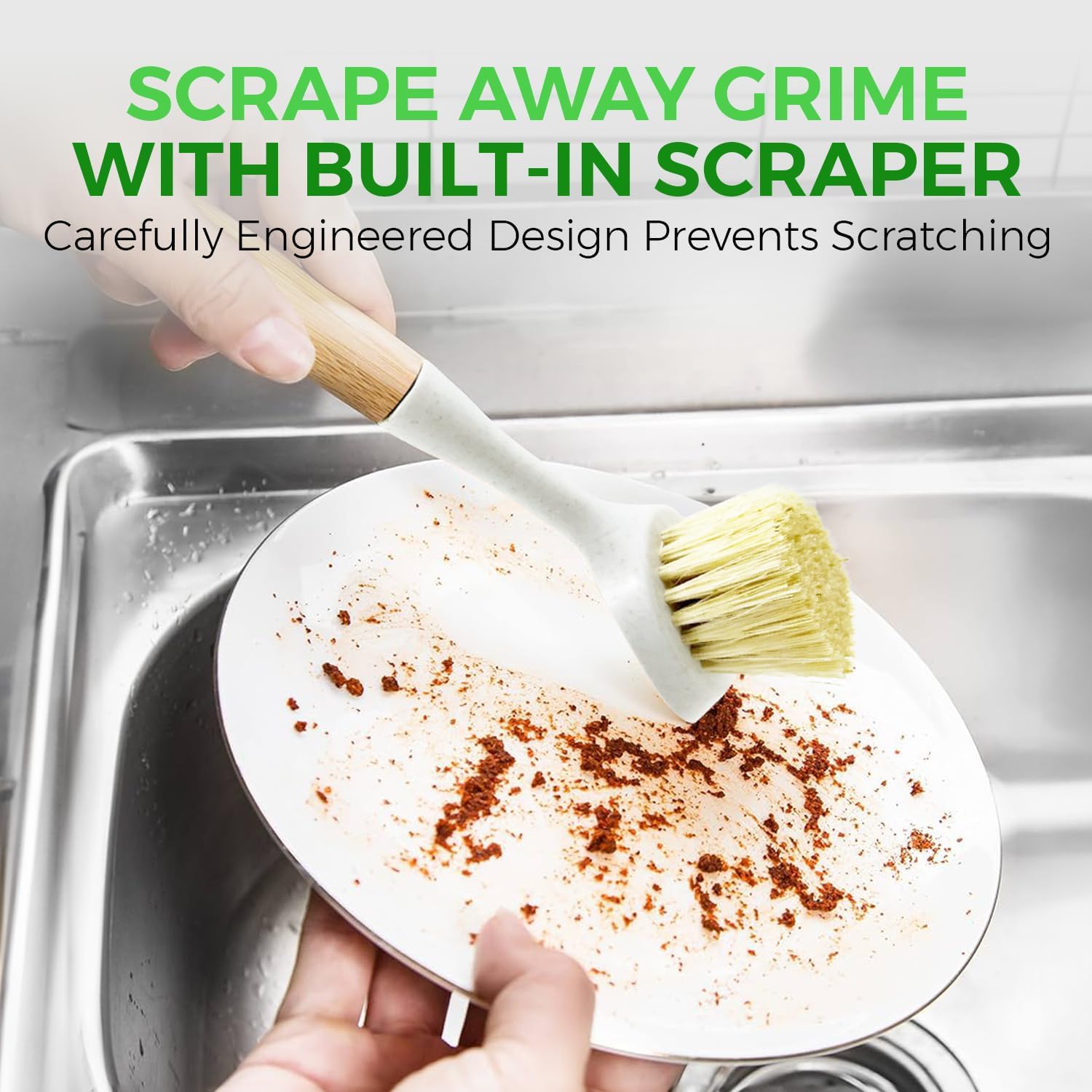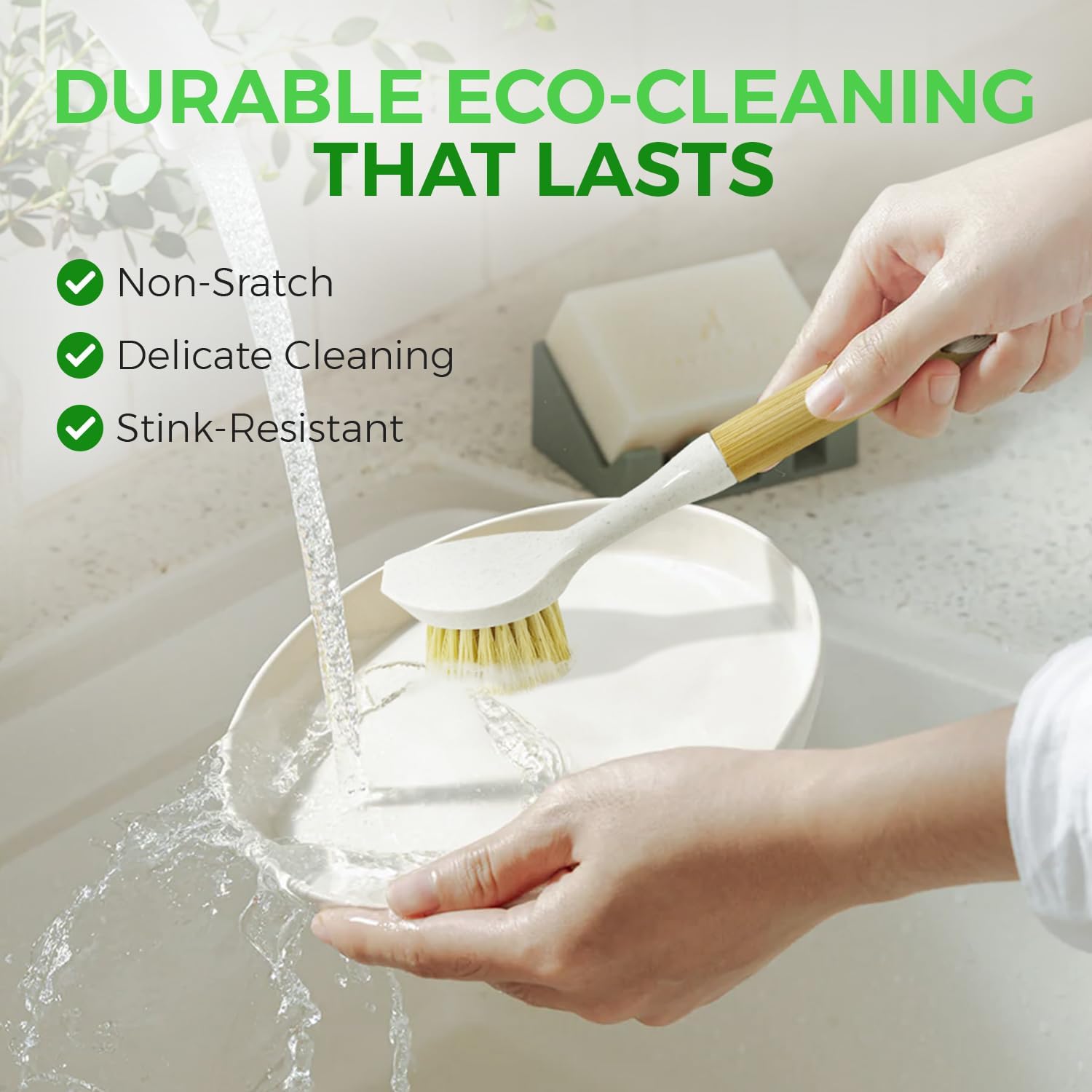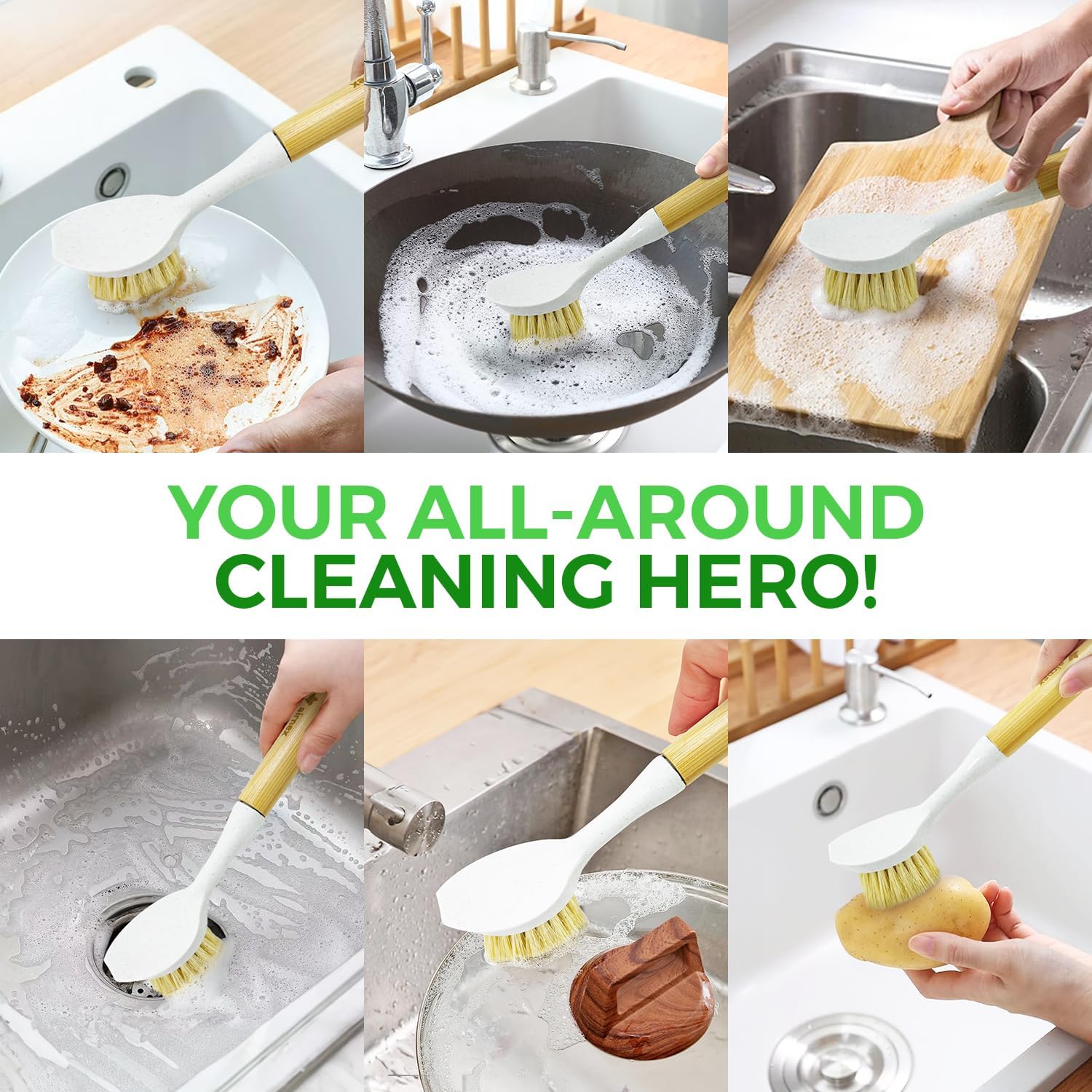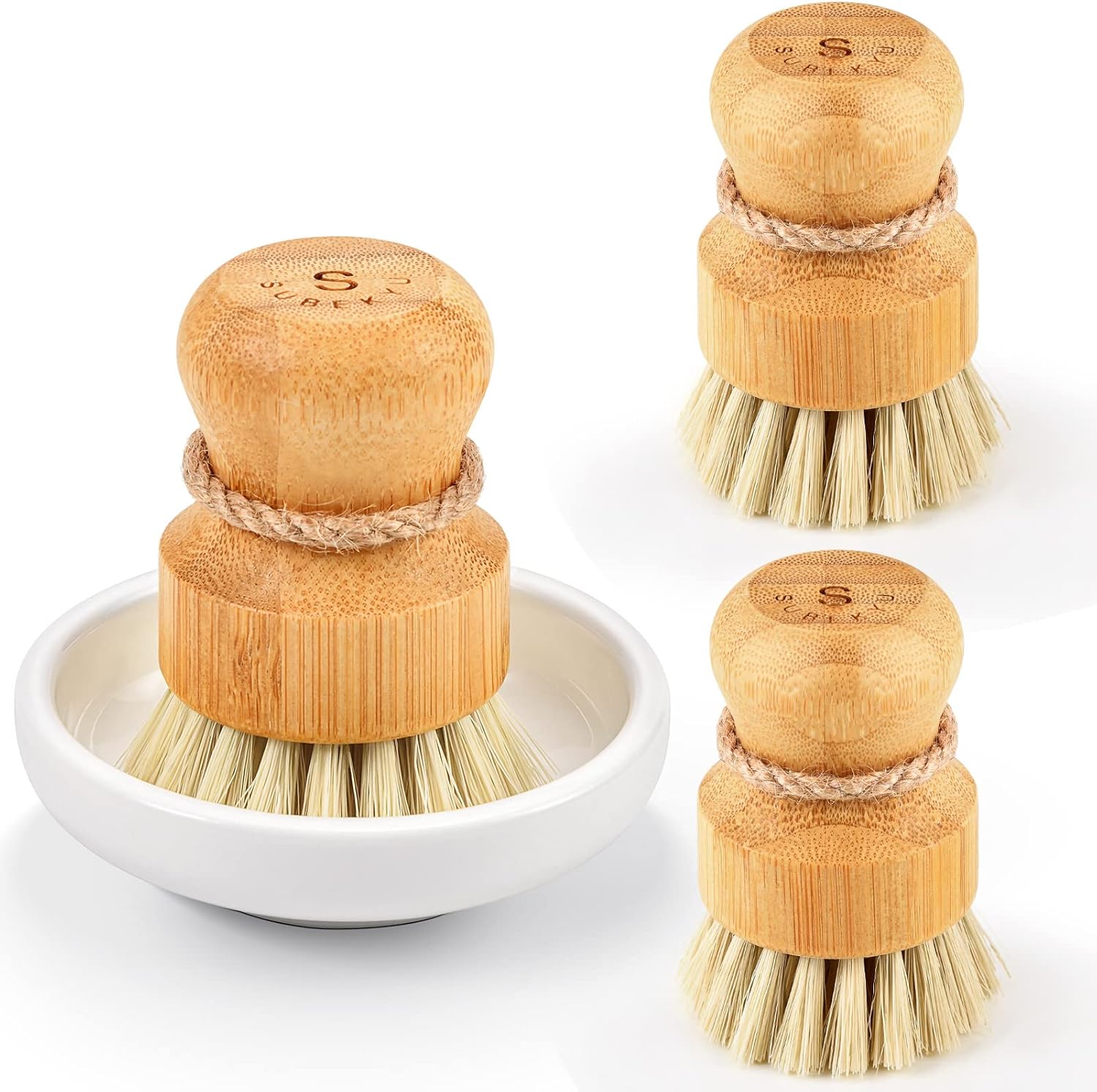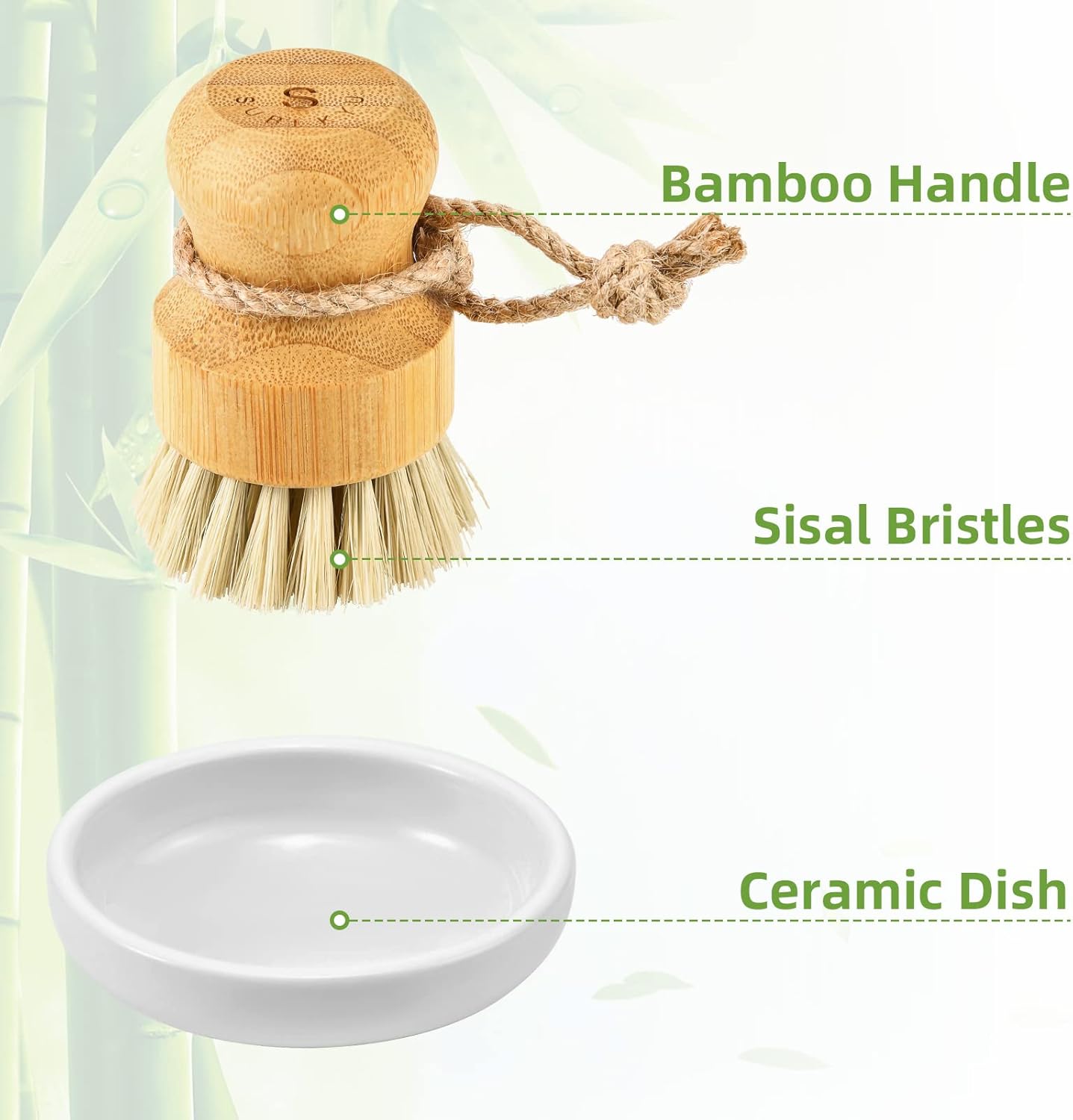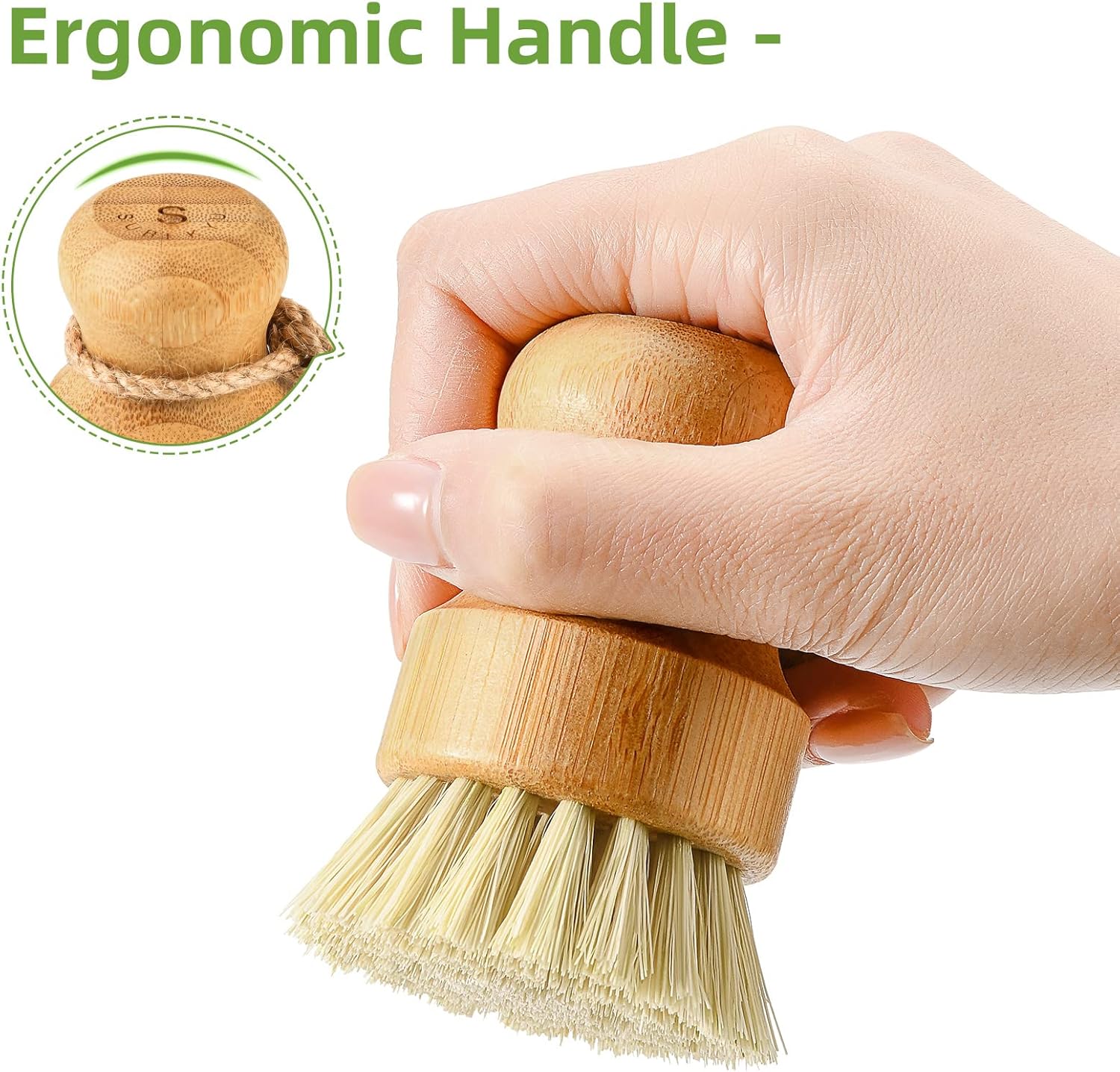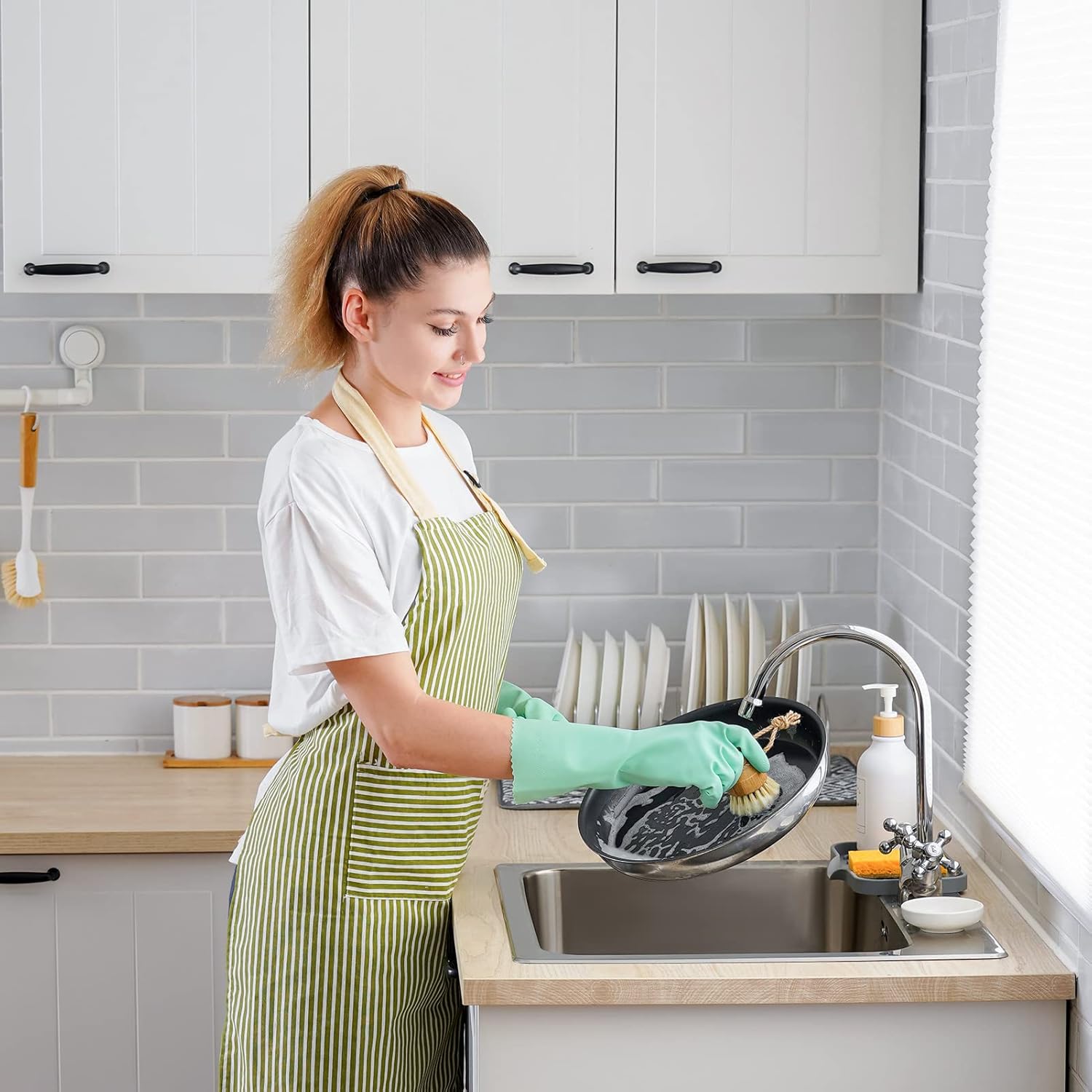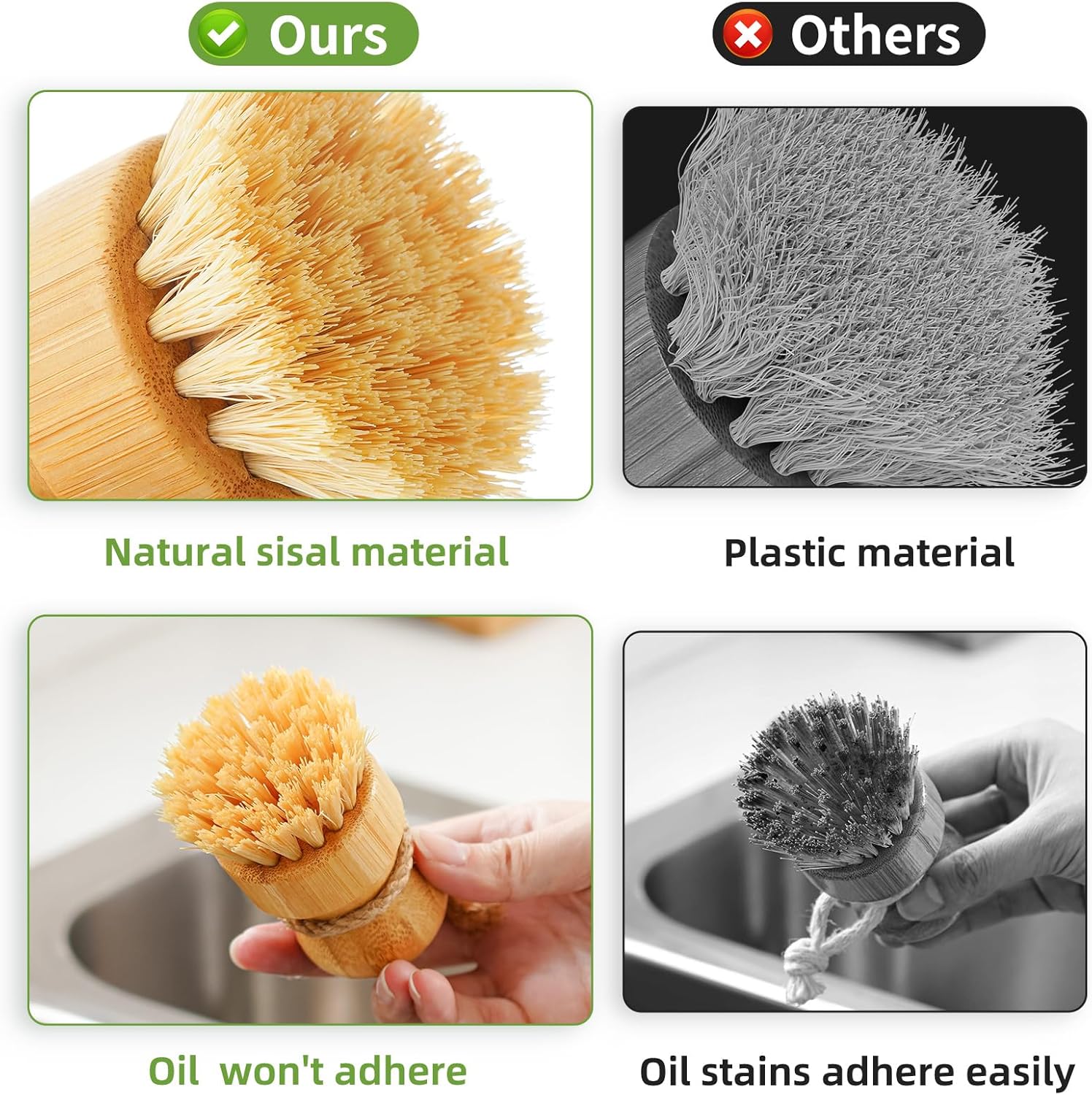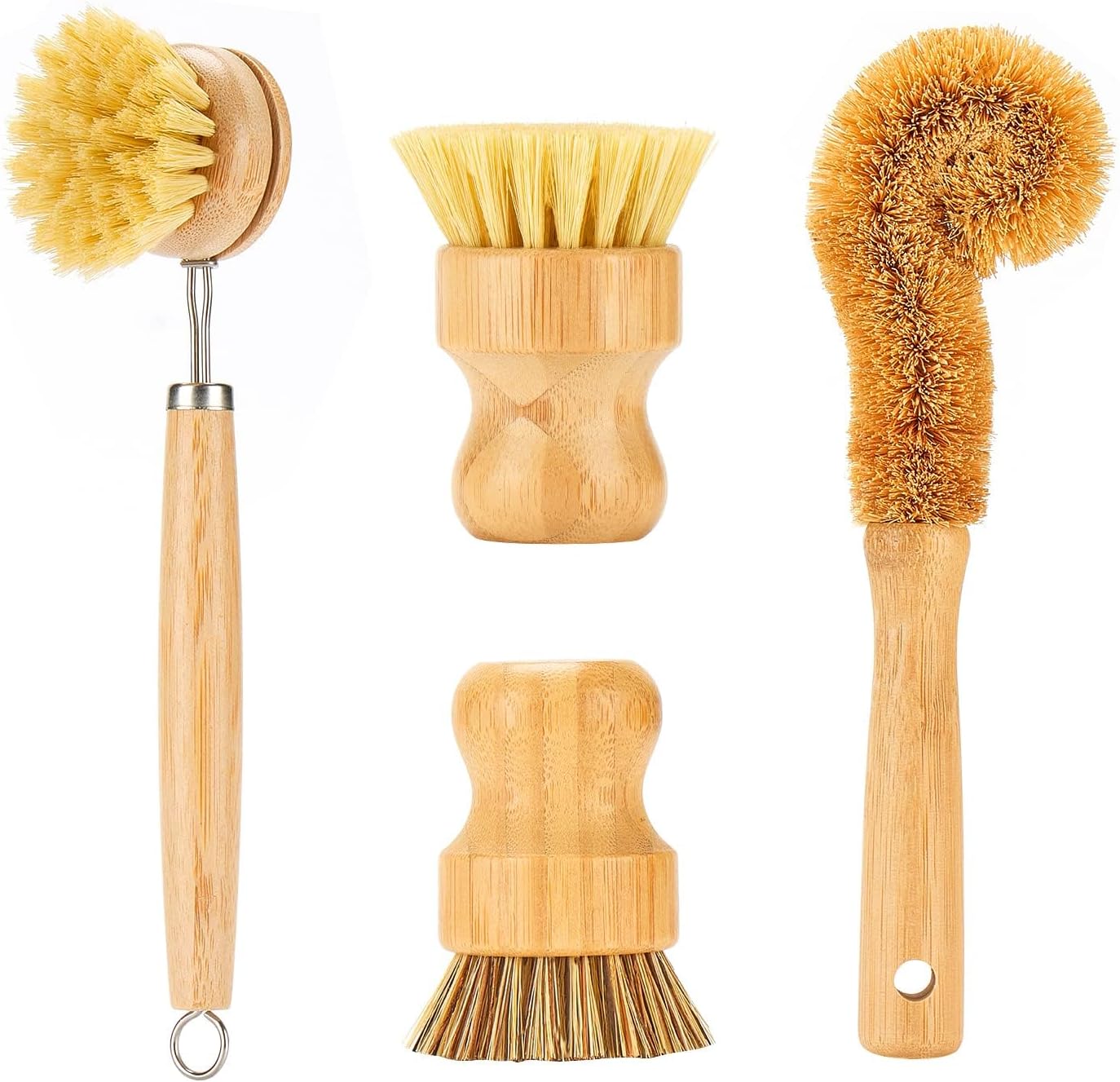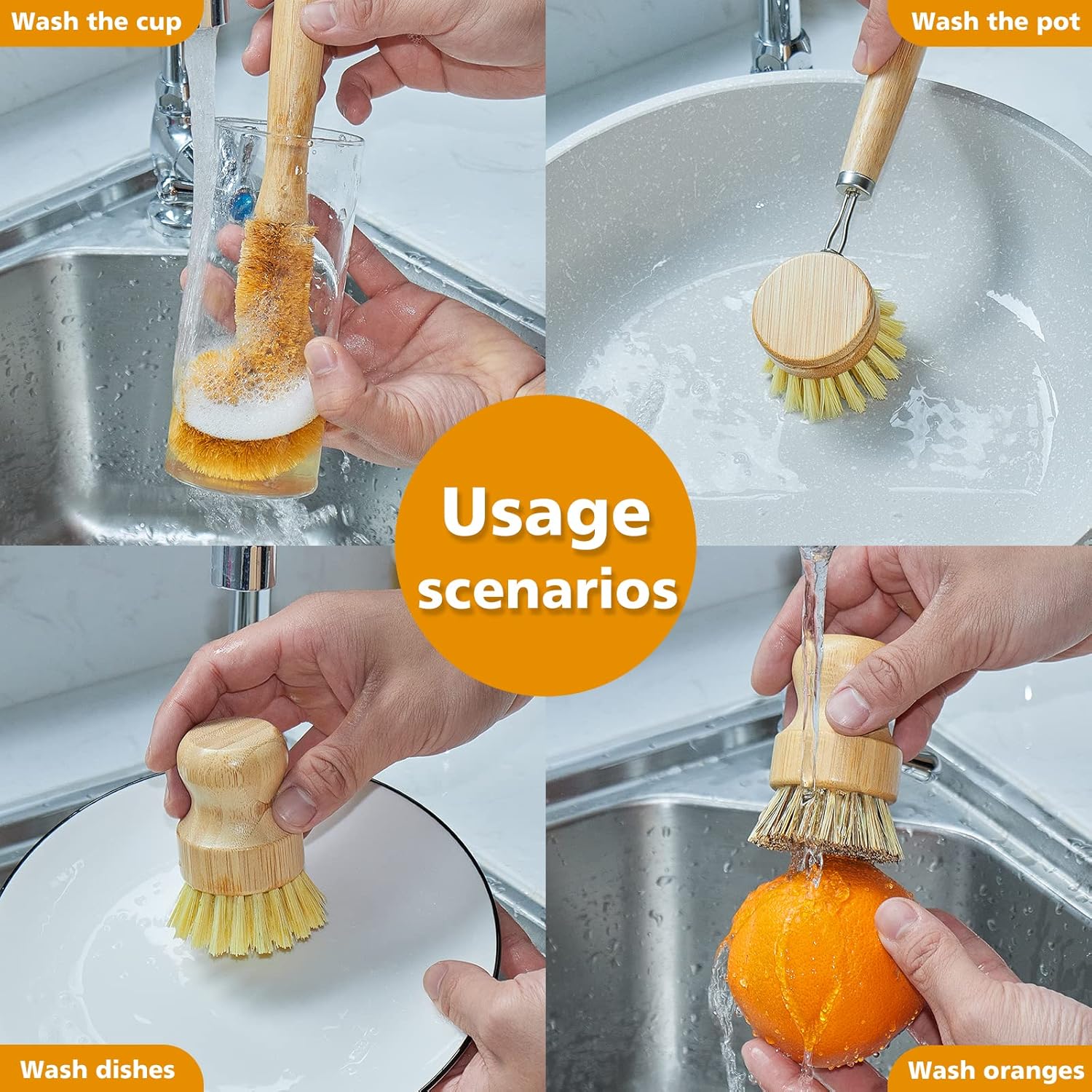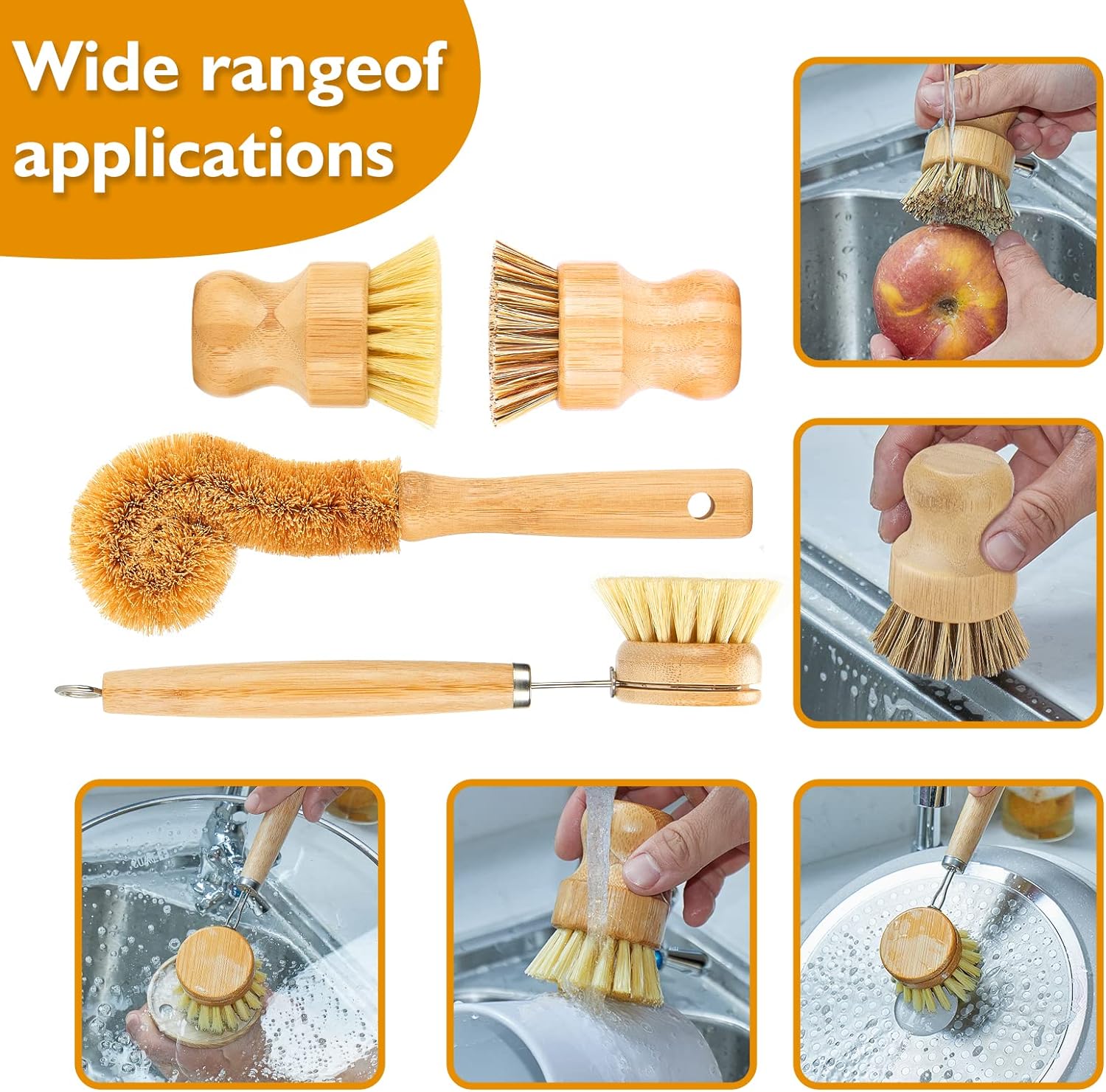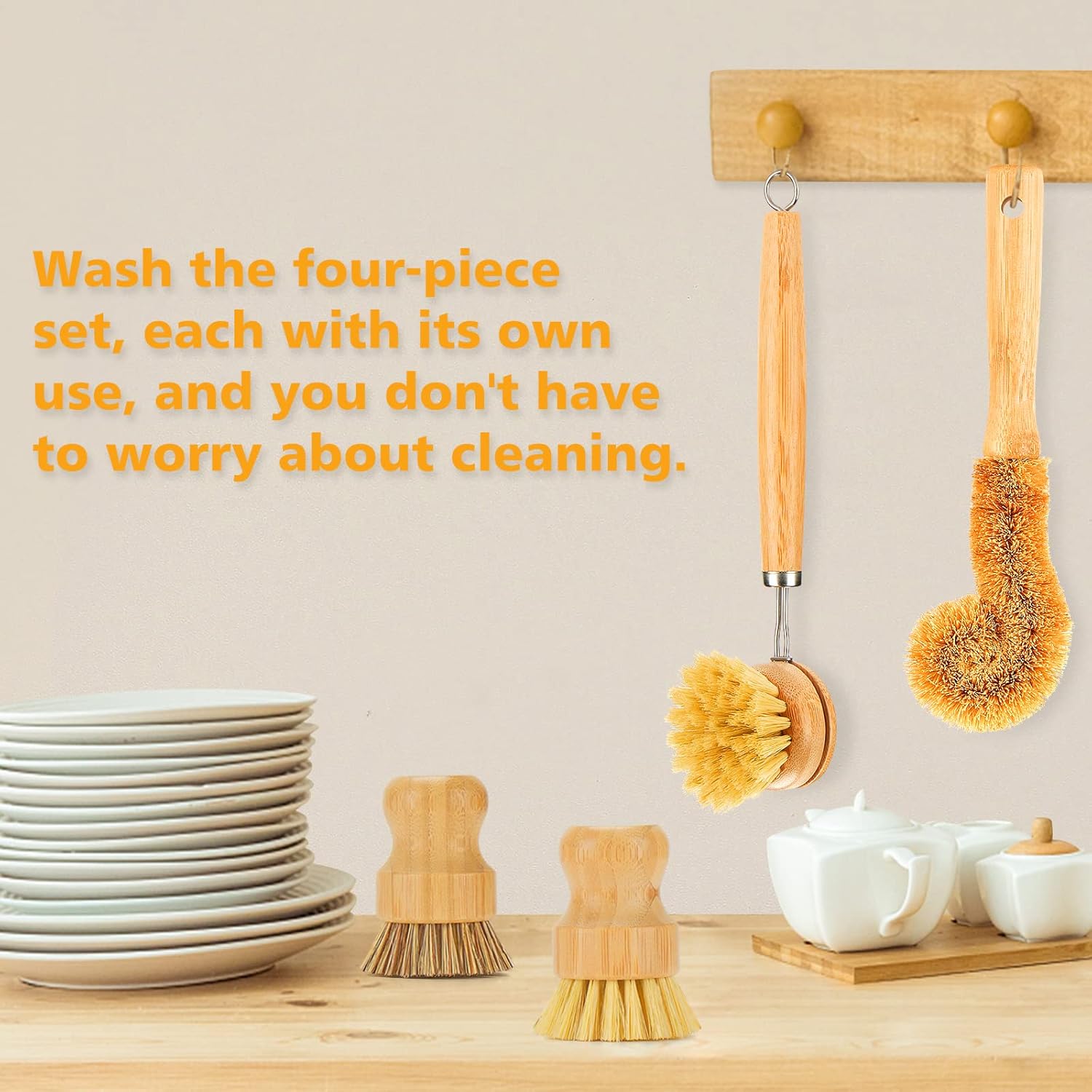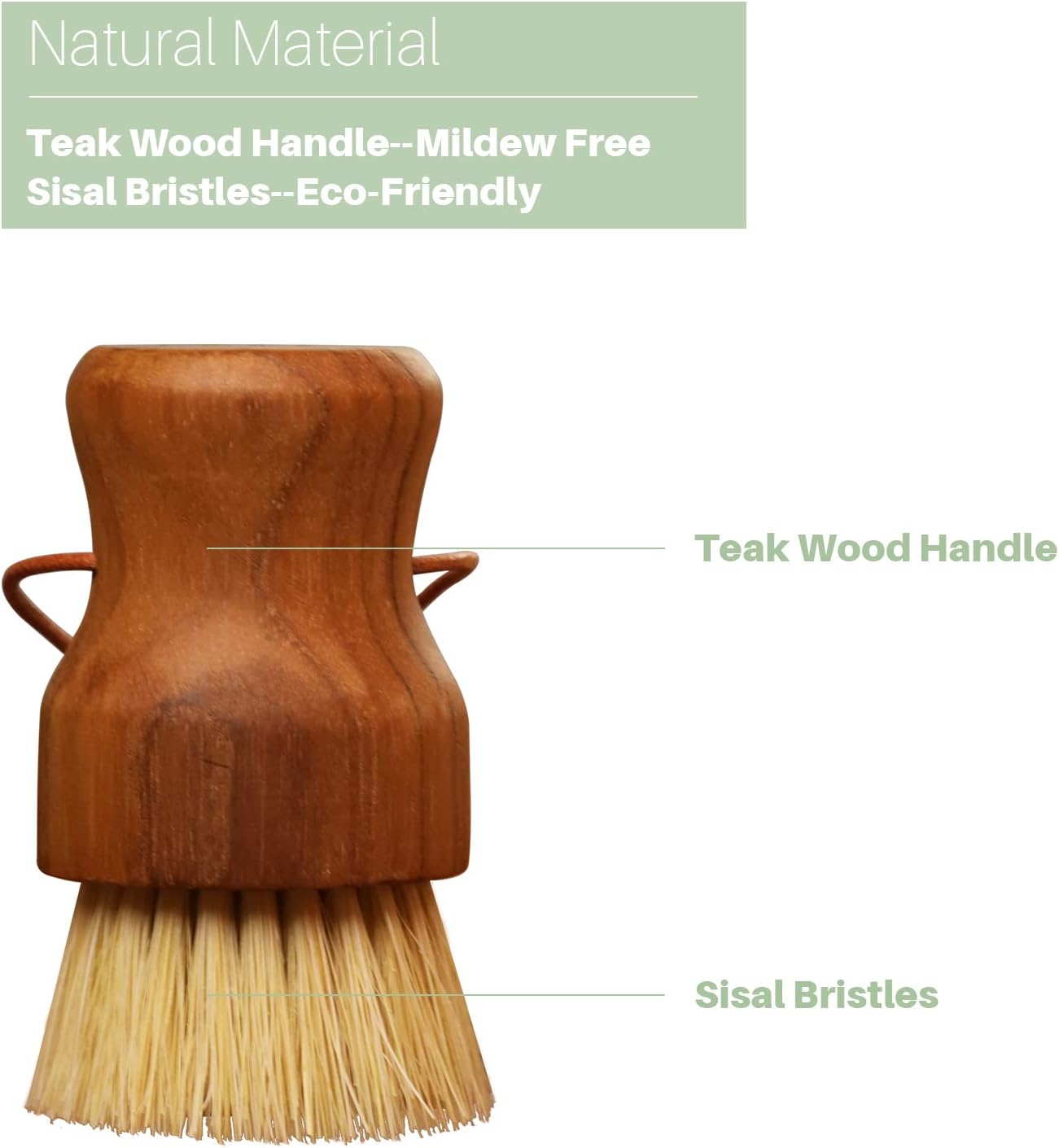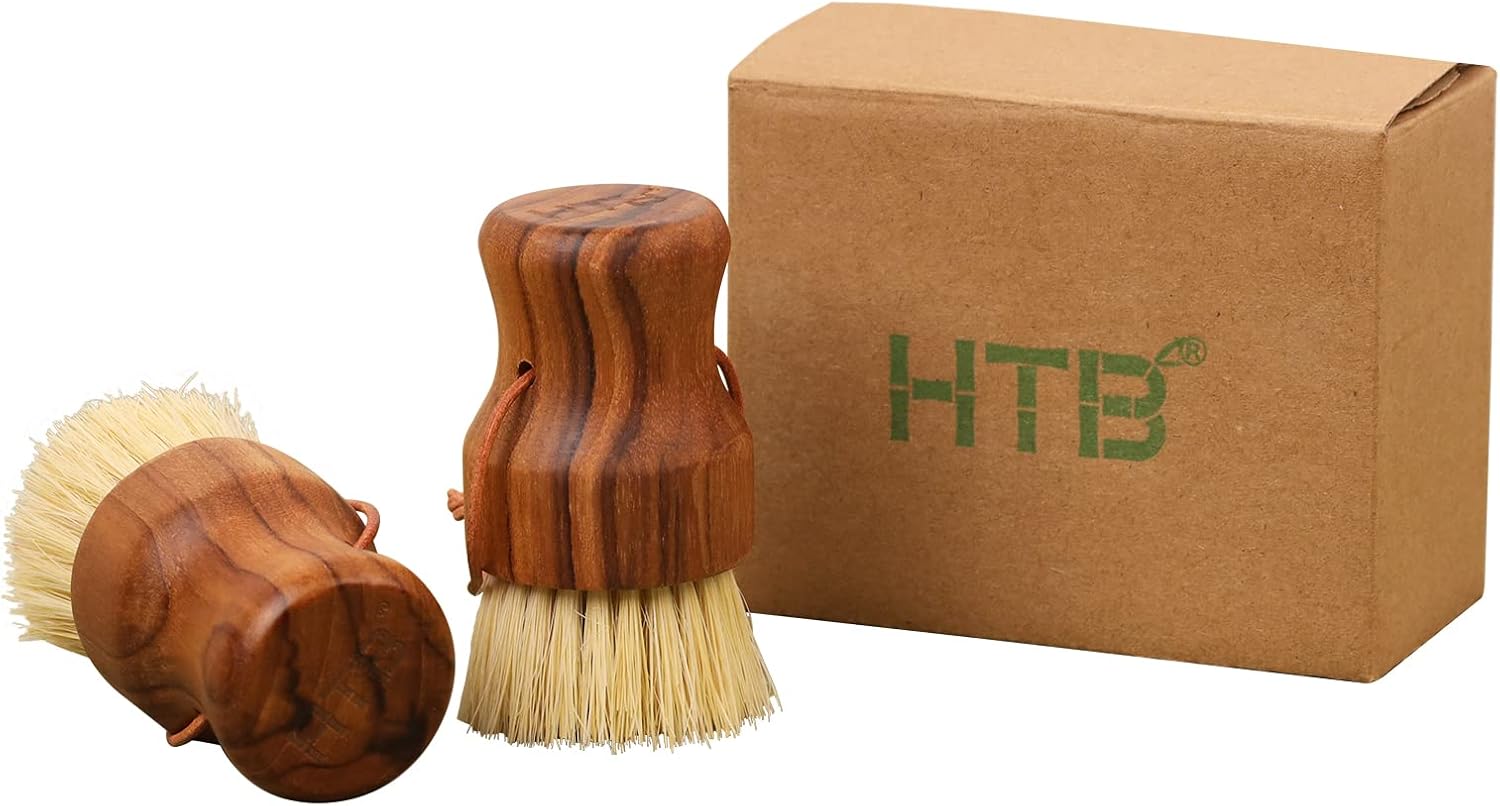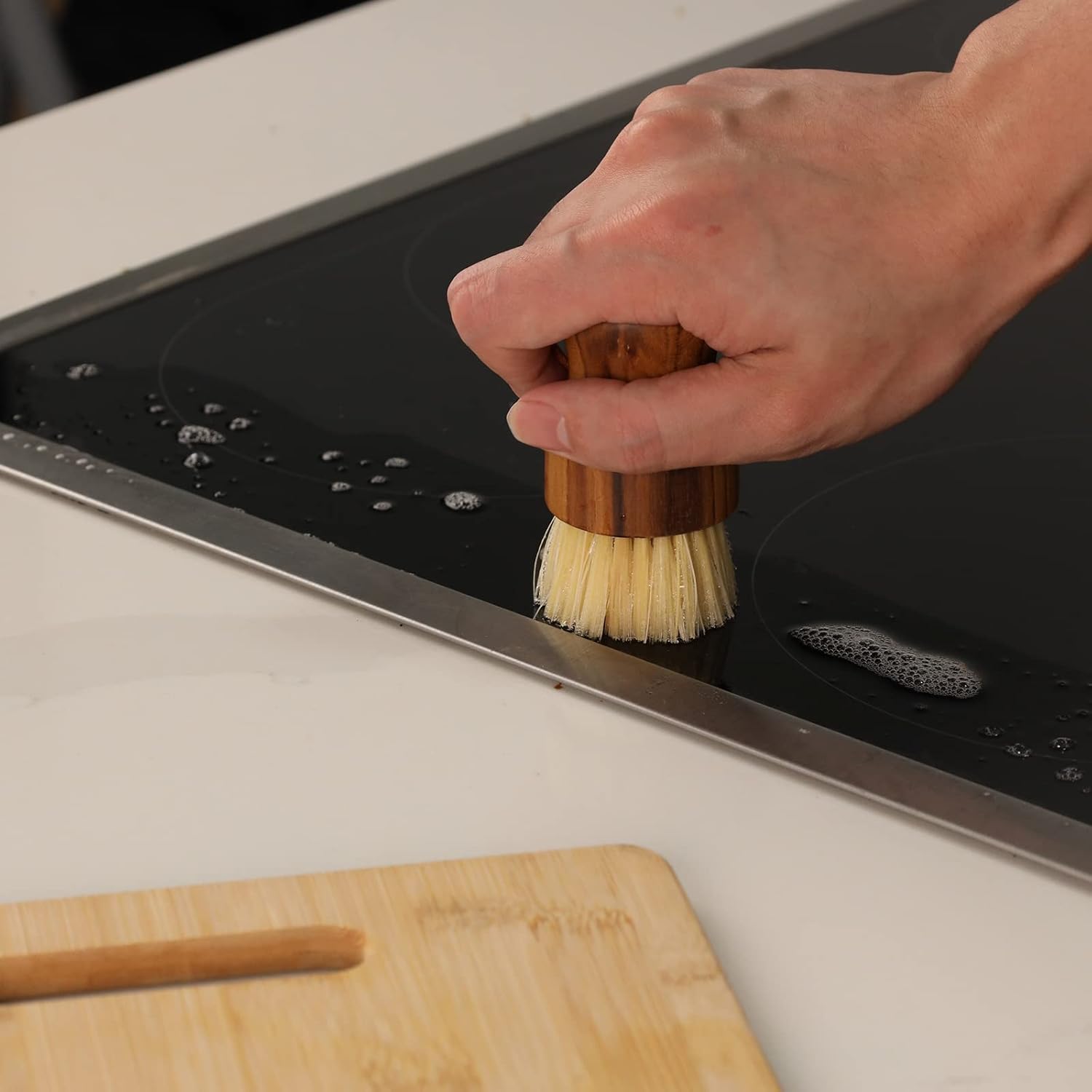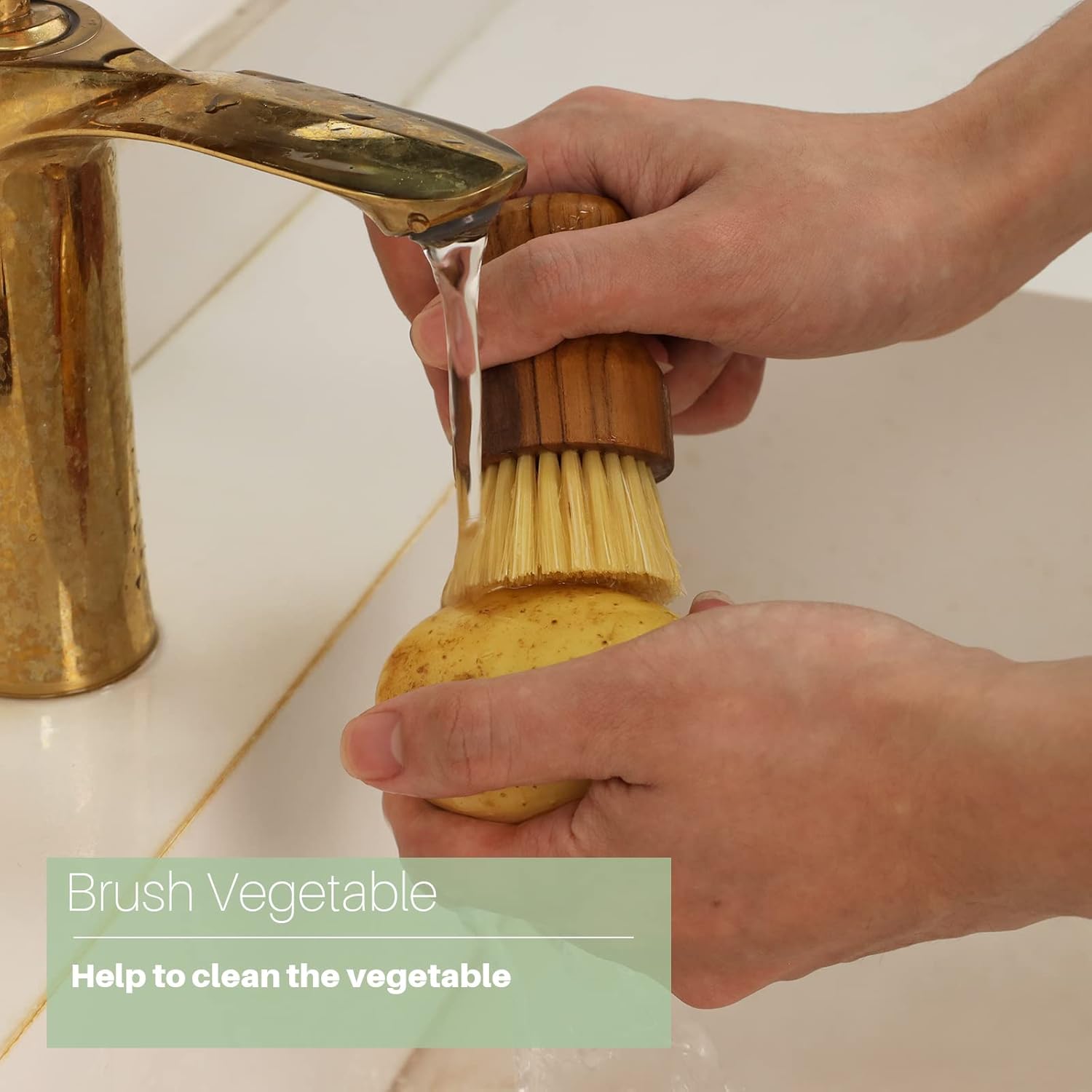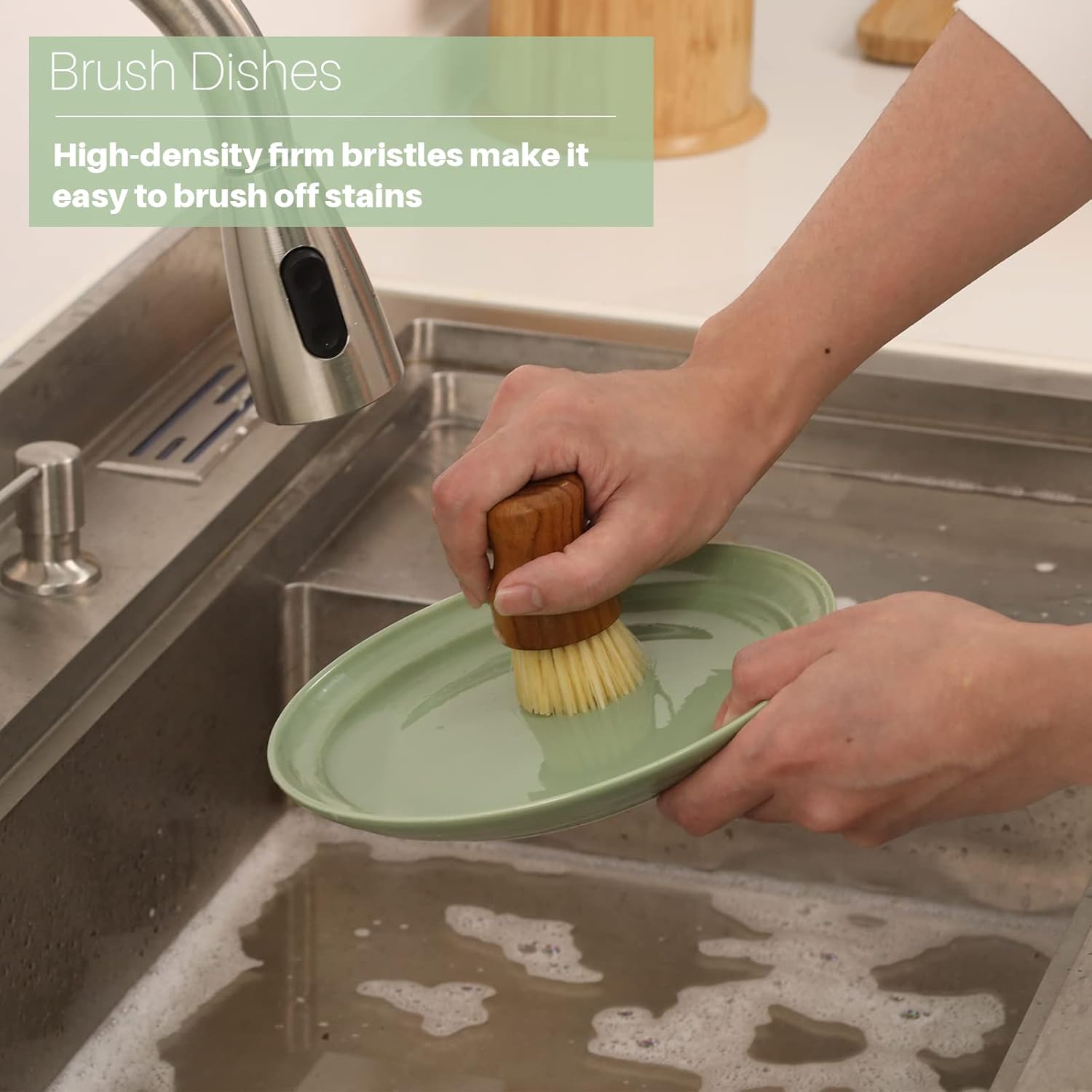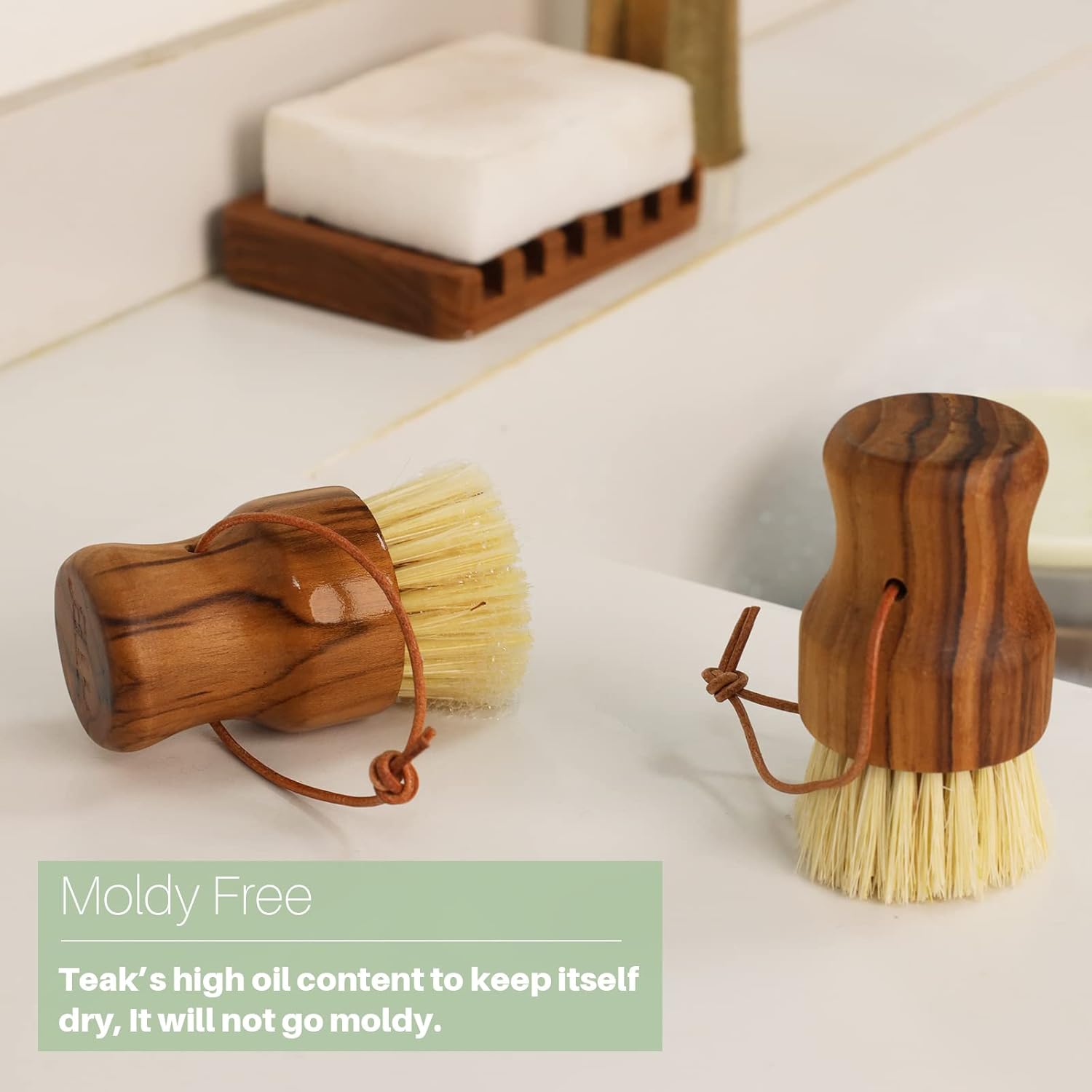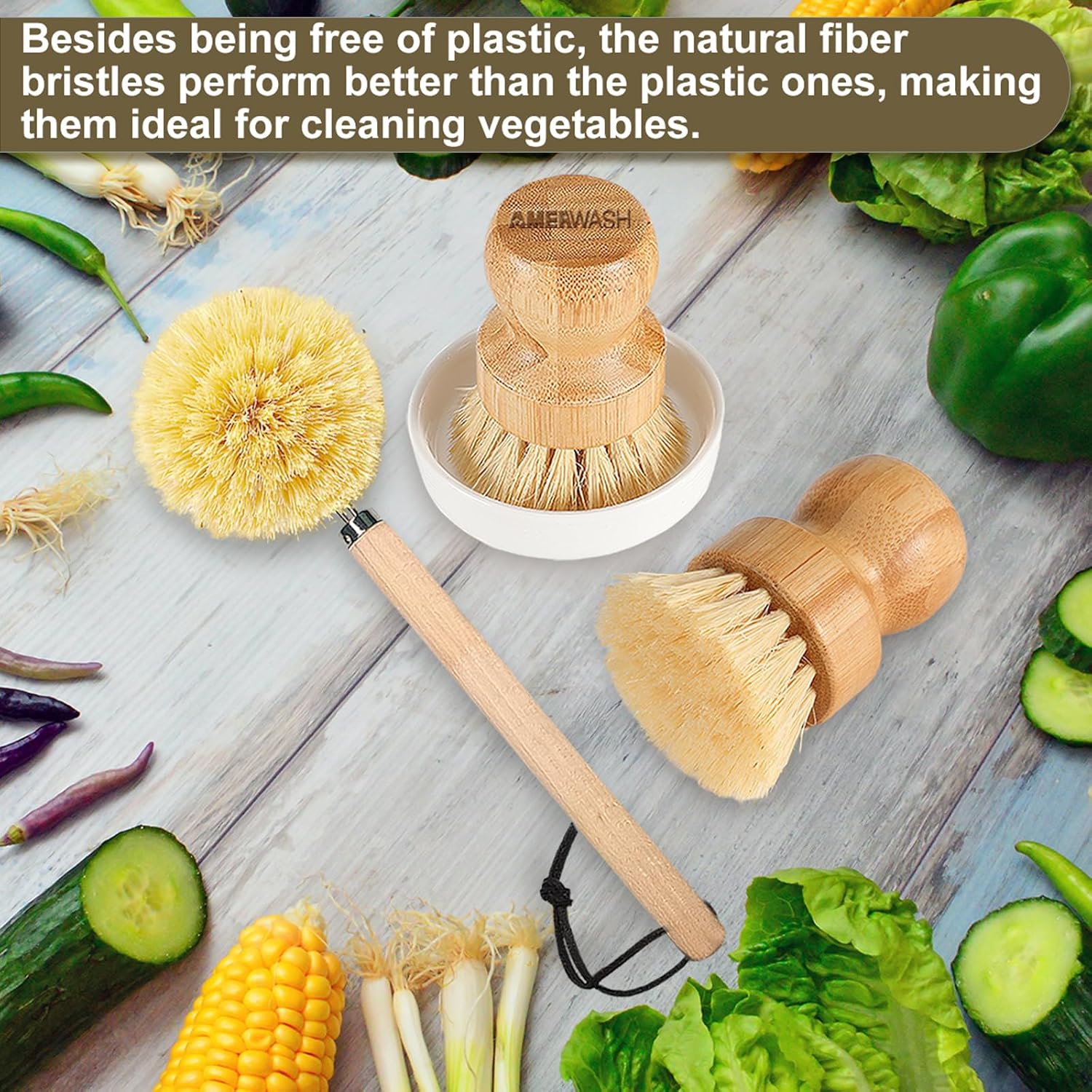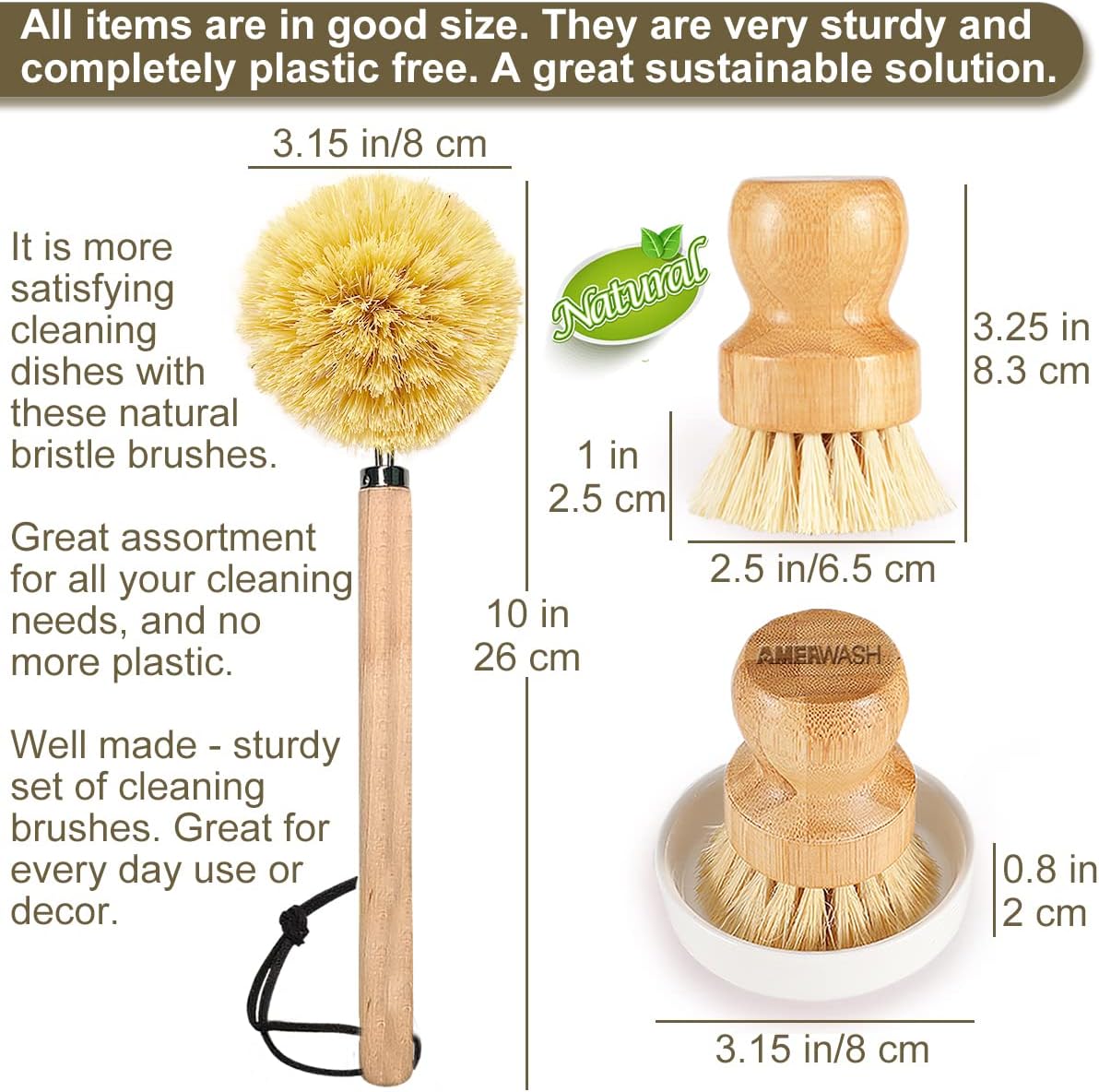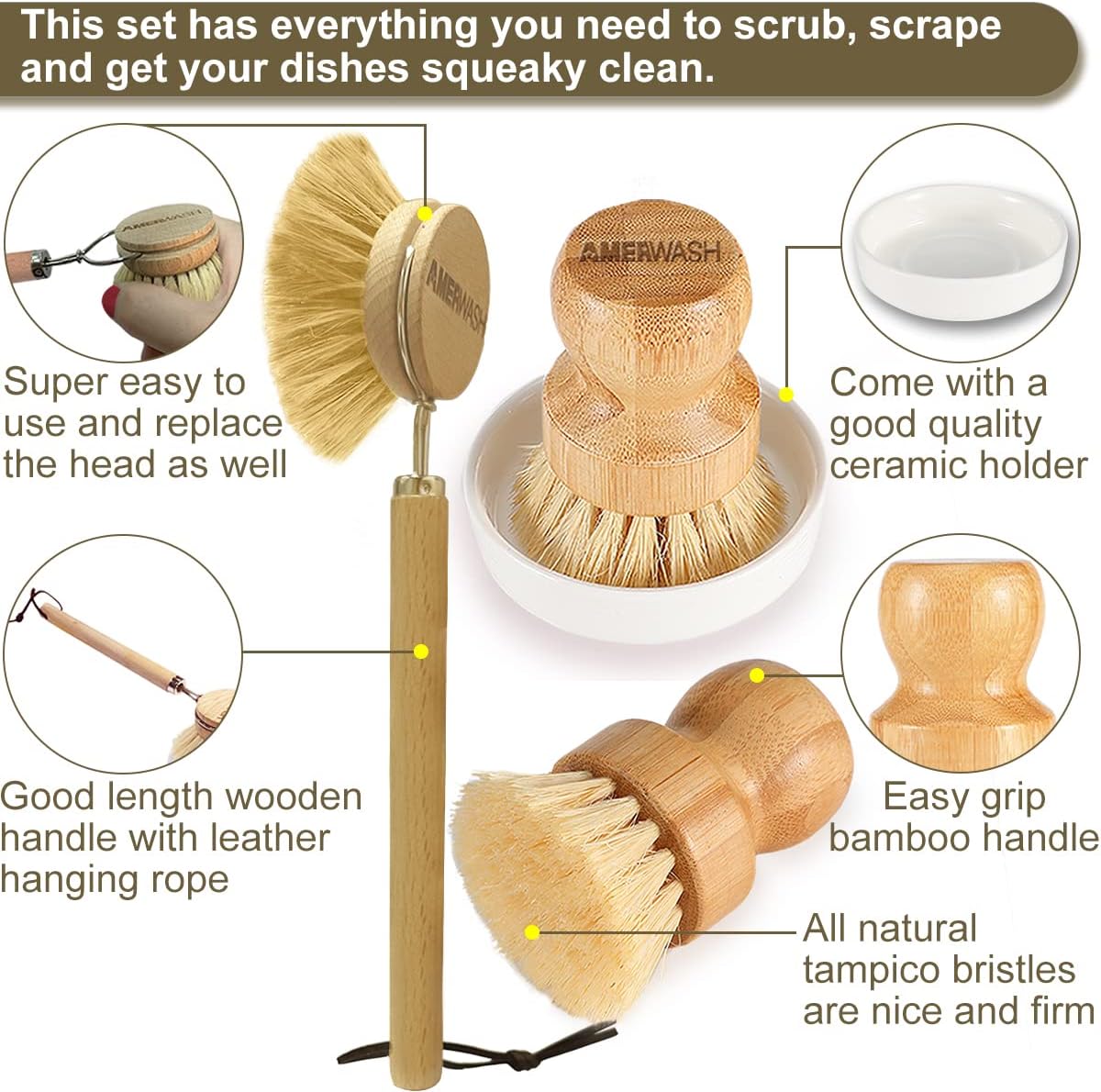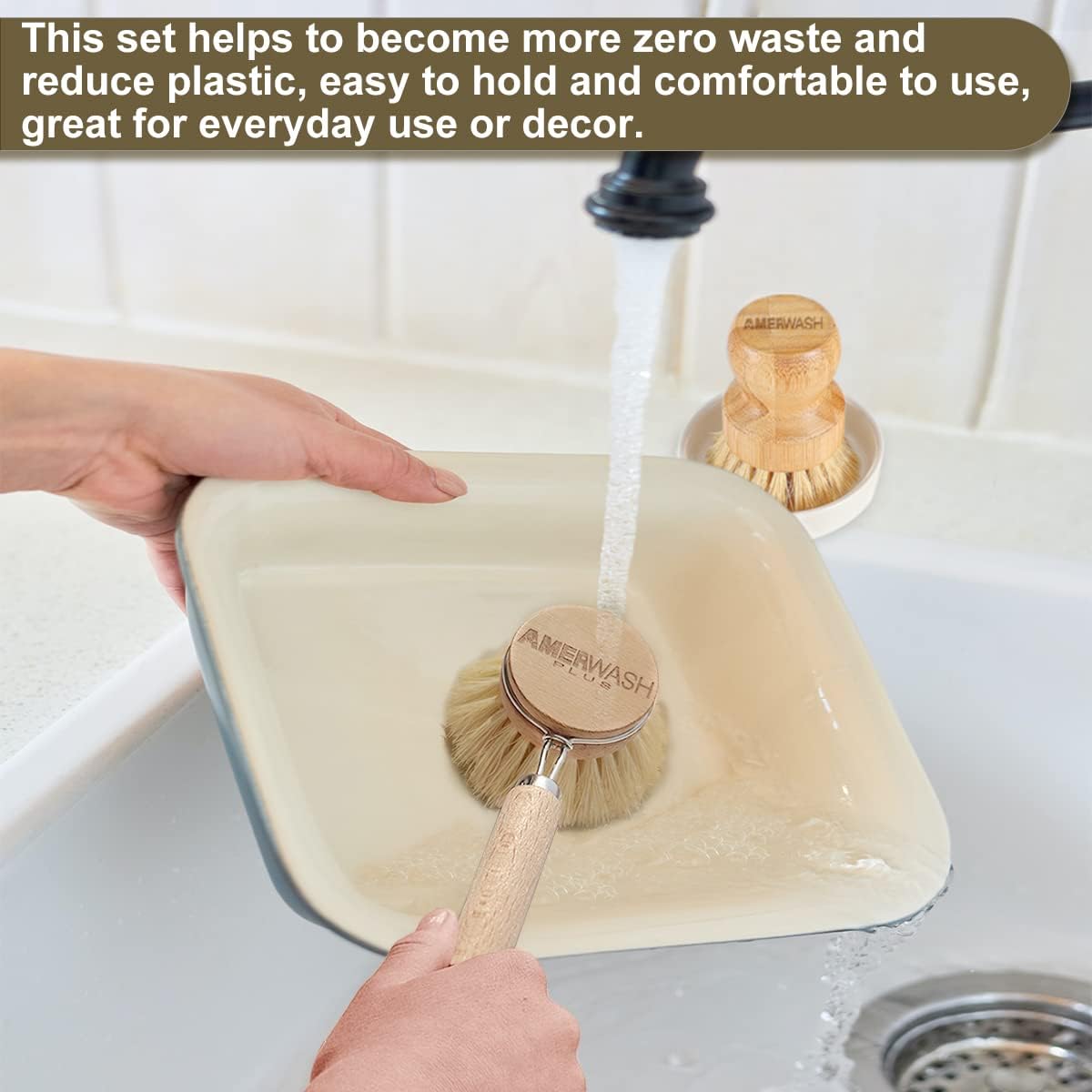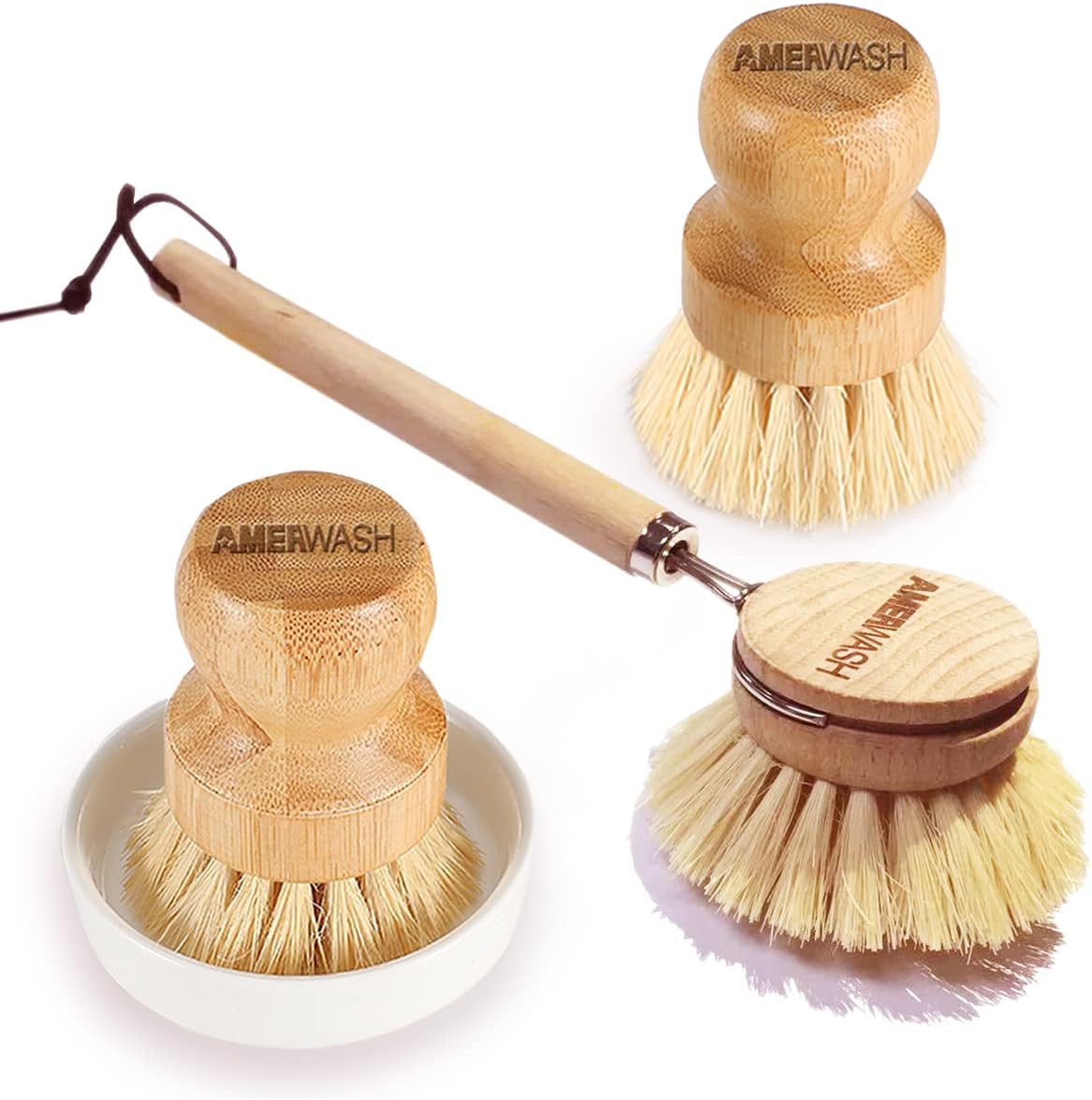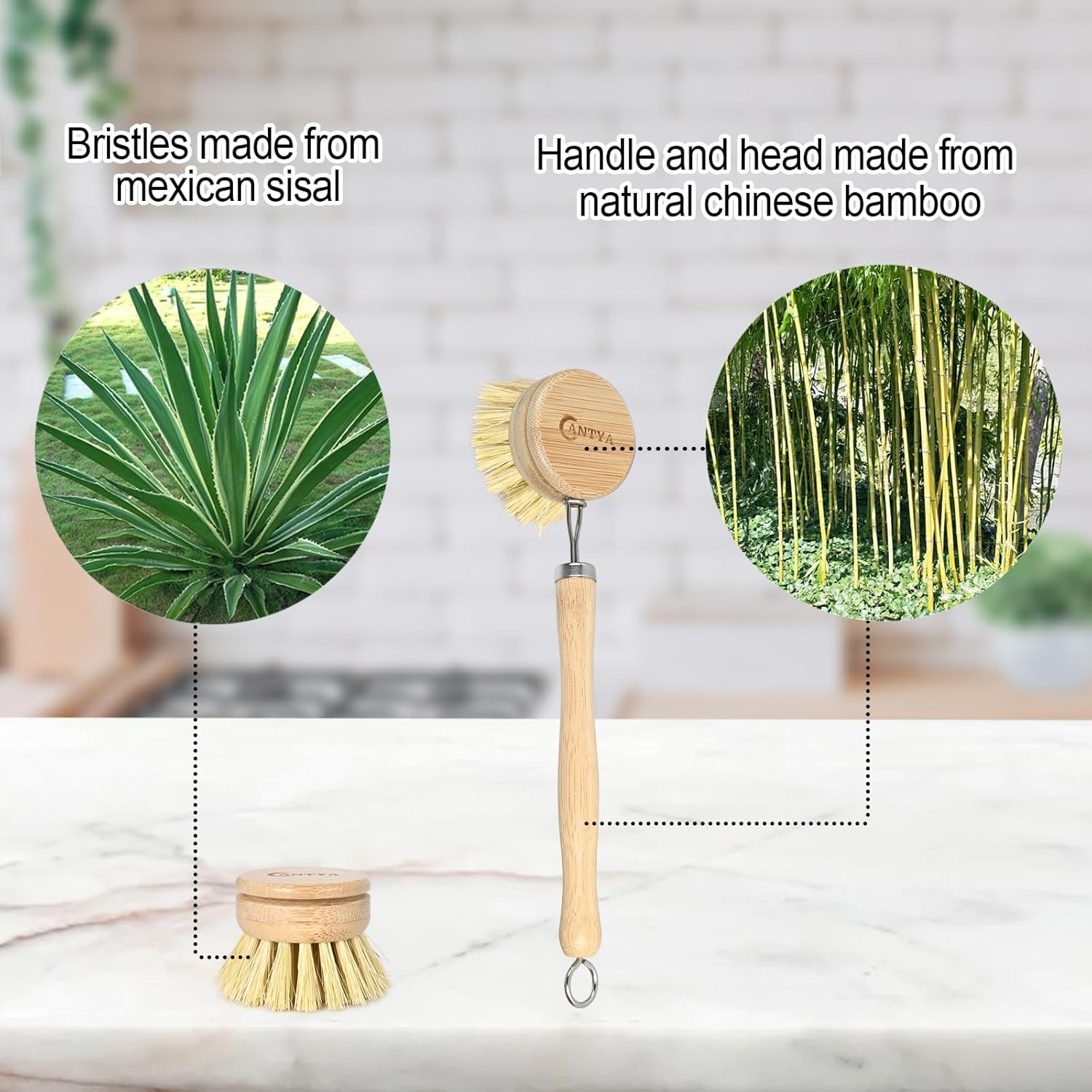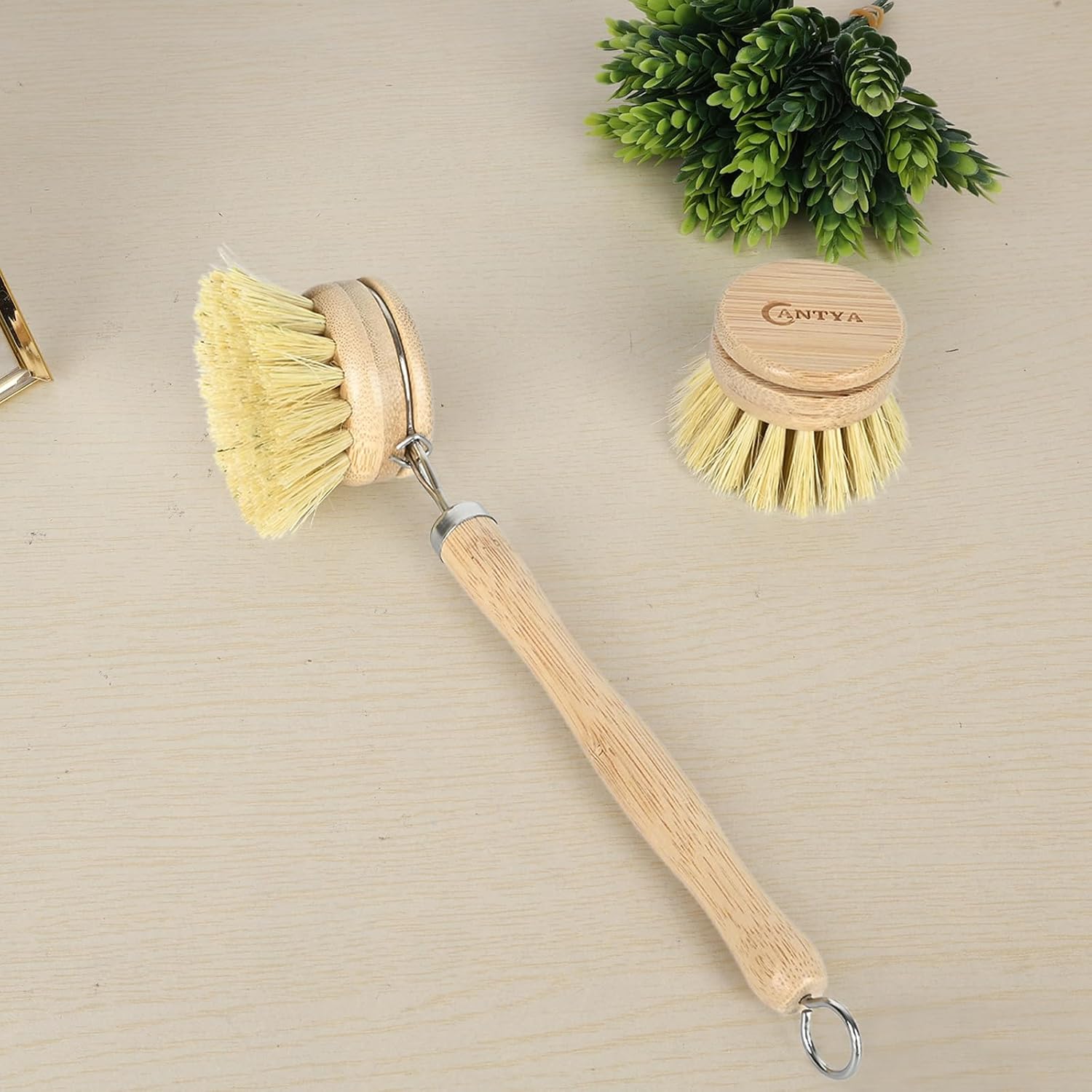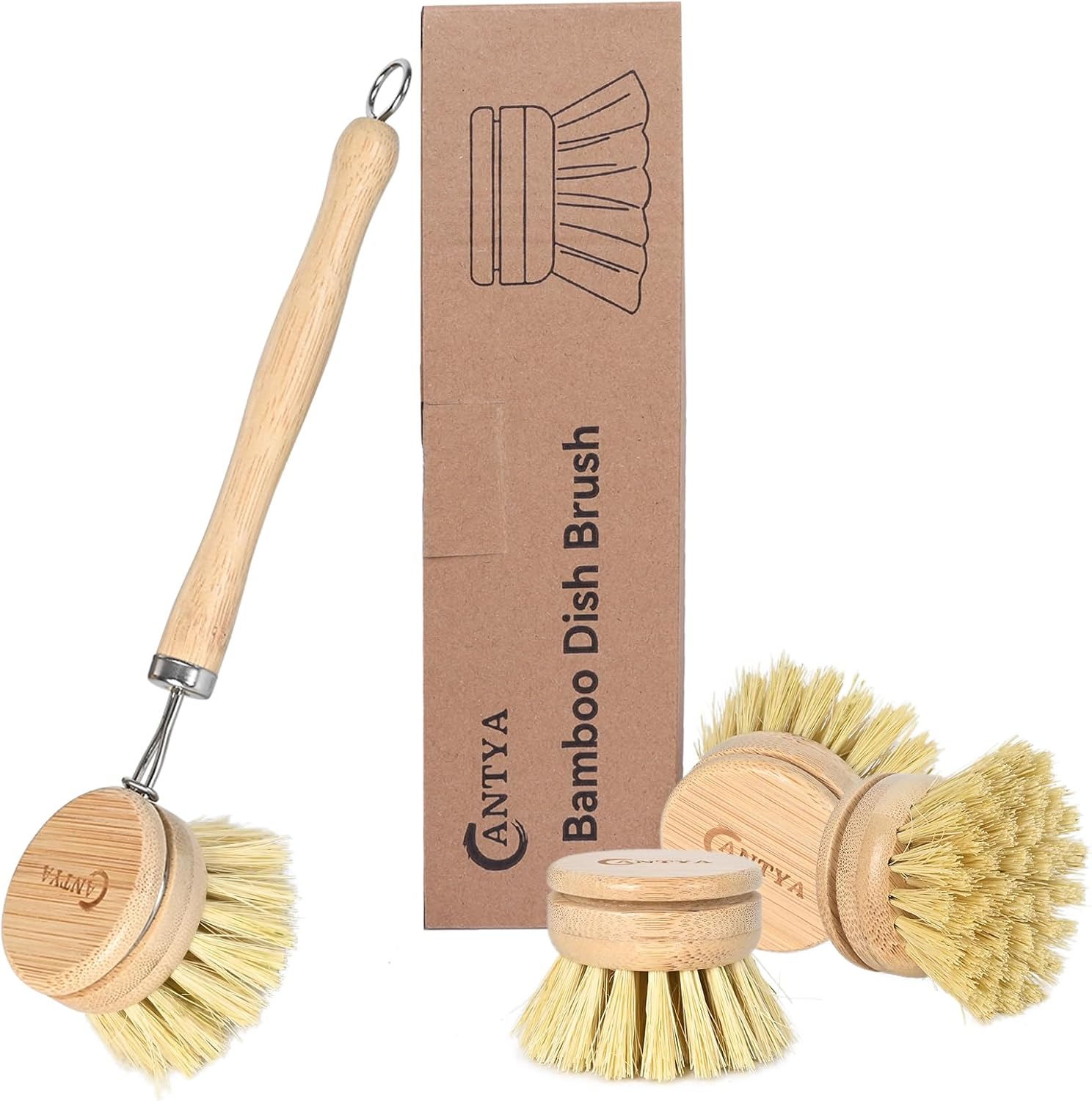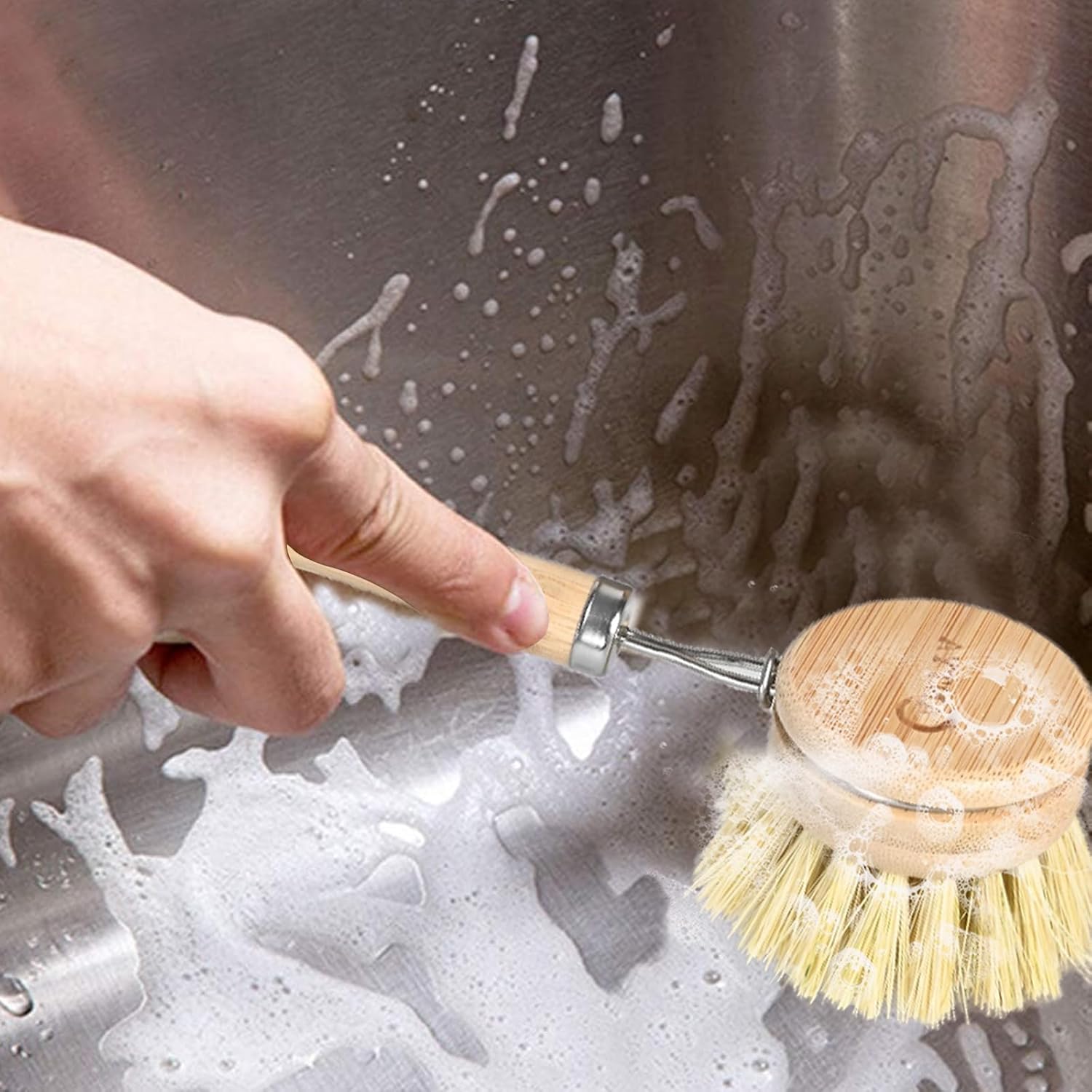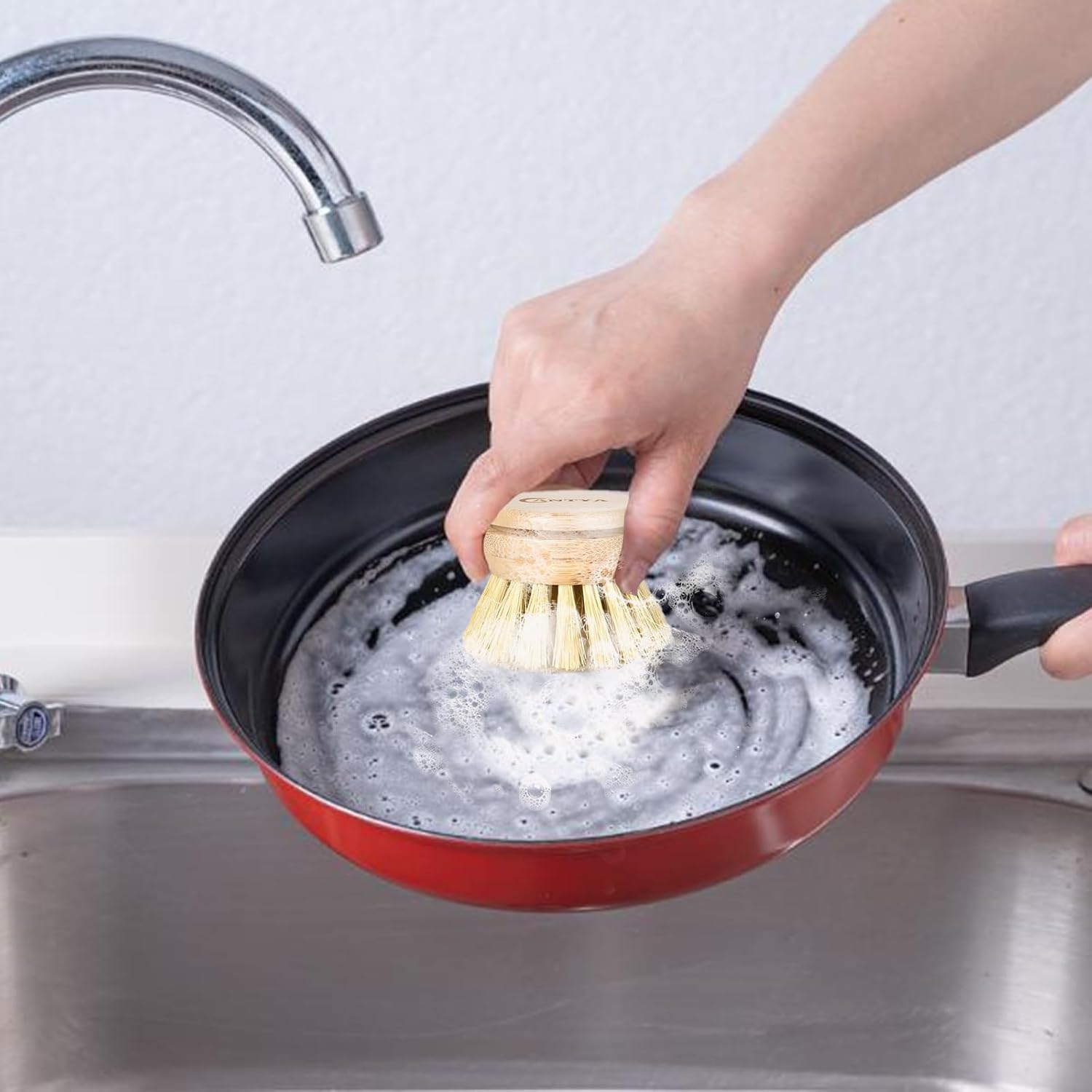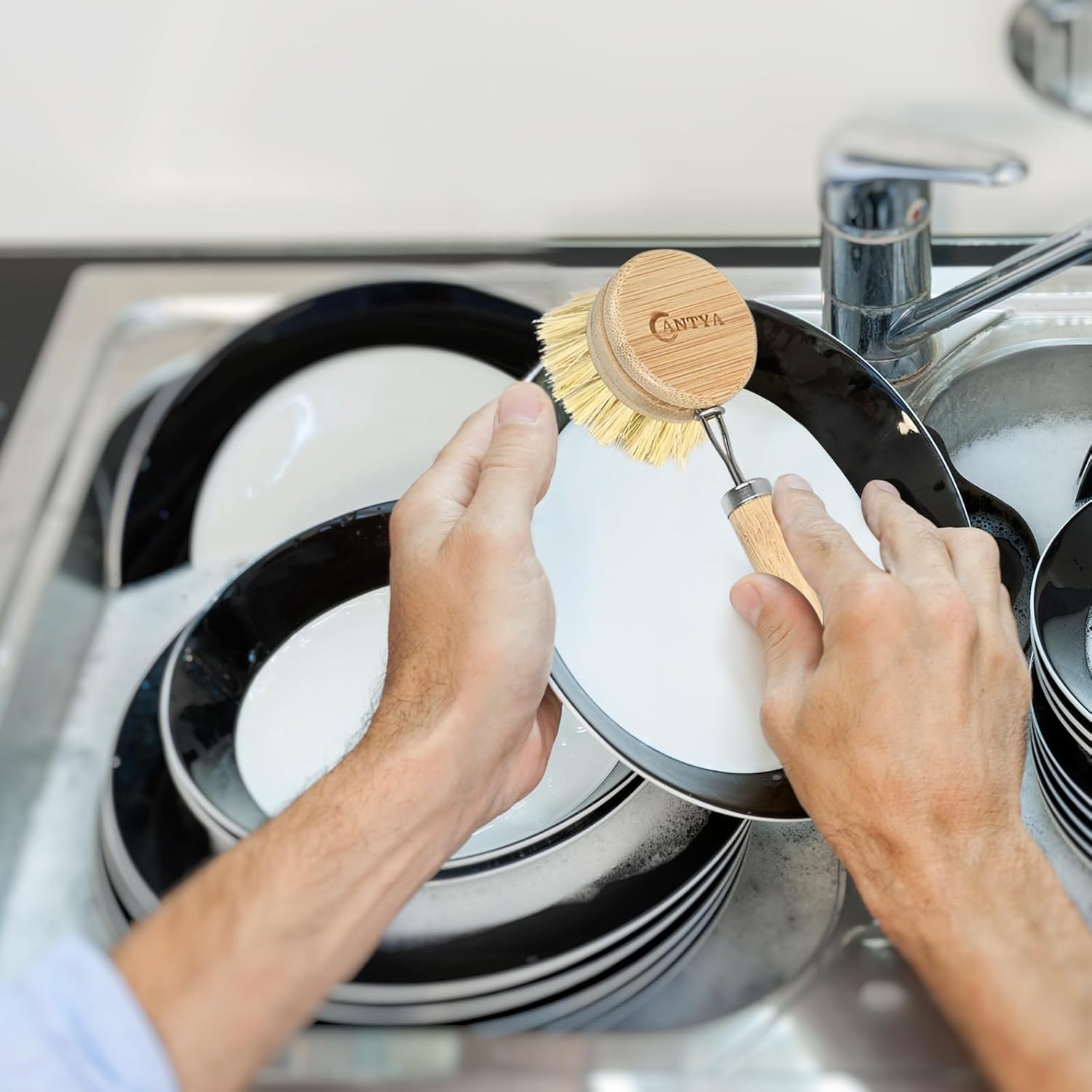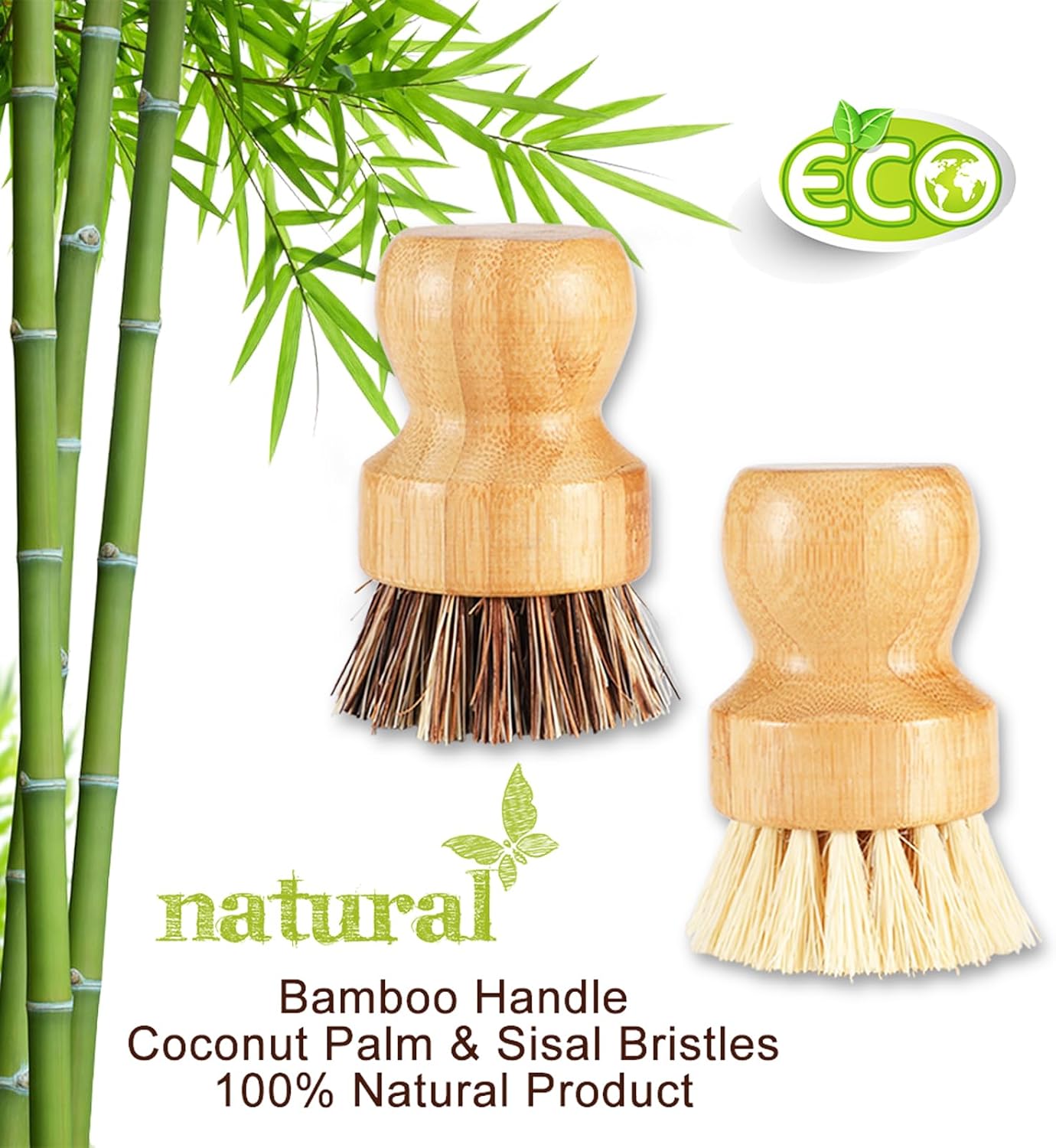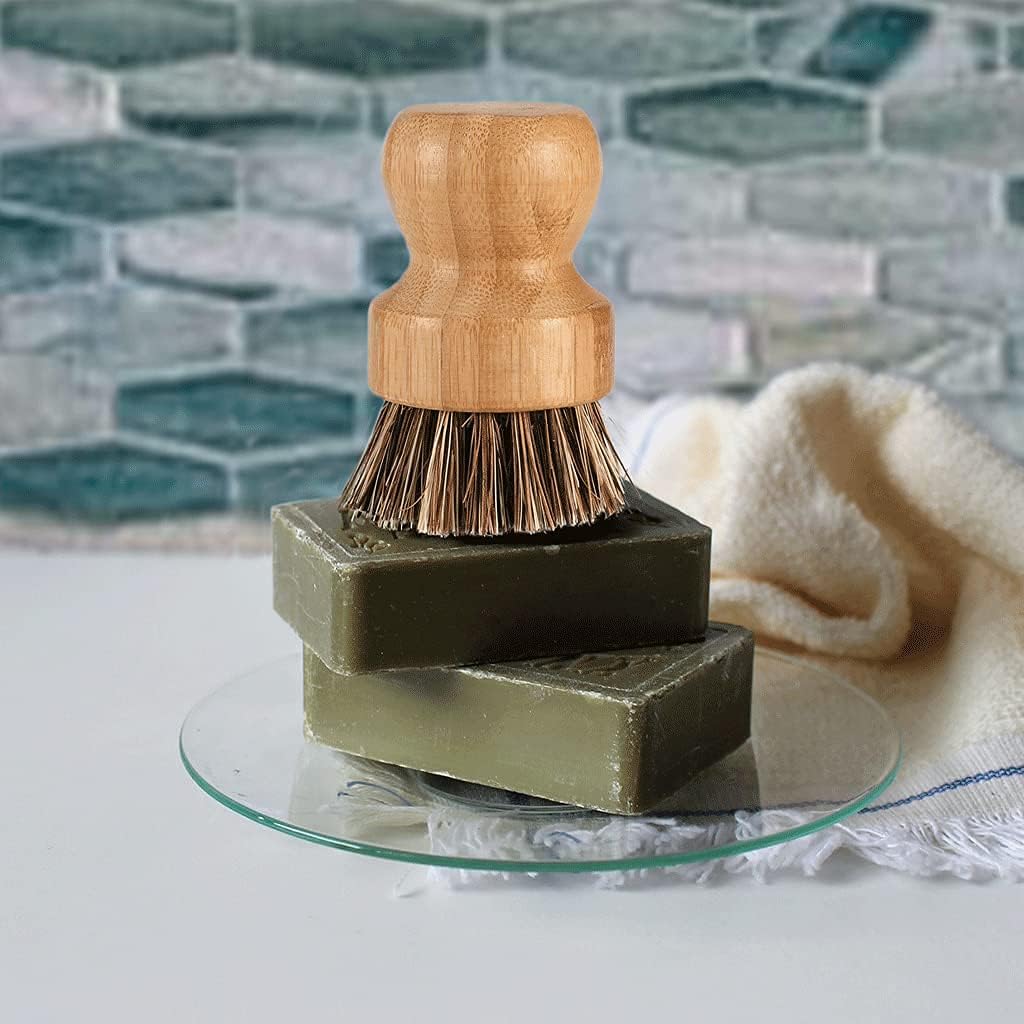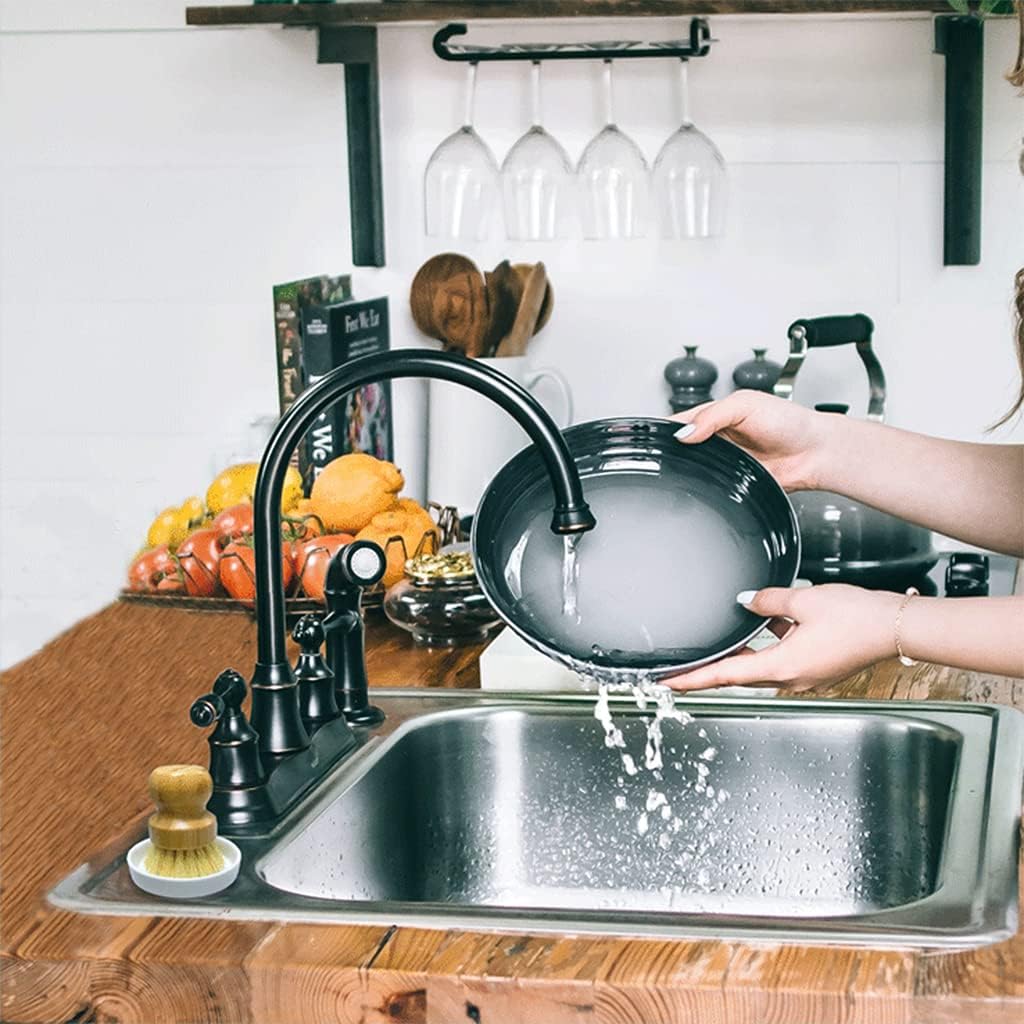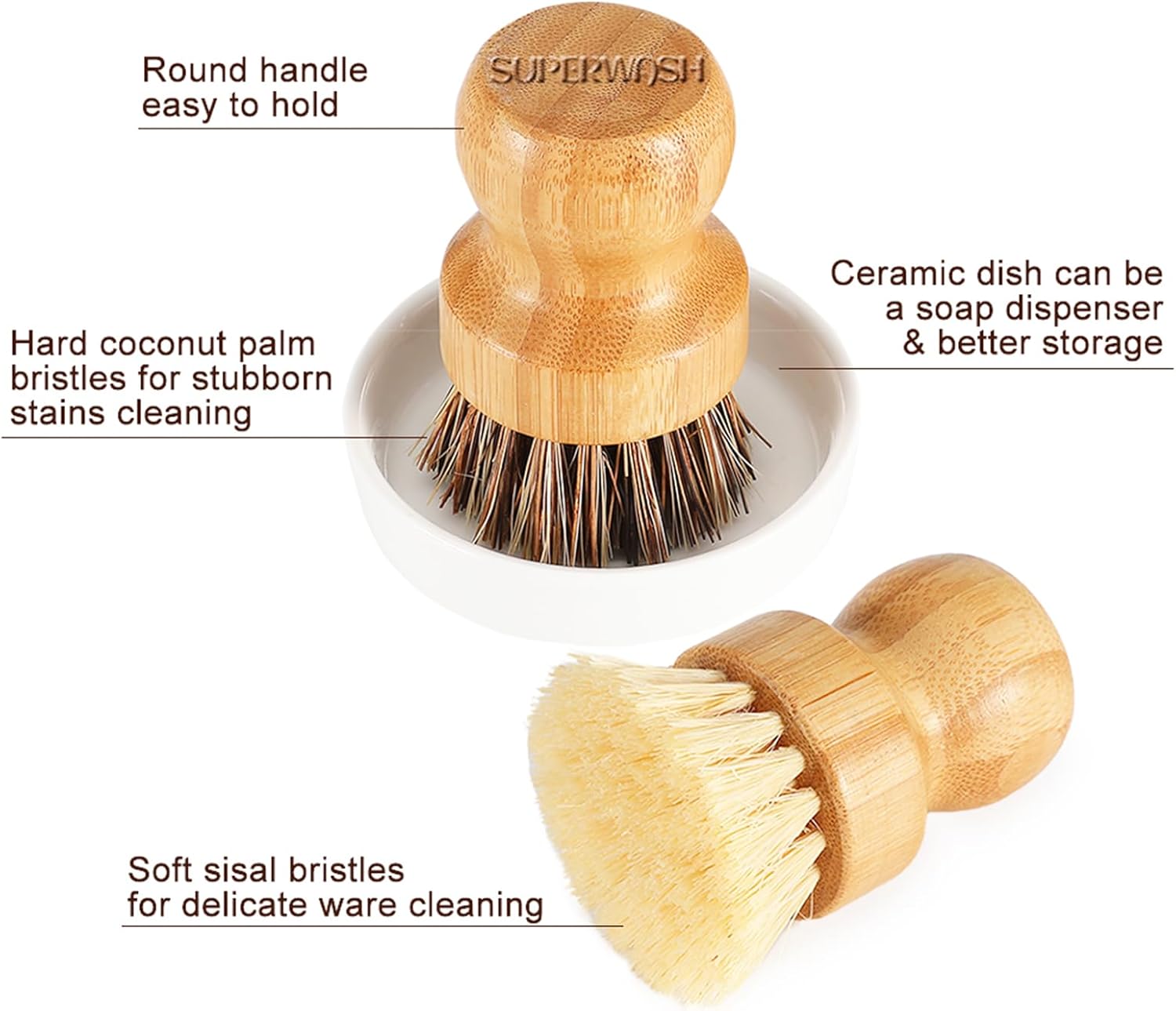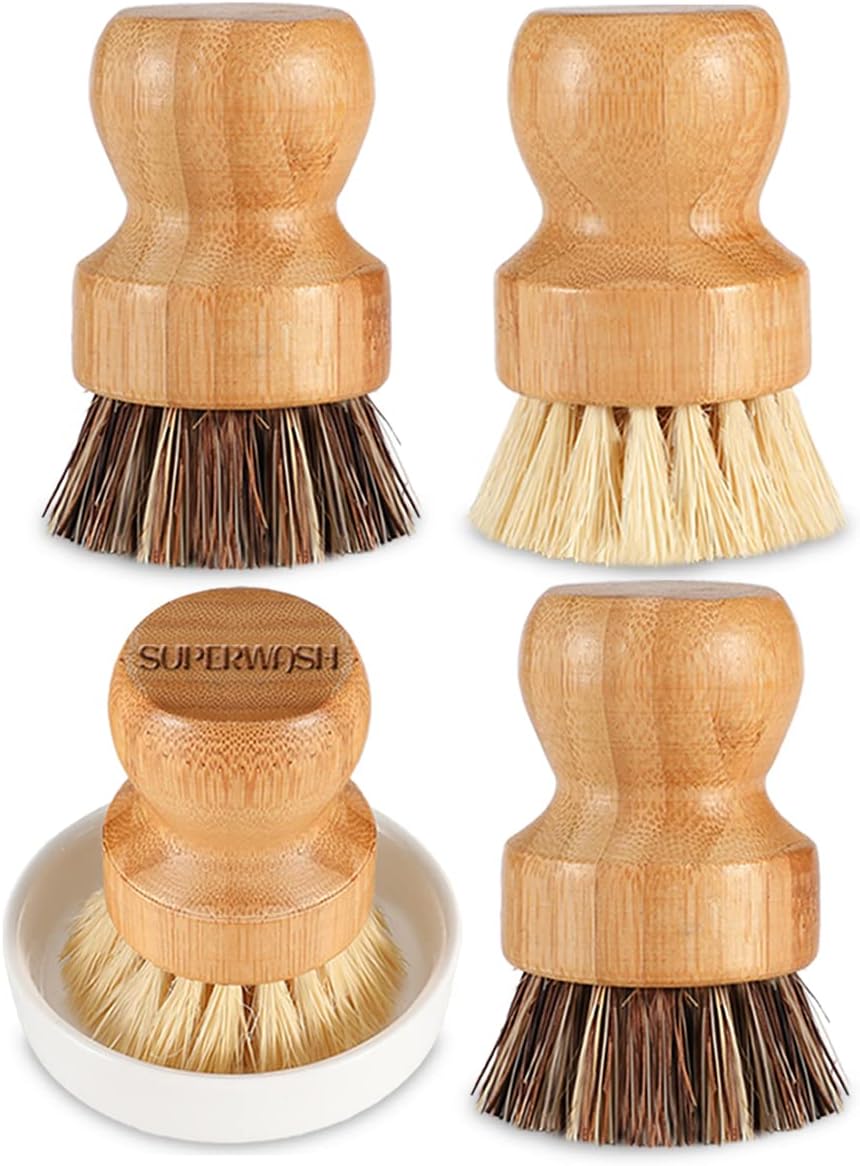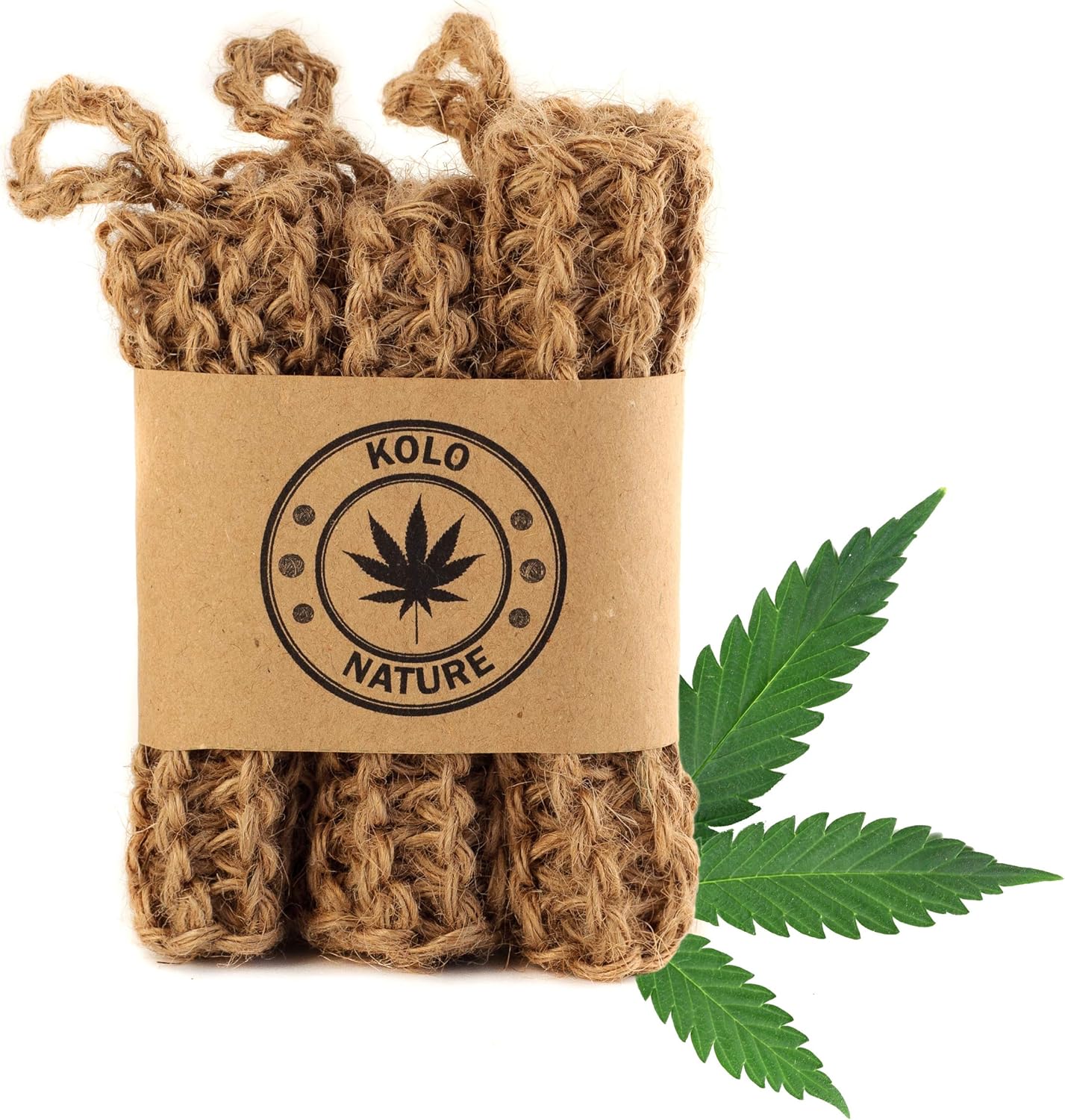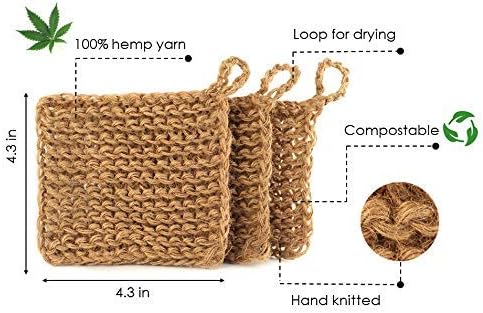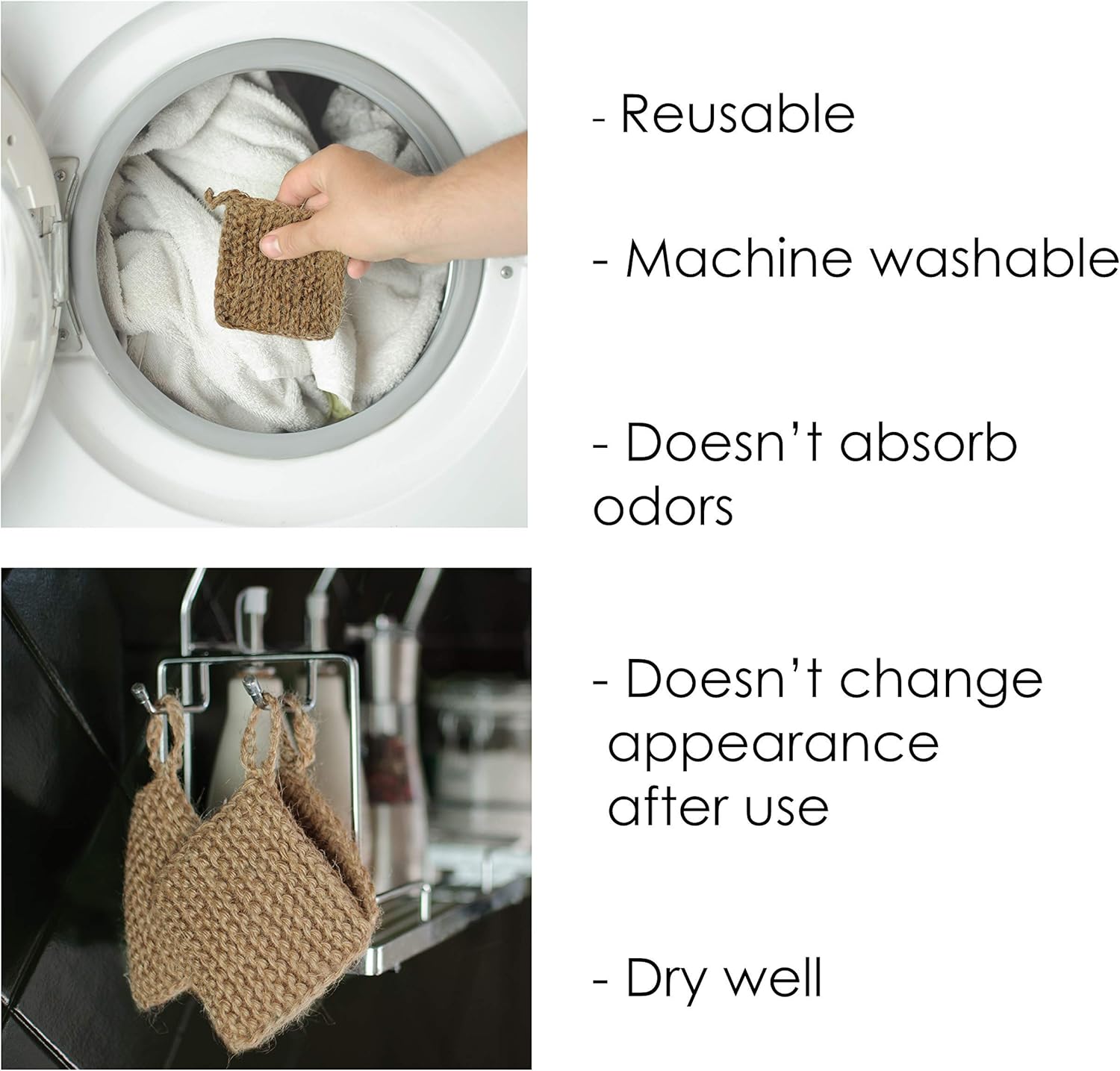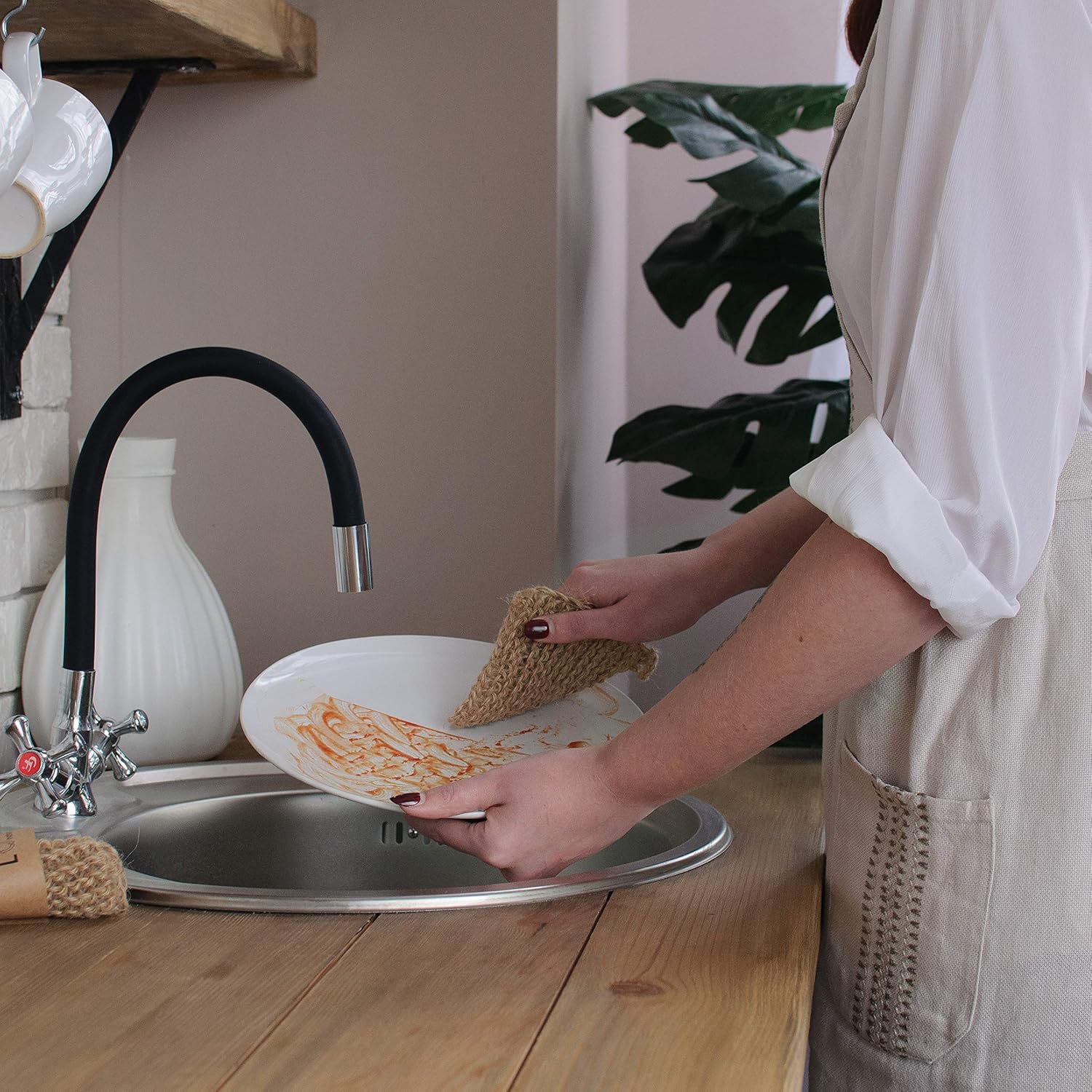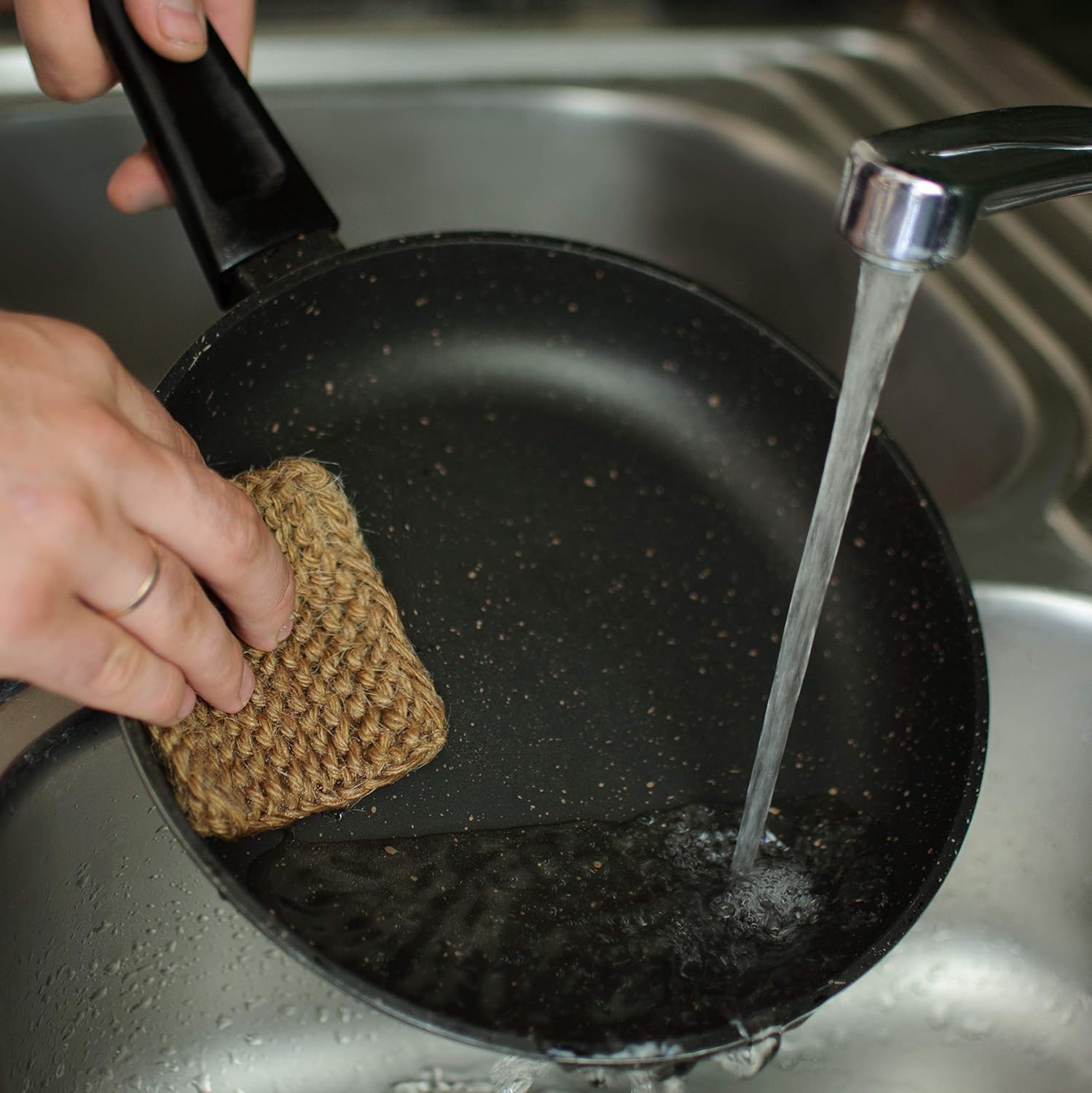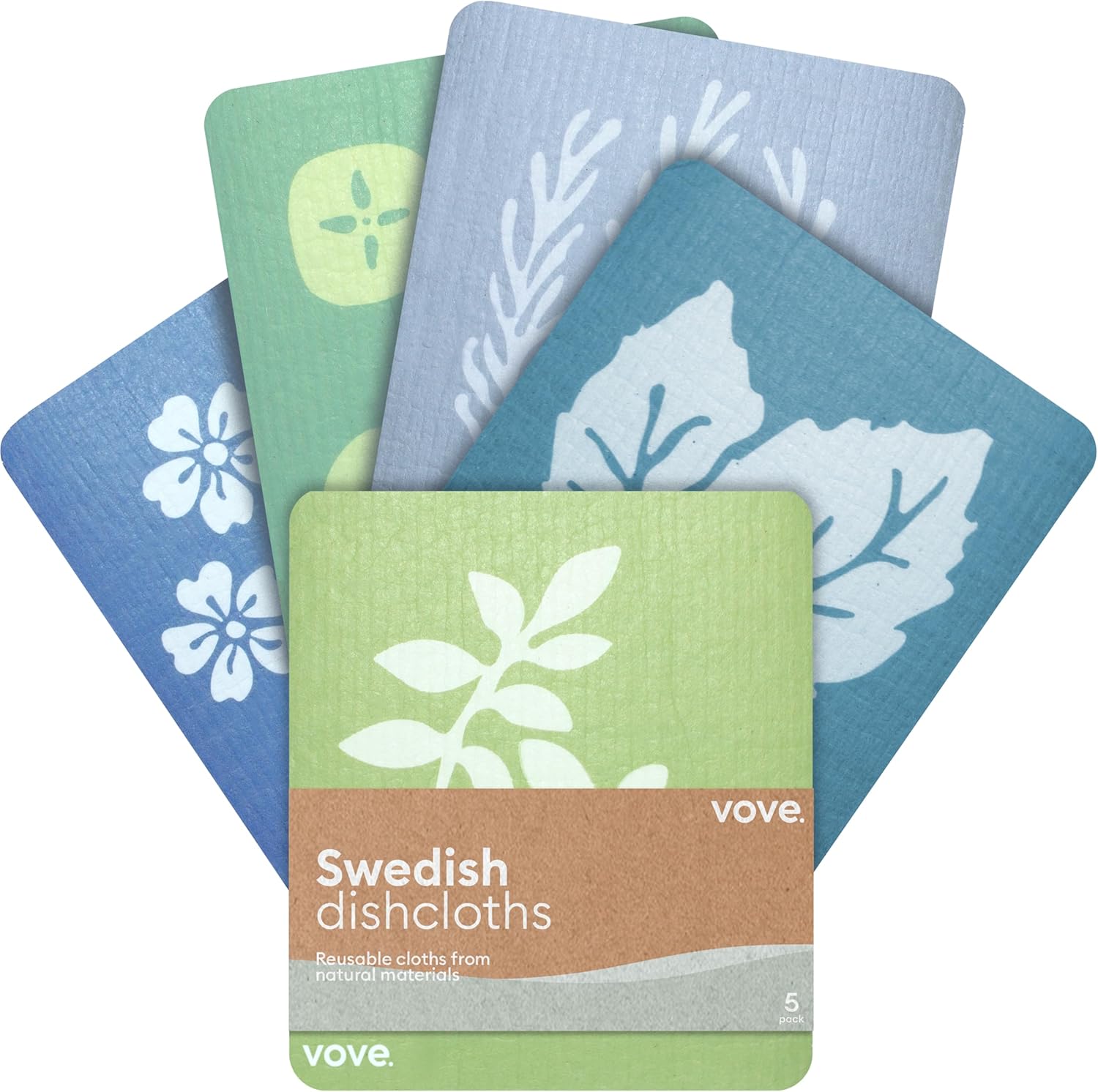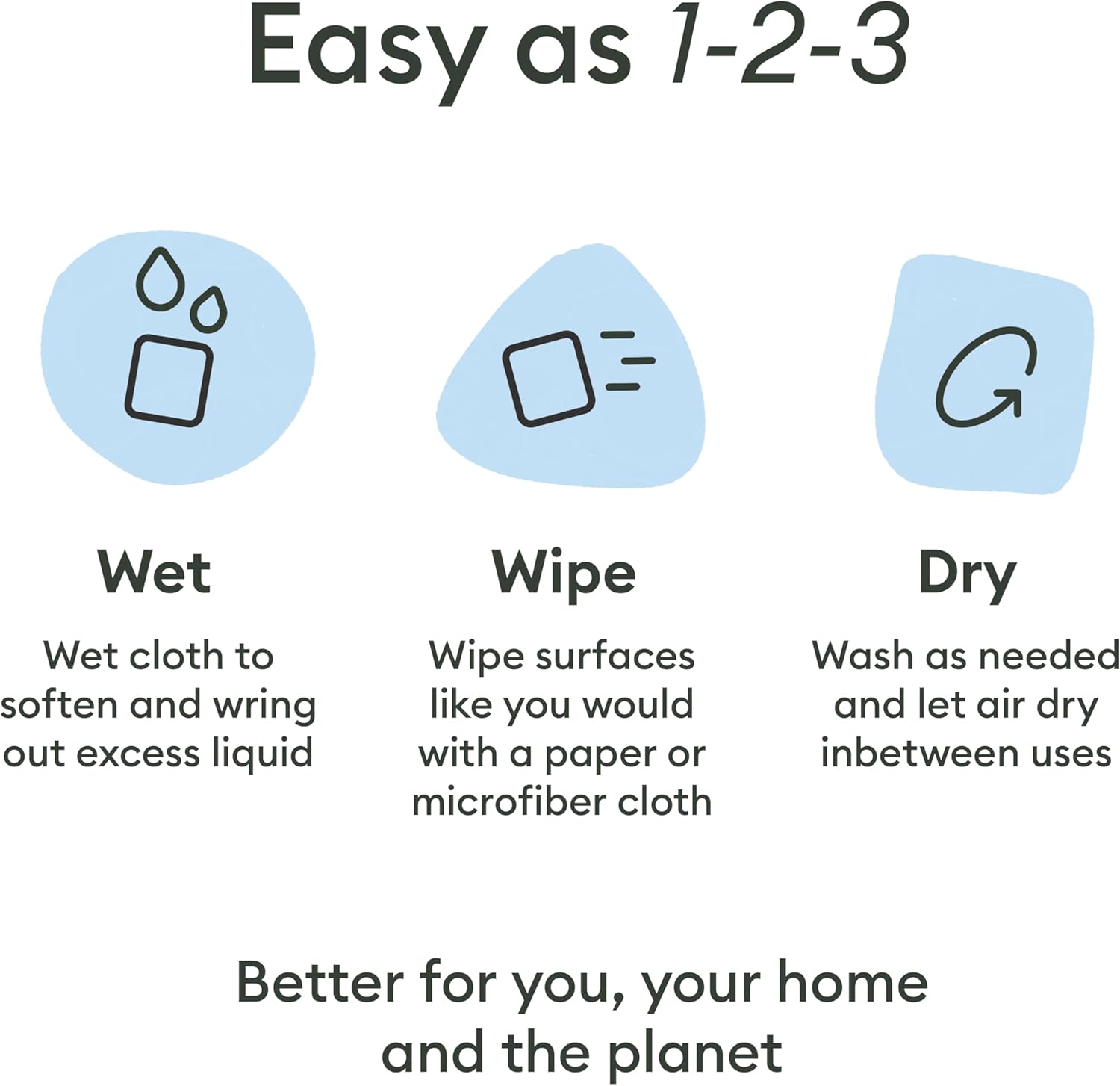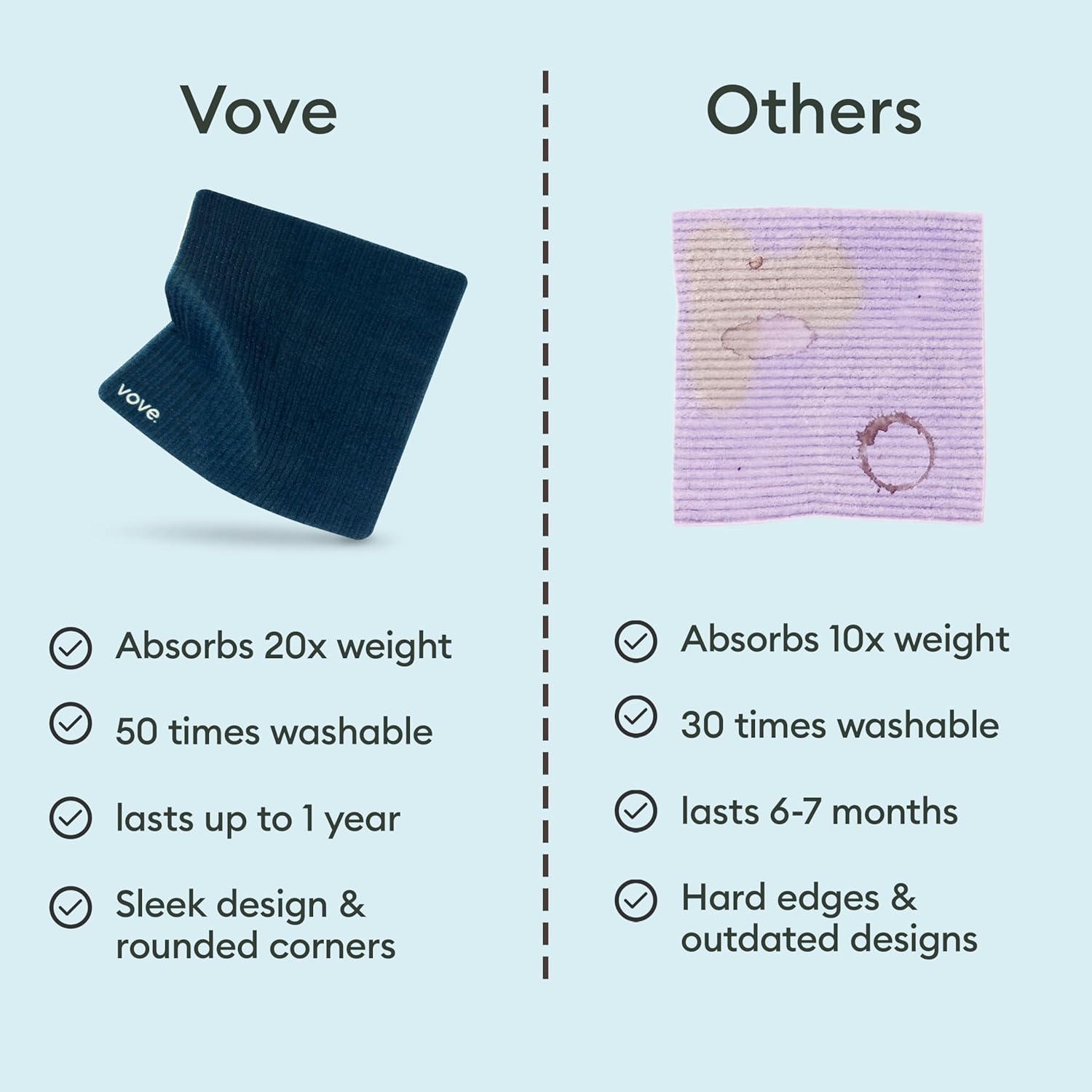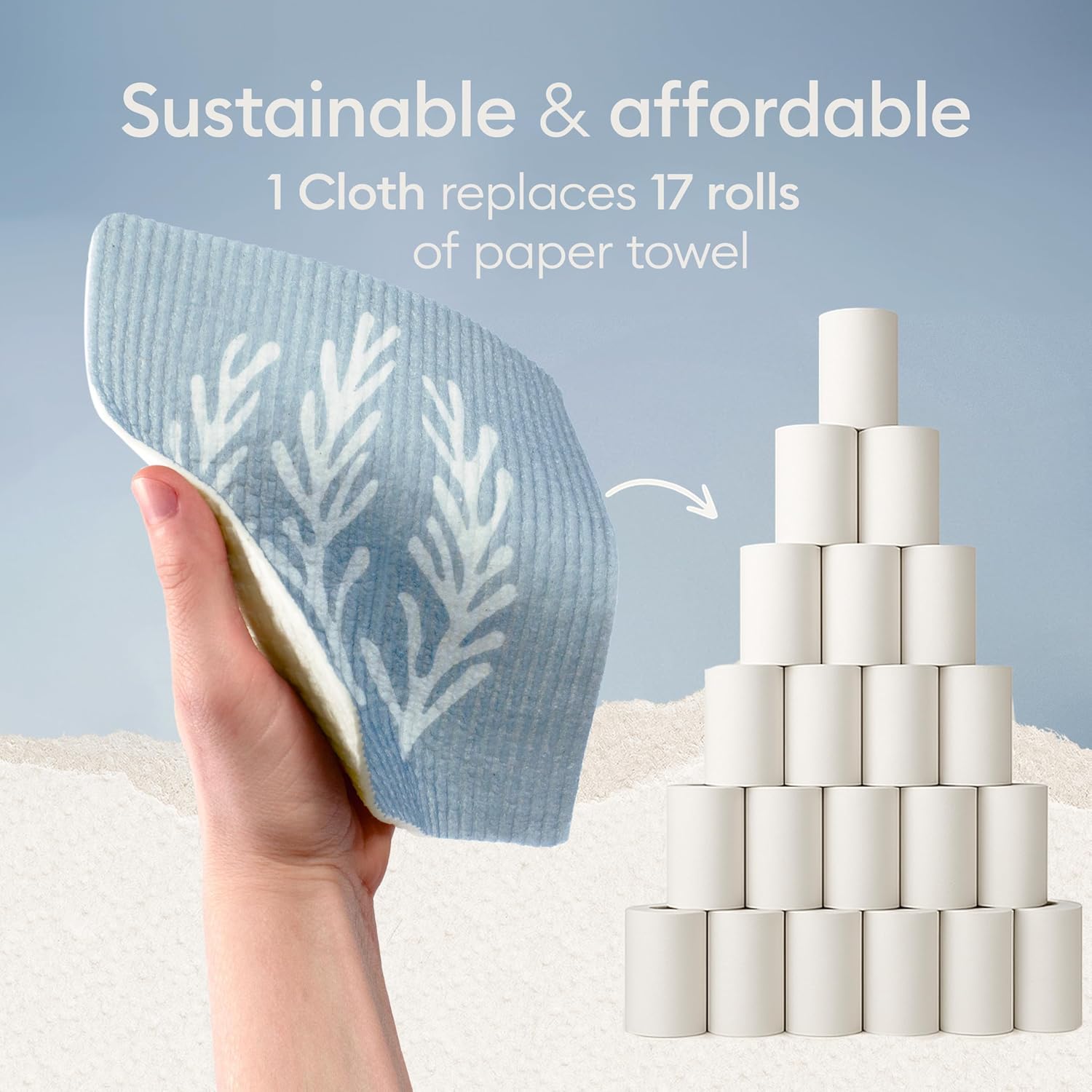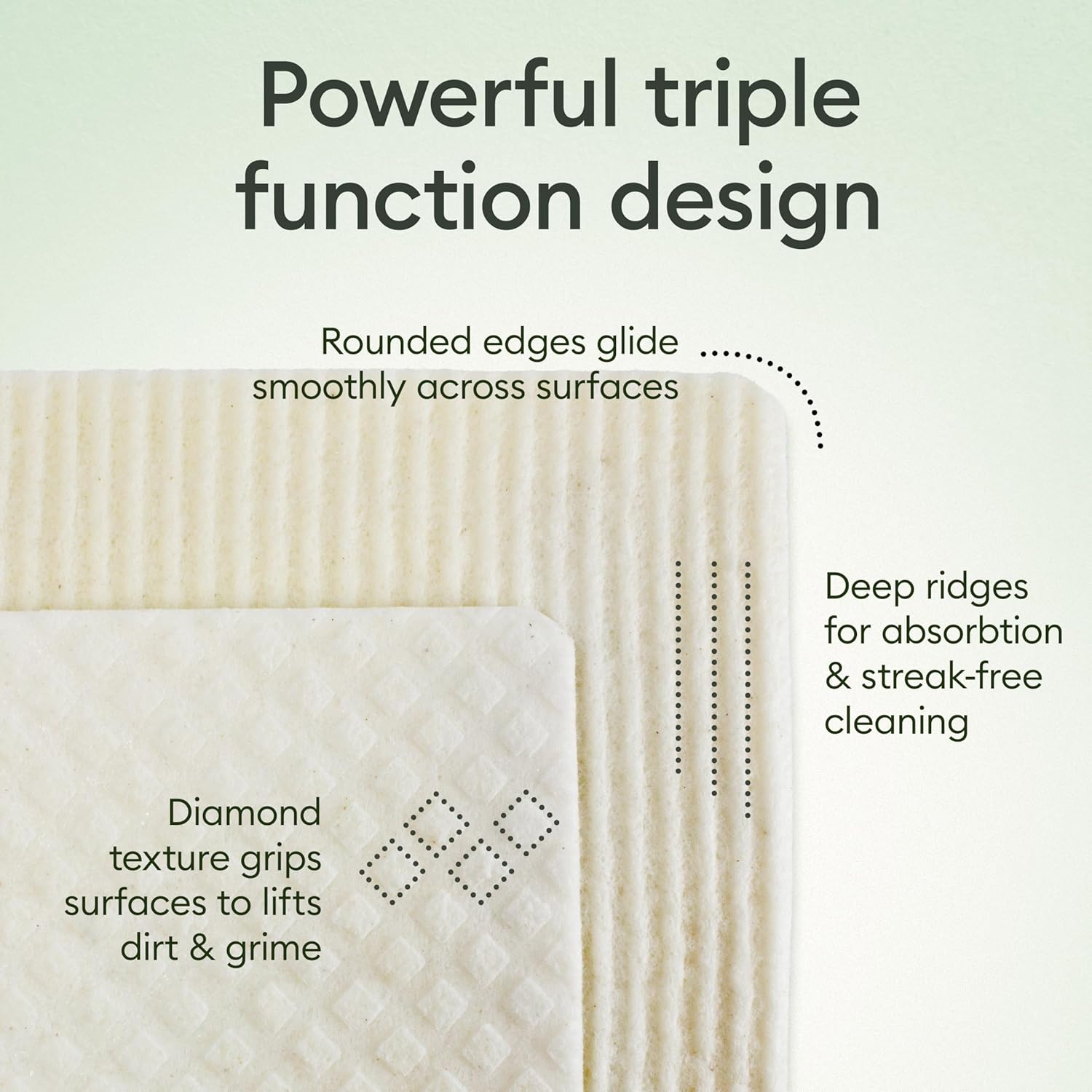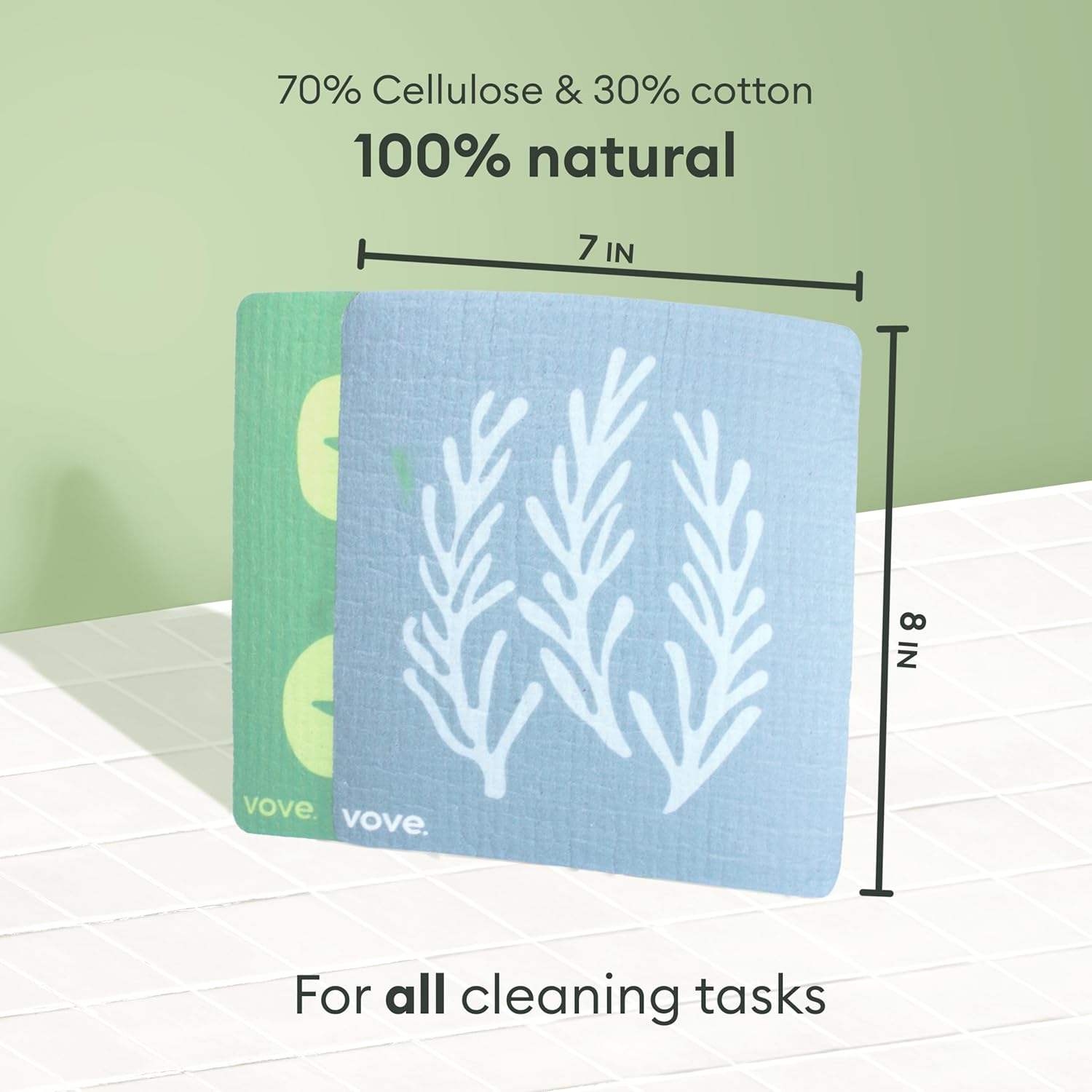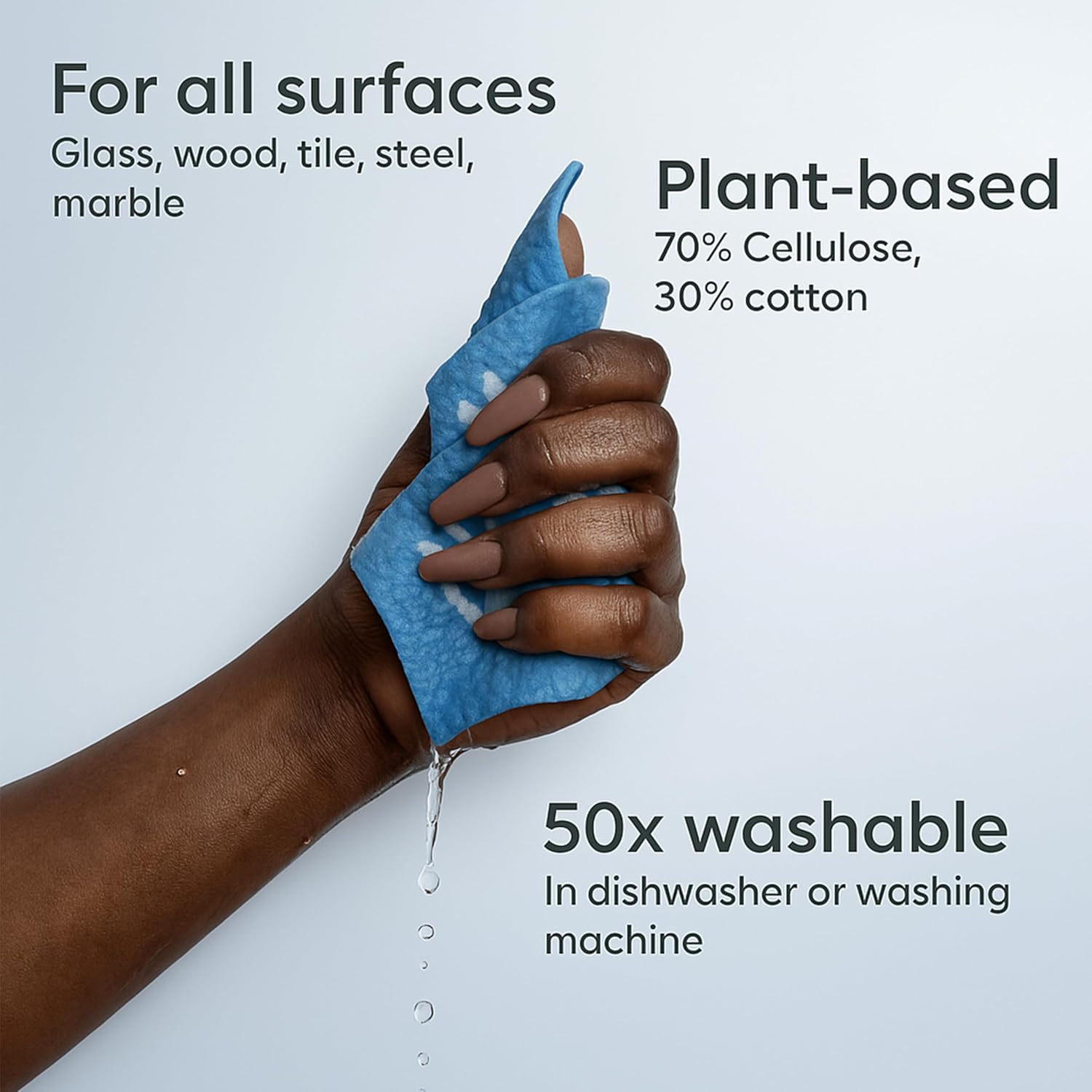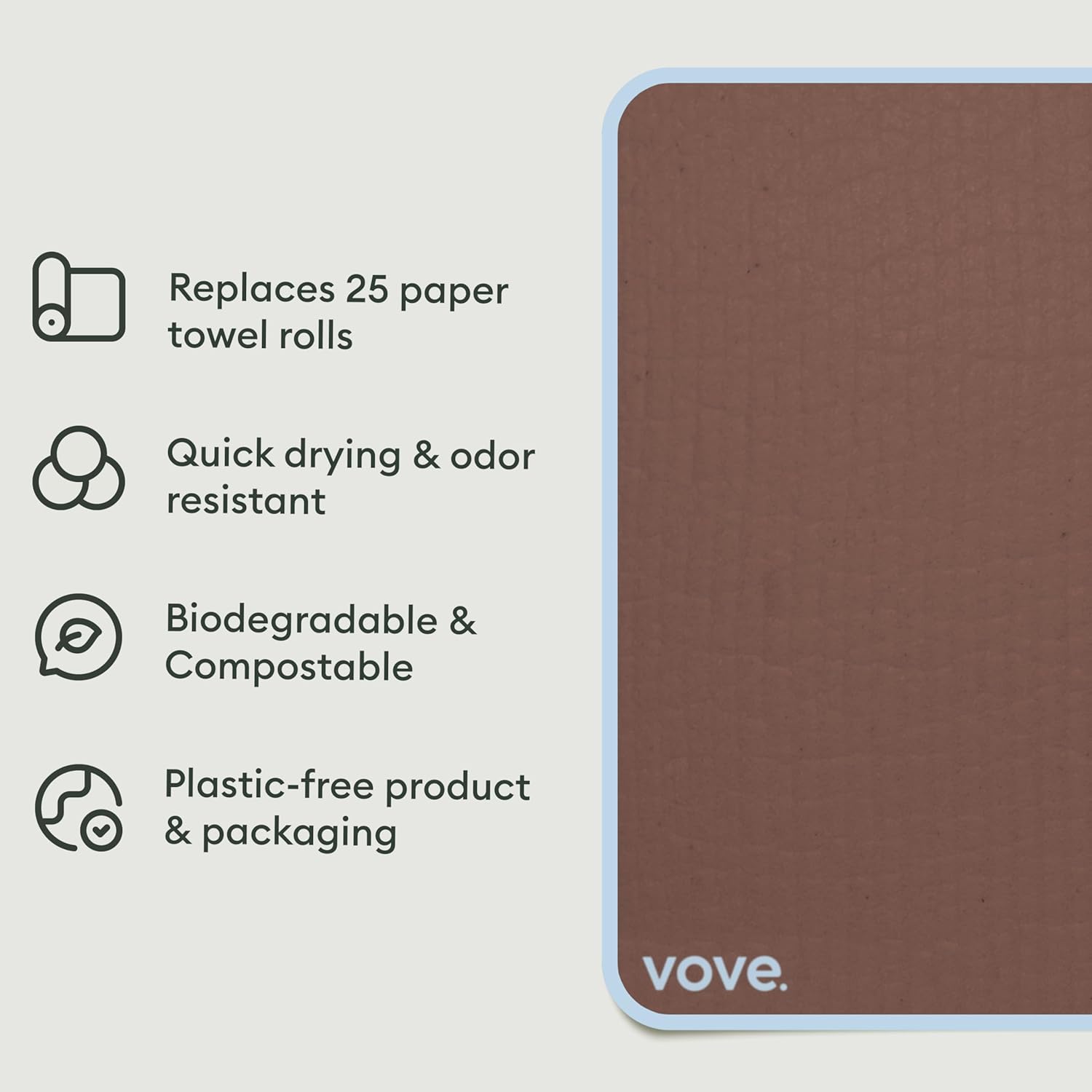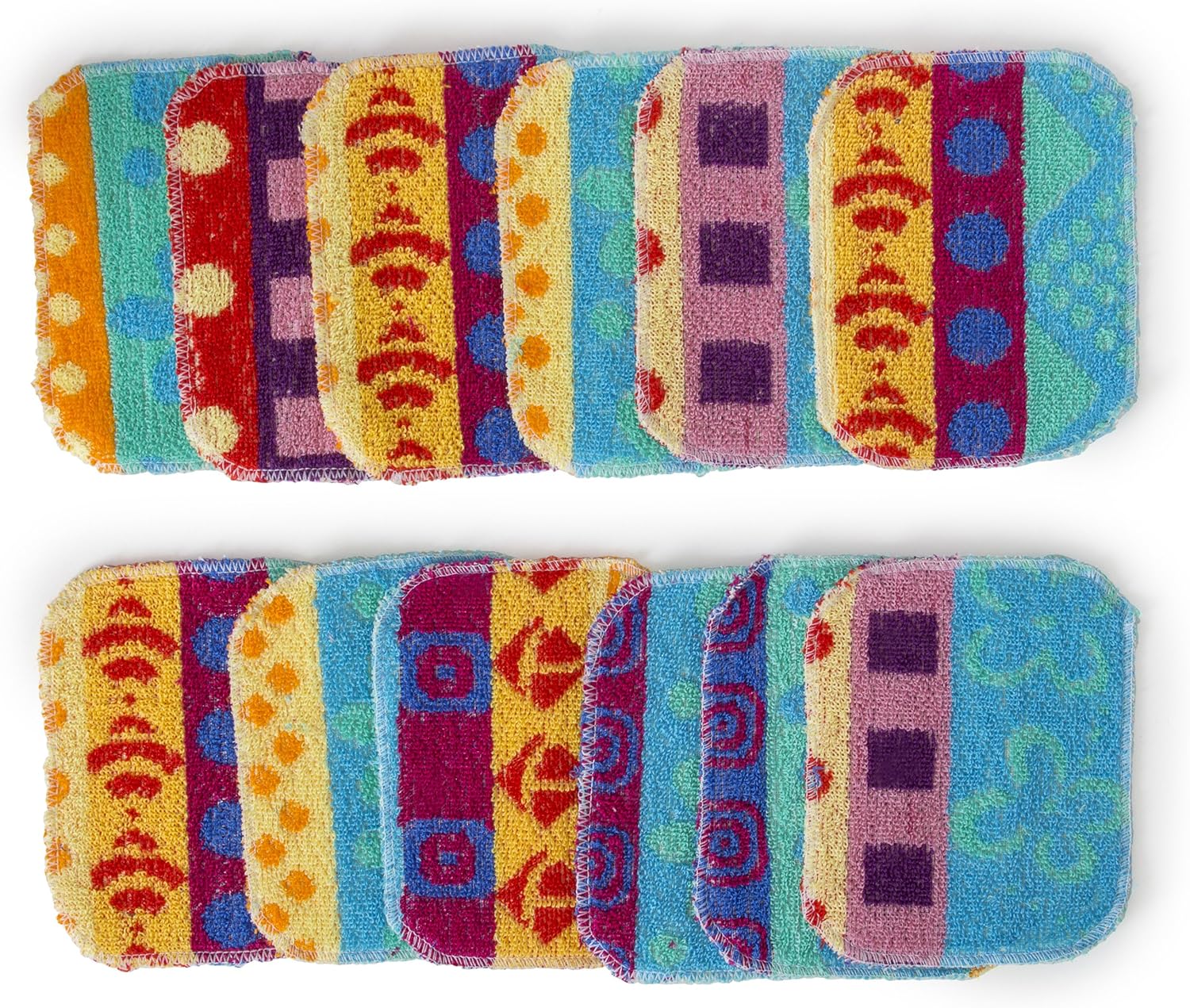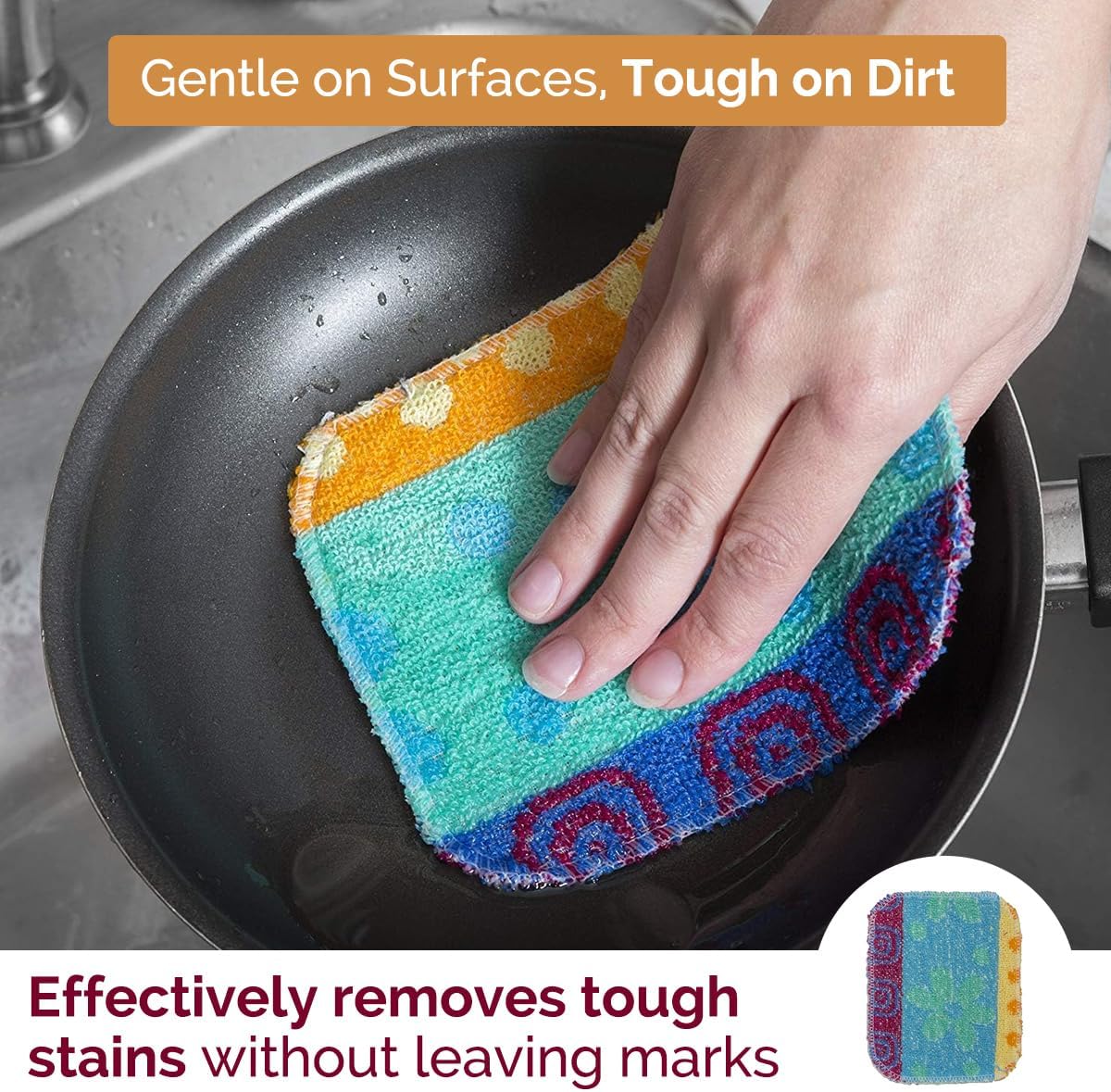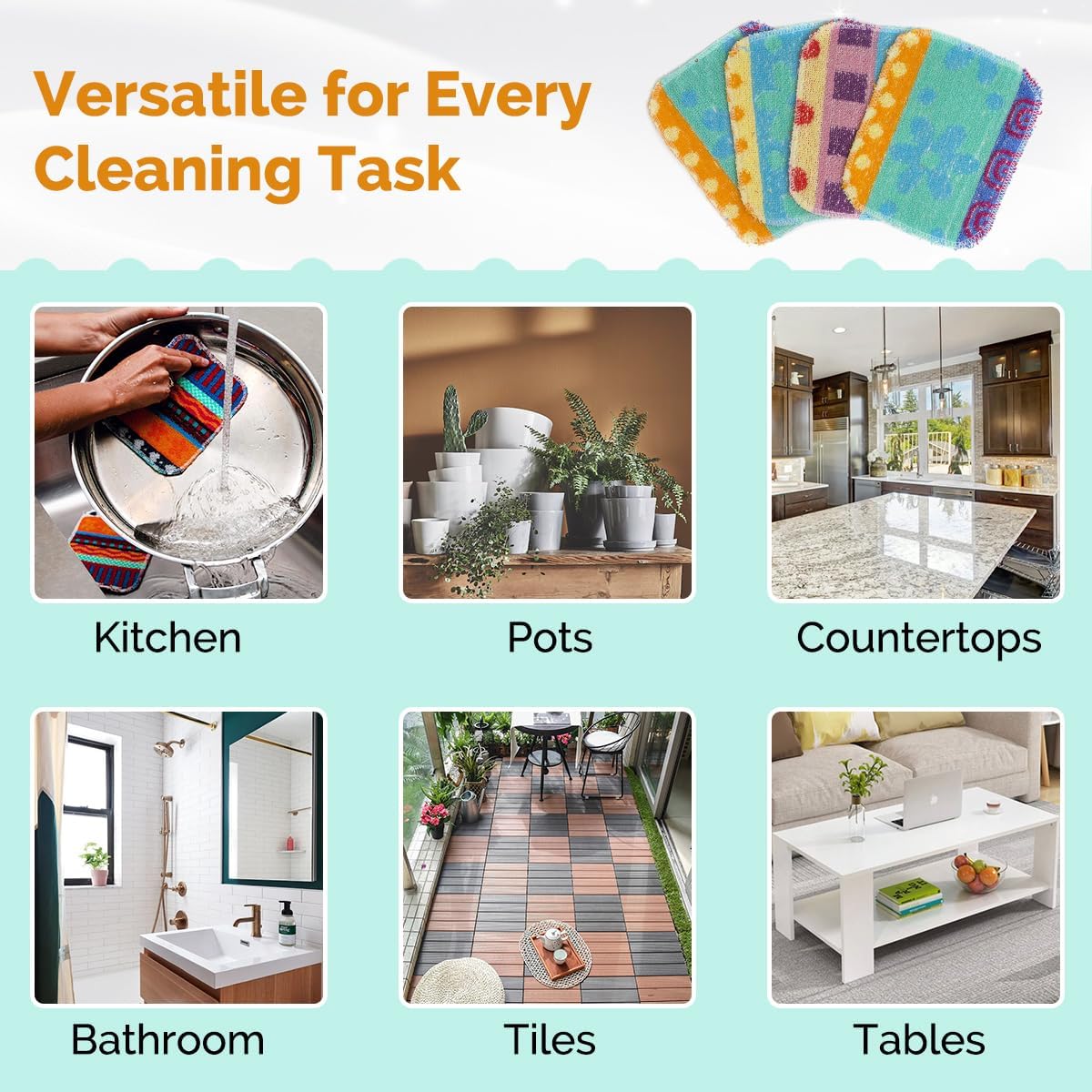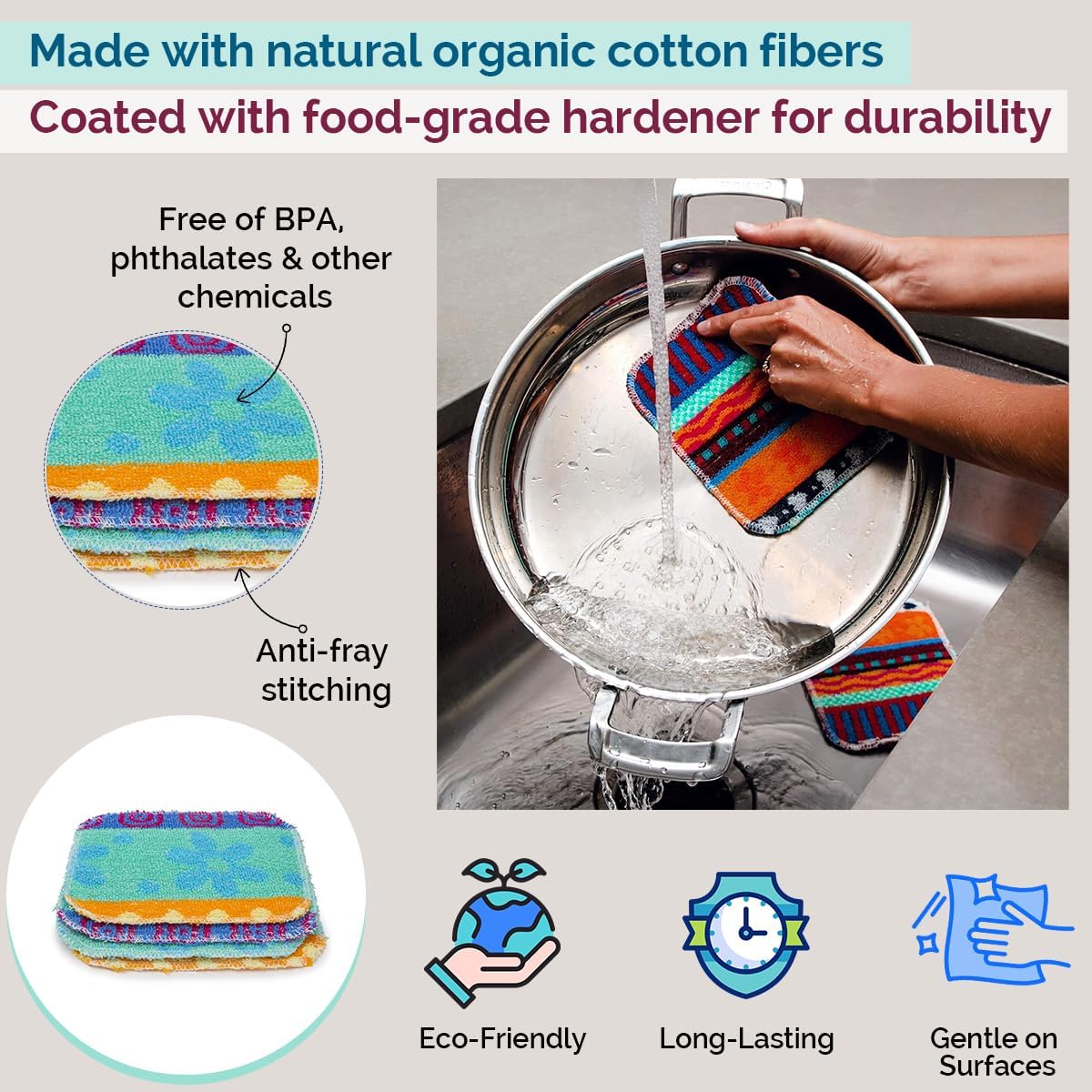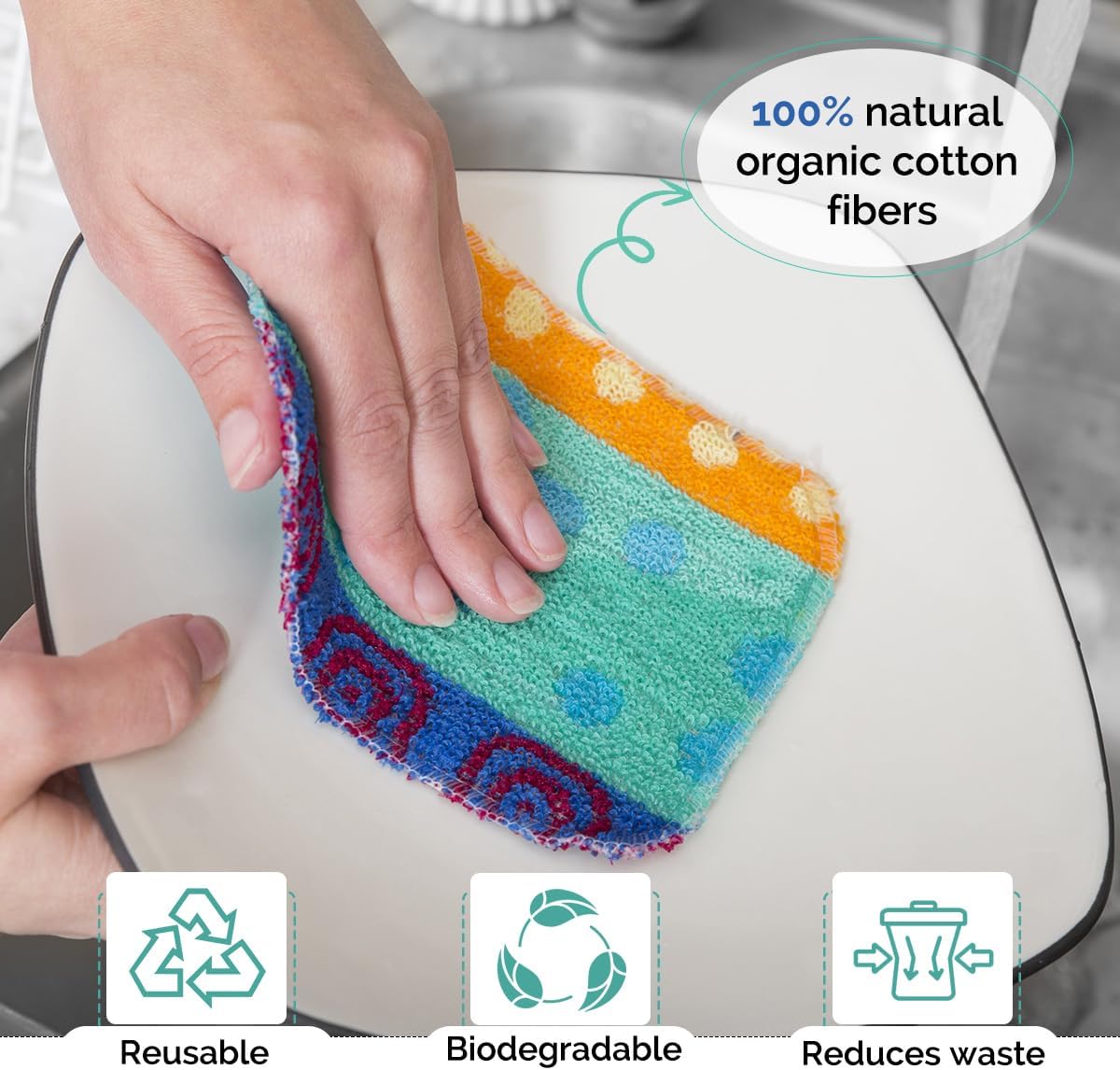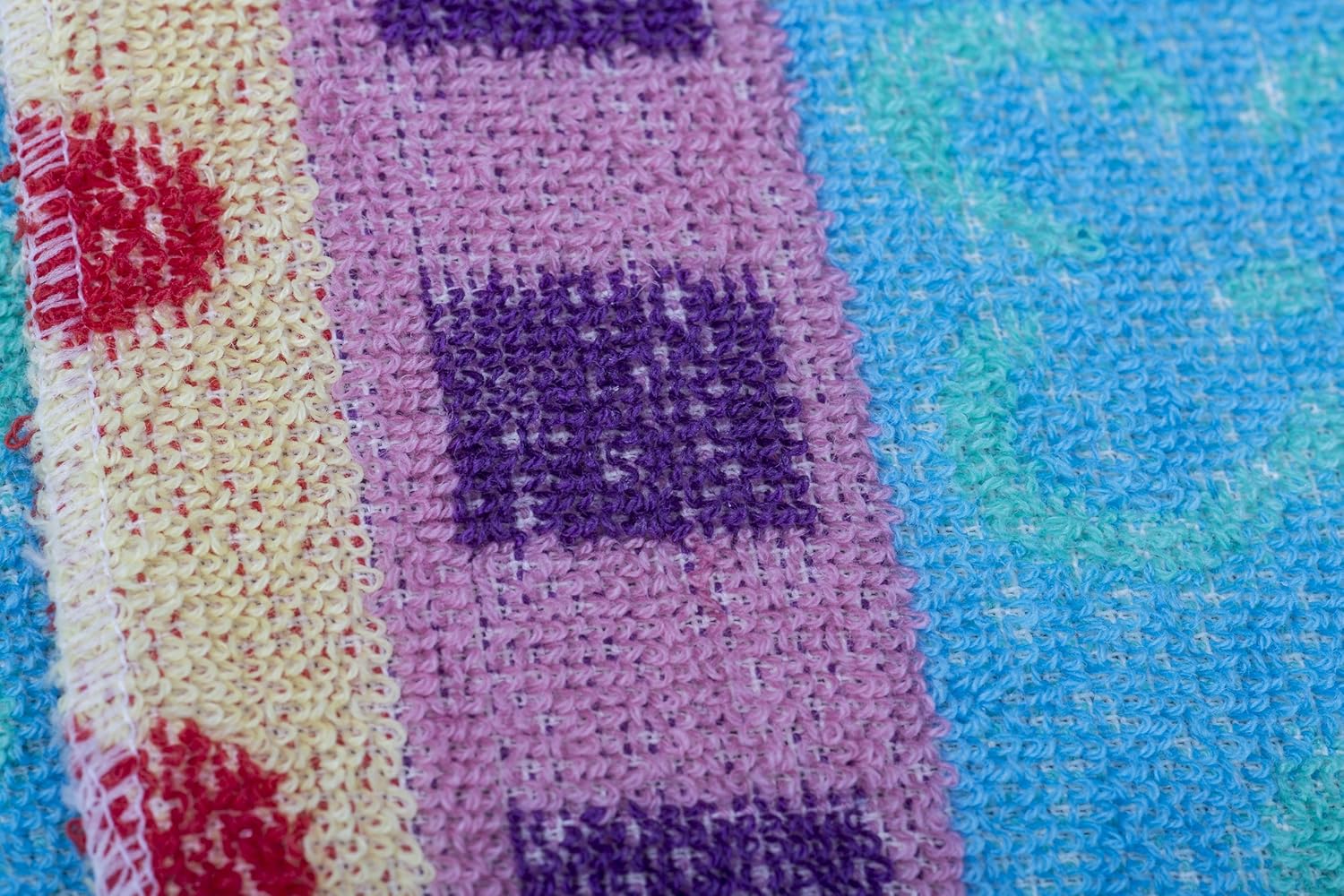Natural and Biodegradable Kitchen and Dish Sponge Scrubs
Have you ever stopped to think about that humble kitchen sponge sitting by your sink? The one you use multiple times a day, every day? Most traditional kitchen sponges are made from synthetic materials that can take centuries to break down, contributing to our planet’s growing waste problem. Today, I want to introduce you to the world of “natural dish sponges” and “biodegradable kitchen scrubbers” – a simple swap that can make a significant impact on your household’s environmental footprint.
In this comprehensive guide, we’ll explore everything you need to know about “sustainable kitchen sponges” – from understanding their environmental benefits to learning how to incorporate them into your daily routine. Whether you’re just beginning your sustainability journey or looking to refine your eco-friendly practices, this article will provide valuable insights to help you make informed choices for your home and our planet.
Zero Waste Dish Cleaning Products: The Foundation of a Sustainable Kitchen
The concept of zero waste living isn’t just a trend – it’s a necessary shift in how we approach our daily lives in the face of mounting environmental challenges. At the heart of a zero waste kitchen are the cleaning tools we use every day.
Traditional synthetic sponges contribute significantly to household waste, with the average family discarding dozens of sponges annually. These petroleum-based products typically contain polyurethane foam and plastic netting that can release microplastics with every use. In contrast, “natural dish sponges” are designed to be completely biodegradable, leaving no harmful residue behind when they reach the end of their useful life.
The zero waste approach to dish cleaning extends beyond just the sponges themselves. Consider these additional aspects of a comprehensive zero waste dish cleaning routine:
Refillable dish soap containers or solid dish soap bars
Wooden dish brushes with replaceable heads
Compost-friendly cloth dishcloths
Natural scrubbing powders in recyclable packaging
By switching to plant-based dish sponges and other sustainable kitchen tools, you’re eliminating a significant source of ongoing plastic waste. These products are typically made from renewable resources like coconut fiber dish brushes, loofah kitchen scrubbers, or cellulose-based materials that can return to the earth naturally when disposed of properly.
“When I made the switch to zero waste dish cleaning products, I was surprised at how effective they were,” shares Maria, a mother of three. “I honestly thought I’d have to sacrifice cleaning power, but my coconut fiber scrubbers actually work better on tough pots than my old plastic sponges ever did.”
Plastic-Free Kitchen Scrubbers: Breaking the Petroleum Habit
Did you know that conventional kitchen sponges are essentially solid pieces of petroleum products? Most are made from polyester, polyurethane, and nylon – all plastic derivatives that contribute to our growing microplastic pollution problem.
“Biodegradable kitchen scrubbers” offer a refreshing alternative to this petroleum dependence. These eco-champions are crafted from natural materials that provide excellent cleaning power without the environmental baggage:
Natural Materials Revolutionizing Kitchen Cleaning
Loofah – Yes, the same material in bath scrubbers makes an excellent kitchen tool. Loofah kitchen scrubbers are actually dried gourds from the Luffa plant, making them 100% plant-based and compostable.
Coconut Fiber – The tough, fibrous husk of coconuts creates remarkably durable scrubbers that excel at removing stubborn food residue. These coconut fiber dish brushes are particularly effective for cast iron pans and baking dishes.
Cellulose – Derived from plant fibers, cellulose sponges offer a familiar sponge-like feel but break down naturally at the end of their life cycle.
Hemp and Cotton – Natural fiber cloths provide gentle cleaning options that can be washed and reused many times before composting.
The benefits of plastic-free kitchen scrubbers extend beyond environmental considerations. Many users report that natural materials are more effective at cleaning and less likely to develop the unpleasant odor that synthetic sponges quickly acquire. Additionally, you’ll avoid the microplastic pollution from synthetic sponges that inevitably ends up in our waterways and, eventually, in the food chain.
“After learning about the chemicals and microplastics in my regular sponges, I couldn’t switch fast enough,” explains Diane, a health-conscious grandmother. “I don’t want those synthetic materials around my grandchildren or touching the dishes they eat from.”
Compostable Dish Sponges Benefits: Beyond the Kitchen Sink
The journey of a “sustainable kitchen sponge” doesn’t end when it’s too worn for kitchen duty. Unlike their synthetic counterparts that linger in landfills for generations, compostable dish sponges benefits extend well beyond their useful cleaning life.
When properly composted, these natural cleaning allies break down into nutrient-rich soil amendments in a matter of weeks or months rather than centuries. This complete life cycle represents true sustainability – from renewable resource to useful product to soil nutrient, with no waste left behind.
The biodegradation timeline for natural sponges varies by material:
Loofah scrubbers – 1-2 months in home compost
Coconut fiber – 2-3 months in home compost
Cellulose sponges – 1-3 months in home compost
Cotton cloths – 1-5 months depending on thickness
For families teaching children about environmental responsibility, compostable cleaning tools provide a tangible example of nature’s circular economy. Children can witness first hand how these products return to the earth, creating a powerful lesson in environmental stewardship.
“My kids are fascinated by our compost bin,” shares Thomas, a father of two. “Watching our old kitchen scrubbers transform into soil has sparked so many good conversations about sustainability and responsibility. It’s a small thing, but these everyday examples make the biggest impression.”
The non-toxic dish cleaning materials in these natural alternatives also mean they can be safely composted in home systems without introducing harmful chemicals into your garden soil. This creates a beautiful cycle where your kitchen cleaning aids eventually help grow the very vegetables you’ll be washing with their replacements.
Natural Alternatives to Synthetic Sponges: Performance Matters
Let’s address the elephant in the room – do “natural dish sponges” actually clean as well as their synthetic counterparts? The good news is that most users report equal or better cleaning performance from natural alternatives, each with their own strengths for specific kitchen tasks.
Finding Your Perfect Natural Cleaning Match
Different natural materials excel at different cleaning challenges:
For Non-Stick Surfaces: Cotton or hemp cloths provide gentle yet effective cleaning without scratching delicate surfaces.
For Stubborn Baked-On Foods: Coconut fiber dish brushes offer impressive scrubbing power without the need for harmful chemical cleaners.
For Everyday Dish Washing: Cellulose sponges provide the familiar spongey feel while being biodegradable.
For Tough Scrubbing Needs: Loofah kitchen scrubbers deliver serious scrubbing power for pots, pans, and outdoor items.
The antibacterial natural sponges question often arises when people consider switching from synthetic options. While natural sponges don’t contain the chemical antibacterial agents some synthetic versions do (which can actually contribute to antibacterial resistance), many natural options have inherent antibacterial properties:
Coconut fiber contains natural antimicrobial compounds
Hemp fabric has natural resistance to bacterial growth
Loofah, when properly dried between uses, resists bacterial buildup
To extend the dish sponge lifespan comparison in favor of natural options, proper care is essential. Rinse thoroughly after use, squeeze out excess water, and allow to dry completely between uses. Many natural sponges can also be sanitized by:
Microwaving damp (not dry) for 1-2 minutes
Running through the dishwasher on the top rack
Soaking in a vinegar solution
“I was sceptical that natural sponges could handle my family’s messiest dishes,” admits Jennifer, a mother of teenagers. “But after trying a coconut fiber scrubber on lasagna night, I was completely convinced. It cleaned better than my old sponges without needing nearly as much dish soap.”
Environmentally Friendly Kitchen Cleaning: The Bigger Picture
When we talk about “eco-friendly dish cleaning,” we’re addressing more than just the physical tools. The entire approach to kitchen cleanliness deserves consideration through an environmental lens.
Chemical-free dish sponges are just one component of a truly environmentally friendly kitchen cleaning system. Consider these complementary practices:
Creating a Complete Eco-Cleaning System
Choose plant-based dish soaps that biodegrade completely and don’t harm aquatic life when they go down the drain.
Reduce water usage by not leaving the tap running continuously during washing.
Opt for kitchen waste reduction tips like composting food scraps and using reusable food storage instead of plastic wrap.
Consider eco-friendly packaging for kitchen products when purchasing any cleaning supplies.
Make your own cleaning solutions using simple ingredients like vinegar, baking soda, and citrus peels.
The microplastic pollution from synthetic sponges is a serious concern that extends far beyond your kitchen. Every time you wash dishes with a synthetic sponge, tiny plastic particles wash down your drain and eventually make their way into waterways and oceans. These microplastics are now being found everywhere – from deep ocean trenches to human bloodstreams.
“Biodegradable kitchen scrubbers” eliminate this source of pollution entirely, as they contain no plastic components to break down into harmful particles. This makes them an essential component of truly environmentally responsible household management.
“I started with just switching my sponges,” explains Robert, an environmental educator. “But it quickly became a gateway to examining all my kitchen habits. Now my entire cleaning routine is aligned with my values, and it feels so much better knowing I’m not contributing to water pollution every time I wash a plate.”
Sustainable Dish Care Routine: Building Better Habits
Creating a “sustainable dish care routine” involves more than just swapping out your sponge. It’s about developing a thoughtful approach to this daily task that minimizes environmental impact while maintaining a clean, healthy kitchen.
Developing Your Eco-Friendly System
A comprehensive sustainable dish care routine might include:
Scrape plates into compost rather than rinsing food waste down the drain
Pre-soak stubborn items to reduce water and elbow grease needed
Wash in a basin rather than under running water to reduce water usage
Use the right tool for each job – cloths for glasses, tougher scrubbers for pots
Air dry rather than using paper towels to eliminate paper waste
Properly maintain your sustainable cleaning tools to maximize their lifespan
Kitchen sponge bacteria reduction is an important concern for many households, especially those with young children or immunocompromised family members. Natural sponges, when properly cared for, can be just as hygienic as synthetic options. The key is frequent replacement (every 2-4 weeks depending on use) and proper drying between uses.
The sustainable home cleaning products movement extends this philosophy throughout the house, creating a comprehensive approach to domestic life that treads more lightly on the planet. Your kitchen sponge choice may seem small, but it represents a significant commitment to daily practices that align with environmental values.
“I’ve created a little drying station next to my sink with small hooks for my different natural cleaning tools,” shares Lisa, a sustainable living advocate. “It keeps everything organized and ensures proper drying, which has dramatically extended the life of my natural sponges and brushes.”
Biodegradable Cleaning Products for Kitchen: The Complete Toolkit
While we’ve focused primarily on “biodegradable kitchen scrubbers,” a truly sustainable kitchen employs a variety of specialized tools, each designed for specific cleaning tasks. Building a complete toolkit of biodegradable cleaning products for your kitchen creates a system that’s both effective and environmentally responsible.
Essential Items for Your Eco-Friendly Arsenal
A well-equipped sustainable kitchen might include:
Coconut fibre dish brushes for tough scrubbing needs
Cellulose sponges for everyday washing
Hemp or cotton dishcloths for wiping and gentle cleaning
Wooden bottle brushes for cleaning reusable water bottles and vases
Loofah kitchen scrubbers for medium-duty cleaning
Bamboo soap dishes for proper drainage of natural dish soaps
Compostable scrub pads for occasional deep cleaning needs
The beauty of these non-toxic dish cleaning materials is their specialization. Rather than relying on a single synthetic sponge for all tasks (often with mediocre results), this diversified approach provides the right tool for each specific cleaning challenge.
The dish sponge lifespan comparison between natural and synthetic options often surprises new converts. While a typical synthetic sponge might need replacement every 2-3 weeks, many natural alternatives can last longer with proper care – especially brushes with replaceable heads that only require changing the working end rather than the entire tool.
“I used to buy those multi-packs of synthetic sponges and go through them so quickly,” recalls Miguel, a recent convert to natural cleaning tools. “Now my coconut brush has lasted three months and counting. I just rinse it well and let it dry properly between uses.”
With proper kitchen waste reduction tips like composting your spent natural sponges, you create a zero-waste cleaning system that supports rather than damages natural ecosystems.
Conclusion: Small Changes, Significant Impact
As we’ve explored throughout this guide, making the switch to “natural dish sponges” and “biodegradable kitchen scrubbers” represents far more than a simple product swap. It signifies a commitment to “eco-friendly dish cleaning” practices that protect our waterways, reduce waste, and create healthier homes for our families.
The journey toward “sustainable kitchen sponges” might begin with a single coconut fiber brush or cellulose sponge, but it often leads to broader awareness of how our daily choices impact the world around us. From reduced plastic waste to fewer chemicals in our homes, these small changes compound into meaningful environmental benefits.
I encourage you to start wherever you are. Perhaps begin with replacing your current sponge with a natural alternative when it wears out. Or maybe create a complete sustainable dish care routine all at once. Either approach contributes to the vital shift toward more environmentally conscious households.
Remember that perfection isn’t the goal – progress is. Each sustainable choice builds momentum toward a lifestyle that aligns with both personal and planetary wellbeing.
What natural kitchen sponge alternatives have you tried? What worked best for your household’s needs? The journey to sustainability is one we’re all navigating together, learning and improving as we go.

